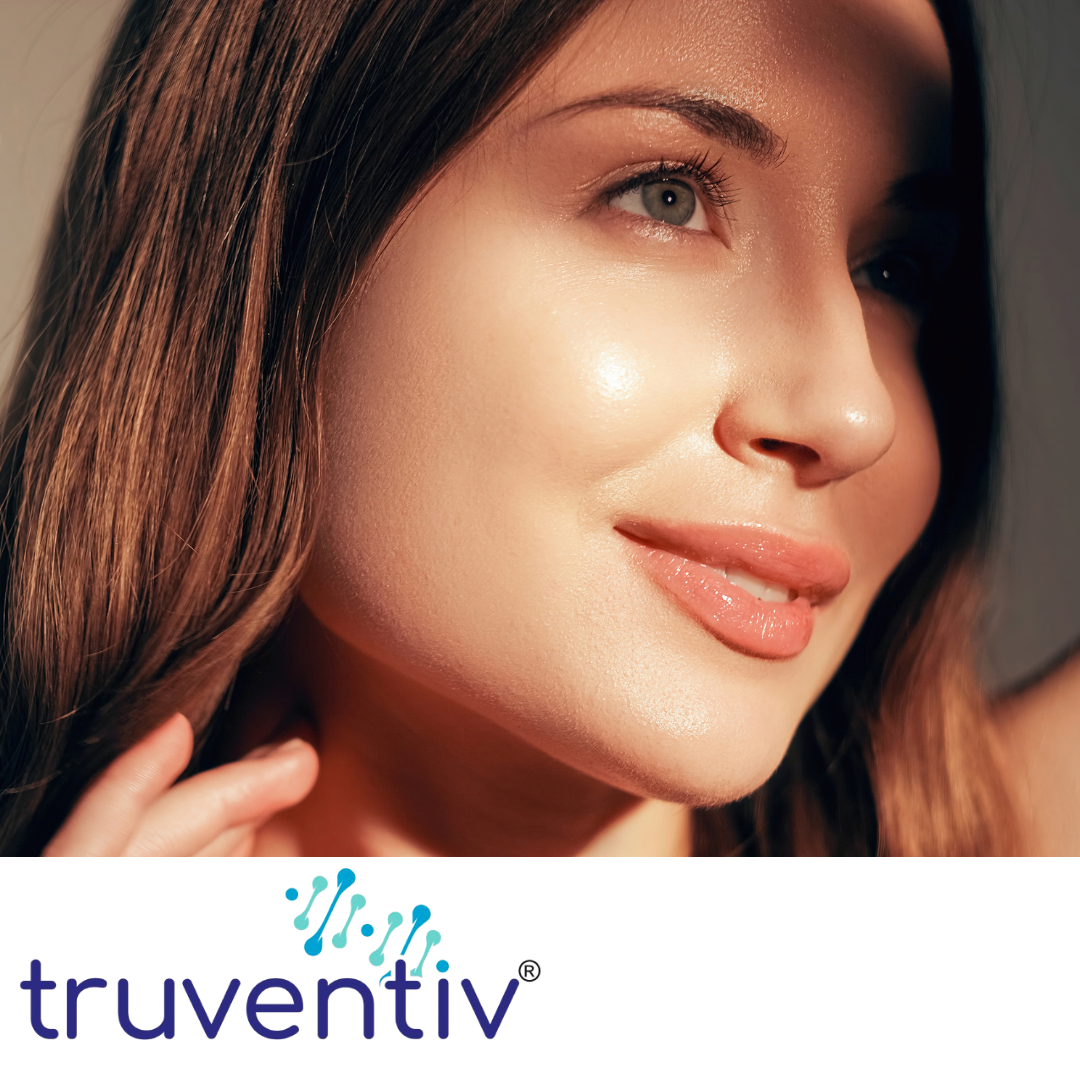HOW AQUA HELPS IN FOR NATURAL GLOWING SKIN
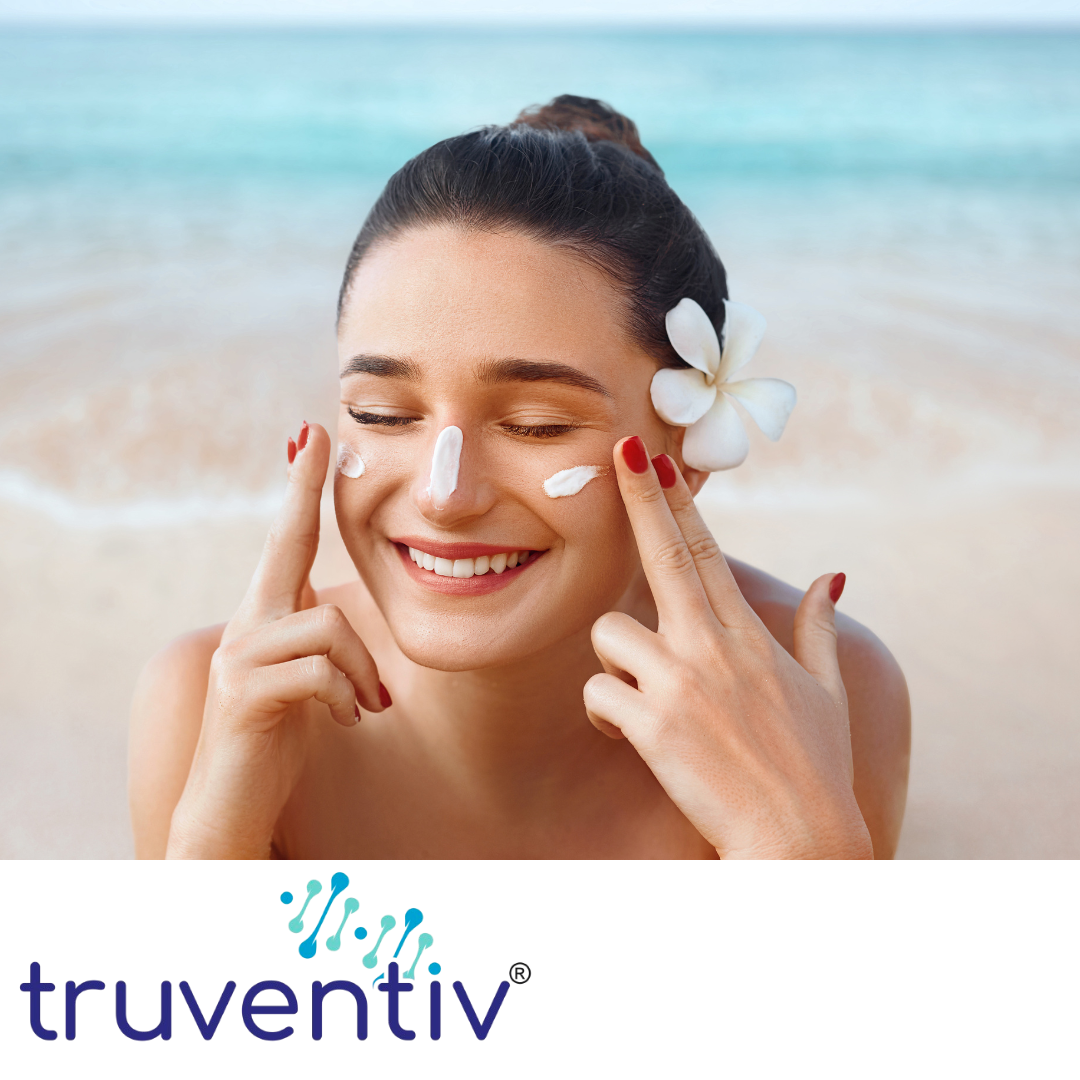
Water, often listed as Aqua in skincare products, plays a vital role in achieving natural glowing skin. Here’s how it works to keep your skin looking radiant and healthy:
- Hydrates and Moisturizes:
Water is crucial for maintaining skin hydration. Proper hydration helps your skin retain moisture, keeping it soft, plump, and supple. When the skin is well-hydrated, it has a dewy glow and appears more luminous.
- Prevents Dryness: Hydration prevents dry, flaky patches, which can dull the skin and make it look tired. This leads to smoother, healthier-looking skin.
- Promotes Glow: Moisturized skin reflects light better, giving it a more radiant and vibrant appearance.
- Supports Skin's Natural Barrier:
The skin's protective barrier is essential for locking in moisture and protecting against environmental factors like pollution and harsh weather. Water helps maintain this barrier, keeping the skin healthy and glowing.
- Strengthens Barrier Function: A strong skin barrier prevents water loss, ensuring your skin stays hydrated and protected, contributing to a smoother and more glowing complexion.
- Flushes Out Toxins:
Drinking enough water helps your body flush out toxins and impurities that can negatively affect your skin. When toxins build up, they can contribute to dullness, acne, and inflammation. Hydration helps remove these waste products, leaving your skin clearer and brighter.
- Detoxifies Skin: By keeping the body hydrated, water aids in flushing out impurities that can lead to breakouts and skin dullness, resulting in a fresher complexion.
- Boosts Circulation:
Drinking enough water promotes better blood circulation, ensuring that nutrients and oxygen reach your skin cells. This increased circulation helps the skin cells function better, leading to a healthier and more radiant appearance.
- Improves Blood Flow: Enhanced circulation helps nourish the skin from within, leading to a more vibrant and glowing complexion.
- Promotes Skin Regeneration:
Water aids in the regeneration of skin cells, allowing the skin to shed dead cells and renew itself more efficiently. Well-hydrated skin promotes cell turnover, revealing fresher and more radiant skin.
- Cell Renewal: Proper hydration helps your skin regenerate by replacing dead skin cells with new, healthy cells, which brightens the skin and gives it a natural glow.
- Reduces Puffiness and Swelling:
Dehydrated skin can appear puffy, especially around the eyes. When you hydrate, it helps balance the water retention in your skin, reducing swelling and puffiness, leading to a more even and glowing complexion.
- Reduces Swelling: Staying hydrated helps to reduce excess water retention, preventing puffiness and giving your face a more refreshed, glowing look.
- Balances Skin Tone:
Water helps to maintain a balanced pH level in the skin, which is crucial for overall skin health. When the pH is balanced, skin looks healthier, more even, and radiant. This contributes to an overall glowing complexion.
- Even Skin Tone: Proper hydration supports a balanced skin tone by preventing excessive oiliness or dryness, which can lead to uneven pigmentation.
- Prevents Premature Aging:
Dehydrated skin is more prone to developing fine lines and wrinkles. Drinking water helps keep the skin plump and elastic, preventing the appearance of premature aging and allowing the skin to maintain its youthful glow.
- Delays Aging: Hydrated skin stays more resilient, reducing the appearance of wrinkles and sagging, keeping your skin glowing and youthful.
- Improves Skin Texture:
When your skin is hydrated, it feels softer and smoother. Well-hydrated skin also looks more even and less rough, contributing to a healthier, more glowing texture.
- Smoother Skin: Hydration helps reduce rough patches, flakiness, and dry areas, leading to a more even and refined texture.
- Increases Skin Elasticity:
Water helps maintain the elasticity of the skin, which is essential for keeping it smooth and firm. Well-hydrated skin is more flexible and resilient, which contributes to a firmer and glowing complexion.
- Promotes Firmness: Hydrated skin retains its elasticity, which keeps it from sagging and enhances its overall glow.
HOW AQUA HELPS IN IMPROVES OVERALL DERMAL HEALTH
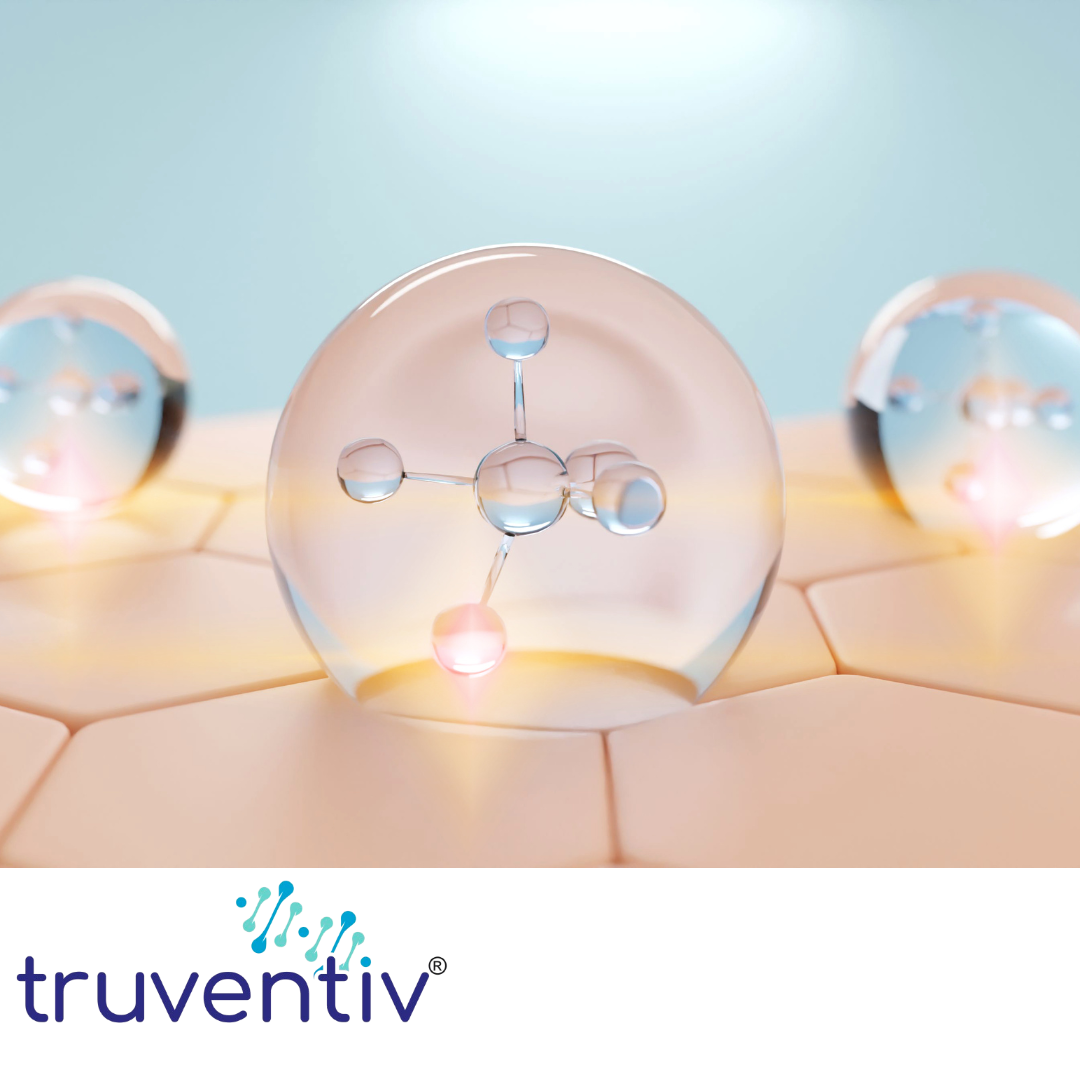
Aqua (water) plays a foundational role in maintaining and improving overall dermal health, as it supports a variety of essential skin functions.
- Hydrates the Skin:
The primary function of water in the skin is hydration. Well-hydrated skin is essential for maintaining a healthy, supple, and smooth appearance. Water supports the skin's ability to retain moisture, which helps prevent dryness, tightness, and rough patches.
- Prevents Dryness: Hydration keeps the skin from becoming dry and flaky, which can lead to irritation and discomfort.
- Supports Softness and Smoothness: Proper hydration helps the skin stay soft and smooth, enhancing its texture.
- Strengthens the Skin’s Natural Barrier:
The skin’s barrier (stratum corneum) is responsible for preventing water loss and protecting the skin from environmental damage like pollutants and pathogens. Water helps support and maintain this barrier, which is vital for overall dermal health.
- Prevents Trans-Epidermal Water Loss (TEWL): Water helps the skin retain moisture by strengthening the barrier, preventing excessive water loss and dehydration.
- Protection from External Stressors: A well-hydrated skin barrier is better equipped to defend against harmful pollutants, bacteria, and allergens.
- Promotes Skin Regeneration and Repair:
Water is essential for the regeneration of skin cells. It aids in the turnover process, which involves shedding old skin cells and producing new, healthy ones. This is essential for maintaining fresh, vibrant skin and supporting the healing of damaged skin.
- Supports Cell Turnover: Proper hydration helps speed up cell turnover, promoting the growth of fresh, healthy skin cells and preventing the buildup of dead cells.
- Facilitates Skin Repair: Hydration is key to repairing skin damage from wounds, burns, or irritations, as water aids in the recovery of skin cells.
- Detoxifies the Skin:
Water helps flush out toxins from the body through sweat and urine. These toxins can accumulate and negatively affect skin health, contributing to issues like acne, dullness, and inflammation. By staying hydrated, you support the body’s natural detoxification process, leading to clearer, healthier skin.
- Removes Impurities: Drinking water helps eliminate waste products and toxins, leading to clearer and more radiant skin.
- Supports Healthy Circulation: Hydrated skin improves blood circulation, ensuring that nutrients and oxygen reach skin cells more efficiently.
- Balances Skin’s pH:
The skin has a natural acid mantle that protects it from bacteria and helps maintain hydration. Drinking water and keeping the skin hydrated helps to maintain the skin’s optimal pH level, which is crucial for preventing dryness, irritation, and infection.
- Prevents Imbalance: Proper hydration helps maintain the skin’s pH balance, preventing issues like excessive oiliness, dryness, or breakouts.
- Supports Skin Health: Balanced skin pH allows the skin to maintain its natural functions, including its protective barrier and moisture levels.
- Reduces Inflammation and Irritation:
Chronic dehydration can lead to skin inflammation, redness, and irritation. Water helps keep skin cells functioning properly and supports the skin’s ability to heal from irritation or allergic reactions.
- Soothes Inflammation: Hydration reduces skin inflammation and redness, contributing to overall skin comfort and health.
- Improves Healing: Proper hydration helps the skin recover faster from irritation, cuts, or any form of injury, promoting healthier skin.
- Regulates Oil Production:
Dehydrated skin often produces more oil in an attempt to compensate for the lack of moisture. This can lead to clogged pores and breakouts. By staying hydrated, you help maintain balanced sebum production, reducing the likelihood of excess oil and acne.
- Prevents Overproduction of Oil: Hydrated skin helps regulate oil production, leading to a clearer complexion.
- Reduces Breakouts: When the skin is properly hydrated, it’s less likely to become clogged with oil, which can help reduce acne and other skin issues.
- Improves Skin Elasticity:
Water helps the skin maintain its elasticity—the ability to stretch and return to its original form. This is important for maintaining a youthful appearance and preventing sagging.
- Promotes Firmness: Hydrated skin remains more resilient and less prone to wrinkles and sagging.
- Maintains Skin Structure: Proper hydration supports the structural integrity of the skin, helping it stay firm and smooth.
- Supports Collagen Production:
Collagen is an essential protein that helps keep skin firm, smooth, and youthful. Hydration plays a key role in maintaining collagen production and function.
- Boosts Collagen Synthesis: Hydrated skin is better able to support collagen production, which is vital for maintaining skin strength and elasticity.
- Fights Wrinkles: Well-hydrated skin retains its firmness and plumpness, helping to reduce the appearance of fine lines and wrinkles.
- Prevents Premature Aging:
Dehydrated skin is more likely to show signs of aging such as fine lines, wrinkles, and sagging. Keeping your skin hydrated helps to prevent premature aging by supporting its structure and resilience.
- Delays Aging Signs: Hydration helps maintain a youthful appearance by keeping skin smooth, plump, and firm, reducing the visible effects of aging.
- Improves Skin Tone: Proper hydration enhances the skin’s overall tone and brightness, making it appear more youthful and vibrant.
- Maintains Overall Skin Health:
Water helps with various physiological processes that keep the skin functioning at its best. From providing essential nutrients to supporting skin cell function, water is key to overall dermal health.
- Improves Skin Texture: Hydration keeps the skin smooth and soft, contributing to an even texture.
- Promotes Healthy, Glowing Skin: Well-hydrated skin is naturally more radiant, youthful, and healthy-looking.
HOW AQUA HELPS IN ANTI-INFLAMMATION, ANTI-BACTERIAL, ANTI SEPTIC
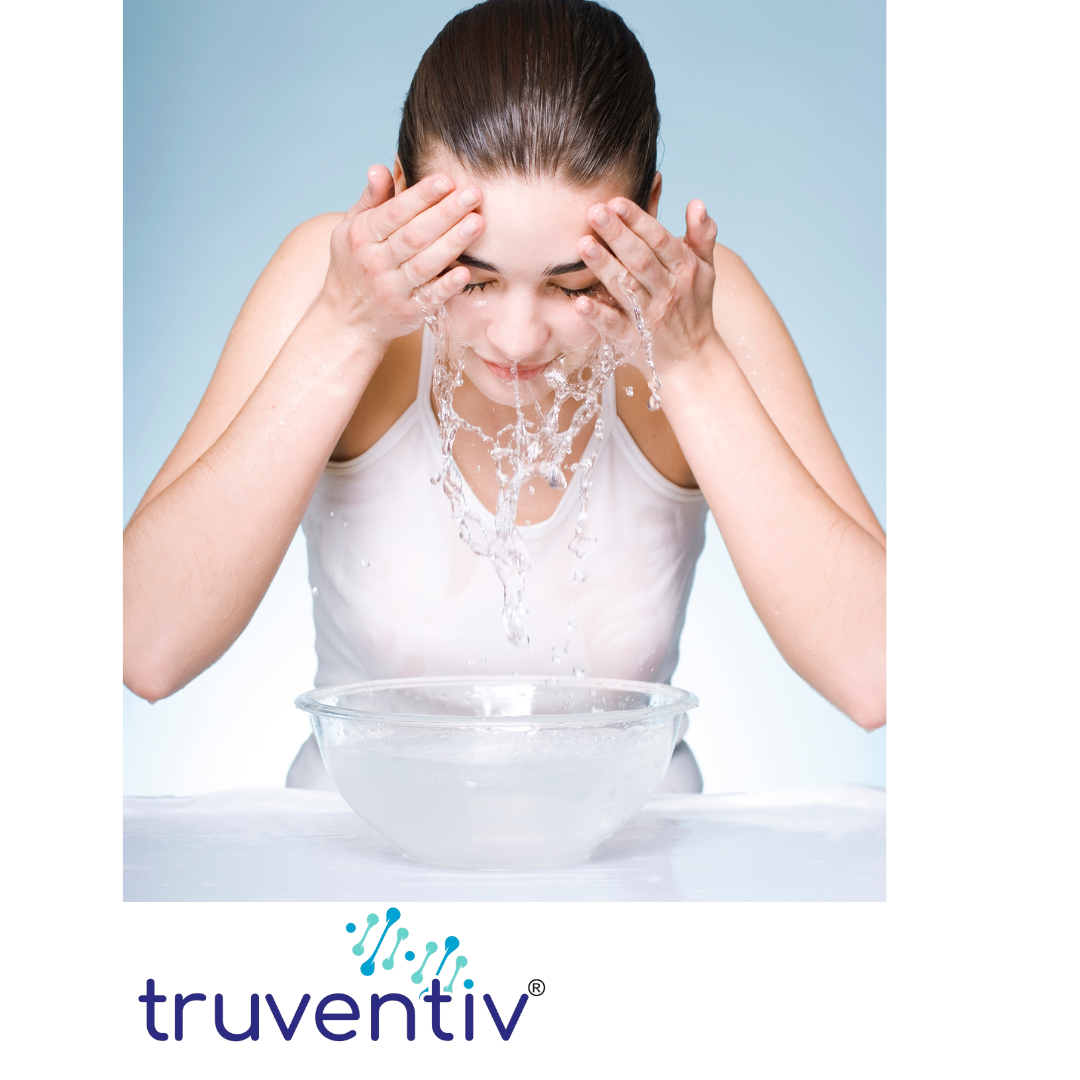
Water (Aqua) plays an essential role in supporting the skin's natural processes and health. While water itself doesn't have direct anti-inflammatory, anti-bacterial, or antiseptic properties, it contributes significantly to these functions by aiding the skin's ability to stay healthy and fight off inflammation and infections.
- Supports the Skin’s Protective Barrier (Anti-inflammatory)
Water helps maintain the skin’s protective barrier, which is crucial in preventing inflammation. A strong and well-hydrated skin barrier prevents irritants, allergens, and pollutants from penetrating, reducing the chances of triggering inflammatory responses like redness, swelling, and sensitivity.
- Reduces Skin Irritation: When the skin is adequately hydrated, it is less likely to become inflamed due to external stressors like weather, pollution, or allergens.
- Prevents Dryness-Induced Inflammation: Dehydration often leads to irritated and inflamed skin. By keeping the skin hydrated, water helps reduce these inflammatory conditions and supports a calm and balanced complexion.
- Hydrates the Skin and Promotes Healing (Anti-inflammatory)
Hydration is crucial for maintaining the skin's healing process, especially when dealing with inflammation or injury. When the skin is well-hydrated, it can heal more quickly, reducing the time spent in an inflamed state.
- Faster Recovery from Inflammation: Water promotes the healing of inflamed skin by providing the moisture needed to rebuild skin cells and support tissue regeneration.
- Relieves Skin Redness: Proper hydration helps reduce inflammation-related redness, soothing irritated areas and returning the skin to its normal state.
- Flushes Out Toxins (Anti-inflammatory)
Drinking plenty of water helps detoxify the body, flushing out toxins that can cause inflammation. This is especially important for reducing internal inflammatory conditions that can show up as acne or other skin irritations.
- Reduces Internal Inflammation: Water aids in eliminating waste and harmful substances from the body, helping to reduce overall inflammation that may manifest on the skin.
- Improves Skin Clarity: By supporting detoxification, water helps reduce the appearance of inflammatory conditions like acne and breakouts, promoting a clearer complexion.
- Supports Immune Function (Anti-bacterial & Anti-septic)
Hydration supports the immune system, allowing it to function optimally and protect the body from bacterial infections and pathogens. A well-hydrated body is better equipped to fight off harmful bacteria that may try to penetrate the skin.
- Strengthens Immune Defense: Proper hydration supports immune cells in their function to fight off infections, keeping bacteria from proliferating on the skin's surface.
- Prevents Infection: A healthy, hydrated skin barrier acts as the first line of defense against bacteria, preventing infections like acne, rashes, or wounds from becoming infected.
- Regulates Skin’s pH and Oil Production (Anti-bacterial)
When the skin is dehydrated, it often produces more oil to compensate, which can clog pores and create an environment conducive to bacterial growth. Water helps maintain the skin’s natural pH balance, which keeps oil production in check and prevents bacteria from thriving.
- Controls Excess Oil: Water helps balance the skin’s oil production, preventing excessive sebum, which can contribute to acne and bacterial growth.
- Maintains pH Balance: Hydrated skin has a balanced pH that is less hospitable to harmful bacteria, keeping the skin’s microbiome healthy and protected.
- Reduces Acne and Inflammatory Skin Conditions (Anti-inflammatory)
Hydrated skin is more resilient against conditions that cause inflammation, such as acne and rosacea. By maintaining proper moisture levels, the skin can better handle inflammatory responses that trigger breakouts or flare-ups.
- Soothes Acne Inflammation: Proper hydration helps reduce the swelling, redness, and discomfort associated with acne, allowing the skin to heal faster.
- Minimizes Rosacea Flare-ups: Keeping the skin hydrated can help reduce flare-ups of conditions like rosacea, which is often exacerbated by dryness and dehydration.
- Supports Wound Healing (Anti-bacterial & Anti-septic)
Hydrated skin is better able to repair itself, including when it has suffered a minor wound or irritation. When a wound is properly hydrated, it reduces the chances of infection and speeds up the healing process, preventing bacterial growth on open or irritated skin.
- Prevents Infection: Water keeps the skin moist, which is key in preventing scabs from becoming too dry or cracked, reducing the likelihood of bacteria entering the wound.
- Promotes Faster Healing: Hydration is essential for the skin to rebuild and regenerate, ensuring that minor cuts and wounds heal faster without becoming infected.
- Prevents Over-drying and Cracking (Anti-septic)
When skin becomes dehydrated, it can crack or become rough, which provides entry points for bacteria to infiltrate. Water helps maintain skin elasticity and moisture, reducing the chance of cracks and fissures that could lead to infection.
- Prevents Skin Cracking: Proper hydration prevents dryness-induced cracks in the skin, which could otherwise allow bacteria to enter.
- Keeps Skin Smooth and Healthy: Hydrated skin is less prone to abrasions or rough patches that might lead to bacterial infections.
- Improves Skin’s Microbiome (Anti-bacterial & Anti-septic)
A healthy skin microbiome is crucial for preventing harmful bacteria from taking over. Water helps maintain the balance of the skin's natural bacteria, keeping beneficial microbes in check and protecting the skin from harmful infections.
- Supports Healthy Bacteria: Proper hydration supports the growth of beneficial bacteria, which helps protect the skin from harmful pathogens that could cause infections.
- Promotes Antimicrobial Defense: By maintaining a balanced microbiome, water helps the skin defend against harmful microbes, reducing the risk of bacterial infections.
- Soothes Skin (Anti-inflammatory & Anti-septic)
Hydrated skin is less likely to experience the irritation, redness, or discomfort often associated with inflammation. By keeping the skin moist and supple, water helps soothe irritation and prevents further inflammation or infection from occurring.
- Reduces Redness and Swelling: Hydration reduces the appearance of inflamed skin, helping to calm irritation and promote a more even skin tone.
Prevents Skin Damage: Moisturizing the skin with water reduces its vulnerability
HOW AQUA HELPS IN REDUCES REDNESS & BLEMISHES
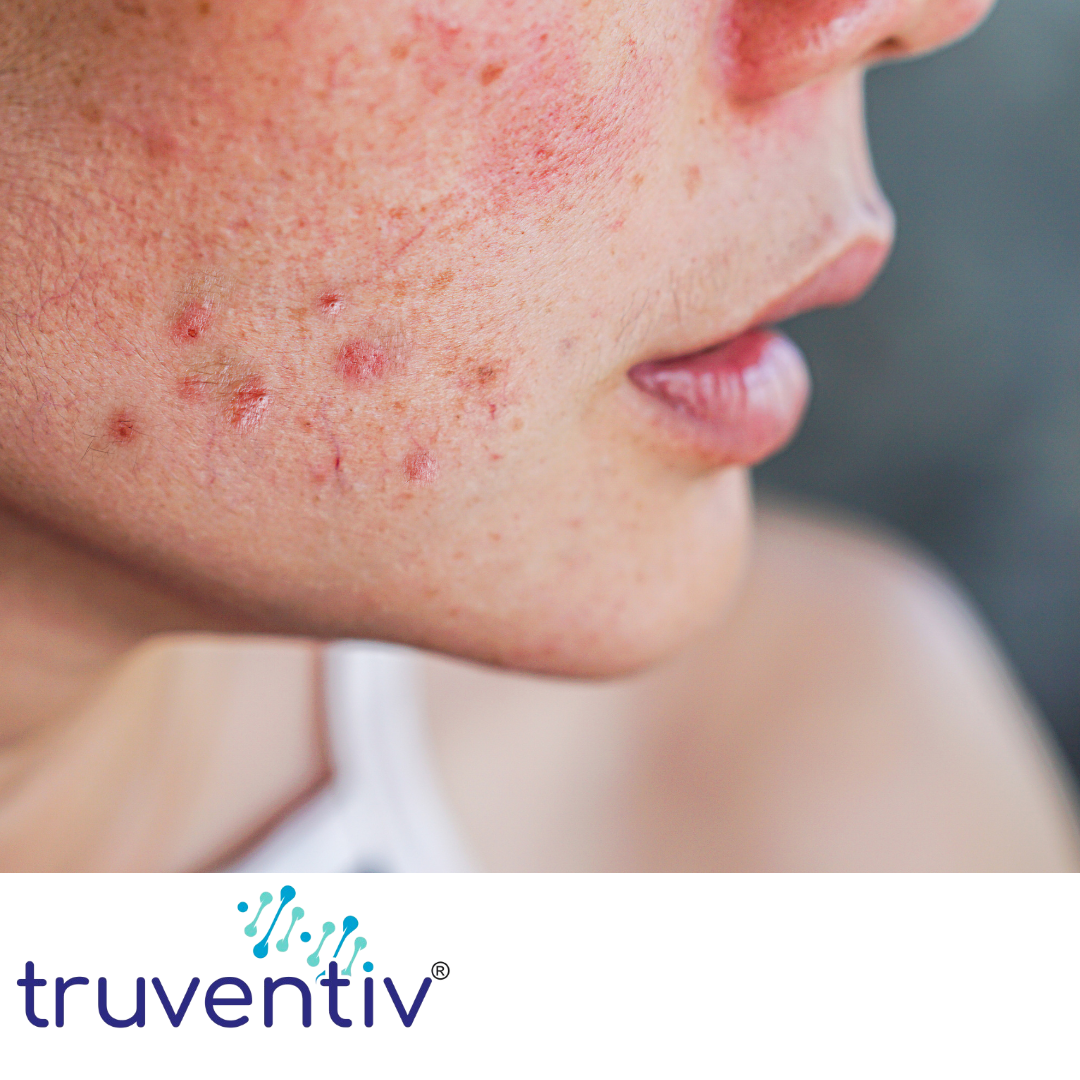
Water (Aqua) plays an important role in maintaining healthy, clear skin, which can help reduce redness and blemishes. While water doesn’t directly target blemishes, its overall benefits significantly improve skin health, addressing some of the root causes of redness and imperfections.
- Hydrates the Skin and Reduces Inflammation (Reduces Redness)
Proper hydration helps calm skin irritation and inflammation, which are often the causes of redness. When skin is dehydrated, it becomes more sensitive and reactive to environmental stressors, which can lead to redness and flare-ups.
- Calms Inflammation: Hydrated skin has a stronger barrier function, which reduces sensitivity and irritation that can cause redness, particularly in conditions like rosacea, acne, or other inflammatory skin issues.
- Lessens Redness: When the skin is properly hydrated, it’s less likely to become inflamed, helping to reduce the appearance of redness from irritation, breakouts, or environmental stress.
- Supports Skin Repair (Reduces Blemishes)
Water supports the skin’s ability to regenerate and repair itself. By maintaining proper hydration, the skin can heal faster from blemishes, scars, and other imperfections.
- Promotes Healing: Hydration aids in the repair of damaged skin cells and promotes faster healing of acne scars or blemishes, leading to a clearer complexion.
- Reduces Post-Blemish Redness: When blemishes heal, water helps maintain moisture in the skin, reducing the chance of redness lingering after the blemish has cleared.
- Improves Circulation (Reduces Redness)
Water aids in improving blood circulation, which helps nourish skin cells and remove toxins. Improved circulation means that skin cells get the nutrients and oxygen they need to function at their best, reducing the appearance of redness.
- Promotes Healthy Blood Flow: By improving circulation, water helps deliver oxygen and nutrients to skin cells, allowing the skin to recover from redness or irritation.
- Reduces Dilated Blood Vessels: Hydration helps reduce blood vessel dilation, which can contribute to the redness seen in conditions like rosacea or acne.
- Balances Oil Production (Reduces Blemishes)
Dehydrated skin can overcompensate by producing excess oil (sebum), which can clog pores and lead to the development of blemishes like acne. Proper hydration helps balance oil production and prevent clogged pores.
- Prevents Acne Breakouts: By keeping skin hydrated, you help regulate sebum production, reducing the risk of breakouts and blemishes.
- Keeps Pores Clear: Water helps keep pores clear of excess oil and debris, which can lead to clogged pores and the formation of blemishes.
- Supports Skin’s Natural Barrier (Prevents Redness and Blemishes)
The skin’s barrier function is essential for protecting it from external irritants and harmful bacteria. Water helps strengthen the skin's protective barrier, making it less prone to inflammation, redness, and infections that can cause blemishes.
- Protects Against Irritants: A well-hydrated skin barrier is more resistant to external irritants like pollutants, allergens, and bacteria, which can trigger redness or lead to blemishes.
- Prevents Breakouts: Hydration supports the skin’s ability to prevent the infiltration of bacteria and pollutants, which are common causes of acne and blemishes.
- Detoxifies the Skin (Reduces Blemishes)
Drinking enough water helps flush out toxins from the body, which can help reduce the appearance of blemishes, acne, or skin irritation. These toxins can contribute to clogged pores, inflammation, and breakouts.
- Clears Skin Impurities: Proper hydration helps flush out toxins from the body and skin, reducing the likelihood of blemishes and promoting clearer, healthier skin.
- Supports Skin Health: By aiding in the elimination of toxins through sweat and urine, water helps reduce skin congestion and inflammation, contributing to a smoother complexion.
- Improves Skin Texture (Reduces Blemishes)
Water helps the skin retain moisture, improving its texture and making it appear smoother. When skin is well-hydrated, it’s less likely to appear rough, uneven, or textured, which can be a cause of redness or blemishes.
- Promotes Smooth, Even Skin: Hydrated skin tends to have a more even texture, making blemishes and scars less noticeable.
- Reduces Skin Tightness and Roughness: Well-hydrated skin feels more supple and plump, reducing the appearance of rough patches that can contribute to redness.
- Soothes Skin Sensitivity (Reduces Redness)
Hydrated skin is less sensitive to external factors like extreme temperatures, harsh chemicals, or over-exfoliation. This reduces the likelihood of redness due to irritation or allergic reactions.
- Soothes Irritated Skin: Hydration helps to calm sensitive or reactive skin, reducing the chances of redness caused by external aggressors.
- Reduces Reaction to Skincare Products: Proper hydration can help skin tolerate active ingredients in skincare products better, preventing redness and irritation caused by harsh formulations.
- Supports Healthy Skin Microbiome (Reduces Blemishes)
The skin’s microbiome is a delicate balance of bacteria that helps protect against harmful microorganisms. Hydration supports a healthy microbiome, which can prevent bacterial imbalances that lead to breakouts and blemishes.
- Fosters a Healthy Microbiome: Proper hydration helps maintain a balanced microbiome, preventing the overgrowth of harmful bacteria that can cause acne or other blemishes.
- Prevents Infections: A hydrated skin barrier acts as a defense against pathogens that could cause infections, reducing the likelihood of blemishes developing into more serious skin concerns.
- Reduces Skin Dryness (Reduces Redness)
Dry skin is more prone to irritation, redness, and discomfort. Water helps maintain moisture in the skin, preventing dryness and minimizing the risk of red, irritated patches that can develop into blemishes.
- Prevents Flaky, Red Skin: Hydrated skin is less likely to become flaky or dry, which helps reduce redness and irritation caused by dehydration.
- Keeps Skin Plump and Moisturized: Moist skin is less likely to become inflamed or irritated, which helps reduce the appearance of redness and blemishes.
HOW AQUA HELPS IN CALMS SKIN CONDITION LIKE ECZEMA, ROSACEA & PSORIASIS
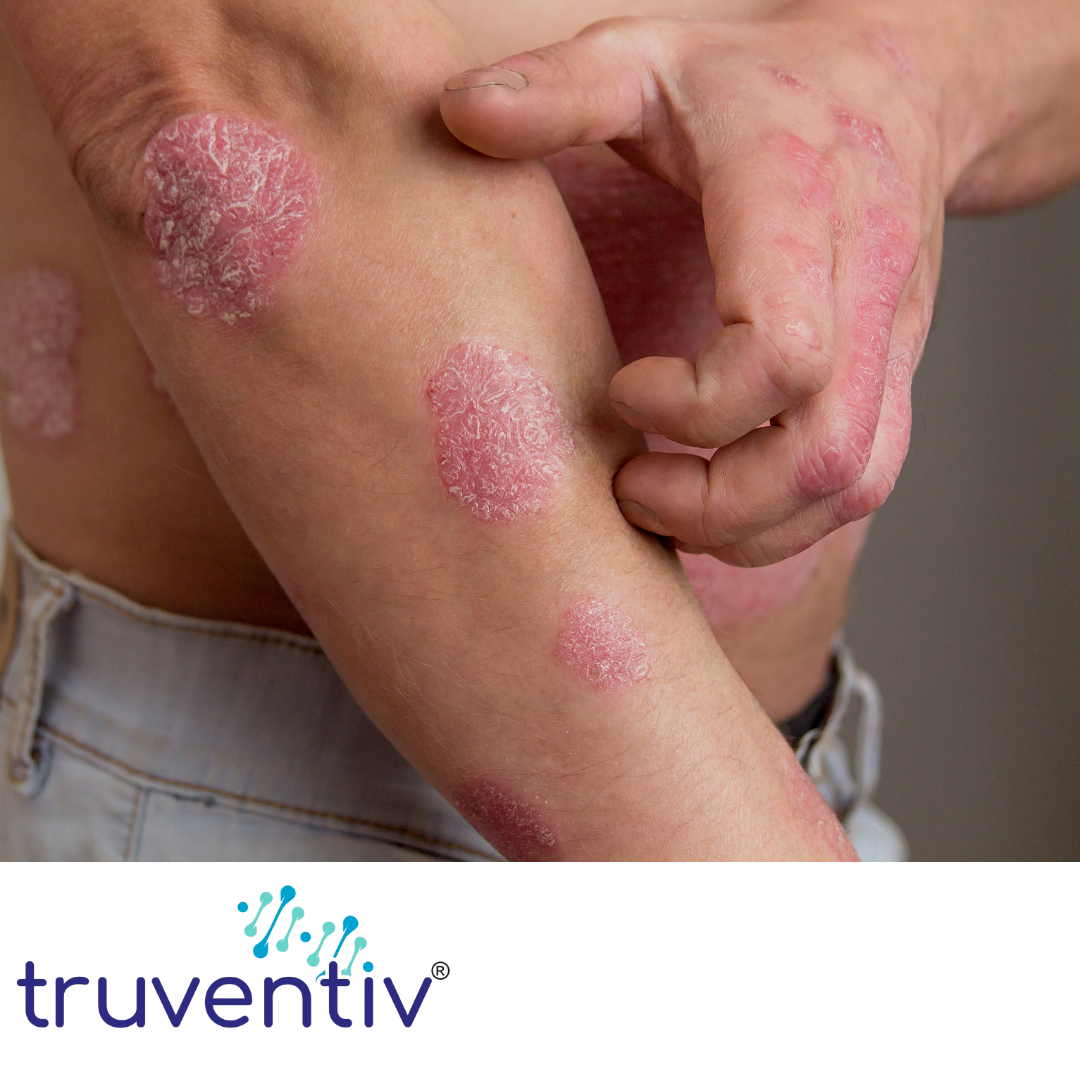
Water (Aqua) plays an essential role in calming and soothing skin conditions such as eczema, rosacea, and psoriasis. While water itself does not treat these conditions directly, it supports the skin's ability to maintain moisture, repair the skin barrier, and regulate inflammation—key aspects that are often disrupted in these conditions.
- Hydrates the Skin and Reduces Dryness
One of the common characteristics of conditions like eczema, rosacea, and psoriasis is dry, flaky skin. Dehydration exacerbates these conditions, leading to more irritation, itching, and inflammation. Adequate hydration helps prevent dry skin, which is crucial for managing these conditions.
- Relieves Dryness and Itchiness: Eczema and psoriasis, in particular, cause dry, cracked skin, leading to intense itching. Water helps maintain the skin's moisture balance, reducing itching and discomfort.
- Maintains Skin Barrier Function: Keeping the skin hydrated strengthens the skin’s natural barrier, making it more resistant to irritants and reducing the chance of flare-ups.
- Soothes Skin Inflammation (Calms Rosacea and Eczema)
Conditions like rosacea and eczema are characterized by inflammation and redness. Hydration helps reduce this inflammation by maintaining the skin’s moisture levels and supporting the natural healing process.
- Reduces Redness: Hydrated skin is less prone to redness and inflammation, which is particularly important for rosacea, where blood vessels in the skin often dilate, leading to visible redness. Water helps reduce this effect.
- Calms Skin Flare-ups: For eczema and psoriasis, dehydration can worsen flare-ups. Hydrating the skin reduces inflammation, making flare-ups less intense and more manageable.
- Improves the Skin's Healing Process
Water supports the healing of irritated and inflamed skin. For conditions like eczema, rosacea, and psoriasis, where skin barrier dysfunction is common, hydration helps the skin repair itself more efficiently.
- Speeds Up Skin Regeneration: Hydrated skin is better able to regenerate and repair damaged tissue. This is especially helpful for eczema and psoriasis, where the skin often becomes thickened, cracked, or scaly.
- Enhances Skin Repair: Water helps maintain a healthy skin environment that supports cellular turnover, helping the skin heal faster and reducing the appearance of flare-ups.
- Supports the Skin’s Protective Barrier
A compromised skin barrier is a key factor in skin conditions like eczema, psoriasis, and rosacea. Hydration helps keep the skin’s barrier intact, which helps prevent irritants and allergens from entering and triggering inflammation.
- Strengthens the Skin Barrier: When the skin is hydrated, it is better able to retain moisture and protect against external aggressors, such as pollutants, allergens, and bacteria, which can exacerbate eczema, rosacea, and psoriasis.
- Prevents External Irritants: A healthy barrier helps protect the skin from the external factors that often trigger flare-ups of eczema, rosacea, and psoriasis, such as harsh weather, pollution, or certain skincare products.
- Reduces Skin Sensitivity
Conditions like rosacea often cause heightened skin sensitivity, where the skin becomes more reactive to stimuli. Keeping the skin hydrated helps maintain its resilience and tolerance to external factors, reducing sensitivity.
- Soothe Sensitive Skin: Adequate hydration helps calm irritated skin and makes it less likely to react strongly to external triggers like spicy food, temperature changes, or stress, which can worsen rosacea and eczema.
- Helps Tolerate Skincare Products: Hydrated skin is more likely to tolerate therapeutic creams or other treatments for eczema, rosacea, or psoriasis, making it less sensitive to potentially harsh ingredients.
- Regulates Skin Temperature (Important for Rosacea)
In rosacea, the skin often experiences episodes of flushing due to temperature changes. Drinking water and keeping the skin hydrated can help maintain an even skin temperature, preventing excessive redness and irritation.
- Prevents Overheating: Staying hydrated helps regulate body temperature, which can reduce the likelihood of flare-ups of rosacea caused by overheating or sweating.
- Calms Heat-Induced Flushing: Adequate hydration may help cool the skin down during rosacea flare-ups triggered by heat or stress, reducing redness and discomfort.
- Enhances Skin’s Ability to Absorb Moisturizers (Helps with Eczema and Psoriasis)
In conditions like eczema and psoriasis, moisturizers are a key part of treatment. Water helps create a hydrated environment, allowing moisturizers to penetrate more effectively into the skin, providing deeper hydration.
- Enhances Moisturizer Effectiveness: When the skin is well-hydrated, it can better absorb and retain the benefits of moisturizers and topical treatments, which are critical in managing eczema and psoriasis.
- Prevents Dry, Scaly Patches: For psoriasis, where thickened, scaly patches are common, hydration can soften these areas, allowing for more effective treatment application.
- Detoxifies the Body (Helps with Psoriasis and Eczema)
Water plays an important role in detoxification by helping the body flush out waste products and toxins. For people with psoriasis and eczema, which may be exacerbated by internal inflammation, water helps eliminate toxins that can contribute to flare-ups.
- Flushes Out Toxins: Drinking plenty of water helps flush out toxins from the body that could worsen skin conditions, particularly psoriasis, where internal inflammation can affect the skin.
- Reduces Inflammation: By helping eliminate waste, water reduces internal inflammation, which may have a positive effect on the skin, alleviating some of the symptoms of eczema and psoriasis.
- Prevents Cracking and Infection
In conditions like eczema and psoriasis, skin can become cracked or open, making it more susceptible to infection. Hydrated skin is less likely to crack and can better fight off infections, which are common complications of these conditions.
- Keeps Skin Elastic: Proper hydration helps the skin stay flexible and less likely to crack, which can prevent infections that may worsen eczema or psoriasis.
- Reduces Risk of Infections: By preventing cracking and dryness, water helps reduce the risk of bacterial or fungal infections, which can complicate skin conditions.
- Improves Overall Skin Appearance
Keeping the skin hydrated improves its overall texture, elasticity, and tone. For people with eczema, rosacea, or psoriasis, maintaining good hydration can make the skin look smoother and healthier, reducing the appearance of dry patches, redness, and flakiness.
- Smoother Skin: Hydrated skin looks smoother and less scaly, improving the overall appearance of conditions like psoriasis, which often causes thick, rough patches.
- Improves Skin Texture: Hydration helps reduce the rough texture that often accompanies eczema, leading to smoother, more comfortable skin.
HOW AQUA HELPS IN ANTI-ACNE & PIMPLE
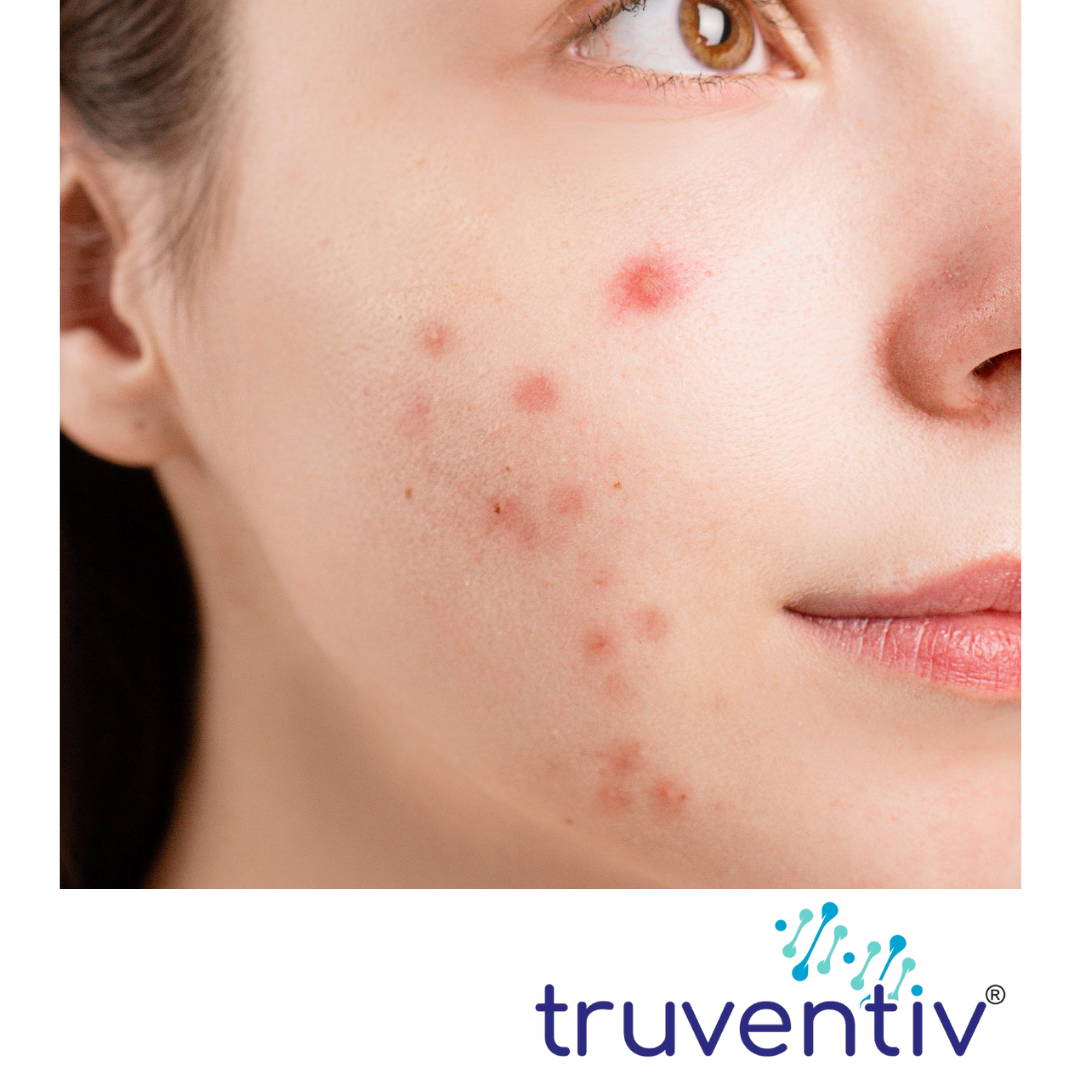
Water (Aqua) plays a crucial role in supporting healthy skin and helps manage conditions like acne and pimples. While water itself doesn't directly treat acne, it supports a range of skin functions that help prevent and reduce acne breakouts, keeping the skin balanced and reducing inflammation.
- Hydrates the Skin and Prevents Dryness
One of the triggers for acne can be dehydrated skin, which may lead to excess oil production. When the skin is dry, it compensates by producing more oil (sebum), which can clog pores and contribute to breakouts.
- Balances Oil Production: Proper hydration helps maintain the skin's moisture levels, preventing the skin from becoming too oily or too dry. When skin is well-hydrated, it is less likely to overproduce oil, which can help reduce acne.
- Prevents Clogged Pores: Hydrated skin is less likely to develop dry, flaky patches that can clog pores. This helps prevent acne-causing blockages in hair follicles.
- Flushes Out Toxins (Helps with Detoxification)
Drinking plenty of water supports your body’s natural detoxification processes. Toxins and waste products from digestion and metabolism can build up and contribute to acne by causing internal inflammation, leading to breakouts.
- Clears Toxins: Water helps the kidneys and liver flush out toxins and waste products from the body, which may reduce the burden on your skin and prevent acne flare-ups.
- Reduces Inflammation: By supporting detoxification, water helps reduce internal inflammation, which can contribute to acne development, especially for cystic acne or breakouts caused by hormonal imbalances.
- Improves Skin’s Healing and Recovery
For people with acne, the skin often needs to heal from breakouts, scars, and inflammation. Proper hydration helps speed up the healing process and ensures that skin repairs itself effectively.
- Promotes Skin Regeneration: Hydrated skin is better equipped to repair itself, which is important for recovering from pimples and preventing scarring.
- Reduces Post-Acne Redness: Water helps reduce redness and irritation after a breakout, speeding up the healing process and reducing the time acne scars stay visible.
- Maintains Skin’s Natural Barrier
A healthy skin barrier is essential for protecting the skin from irritants, bacteria, and pollutants, which are common acne triggers. Water helps maintain the skin’s barrier function by ensuring it stays properly moisturized.
- Strengthens Skin Defense: Proper hydration helps maintain the skin’s protective barrier, which makes it less susceptible to external factors that can trigger acne, such as pollution, bacteria, or harsh chemicals.
- Prevents Bacterial Growth: By strengthening the barrier, water helps prevent harmful bacteria from entering the skin and causing breakouts, especially for individuals with acne-prone skin.
- Balances pH Levels
The skin’s natural pH is crucial for preventing the growth of acne-causing bacteria. When the skin is too dry or too oily, its pH balance may be disrupted, leading to more breakouts. Hydration helps maintain a healthy pH level.
- Supports Healthy pH: Drinking water helps maintain the skin's natural pH, which is typically slightly acidic and prevents the overgrowth of bacteria like P. acnes (acne-causing bacteria).
- Reduces Bacterial Growth: When the skin’s pH is balanced, it can better resist the growth of acne-causing bacteria, leading to fewer breakouts.
- Reduces Inflammation and Swelling (Prevents Acne Flare-ups)
Many types of acne, including inflammatory acne, involve swelling and redness. Hydrated skin is less likely to become irritated or inflamed, helping to reduce the severity of acne flare-ups.
- Reduces Inflammation: Hydration helps calm inflammation in the skin, which can reduce the size and severity of pimples, cysts, and pustules.
- Prevents Swelling: When the skin is well-hydrated, it is less prone to swelling around pimples or cysts, leading to a clearer and less irritated complexion.
- Improves Circulation and Detoxification (Reduces Acne-Causing Inflammation)
Good blood circulation is essential for delivering nutrients to skin cells and removing waste products. Water helps improve circulation, which can support better skin health and reduce acne-related inflammation.
- Enhances Blood Flow: Adequate hydration helps increase blood flow to the skin, bringing oxygen and nutrients that promote healthy skin function and reduce inflammation associated with acne.
- Detoxifies the Skin: Proper circulation helps remove toxins and waste products from the skin, which can reduce inflammation and prevent acne breakouts.
- Balances Hormones
While water doesn’t directly regulate hormone levels, staying hydrated can indirectly support the body’s hormonal balance, particularly in conditions like hormonal acne, which often occurs around the chin or jawline.
- Supports Hormonal Health: Hydration helps regulate bodily processes, including those that impact hormone levels, which can help manage hormonal acne flare-ups, especially in people with conditions like polycystic ovary syndrome (PCOS).
- Reduces Acne Triggered by Hormonal Imbalances: Staying hydrated can also help with the body’s stress response, reducing stress hormones like cortisol that can lead to acne breakouts.
- Keeps Skin Soft and Smooth
Water helps maintain the skin’s smooth texture and prevents it from becoming rough, dry, or irritated, which can worsen acne. Dry, rough skin can lead to clogged pores and acne breakouts.
- Prevents Dry, Flaky Skin: Dehydrated skin often becomes flaky, which can trap oil and dirt in the pores, leading to breakouts. Hydration helps prevent this and keeps the skin’s surface smooth.
- Prevents Excess Oil: When skin is hydrated, it doesn’t need to produce as much oil to compensate for dryness, which helps keep the skin’s oil production balanced and minimizes acne risk.
- Regulates Sweating and Oil Production
Water helps regulate sweat and oil production. Sweat can mix with oil and dirt on the skin, clogging pores and leading to acne. Hydrated skin tends to produce less excessive sweat and oil, reducing the risk of clogged pores and breakouts.
- Regulates Oil Production: When the skin is hydrated, oil production is more regulated and not overproduced, reducing the chances of clogged pores and acne development.
- Prevents Pore Blockage: Proper hydration helps ensure that sweat and oil don’t mix into clogged pores, which is a common cause of acne.
- Reduces Stress (Indirect Acne Control)
Stress is a well-known factor that can worsen acne, especially in hormonally driven cases. Drinking water helps the body manage stress and maintain a more balanced system.
- Reduces Cortisol Levels: Staying hydrated helps manage cortisol levels, the hormone responsible for stress, which can worsen acne outbreaks.
- Helps with Stress Management: Drinking water can promote relaxation and better overall well-being, which may help prevent acne caused or exacerbated by stress.
HOW CAPRYLIC CAPRIC TRIGLYCERIDE HELPS IN FOR NATURAL GLOWING SKIN

Caprylic/Capric Triglyceride (often derived from coconut oil or palm kernel oil) is a skin-conditioning agent widely used in skincare for its nourishing and moisturizing properties.
- Provides Deep Moisture
Caprylic/Capric Triglyceride is a lightweight and non-greasy moisturizer that helps hydrate the skin by forming a barrier that locks in moisture. It doesn't just sit on top of the skin like some other moisturizers but helps absorb into the skin, providing long-lasting hydration. This moisture boost is essential for plump and radiant skin.
- Hydrates Skin Deeply: By improving the skin’s ability to retain moisture, it helps keep the skin from feeling dry or flaky, which is crucial for a glowing complexion.
- Softens the Skin: Regular use helps soften rough, dry patches of skin, leading to a smoother texture and a more youthful, glowing appearance.
- Balances Oil Production
For those with oily or combination skin, Caprylic/Capric Triglyceride can help regulate oil production. It’s lightweight and non-comedogenic (won’t clog pores), so it doesn’t cause breakouts or greasy skin but helps maintain balanced hydration levels.
- Controls Excess Oil: It balances oil production without making the skin feel too greasy or overly dry, leading to a healthy, natural glow instead of shine or dullness.
- Suitable for All Skin Types: Whether your skin is dry, oily, or combination, this ingredient helps maintain the optimal hydration balance needed for healthy, glowing skin.
- Improves Skin Barrier Function
Caprylic/Capric Triglyceride helps strengthen the skin’s natural barrier by preventing moisture loss and protecting the skin from environmental irritants. A healthy, intact skin barrier leads to clearer, smoother, and more radiant skin.
- Protects from Irritants: It provides a protective layer that defends against pollutants and irritants, which can lead to dull skin.
- Supports Skin Health: By keeping the skin barrier intact, it prevents dehydration and external damage, promoting a naturally glowing complexion.
- Promotes Skin Renewal
It enhances the absorption of other beneficial ingredients in your skincare products, improving the effectiveness of serums, moisturizers, or oils. This can help boost overall skin regeneration, revealing a fresher and more glowing skin surface.
- Improves Product Efficacy: As a skin-penetrating carrier, it ensures that other active ingredients reach deeper layers of the skin, promoting more noticeable radiance and healthier skin over time.
- Gentle and Non-Irritating
Caprylic/Capric Triglyceride is considered very mild and soothing for the skin. It’s a gentle, non-irritating ingredient, making it suitable even for sensitive skin prone to redness or irritation.
- Reduces Inflammation: By keeping the skin hydrated and calm, it reduces the risk of irritation, dryness, or redness, allowing the skin’s natural radiance to shine through without irritation.
- Soothes Skin: It’s effective in helping soothe skin conditions such as inflammation or irritation, which helps restore a more even-toned, glowing complexion.
- Improves Skin Texture
Caprylic/Capric Triglyceride helps to improve the smoothness and softness of the skin by filling in fine lines and rough patches. When your skin feels soft and smooth, it reflects light better, contributing to a dewy, glowing look.
- Smoothens Skin: It works to soften the skin’s surface, which in turn helps to reduce the appearance of roughness or texture imbalances that can dull the skin.
- Plumps the Skin: Hydration and skin texture improvement work together to make the skin appear more youthful, plump, and glowing.
- Enhances Skin's Natural Glow
By nourishing and maintaining optimal moisture levels, Caprylic/Capric Triglyceride allows your skin to reflect light more effectively, giving you a healthy, natural glow.
- Supports Healthy Glow: Proper moisture levels help the skin look radiant and vibrant, making it appear healthier and more glowing.
- Prevents Dryness: Dry, dull skin often lacks that natural radiance, but with adequate hydration, your skin will appear dewy and glowing, even without makeup.
- Acts as a Natural Emollient
This ingredient has emollient properties, which means it softens and smooths the skin by filling the gaps between skin cells. This process creates a glowing, well-moisturized surface that feels velvety and appears radiant.
- Improves Skin Feel and Look: With its emollient properties, Caprylic/Capric Triglyceride makes the skin feel smoother and more supple, helping it reflect light more evenly for a healthy glow.
HOW CAPRYLIC CAPRIC TRIGLYCERIDE HELPS IN IMPROVES OVERALL DERMAL HEALTH

Caprylic/Capric Triglyceride (often derived from coconut oil or palm kernel oil) is a beneficial ingredient in skincare that contributes to overall dermal health by offering a variety of hydrating, soothing, and barrier-enhancing effects.
- Hydrates the Skin
Caprylic/Capric Triglyceride is an emollient and moisturizer, which means it helps keep the skin hydrated by locking in moisture and preventing water loss. It penetrates the skin’s outer layers, providing long-lasting hydration and making the skin feel soft and supple.
- Supports Moisture Balance: Proper hydration is vital for skin function, including elasticity, regeneration, and protection against environmental stressors. This ingredient helps maintain the skin’s moisture levels, improving overall skin health.
- Prevents Dryness: By reducing transepidermal water loss (TEWL), it ensures that the skin stays hydrated without becoming dry, flaky, or rough.
- Strengthens the Skin Barrier
One of the most important roles of Caprylic/Capric Triglyceride is its ability to strengthen the skin's natural barrier. The skin barrier is essential for protecting the body from harmful pollutants, bacteria, and moisture loss. This triglyceride forms a light, non-greasy protective layer over the skin, helping to defend it against environmental aggressors.
- Supports Skin Protection: By keeping the skin hydrated and preventing moisture loss, Caprylic/Capric Triglyceride helps maintain a healthy and intact skin barrier, which is crucial for overall dermal health.
- Enhances Barrier Function: The barrier is better equipped to withstand external irritants, reducing the likelihood of skin issues such as sensitivity, irritation, or infections.
- Soothes and Calms Irritation
Caprylic/Capric Triglyceride has anti-inflammatory properties that can help soothe irritated skin. This makes it useful for those with sensitive skin or conditions like eczema, rosacea, or psoriasis. It helps calm redness and irritation, leading to improved skin comfort and a healthier appearance.
- Calms Inflammation: By soothing irritated skin, it reduces redness and swelling, helping the skin return to its natural, balanced state.
- Ideal for Sensitive Skin: Its mild nature makes it suitable for sensitive skin, offering gentle care without the risk of causing further irritation.
- Promotes Skin Regeneration
The ingredient helps promote skin renewal and regeneration by providing essential hydration and softening the skin’s texture. This is vital for maintaining healthy, youthful-looking skin. Hydrated skin is more effective at regenerating cells and repairing itself after damage, such as minor cuts, sun exposure, or environmental stress.
- Enhances Healing Process: Well-hydrated skin can repair itself faster, preventing the buildup of dead skin cells and encouraging healthy skin turnover.
- Improves Skin Texture: Caprylic/Capric Triglyceride smoothens the skin's surface by reducing rough patches, promoting an even skin tone and texture, and improving the overall appearance of the skin.
- Balances Oil Production
Caprylic/Capric Triglyceride helps maintain balanced oil production in the skin. It’s a lightweight, non-comedogenic ingredient that doesn’t clog pores, making it ideal for oily or acne-prone skin. By regulating oil levels, it prevents the skin from becoming too greasy, while still providing enough hydration.
- Regulates Sebum Production: For oily skin, it helps balance sebum (oil) levels, preventing excess oil that could contribute to clogged pores and acne breakouts.
- Maintains Moisture Without Overloading Skin: Even for oily skin types, Caprylic/Capric Triglyceride offers hydration without making the skin feel greasy, which is essential for optimal dermal health.
- Provides Antioxidant Protection
Caprylic/Capric Triglyceride has antioxidant properties, which can help protect the skin from free radicals—unstable molecules that cause oxidative stress and damage skin cells. These free radicals can accelerate aging, cause inflammation, and contribute to skin conditions like acne or pigmentation.
- Fights Oxidative Stress: By neutralizing free radicals, Caprylic/Capric Triglyceride helps reduce the skin’s exposure to oxidative stress, preventing premature aging and other skin issues.
- Protects Against Environmental Damage: It provides a layer of protection against pollution and environmental aggressors that could harm the skin’s overall health.
- Enhances Absorption of Other Active Ingredients
Caprylic/Capric Triglyceride acts as an effective carrier oil, which enhances the penetration of other beneficial ingredients into the skin. It helps deliver other active ingredients (like vitamins, peptides, or anti-aging compounds) deeper into the dermal layers for maximum benefit.
- Improves Product Efficacy: By enhancing the absorption of other nutrients and skincare actives, Caprylic/Capric Triglyceride ensures that the skin gets the full benefit of your skincare products, leading to healthier, more nourished skin.
- Supports Synergy in Skincare: Its role as a carrier oil ensures that the skin receives maximum nourishment and rejuvenation, improving overall dermal health.
- Prevents Premature Aging
The moisturizing and antioxidant properties of Caprylic/Capric Triglyceride contribute to preventing premature aging of the skin. Well-moisturized skin is less prone to the formation of fine lines, wrinkles, and sagging.
- Fights Early Signs of Aging: By keeping the skin hydrated and protected, it helps maintain a youthful appearance by preventing dryness, which is one of the main causes of premature aging.
- Reduces the Appearance of Fine Lines: By promoting skin hydration and elasticity, Caprylic/Capric Triglyceride helps minimize the appearance of fine lines and wrinkles.
- Supports Healthy Skin Tone
Caprylic/Capric Triglyceride contributes to an even skin tone by moisturizing and soothing the skin, helping it look balanced and radiant. Proper hydration also helps reduce the appearance of dark spots or uneven pigmentation caused by dryness.
- Improves Skin Tone and Texture: Hydrated skin appears more even and radiant, contributing to a healthy, glowing complexion.
- Reduces Hyperpigmentation: Regular hydration can help fade dark spots and hyperpigmentation, which may develop from dry, flaky skin or post-inflammatory marks.
HOW CAPRYLIC CAPRIC TRIGLYCERIDE HELPS IN ANTI-INFLAMMATION, ANTI-BACTERIAL , ANTISEPTIC
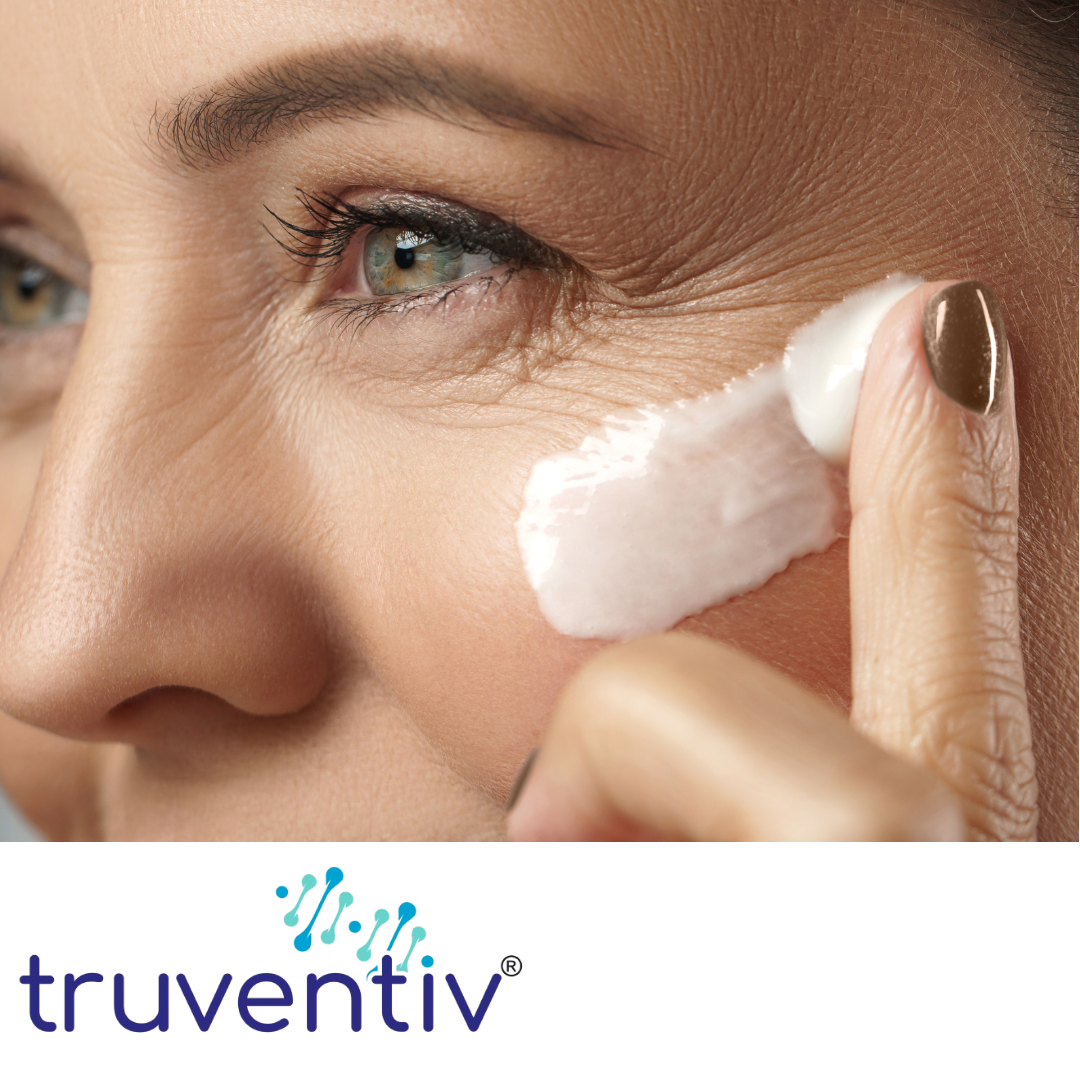
Caprylic/Capric Triglyceride (derived from coconut oil or palm kernel oil) is not only a great moisturizer, but it also possesses properties that help with anti-inflammatory, anti-bacterial, and anti-septic actions. These properties make it effective in maintaining skin health and addressing various skin issues.
- Anti-Inflammatory Benefits
Caprylic/Capric Triglyceride has mild anti-inflammatory properties that can help soothe irritated skin and reduce redness and swelling.
- Soothes Irritated Skin: It helps calm the skin by reducing inflammation, making it ideal for sensitive skin or conditions such as eczema, rosacea, and psoriasis.
- Reduces Redness: When the skin is inflamed, it often becomes red and swollen. Caprylic/Capric Triglyceride helps to calm this irritation and reduce visible redness, promoting more even-toned and healthier skin.
- Promotes Skin Healing: By reducing inflammation, it can contribute to faster healing of inflamed or damaged skin, helping the skin restore its natural state more quickly.
- Anti-Bacterial Properties
Caprylic/Capric Triglyceride is known to possess some anti-bacterial properties, which makes it effective in fighting bacterial infections that may cause acne, pimples, or other skin conditions.
- Prevents Acne: The triglyceride helps balance the skin’s oil levels without clogging pores. Its mild antibacterial properties also help prevent bacteria from growing and causing breakouts.
- Protects Against Infections: Its antibacterial action can help prevent bacterial overgrowth on the skin’s surface, reducing the risk of infections that can occur after skin injuries or during acne flare-ups.
- Cleanses the Skin: When used in skincare formulations, Caprylic/Capric Triglyceride can help cleanse the skin and minimize harmful bacteria that contribute to skin problems.
- Anti-Sepctic Effects
As an anti-septic, Caprylic/Capric Triglyceride can act as a mild agent that helps protect the skin from harmful microorganisms, bacteria, and viruses.
- Prevents Infections: It helps maintain a cleaner skin surface, which is vital for avoiding infections that can result from wounds, acne, or general skin irritation.
- Supports Skin Integrity: By maintaining the skin’s protective barrier, it assists in preventing potential infections caused by external contaminants, pollutants, or pathogens that might penetrate the skin.
- Promotes Skin Healing: Due to its anti-septic nature, it can be useful in aiding the healing of minor cuts or abrasions by preventing infections that could hinder the healing process.
- Protective Shield Against Environmental Stressors
Caprylic/Capric Triglyceride acts as a barrier to protect the skin from environmental aggressors like pollution, UV rays, and irritants. Its anti-inflammatory, antibacterial, and antiseptic properties work together to create a protective layer.
- Shielding from External Pollutants: It forms a barrier that helps shield the skin from exposure to pollutants and pathogens, reducing the potential for irritation or bacterial contamination.
- Promotes Healthy Skin Function: By maintaining an intact skin barrier and reducing inflammation or bacterial contamination, the skin can function more effectively and retain its natural balance.
- Calms Skin Conditions
Caprylic/Capric Triglyceride can be especially beneficial for managing chronic inflammatory skin conditions.
- Eczema and Psoriasis Relief: These conditions can cause inflamed, irritated, and dry skin. Caprylic/Capric Triglyceride helps by soothing the inflammation, reducing irritation, and providing essential moisture.
- Rosacea Treatment: Its anti-inflammatory and anti-bacterial properties can be helpful in managing rosacea, a condition marked by redness and visible blood vessels. It reduces irritation and may also prevent bacterial infections that could exacerbate symptoms.
- Mild Astringent and Anti-Fungal Benefits
While not as potent as some other substances, Caprylic/Capric Triglyceride has mild anti-fungal effects. This can help in managing minor fungal infections or conditions that thrive in warm, moist environments, like athlete’s foot or ringworm.
- Prevents Fungal Growth: By maintaining a clean, balanced skin environment, it can reduce the risk of fungal infections.
- Helps with Yeast Overgrowth: Its anti-fungal properties can help regulate the growth of yeast, such as Candida, which can sometimes cause skin irritation or infections.
- Balances Oil Production Without Clogging Pores
Caprylic/Capric Triglyceride helps control oil levels on the skin. This is important because excess oil can contribute to the growth of bacteria and inflammation, leading to acne or other skin conditions.
- Regulates Sebum: By balancing oil production, it prevents the overproduction of sebum (oil) that can trap bacteria and lead to acne breakouts.
- Prevents Clogged Pores: Its lightweight texture ensures that pores are not clogged, helping to maintain clear skin and reduce the chance of bacterial growth or inflammation in the pores.
HOW CAPRYLIC CAPRIC TRIGLYCERIDE HELPS IN REDUCES REDNESS & BLEMISHES
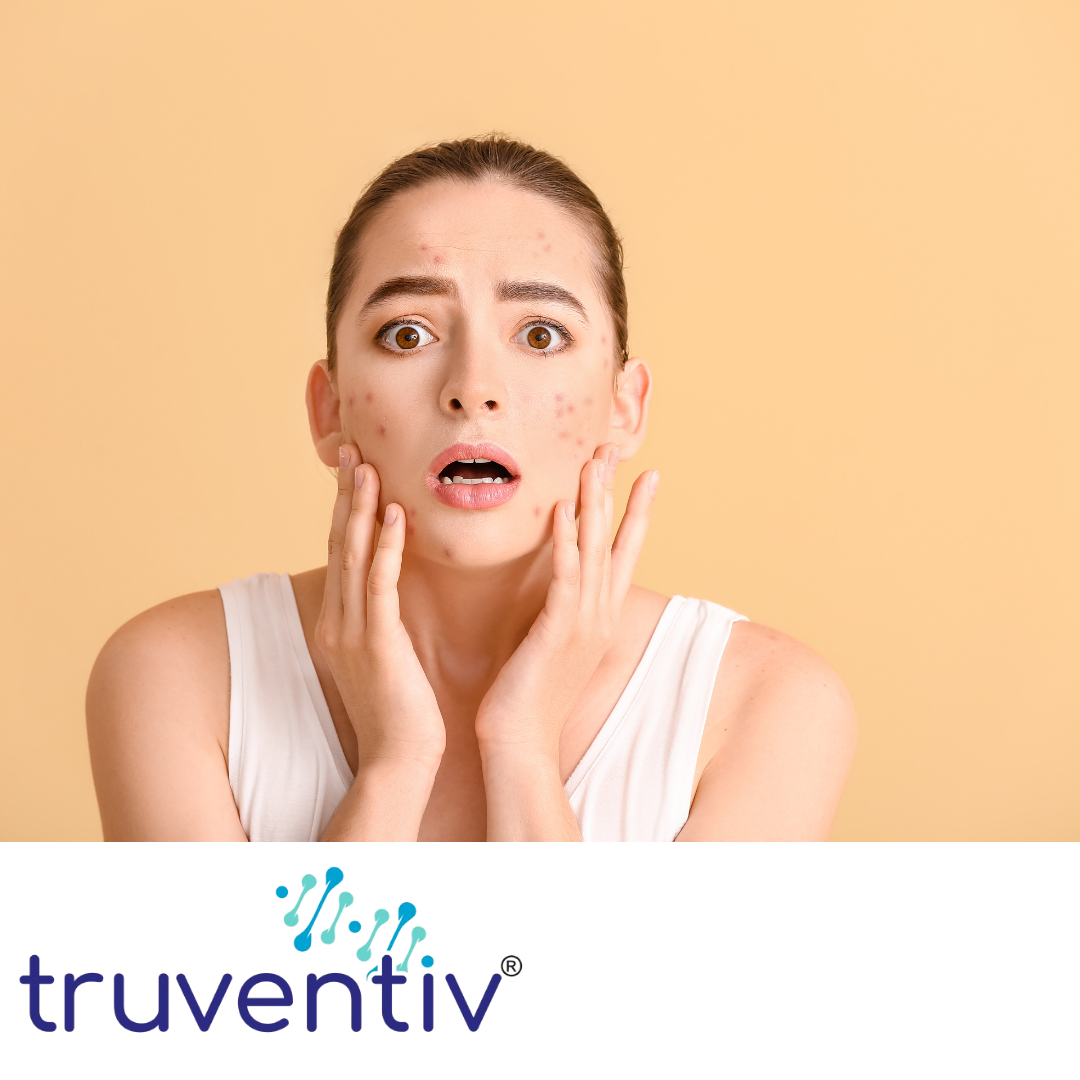
Caprylic/Capric Triglyceride can help reduce redness and blemishes on the skin due to its soothing, hydrating, and barrier-supporting properties.
- Soothes and Calms Irritation
Caprylic/Capric Triglyceride has anti-inflammatory properties that help soothe and calm irritated skin, reducing redness.
- Reduces Inflammation: It works to calm inflamed skin, which is a common cause of redness. By reducing inflammation, it helps to bring the skin back to its natural tone, improving overall appearance.
- Gentle on Sensitive Skin: Its mild nature makes it ideal for sensitive or irritated skin. It doesn't exacerbate redness or irritation, and in fact, helps to ease these symptoms by providing relief.
- Hydrates the Skin
Proper hydration is key to reducing redness and blemishes, as dry, flaky, or dehydrated skin can look more irritated and prone to irritation.
- Locks in Moisture: Caprylic/Capric Triglyceride forms a lightweight barrier that helps lock in moisture, keeping the skin hydrated and preventing further irritation or dryness, which could worsen redness.
- Improves Skin Texture: When the skin is properly hydrated, it appears more plump and healthy, with less noticeable redness. The smoother, more nourished skin can make blemishes and imperfections less prominent.
- Supports the Skin’s Natural Barrier
Caprylic/Capric Triglyceride helps strengthen the skin's natural barrier by providing a protective layer. A strong skin barrier is essential for preventing external irritants, pollutants, and bacteria from penetrating the skin and causing inflammation or infection.
- Prevents Irritation: A healthy barrier helps keep external factors (like environmental stressors or allergens) from triggering inflammation, which often leads to redness and irritation.
- Promotes Healing: A well-functioning skin barrier also helps skin heal more efficiently, reducing the appearance of blemishes and preventing new ones from forming.
- Reduces Blemishes (Including Acne)
Caprylic/Capric Triglyceride has mild anti-bacterial properties, which help fight off acne-causing bacteria, one of the primary culprits behind blemishes.
- Fights Acne: It can help prevent clogged pores by balancing oil production, which is important for reducing the formation of acne and pimples. By preventing bacterial growth, it reduces the likelihood of acne flare-ups and the redness associated with them.
- Clears Skin Surface: By keeping the skin clean and free from harmful bacteria, it prevents the development of new blemishes while allowing the skin to heal any existing ones.
- Helps with Post-Inflammatory Hyperpigmentation (PIH)
Blemishes often leave behind dark spots (post-inflammatory hyperpigmentation) once they heal, contributing to uneven skin tone. Caprylic/Capric Triglyceride can assist in the healing process by promoting skin regeneration and reducing the appearance of these dark spots.
- Improves Skin Regeneration: By keeping the skin hydrated and nourished, it supports skin renewal and helps fade dark spots over time, leading to a more even skin tone.
- Prevents Further Pigmentation: Hydrated, calm skin is less likely to develop additional pigmentation issues from irritation, which helps minimize the appearance of lingering blemishes.
- Promotes Even Skin Tone
Caprylic/Capric Triglyceride can help balance the skin tone by reducing the irritation and dryness that often lead to uneven pigmentation.
- Reduces Redness: As it calms inflammation and hydrates, it helps balance skin tone, diminishing the look of red, blotchy skin.
- Smooths Texture: Hydrated skin is smoother and more even, making blemishes less noticeable and promoting a clearer, healthier complexion.
- Improves Absorption of Other Skincare Ingredients
Caprylic/Capric Triglyceride enhances the absorption of other beneficial ingredients in your skincare routine, helping them work more effectively.
- Boosts Efficacy of Active Ingredients: If you’re using ingredients like vitamin C, niacinamide, or salicylic acid for pigmentation and blemish control, Caprylic/Capric Triglyceride can help them penetrate the skin more effectively, speeding up the healing process and reducing redness and blemishes more quickly.
HOW CAPRYLIC CAPRIC TRIGLYCERIDE HELPS IN CALMS SKIN CONDITIONS LIKE ECZEMA, ROSACEA & PSORIASIS
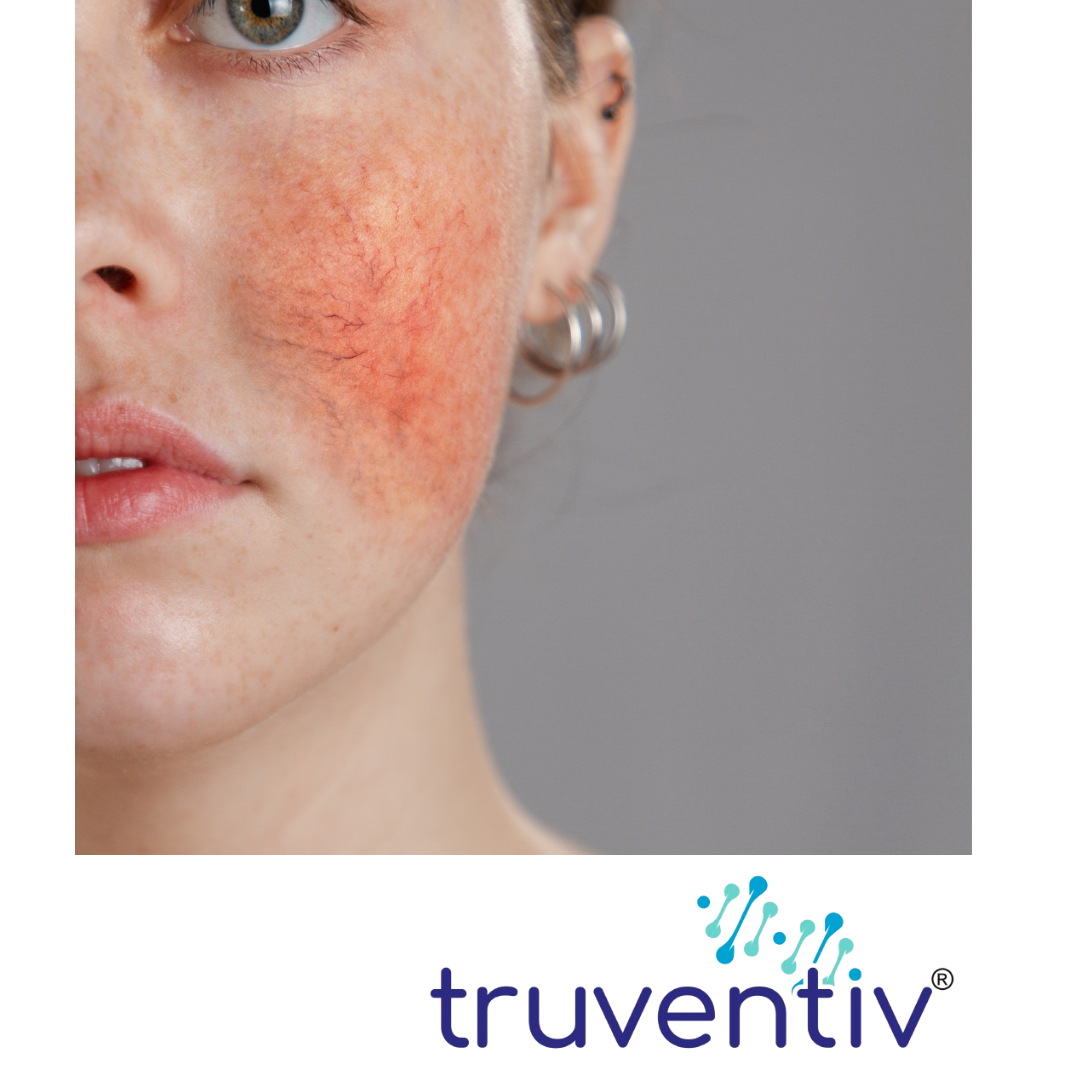
Caprylic/Capric Triglyceride is a versatile ingredient derived from coconut oil or palm kernel oil that offers significant benefits for calming skin conditions like eczema, rosacea, and psoriasis. Its soothing, hydrating, and barrier-supporting properties make it an ideal choice for managing these inflammatory skin issues.
- Eczema (Atopic Dermatitis)
Eczema is characterized by dry, inflamed, and itchy skin. Caprylic/Capric Triglyceride can help in the following ways:
- Soothes Inflammation: Caprylic/Capric Triglyceride has mild anti-inflammatory properties that help calm the redness, swelling, and discomfort associated with eczema. By reducing inflammation, it helps alleviate the itching and irritation that often accompany eczema flare-ups.
- Hydrates and Restores Moisture: Eczema causes the skin’s barrier to weaken, leading to excessive dryness. Caprylic/Capric Triglyceride acts as an effective moisturizer, helping to replenish moisture and keep the skin hydrated. This hydration is crucial for eczema-prone skin, as it helps prevent further irritation and cracking.
- Restores Skin Barrier Function: Caprylic/Capric Triglyceride helps strengthen the skin’s natural barrier, which is often compromised in eczema. A strong barrier helps lock in moisture and protect the skin from irritants and allergens that can worsen eczema symptoms.
- Reduces Dryness and Cracking: By preventing moisture loss, it helps to soften dry, rough patches of skin and reduce the appearance of cracks or fissures commonly seen in eczema.
- Rosacea
Rosacea is a chronic inflammatory condition that causes redness, visible blood vessels, and sometimes bumps on the skin, particularly on the face. Caprylic/Capric Triglyceride can be beneficial in the following ways:
- Anti-Inflammatory Effects: Caprylic/Capric Triglyceride’s ability to reduce inflammation helps calm the redness and swelling associated with rosacea. It can soothe the skin and reduce the severity of flare-ups.
- Protects and Moisturizes: Rosacea often results in dry, irritated skin. Caprylic/Capric Triglyceride helps maintain optimal skin hydration by creating a barrier that locks in moisture, keeping the skin soft and nourished.
- Reduces Redness: The soothing properties of Caprylic/Capric Triglyceride can help reduce visible redness, which is a hallmark symptom of rosacea. It helps calm the skin's irritation and gives it a more even appearance.
- Prevents Further Irritation: Since rosacea-prone skin is sensitive, Caprylic/Capric Triglyceride helps create a protective layer on the skin’s surface, shielding it from environmental stressors and potential irritants that could trigger rosacea flare-ups.
- Psoriasis
Psoriasis is a condition that leads to the rapid buildup of skin cells, causing red, scaly patches that can be itchy and painful. Caprylic/Capric Triglyceride can assist in managing psoriasis symptoms in several ways:
- Calms Inflammation: Caprylic/Capric Triglyceride’s anti-inflammatory properties can help reduce the inflammation and redness that are commonly seen in psoriasis. It helps to soothe irritated skin and promote healing.
- Moisturizes and Softens Scales: Psoriasis often leads to thick, dry patches of skin with scales. Caprylic/Capric Triglyceride’s moisturizing effect helps soften these scales and make them easier to remove, while preventing further buildup.
- Supports Skin Healing: By maintaining hydration and reducing irritation, Caprylic/Capric Triglyceride promotes skin healing. This is particularly helpful for psoriasis patches, as it supports the regeneration of healthy skin.
- Strengthens the Skin Barrier: Psoriasis weakens the skin barrier, making it more prone to irritation and infection. Caprylic/Capric Triglyceride helps to strengthen this barrier, reducing the risk of flare-ups caused by external irritants, allergens, or bacteria.
General Benefits for All Three Conditions:
- Anti-Bacterial and Anti-Septic Properties: Caprylic/Capric Triglyceride has mild anti-bacterial and anti-septic properties that help prevent infections and reduce the risk of bacteria exacerbating conditions like eczema, rosacea, and psoriasis. For eczema and psoriasis, it can also prevent the development of secondary infections in cracked or broken skin.
- Reduces Itching and Discomfort: Both eczema and psoriasis can lead to persistent itching, which can exacerbate inflammation and discomfort. Caprylic/Capric Triglyceride’s soothing properties help calm the itch, providing relief from these symptoms.
- Gentle on Sensitive Skin: Caprylic/Capric Triglyceride is non-irritating and gentle on sensitive skin, making it suitable for individuals with chronic skin conditions like eczema, rosacea, and psoriasis.
HOW CAPRYLIC CAPRIC TRIGLYCERIDE HELPS IN ANTI-ACNE & PIMPLE
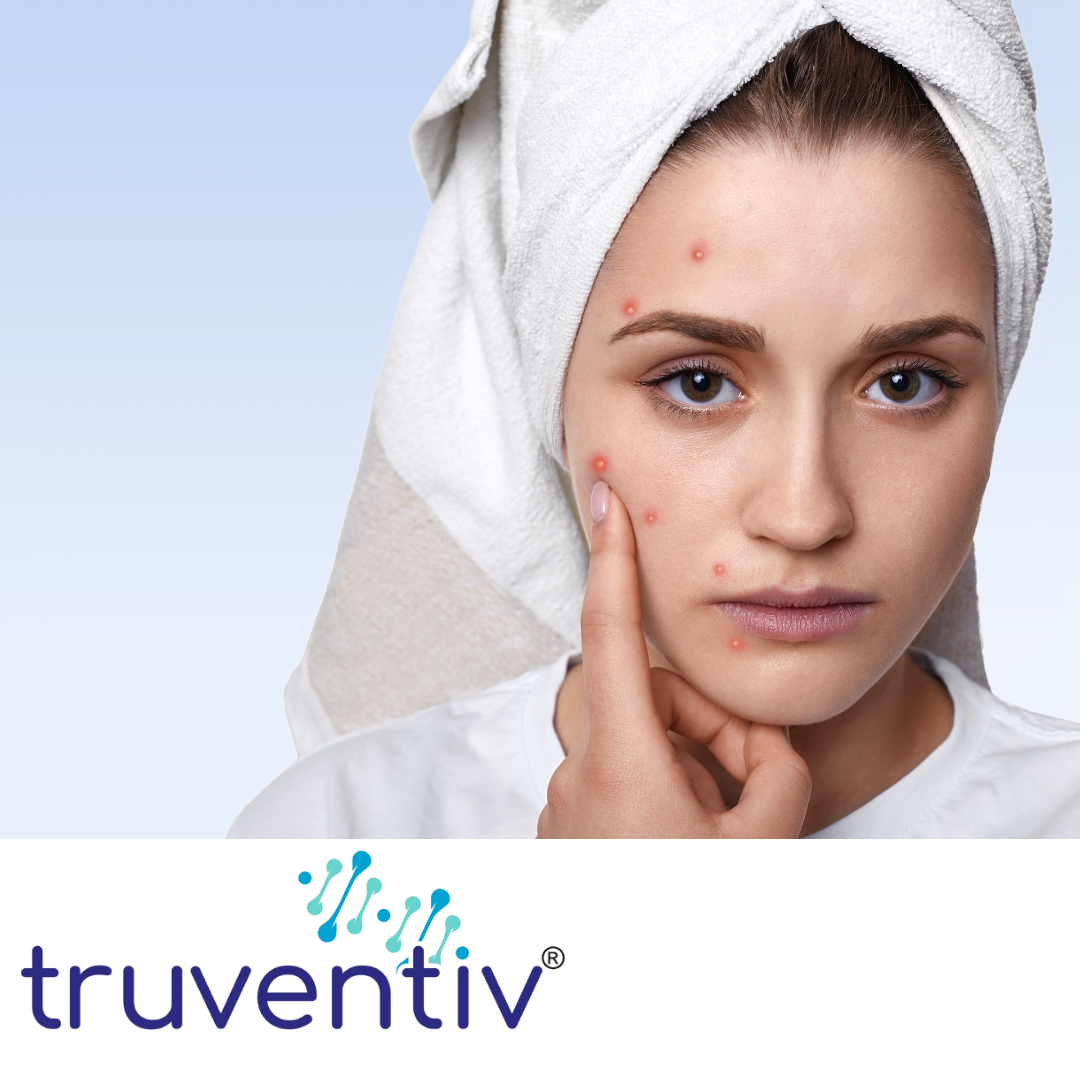
Caprylic/Capric Triglyceride can be beneficial for managing acne and pimples due to its unique properties that help to soothe, hydrate, and maintain the skin's balance.
- Non-Comedogenic (Won't Clog Pores)
Caprylic/Capric Triglyceride is considered non-comedogenic, meaning it won't clog pores. Pore-clogging is a major factor in the development of acne, as it can trap dirt, oil, and bacteria inside, leading to the formation of pimples.
- Prevents Acne Breakouts: Since it doesn’t clog pores, it helps prevent the buildup of oils and debris in the pores, reducing the likelihood of acne breakouts.
- Allows Skin to Breathe: It allows the skin to maintain its natural functions, preventing the formation of whiteheads, blackheads, or cystic acne.
- Balances Oil Production
Caprylic/Capric Triglyceride can help balance the skin's oil production by providing lightweight moisture to the skin.
- Regulates Sebum Levels: For oily or acne-prone skin, Caprylic/Capric Triglyceride provides hydration without contributing to excess oil production. When the skin is properly hydrated, it helps regulate sebum production, reducing the greasy buildup that can contribute to acne.
- Prevents Over-Drying: Acne treatments often dry out the skin, which can lead to overcompensation by the skin, producing even more oil. Caprylic/Capric Triglyceride helps maintain balanced moisture levels, preventing this cycle of overproduction.
- Antibacterial Properties
Caprylic/Capric Triglyceride has mild antibacterial properties that help fight the bacteria responsible for acne, such as Propionibacterium acnes (P. acnes). These bacteria thrive in the clogged pores and inflamed follicles that occur with acne, and by reducing their activity, Caprylic/Capric Triglyceride can help control acne.
- Reduces Bacterial Growth: It helps inhibit the growth of acne-causing bacteria, reducing the risk of infection and new acne lesions.
- Prevents Post-Acne Infection: If pimples break open, Caprylic/Capric Triglyceride can help prevent secondary infections, which could worsen inflammation and scarring.
- Reduces Inflammation and Irritation
Acne is often associated with inflammation and irritation, leading to swollen, red, and painful pimples. Caprylic/Capric Triglyceride has natural anti-inflammatory properties that help calm irritated skin.
- Soothes Active Acne: By calming inflammation, Caprylic/Capric Triglyceride helps reduce redness, swelling, and discomfort associated with acne and pimples.
- Prevents Further Irritation: Its gentle, non-irritating nature makes it suitable for sensitive, acne-prone skin, ensuring that acne lesions are not further aggravated by harsh treatments.
- Hydrates and Softens the Skin
Proper hydration is essential for healthy skin and preventing acne. Dehydrated skin can overcompensate by producing excess oil, which can clog pores and worsen acne. Caprylic/Capric Triglyceride helps to keep the skin hydrated without feeling greasy.
- Hydrates Without Clogging: It provides moisture to the skin without contributing to pore blockages or the buildup of excess oils, ensuring that the skin remains soft and supple.
- Supports Skin Healing: Acne often leaves the skin feeling dry or irritated. Caprylic/Capric Triglyceride helps to soften and heal the skin, making it smoother and more even in texture.
- Helps With Post-Acne Scarring
Acne scars, whether they are red, dark spots (hyperpigmentation), or pitted scars, are common after pimples heal. Caprylic/Capric Triglyceride can support the skin's natural healing process, improving skin texture and appearance.
- Promotes Skin Regeneration: Its moisturizing and barrier-supporting properties can speed up skin regeneration, helping to minimize the appearance of acne scars over time.
- Fades Dark Spots: By keeping the skin hydrated and helping to maintain a healthy skin barrier, it can reduce the appearance of post-acne hyperpigmentation, helping to brighten the skin.
- Helps Maintain Healthy Skin Barrier
A compromised skin barrier is a major factor in acne flare-ups. When the skin barrier is weakened, it becomes more susceptible to irritation, infection, and inflammation.
- Strengthens the Skin Barrier: Caprylic/Capric Triglyceride helps fortify the skin's natural barrier, making it less vulnerable to external aggressors like bacteria, pollutants, and allergens that can trigger acne.
- Prevents Water Loss: A healthy skin barrier also helps prevent excessive water loss, keeping the skin hydrated and less prone to dryness and irritation that can worsen acne.
HOW GLYCERINE HELPS IN FOR NATURAL GLOWING SKIN
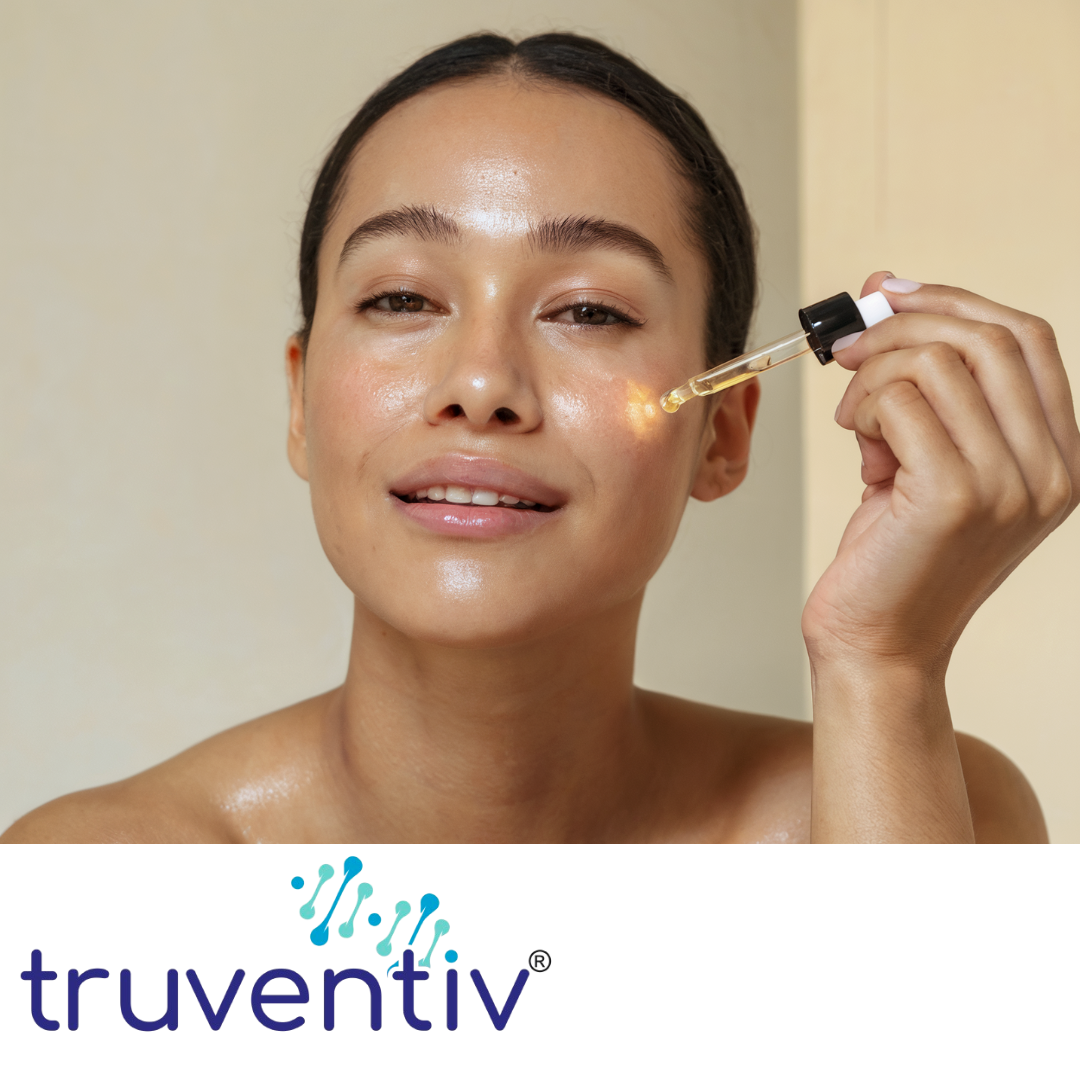
Glycerine, also known as glycerol, is a powerful humectant that helps maintain moisture balance in the skin, making it an excellent ingredient for achieving a natural glowing skin.
- Deep Hydration
Glycerine is a humectant, which means it draws moisture from the environment and locks it into the skin. This ability to attract and retain water ensures that the skin stays hydrated and plump.
- Boosts Skin Moisture: Glycerine helps keep the skin hydrated by preventing moisture loss. Proper hydration is essential for achieving healthy, radiant skin, as dry skin can appear dull and rough.
- Improves Skin Softness: By keeping the skin hydrated, glycerine softens the skin’s surface, giving it a smooth texture, which enhances the skin’s natural glow.
- Enhances Skin Barrier Function
A strong skin barrier is essential for maintaining moisture and protecting the skin from environmental damage. Glycerine helps strengthen the skin's natural barrier.
- Prevents Moisture Loss: By reinforcing the skin barrier, glycerine helps lock in moisture and prevents it from evaporating, ensuring that the skin remains well-hydrated and glowy throughout the day.
- Reduces Irritation and Sensitivity: A well-functioning barrier can reduce sensitivity, preventing dryness and redness, and promoting an even, glowing complexion.
- Improves Skin Texture
Glycerine not only hydrates but also helps in improving the overall texture of the skin.
- Smoothens Rough Skin: By continuously hydrating and softening the skin, glycerine helps reduce rough patches and flakiness. Smooth skin reflects light better, giving a natural, healthy glow.
- Enhances Radiance: When the skin is adequately hydrated, it has a natural radiance. Glycerine’s ability to improve moisture levels and smoothen the skin’s texture contributes to a more vibrant, dewy appearance.
- Supports Cell Regeneration
Glycerine can promote the regeneration of skin cells by maintaining moisture levels, which is essential for healthy skin turnover.
- Encourages Healthy Skin Renewal: By helping with moisture retention, glycerine supports the skin's natural cell renewal process, which helps reveal fresher, more glowing skin.
- Helps with Uneven Skin Tone: It can support the regeneration of skin cells, reducing dullness and uneven pigmentation, leading to a more even and luminous complexion.
- Acts as a Skin Protector
The protective properties of glycerine ensure that your skin stays shielded from environmental stressors that can dull the complexion.
- Protects Against Pollution: Glycerine forms a protective layer on the skin that can act as a shield against pollutants, dirt, and harmful microorganisms, which helps keep the skin looking fresh and glowing.
- Prevents Dryness and Cracking: By keeping the skin hydrated and protected, glycerine helps prevent the dryness that can result from external aggressors such as air conditioning, wind, or harsh weather conditions.
- Improves Skin Elasticity
When the skin is well-hydrated, it appears more youthful and radiant. Glycerine contributes to skin's elasticity and firmness.
- Plumps the Skin: Glycerine’s ability to keep the skin hydrated helps plump up the skin, making it look fuller and more youthful, contributing to a glowing, dewy complexion.
- Reduces Fine Lines and Wrinkles: Hydrated skin appears firmer and less prone to the formation of fine lines, which helps maintain a smooth, radiant skin texture.
- Balances Skin Tone
By keeping the skin adequately hydrated and preventing dryness, glycerine helps maintain a more balanced complexion, which can lead to more even skin tone over time.
- Improves Skin Clarity: Dry, flaky skin can make the complexion appear uneven and dull. Glycerine helps prevent dry patches and keeps the skin soft, which in turn promotes a clearer, more radiant complexion.
- Reduces Dryness-Induced Dullness: Glycerine hydrates and nourishes the skin, reducing the dull appearance caused by dehydration.
HOW GLYCERINE HELPS IN IMPROVES OVERALL DERMAL HEALTH

Glycerine is an essential ingredient for improving overall dermal health due to its hydrating, barrier-strengthening, and skin-smoothing properties. It works effectively to maintain the skin’s natural functions, promote healing, and keep the skin soft, supple, and resilient.
- Deep Hydration
Glycerine is a humectant, meaning it attracts water from the environment and draws it into the skin. Proper hydration is crucial for maintaining healthy skin.
- Maintains Skin Moisture Balance: By constantly hydrating the skin, glycerine helps to keep it moisturized, which is essential for maintaining overall skin health. Dehydrated skin is prone to irritation, dryness, and damage, while well-hydrated skin is plumper and healthier.
- Improves Skin Barrier Function: Hydrated skin has a stronger barrier function, which helps prevent water loss and shields the skin from harmful environmental factors like pollution, chemicals, and harsh weather.
- Strengthens the Skin's Natural Barrier
The skin’s barrier plays a crucial role in protecting against external aggressors such as bacteria, pollutants, and irritants, while also preventing moisture loss. Glycerine supports and strengthens the skin barrier, contributing to overall skin health.
- Supports Barrier Integrity: Glycerine helps repair and maintain the lipid barrier, making the skin more resistant to environmental damage and less prone to irritations.
- Enhances Skin's Defenses: A strong barrier helps the skin defend against harmful pathogens, allergens, and pollutants, which helps protect against skin infections and irritations.
- Promotes Skin Regeneration
Healthy skin regeneration is key to maintaining youthful and vibrant skin. Glycerine helps promote the renewal of skin cells by keeping the skin hydrated, which is essential for cell turnover.
- Speeds Up Skin Healing: Hydrated skin regenerates more efficiently, allowing for quicker recovery from skin damage, such as cuts, scratches, or sunburn. This contributes to better overall skin health.
- Supports Skin Cell Turnover: Regular hydration with glycerine can help promote the production of new, healthy skin cells, improving skin texture and appearance.
- Soothes Irritation and Reduces Inflammation
Glycerine is gentle on the skin and can help soothe irritation and inflammation, which are common signs of unhealthy skin.
- Calms Sensitive Skin: Glycerine can help reduce irritation caused by conditions like eczema, psoriasis, or dermatitis. Its soothing effect reduces discomfort and redness, supporting better skin health.
- Anti-Inflammatory Action: By alleviating inflammation, glycerine helps prevent chronic skin conditions, ensuring that the skin remains balanced and healthy.
- Improves Skin Texture and Softness
Consistent hydration improves the texture and softness of the skin, making it look smoother and feel more supple.
- Softens Dry, Rough Skin: Glycerine helps to smooth out rough patches by drawing moisture into the skin, leaving it feeling soft and comfortable.
- Enhances Skin Elasticity: Well-hydrated skin is more elastic and resilient, which contributes to healthier skin over time and helps maintain its youthful appearance.
- Prevents Dryness and Flakiness
One of the most common skin concerns that affect dermal health is dryness. When the skin lacks moisture, it becomes tight, flaky, and more prone to irritation and sensitivity.
- Maintains Hydration: Glycerine helps lock in moisture, preventing the skin from becoming dry, flaky, or cracked, which are all signs of poor skin health.
- Improves Dry Skin Conditions: It is particularly helpful for dry skin conditions like eczema or chronic dryness, as it helps keep the skin nourished and hydrated, supporting overall skin health.
- Promotes Healthy Skin Function
By maintaining proper hydration levels, glycerine allows the skin to function optimally. Healthy skin is not only aesthetically pleasing but also more resistant to environmental stressors and aging.
- Balances Skin pH: Glycerine helps maintain the skin’s natural pH, which is crucial for its overall health. A balanced pH prevents the overgrowth of harmful bacteria, minimizes irritation, and supports skin’s natural processes.
- Nourishes and Protects: It helps nourish and protect the skin by maintaining moisture levels and fortifying the skin barrier. This results in more resilient, balanced skin with better defense against environmental stress.
- Reduces Signs of Aging
By keeping the skin hydrated and supporting the skin barrier, glycerine can help reduce the appearance of fine lines and wrinkles, which are common signs of aging.
- Prevents Dryness-Induced Aging: Dry skin is more prone to showing fine lines and wrinkles, but glycerine helps prevent that by keeping the skin moisturized, which makes it look plump and youthful.
- Improves Skin Tone: By maintaining hydration and supporting healthy skin turnover, glycerine helps improve overall skin tone, making the skin appear more even and vibrant.
HOW GLYCERINE HELPS IN ANTI-INFLAMMATION, ANTI-BACTERIAL, ANTI SEPTIC
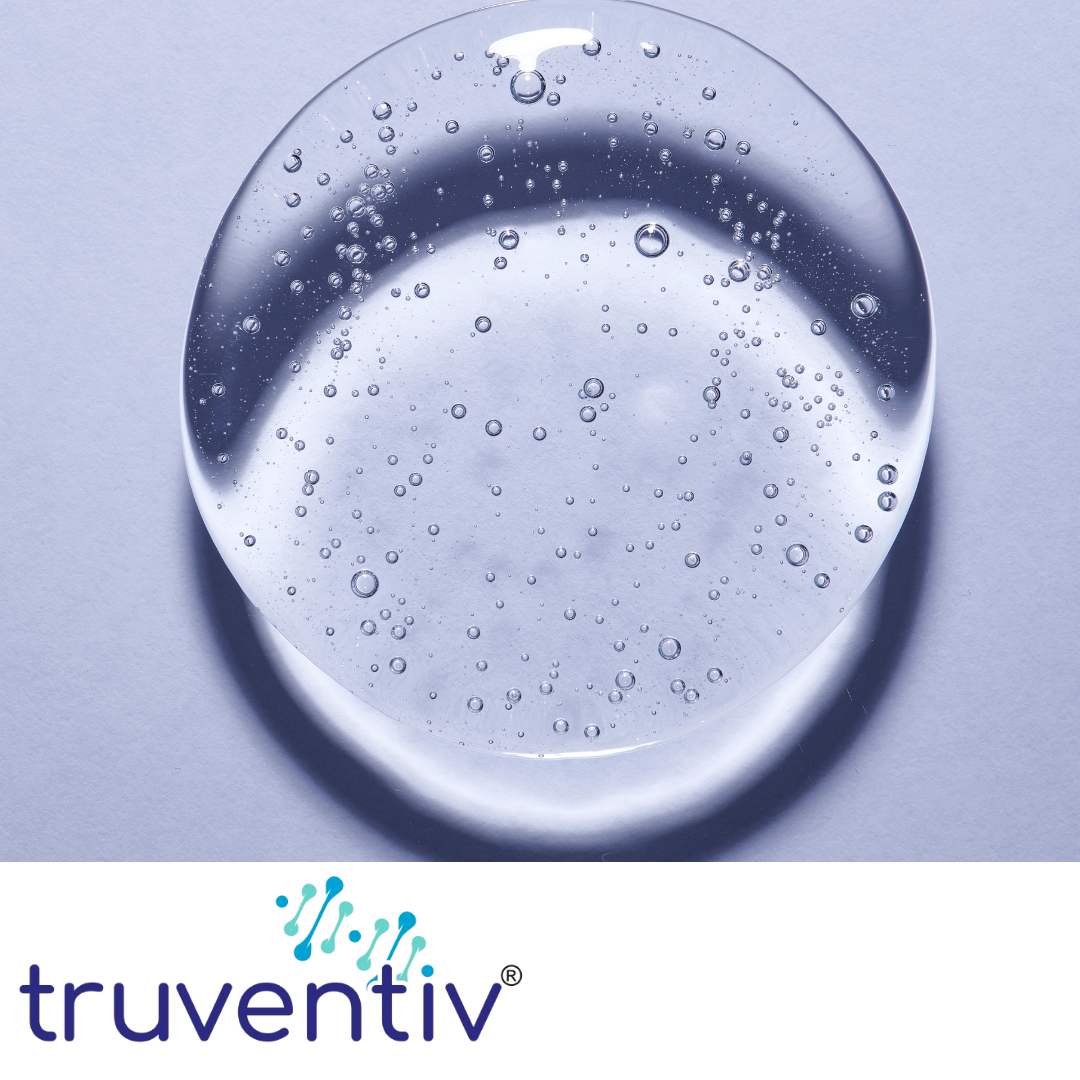
Glycerine (or glycerol) is a versatile and effective skincare ingredient known not only for its hydrating properties but also for its anti-inflammatory, anti-bacterial, and anti-septic benefits.
- Anti-Inflammatory Properties
Glycerine has a soothing and calming effect on the skin, which helps reduce inflammation caused by various skin conditions.
- Reduces Skin Irritation: Glycerine hydrates and helps to maintain the skin's natural moisture balance, which prevents the skin from becoming overly dry or irritated. This hydration helps calm irritated skin and reduce inflammation caused by conditions like eczema, dermatitis, or other skin sensitivities.
- Supports Healing of Inflammatory Skin Conditions: For conditions such as psoriasis, eczema, or rosacea, glycerine helps soothe redness and swelling, providing relief from inflammation.
- Prevents Skin Damage: Chronic inflammation can lead to skin damage and degradation of the skin barrier. By reducing inflammation, glycerine helps maintain the skin’s integrity and overall health.
- Anti-Bacterial Properties
Glycerine’s hydrating properties can indirectly help with its anti-bacterial effects by preventing the skin from becoming dry and cracked, which can otherwise make it more susceptible to infections.
- Prevents Bacterial Growth: While glycerine itself isn’t a strong bactericide, it helps maintain the skin’s moisture balance, which can reduce conditions that foster bacterial growth, such as dry or cracked skin.
- Supports Healing: By helping to maintain a healthy moisture barrier, glycerine supports faster healing of minor cuts, abrasions, or scrapes, reducing the chance of bacterial infections in the process.
- Balances Skin's Microflora: A healthy moisture balance supports the skin’s natural microflora (good bacteria) that helps prevent the overgrowth of harmful bacteria. This contributes to a healthier, less infection-prone complexion.
- Anti-Septic Properties
Glycerine has anti-septic qualities that help protect the skin from pathogens that can cause infections or irritations.
- Promotes Skin Healing: Glycerine’s ability to keep the skin moisturized and soft supports the healing process of minor skin injuries, reducing the risk of infection from external sources.
- Prevents Dryness-Related Infections: Dry skin can create cracks and micro-tears in the skin's surface, which can be entry points for bacteria. Glycerine prevents this by keeping the skin hydrated and preventing dryness, thus lowering the risk of infections.
- Forms a Protective Barrier: Glycerine forms a thin layer on the skin that acts as a physical barrier to external aggressors, including bacteria and environmental pollutants, reducing the risk of infection or irritation.
- Combined Anti-Inflammatory and Anti-Bacterial Benefits
By offering both anti-inflammatory and anti-bacterial properties, glycerine is particularly helpful for individuals with sensitive or acne-prone skin. For example:
- Acne-Prone Skin: Glycerine helps manage acne by maintaining skin hydration, preventing the dryness that could lead to irritation and further inflammation. At the same time, it supports the skin’s natural barrier to minimize the risk of bacterial breakouts.
- Healing Acne Scars: After acne lesions heal, glycerine helps in the recovery process by soothing inflammation and preventing scarring, and its hydration properties allow for better healing of the skin post-breakout.
- Maintains Skin's Natural pH
The natural pH balance of the skin is critical for its ability to fend off harmful bacteria and other microorganisms. Glycerine helps maintain a healthy pH level in the skin, which supports its anti-septic functions and helps prevent infections.
- Balances Skin's pH: Glycerine is often included in skincare products because it helps stabilize the pH of the skin, preventing it from becoming too acidic or too alkaline, both of which can lead to an imbalance in the skin's microbiome (the natural bacteria living on the skin).
HOW GLYCERINE HELPS IN REDUCES REDNESS & BLEMISHES
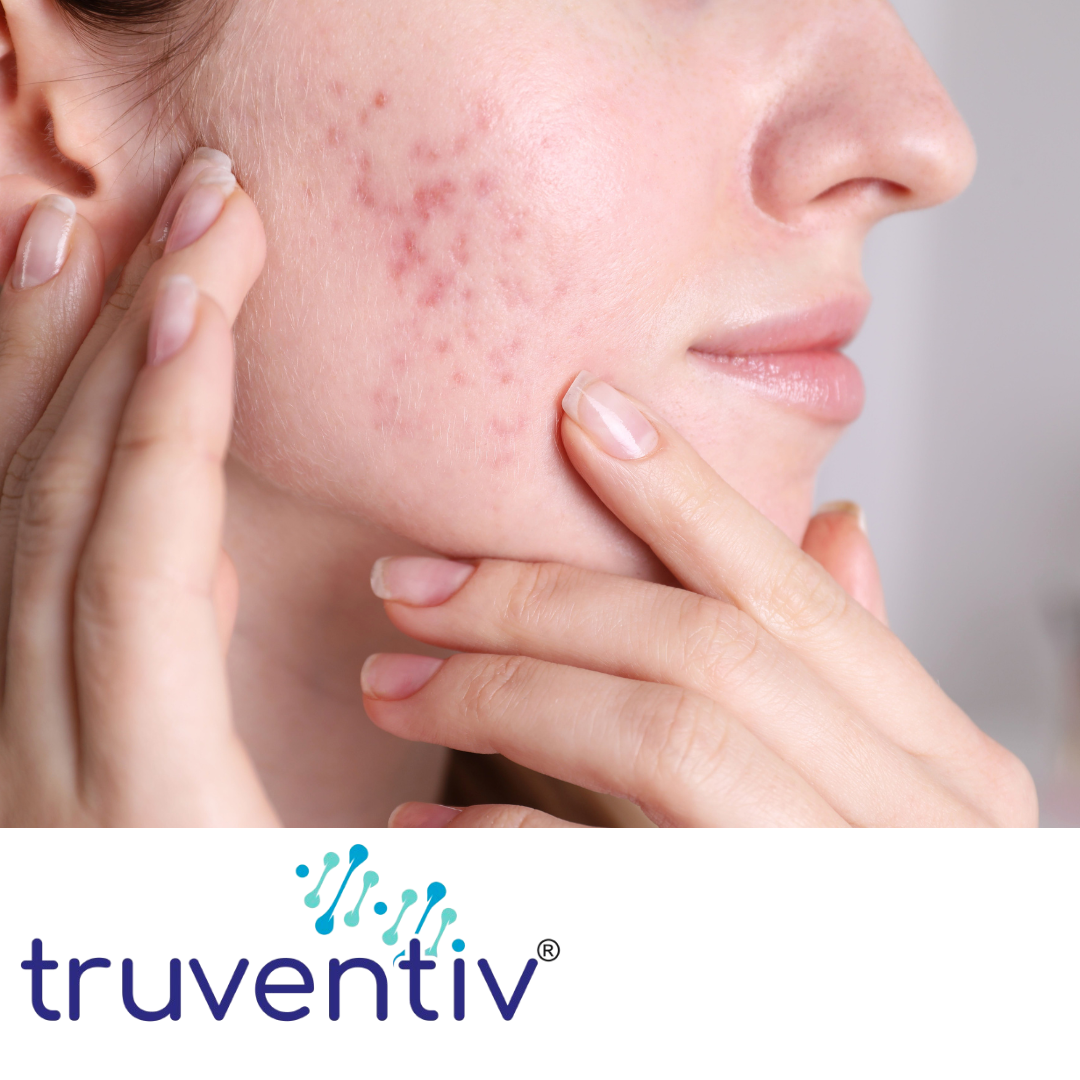
Glycerine is an effective ingredient for reducing redness and blemishes due to its hydrating, soothing, and healing properties.
- Hydration and Moisture Retention
Glycerine is a humectant, meaning it attracts water from the environment and locks it into the skin. Hydrated skin is crucial for reducing redness and preventing blemishes.
- Reduces Redness: When the skin is well-hydrated, it’s less likely to become inflamed or irritated, which can often lead to redness. By maintaining skin hydration, glycerine helps soothe the skin and reduce redness caused by dryness or sensitivity.
- Prevents Dryness-Induced Irritation: Dry, dehydrated skin tends to become tight and irritated, leading to redness. Glycerine keeps the skin moist, preventing this irritation and promoting a calmer, more even skin tone.
- Soothes and Calms Inflammation
One of glycerine's key benefits is its ability to calm and reduce inflammation, which is often a cause of redness and blemishes.
- Reduces Skin Irritation: Glycerine has a soothing effect on the skin, which helps to calm redness caused by irritants, environmental stressors, or sensitive skin conditions such as rosacea or eczema.
- Supports Healing: For skin that's prone to blemishes or redness from past acne or irritation, glycerine helps speed up the healing process by keeping the skin hydrated, which reduces the appearance of redness as the skin regenerates.
- Enhances Skin Barrier Function
A healthy skin barrier is essential to reduce redness and prevent blemishes, as it protects the skin from external aggressors and keeps moisture in.
- Strengthens the Skin’s Defense: Glycerine strengthens the skin’s natural barrier, preventing harmful elements like pollutants, bacteria, and allergens from penetrating the skin and causing inflammation or redness.
- Reduces Sensitivity: A well-functioning skin barrier reduces the skin’s sensitivity to external factors, making it less prone to flare-ups of redness or blemishes.
- Supports Skin Repair and Regeneration
Glycerine promotes cell turnover and helps regenerate healthy skin, which can help reduce redness and fade blemishes over time.
- Fades Post-Acne Redness and Blemishes: Glycerine’s moisturizing properties help regenerate skin cells and heal damaged skin, which is particularly beneficial for reducing the appearance of post-acne redness and scars. Hydrated skin heals faster, leading to a reduction in lingering blemishes.
- Improves Skin Texture: By promoting healthy cell turnover, glycerine helps improve overall skin texture, making it smoother and more even, which helps reduce visible blemishes.
- Maintains Skin’s pH Balance
A stable skin pH is crucial for healthy, clear skin. Glycerine helps maintain the skin’s natural pH, which is important for reducing redness and preventing blemishes.
- Supports Healthy Skin Microflora: Glycerine helps maintain an optimal pH, which supports the skin's natural microbiome (the balance of good bacteria). When the microbiome is balanced, there’s a lower risk of inflammation, infection, and blemishes.
- Reduces Acne and Pimple Irritation
For acne-prone skin, glycerine is beneficial because it provides hydration without clogging pores, which helps calm active acne and reduce the redness associated with pimples.
- Prevents Over-Drying: Many acne treatments can dry out the skin, leading to more redness and irritation. Glycerine helps keep the skin hydrated, preventing the dry, irritated skin that often accompanies acne treatments.
- Helps Calm Active Breakouts: By reducing inflammation and providing moisture, glycerine helps soothe the redness and irritation associated with active pimples or acne lesions.
- Non-Irritating and Gentle on the Skin
Glycerine is generally considered gentle and non-irritating, making it suitable for sensitive or redness-prone skin. Its ability to hydrate without causing further irritation or clogging pores makes it an ideal ingredient for sensitive skin that’s prone to redness or blemishes.
- Non-Comedogenic: Glycerine doesn’t clog pores, which means it won’t exacerbate acne or contribute to more blemishes. This makes it ideal for skin that’s prone to breakouts.
- Suitable for Sensitive Skin: Glycerine’s gentle properties make it an excellent choice for sensitive skin that is prone to redness or irritation, as it hydrates and calms the skin without aggravating the condition.
HOW GLYCERINE HELPS IN CALMS SKIN CONDITIONS LIKE ECZEMA, ROSACEA & PSORIASIS
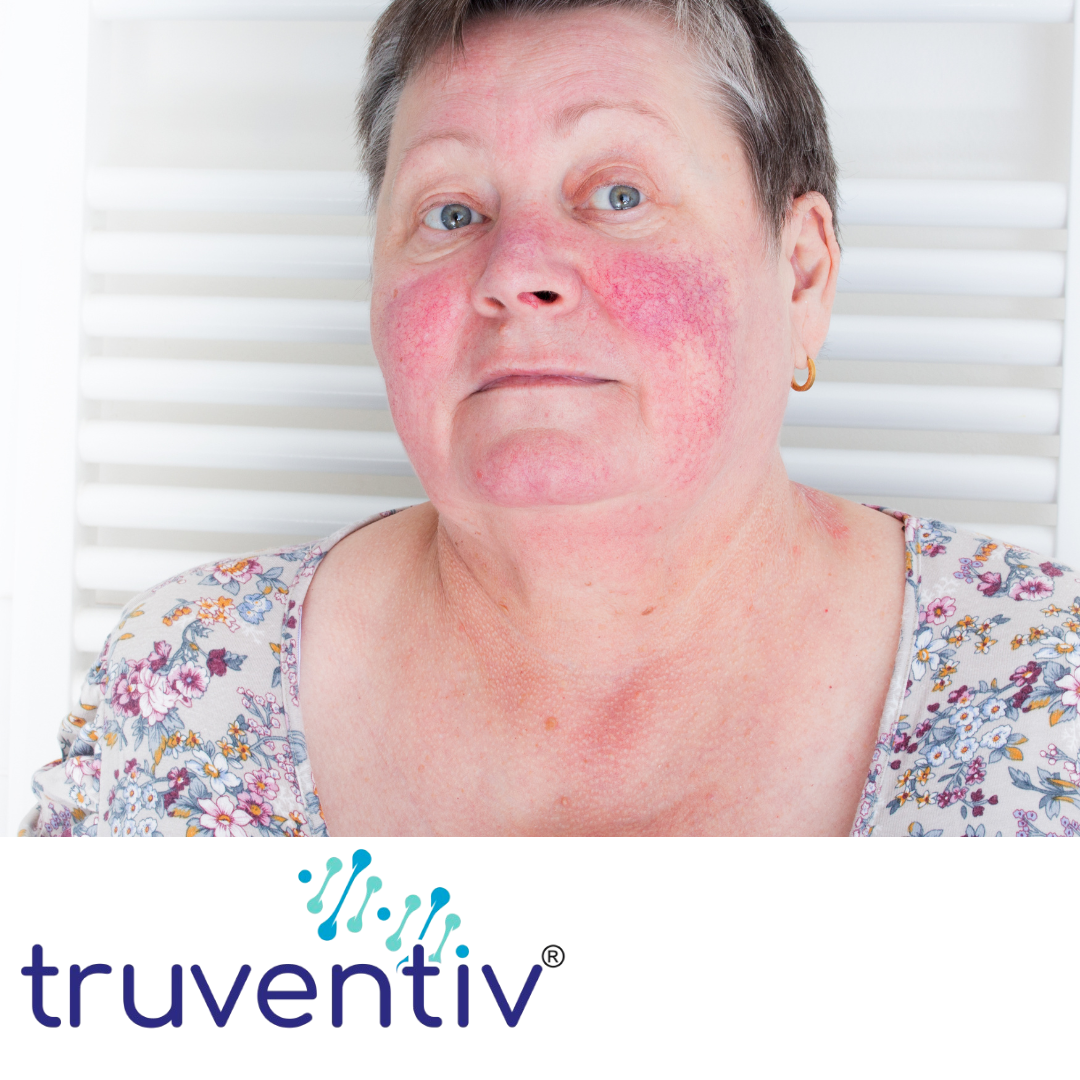
Glycerine is highly effective in calming and managing various skin conditions, such as eczema, rosacea, and psoriasis, due to its ability to hydrate, soothe inflammation, and support the skin’s natural barrier.
- Provides Deep Hydration
Glycerine is a powerful humectant, which means it attracts moisture from the air and draws it into the skin, helping to maintain hydration levels.
- Eczema: Eczema is characterized by dry, itchy, and inflamed skin. Glycerine helps restore moisture to the skin, preventing dryness and minimizing itching and irritation, which are common symptoms of eczema.
- Rosacea: For rosacea, which often presents with redness and dry, sensitive skin, glycerine helps keep the skin hydrated and less prone to flare-ups caused by dryness.
- Psoriasis: Psoriasis leads to dry, flaky skin with scales and plaques. Glycerine helps lock in moisture, preventing the skin from becoming excessively dry and reducing the itching and discomfort that often accompanies psoriasis.
- Soothes and Calms Inflammation
Glycerine has a soothing effect on the skin, which helps reduce the inflammation associated with conditions like eczema, rosacea, and psoriasis.
- Eczema: Glycerine’s anti-inflammatory properties can help calm the redness and swelling associated with eczema flare-ups. It provides immediate relief from the discomfort caused by inflamed skin.
- Rosacea: Rosacea involves persistent redness and irritation. Glycerine’s hydrating and anti-inflammatory properties help reduce redness and irritation by calming inflamed skin and providing a cooling effect.
- Psoriasis: Psoriasis often causes inflamed patches of skin. Glycerine helps reduce the severity of these flare-ups by soothing inflammation and promoting healing of irritated skin.
- Strengthens the Skin Barrier
A weakened skin barrier is common in eczema, rosacea, and psoriasis, which leads to increased water loss, irritation, and sensitivity.
- Improves Barrier Function: Glycerine strengthens the skin’s natural barrier, which helps protect it from environmental stressors like allergens, irritants, and pollutants that can exacerbate conditions like eczema, rosacea, and psoriasis.
- Prevents Moisture Loss: By keeping the skin moisturized, glycerine helps prevent excessive water loss, which is essential for managing skin conditions that cause dryness and irritation.
- Reduces Itching and Discomfort
Itching is a common symptom of many inflammatory skin conditions, and glycerine can help provide relief from this discomfort.
- Eczema and Psoriasis: The intense itching that often accompanies eczema and psoriasis can be alleviated by glycerine. By maintaining hydration and preventing dryness, glycerine helps reduce the itchiness and irritation that often lead to scratching, which can worsen these conditions.
- Rosacea: Glycerine also helps soothe the discomfort caused by rosacea-related skin sensitivity, making it less prone to flare-ups caused by external triggers.
- Promotes Healing
Glycerine helps in the healing process by encouraging cell turnover and ensuring that the skin remains moisturized during the recovery phase.
- Eczema and Psoriasis: In both eczema and psoriasis, the skin barrier is often compromised. Glycerine helps to support skin regeneration by hydrating and nourishing the skin, which aids in the repair of damaged skin cells.
- Rosacea: Rosacea-prone skin is often sensitive and prone to damage. Glycerine helps heal and protect the skin’s surface, reducing the appearance of flare-ups and speeding up recovery from irritated skin.
- Gentle on Sensitive Skin
One of the main advantages of glycerine is that it is gentle and non-irritating, making it suitable for sensitive skin, including that affected by conditions like eczema, rosacea, and psoriasis.
- Safe for Sensitive Skin: Glycerine’s non-comedogenic and non-irritating nature makes it an ideal option for individuals with sensitive skin. It provides moisture without causing further irritation, making it suitable for skin that is already inflamed or reactive.
- Non-Allergenic: Glycerine is less likely to cause allergic reactions, which is important for those with skin conditions like eczema, rosacea, or psoriasis, where the skin is already compromised and sensitive.
- Helps Restore Skin Texture
Inflammatory skin conditions often lead to uneven skin texture, such as rough patches, flakes, or scales.
- Improves Skin Texture: Glycerine helps smooth and soften the skin, improving its overall texture. This is particularly helpful for conditions like psoriasis, where thick, scaly skin can form. By moisturizing and softening the skin, glycerine helps create a smoother, more even surface.
- Supports pH Balance
The skin’s pH balance plays an essential role in its health. Glycerine helps maintain the skin’s natural pH, which is important for preventing irritation and supporting healing in sensitive skin conditions.
- Maintains pH Balance: Glycerine helps maintain a healthy pH, which is crucial for the skin's protective function. A balanced pH helps minimize flare-ups and irritation, particularly in conditions like eczema, rosacea, and psoriasis.
HOW GLYCERINE HELPS IN ANTI-ACNE & PIMPLE
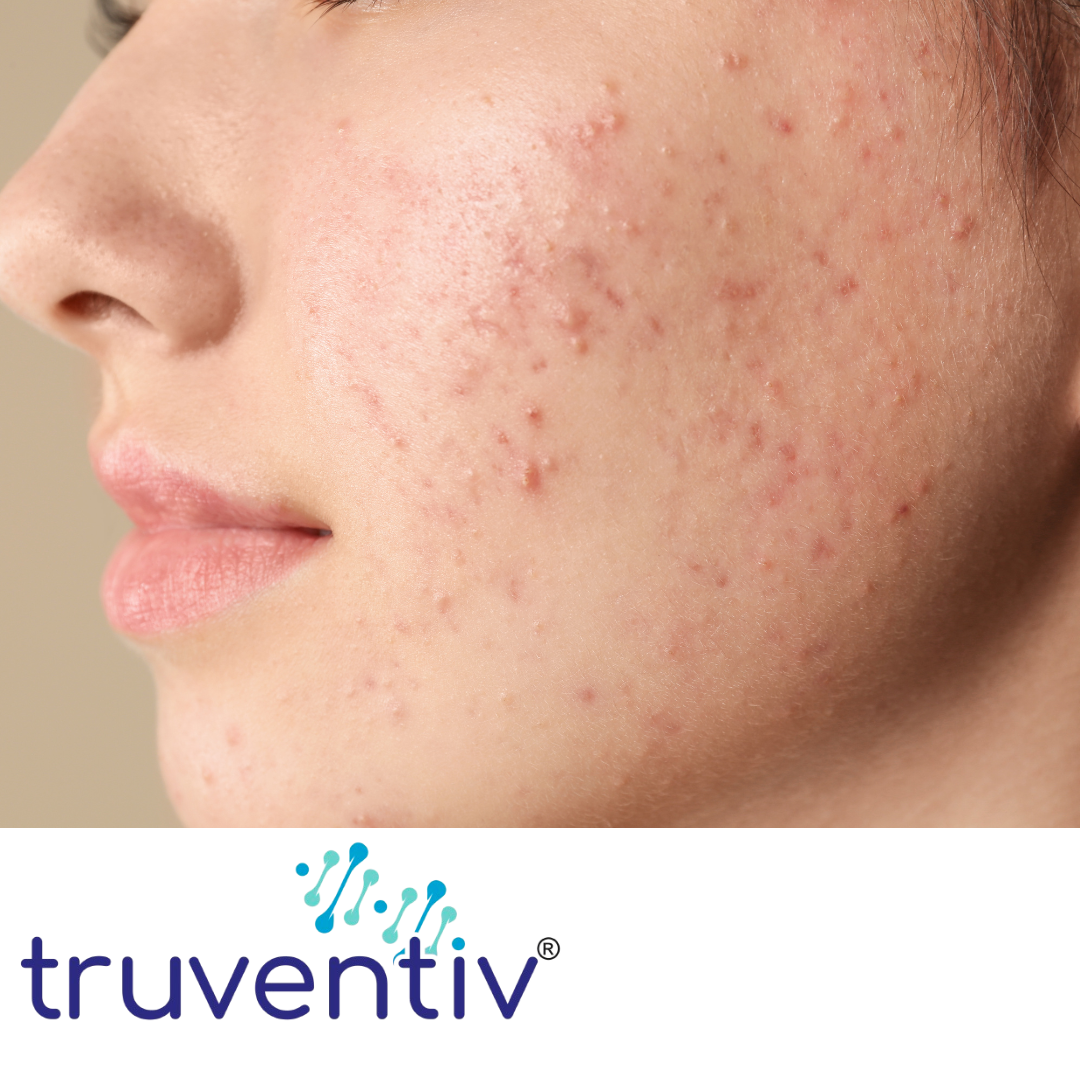
Glycerine is a highly effective ingredient in treating acne and pimples due to its moisturizing, soothing, and healing properties.
- Maintains Skin Hydration Without Clogging Pores
Glycerine is a humectant, which means it draws moisture from the air and helps the skin retain it, keeping it hydrated.
- Prevents Dryness from Acne Treatments: Many acne treatments (like those containing benzoyl peroxide or salicylic acid) can be drying. Glycerine helps prevent excessive dryness by locking in moisture, which is essential for keeping the skin soft and smooth without causing further irritation or peeling.
- Non-Comedogenic: Glycerine is non-comedogenic, meaning it doesn't clog pores. Clogged pores can lead to the formation of pimples, so glycerine ensures the skin remains hydrated without causing breakouts.
- Reduces Inflammation and Soothes Skin
Acne and pimples often cause inflammation, redness, and irritation on the skin.
- Soothes Redness and Swelling: Glycerine has anti-inflammatory properties that help calm and reduce the swelling and redness associated with acne and pimples, making them less noticeable.
- Helps with Active Breakouts: For active pimples, glycerine can reduce the pain and irritation by calming inflamed skin, leading to faster healing and less discomfort.
- Supports Skin Healing and Regeneration
After pimples heal, they can often leave scars or dark spots. Glycerine aids in skin regeneration, promoting faster healing and repair of damaged skin.
- Promotes Skin Repair: Glycerine helps repair skin cells and supports regeneration by keeping the skin hydrated and encouraging the growth of new, healthy cells. This can minimize the appearance of scars left by acne and help skin heal more effectively.
- Faster Recovery: Hydrated skin recovers faster from breakouts, leading to fewer and less noticeable pimples and reduced scarring over time.
- Maintains Skin’s Natural Barrier
Acne-prone skin is often sensitive and may suffer from a weakened skin barrier due to aggressive treatments or environmental stressors.
- Strengthens the Skin Barrier: Glycerine helps to restore and protect the skin’s natural moisture barrier, preventing external irritants (such as pollutants and bacteria) from causing further breakouts.
- Protects Against Bacteria: By maintaining a strong skin barrier, glycerine reduces the risk of bacterial invasion, which can exacerbate acne and lead to new pimples.
- Balances Oil Production
While glycerine is a humectant that draws moisture into the skin, it doesn’t make the skin greasy or oily.
- Regulates Oil Levels: Glycerine helps maintain the right balance of moisture in the skin, preventing it from becoming too dry or too oily. This balance is crucial for acne-prone skin, as both excessive dryness and excess oil can trigger breakouts.
- Prevents Overproduction of Oil: By ensuring proper hydration, glycerine signals to the skin that it doesn't need to produce excessive oil, which is a major contributor to clogged pores and acne.
- Helps Fade Post-Acne Marks
Even after pimples have healed, they can leave dark spots (post-inflammatory hyperpigmentation) or scars.
- Fades Dark Spots: Glycerine helps to moisturize and nourish the skin, which can speed up the healing process of post-acne marks. The faster the skin regenerates, the less likely these dark spots will persist.
- Improves Skin Texture: Glycerine helps in smoothing the skin, which can help improve the appearance of the skin’s texture after breakouts.
- Non-Irritating and Gentle
Unlike some acne treatments, which can be harsh on sensitive skin, glycerine is generally gentle and safe for most skin types, including sensitive or acne-prone skin.
- Suitable for Sensitive Skin: Glycerine doesn’t irritate the skin, making it a good choice for individuals with acne who may have sensitive skin due to the use of strong acne medications or active breakouts.
- Non-Allergenic: Glycerine is less likely to cause allergic reactions or additional skin irritation, which is important when treating acne, as irritation can worsen breakouts.
- Helps Prevent Future Breakouts
By promoting a healthy skin barrier, maintaining hydration, and supporting the healing process, glycerine helps maintain overall skin health, reducing the risk of future breakouts.
- Prevents New Acne: Well-moisturized skin is less likely to experience the excessive dryness or irritation that triggers acne. Additionally, glycerine helps maintain the skin's pH balance, which further protects against future breakouts.
- Improves Skin Texture and Tone: Glycerine encourages even skin tone and texture, helping to prevent clogged pores and reducing the frequency of breakouts.
HOW GLYCERYL STEARATE & PEG-100 STEARATE HELPS IN FOR NATURAL GLOWING SKIN
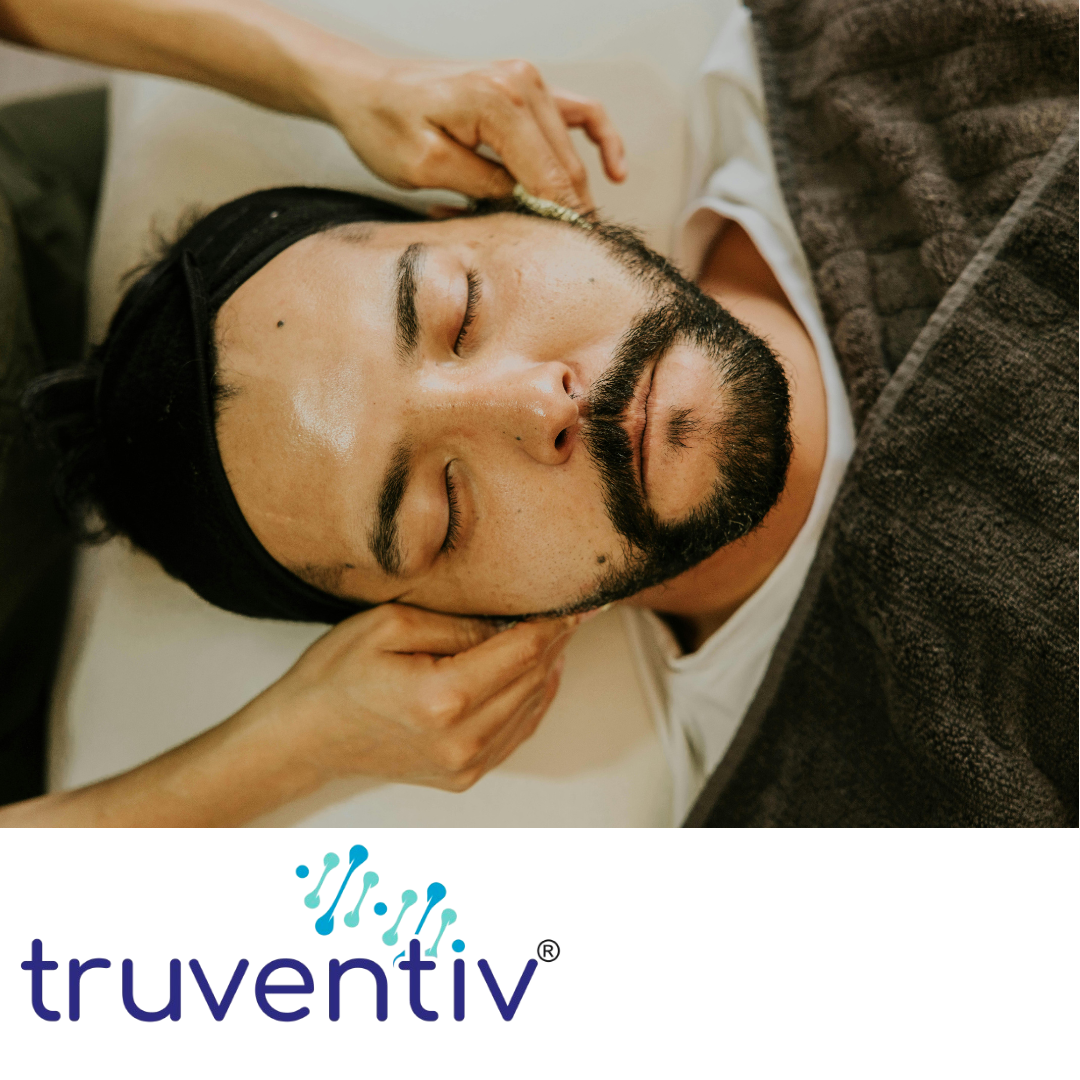
Glyceryl Stearate and PEG-100 Stearate are both ingredients commonly found in skincare products. They are emulsifiers that help blend oil and water-based ingredients together, creating a smooth, stable texture in lotions, creams, and other formulations.
- Moisturization and Hydration
Both glyceryl stearate and PEG-100 stearate play an important role in providing and retaining moisture in the skin.
- Glyceryl Stearate: Acts as a moisturizer by helping the skin retain hydration. It creates a protective barrier that prevents water loss from the skin, keeping it moisturized and soft. Well-hydrated skin tends to have a natural, healthy glow.
- PEG-100 Stearate: Works similarly by ensuring that the water-based ingredients in a product are properly absorbed into the skin. It helps maintain hydration, which is key for giving the skin a plump and radiant appearance.
- Improved Skin Texture
Both of these emulsifiers contribute to a smoother, more even skin texture, which can enhance your skin’s glow.
- Glyceryl Stearate: By helping with the smooth application of skincare products, glyceryl stearate reduces the rough texture that can make skin look dull or uneven. It promotes a more supple and smooth surface that reflects light better, creating a subtle glow.
- PEG-100 Stearate: Similar to glyceryl stearate, it helps smooth out the skin’s surface, leading to a more polished, even texture that enhances the skin’s radiance.
- Enhances Product Absorption
The presence of glyceryl stearate and PEG-100 stearate in skincare formulations can help other beneficial ingredients absorb more effectively into the skin.
- Increased Efficacy: When these emulsifiers aid in the absorption of hydrating and nourishing ingredients, such as vitamins and antioxidants, the skin receives more of the beneficial nutrients that promote a glowing complexion.
- Layering Effect: These ingredients help products layer properly on the skin, ensuring that the skin can get the most out of moisturizers and serums, boosting hydration and contributing to a healthy, dewy glow.
- Nourishes and Softens Skin
Both ingredients also help with skin softening and nourishment, which are essential for achieving a glowing, smooth complexion.
- Glyceryl Stearate: Softens the skin and creates a silky, smooth feel, which can contribute to that glowing, polished appearance.
- PEG-100 Stearate: Helps the skin feel more supple and soft, improving its overall texture and tone, which enhances the natural luminosity of the skin.
- Non-Greasy Finish
While both ingredients provide hydration and moisture, they are not greasy, making them ideal for those who desire a glowing complexion without feeling weighed down by heavy products.
- Non-Oily Glow: Glyceryl stearate and PEG-100 stearate provide a light, non-greasy finish, allowing the skin to have a natural, healthy glow without any residue. This is especially important for individuals with oily or combination skin who still want a dewy effect without excess shine.
- Enhances Skin’s Natural Barrier
The moisturizing and protective properties of glyceryl stearate and PEG-100 stearate also help support the skin’s natural barrier function, ensuring it stays protected from environmental stressors.
- Healthy Skin Barrier: A well-maintained skin barrier is essential for glowing skin. When the skin barrier is intact and functioning properly, it prevents moisture loss, protects against pollution, and promotes a healthier complexion. A strong barrier contributes to a naturally radiant and glowing appearance.
- Provides Long-Lasting Glow
The combination of both glyceryl stearate and PEG-100 stearate ensures that moisture stays locked in, providing long-lasting hydration.
- Sustained Glow: This hydration lock helps maintain the skin’s glow throughout the day by ensuring that the skin does not dry out. Well-hydrated skin has a natural radiance that reflects light beautifully.
HOW GLYCERYL STEARATE & PEG-100 STEARATE HELPS IN IMPROVES OVERALL DERMAL HEALTH
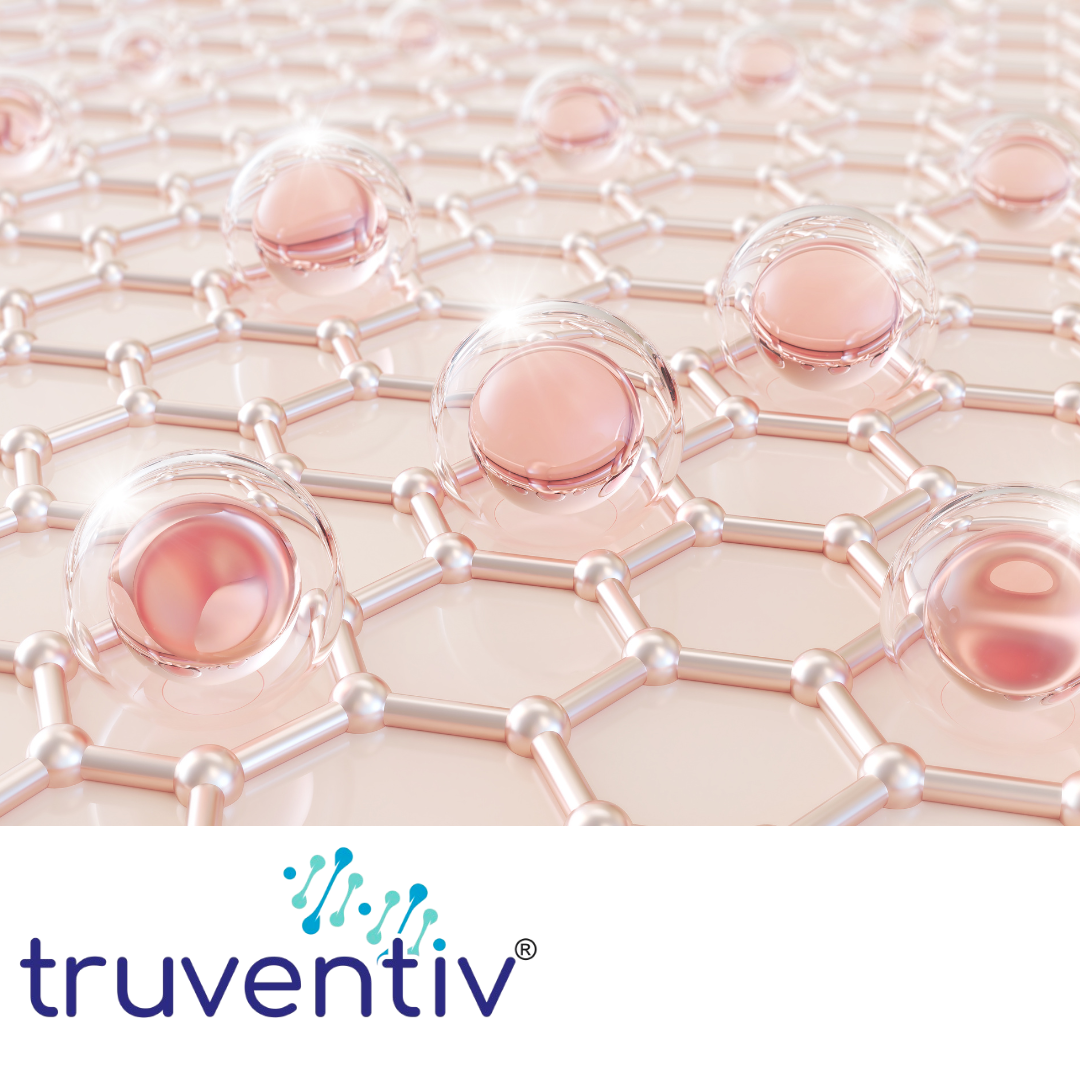
Glyceryl Stearate and PEG-100 Stearate are key ingredients commonly used in skincare formulations as emulsifiers and moisturizers. Their roles extend beyond simple moisturization; they significantly contribute to overall dermal health.
- Enhance Skin Hydration
Both glyceryl stearate and PEG-100 stearate help to improve the skin's hydration levels by ensuring the effective absorption of water-based ingredients into the skin and preventing moisture loss.
- Glyceryl Stearate: As an emulsifier, it binds water and oil together, helping to lock moisture into the skin. Proper hydration supports the skin's natural functions, such as its barrier protection, flexibility, and overall resilience. Well-hydrated skin looks healthier and feels softer.
- PEG-100 Stearate: Similar to glyceryl stearate, PEG-100 stearate ensures better absorption of moisture and nutrients into the skin, keeping it hydrated throughout the day. A well-moisturized skin barrier also protects the skin from external irritants and pollutants, preventing damage to the skin's structure.
- Strengthening the Skin's Protective Barrier
Both ingredients contribute to enhancing the skin's natural barrier, which is essential for maintaining overall dermal health.
- Glyceryl Stearate: It helps maintain and strengthen the skin's lipid barrier, preventing moisture loss and protecting against harmful environmental factors such as pollution, toxins, and allergens. A strong skin barrier is crucial for maintaining skin health, as it prevents irritation, dryness, and sensitivity.
- PEG-100 Stearate: By promoting better moisture retention and improving skin texture, it helps maintain a functional skin barrier. A healthy barrier minimizes the risk of skin infections, reduces inflammation, and ensures the skin remains smooth and resilient to environmental stressors.
- Improved Skin Texture
Regular use of glyceryl stearate and PEG-100 stearate helps smooth out rough skin texture by providing hydration and promoting a healthy, soft feel.
- Glyceryl Stearate: Softens the skin, which improves its overall texture. When the skin is well-hydrated, it becomes more supple and smooth, which is a sign of healthy skin.
- PEG-100 Stearate: Enhances the absorption of other active ingredients that support skin texture improvement. By helping products spread evenly and absorb well, these ingredients leave the skin feeling smoother and softer, giving it a more youthful and healthy appearance.
- Non-Irritating and Gentle
Both glyceryl stearate and PEG-100 stearate are relatively gentle on the skin, making them suitable for sensitive skin types.
- Glyceryl Stearate: It is non-irritating, ensuring that it won't cause adverse reactions or further stress to sensitive or reactive skin. This gentle action helps support skin health without compromising the skin’s natural balance.
- PEG-100 Stearate: Known for being less irritating than other emulsifiers, PEG-100 stearate is a safe choice for formulations targeting delicate or easily irritated skin. By not causing irritation, it helps maintain a healthy, calm, and balanced complexion.
- Enhances Absorption of Active Ingredients
Glyceryl stearate and PEG-100 stearate are both key in ensuring that the active ingredients in skincare formulations are effectively delivered to the skin.
- Glyceryl Stearate: By emulsifying and stabilizing the formula, it enhances the delivery of beneficial ingredients like vitamins, antioxidants, and peptides into the deeper layers of the skin, maximizing their impact on dermal health.
- PEG-100 Stearate: Similarly, PEG-100 stearate helps to ensure that active ingredients can be absorbed properly, leading to better skin health over time. It facilitates the penetration of moisturizing agents and skin-rejuvenating ingredients, promoting smoother and healthier skin.
- Supports Skin’s Natural Repair Processes
By maintaining moisture balance and promoting product absorption, both glyceryl stearate and PEG-100 stearate help support the skin's natural healing and repair processes.
- Glyceryl Stearate: By locking in moisture, it helps the skin repair itself from everyday damage caused by environmental factors, dehydration, and aging. Proper hydration is essential for the skin’s ability to heal itself and regenerate new skin cells.
- PEG-100 Stearate: Helps enhance the effectiveness of other reparative ingredients in skincare, which support the skin's ability to regenerate and repair. This can lead to better healing of minor skin irritations, cuts, and damage.
- Improved Skin Tone and Appearance
Both ingredients contribute to an overall healthier appearance by supporting an even skin tone and texture.
- Glyceryl Stearate: By keeping the skin moisturized and smooth, it reduces the appearance of dryness, roughness, or flakiness that can cause uneven skin tone. Well-moisturized skin reflects light better and appears more radiant and healthy.
- PEG-100 Stearate: It helps with the even distribution of active ingredients that promote a healthy complexion. As it aids in the absorption of nutrients, the skin’s natural glow can be enhanced, contributing to an even, vibrant skin tone.
- Helps With Oil Control
While both ingredients are moisturizing, they don't contribute to excess oil production, making them suitable for oily and combination skin types.
- Glyceryl Stearate: Its lightweight nature ensures that it moisturizes without feeling greasy, helping to keep oily skin balanced. By not overloading the skin with extra oil, it helps maintain a healthier oil-water balance.
- PEG-100 Stearate: By creating a lightweight, non-greasy film, it ensures hydration without clogging pores, thus reducing the likelihood of breakouts and supporting clearer skin.
HOW GLYCERYL STEARATE & PEG-100 STEARATE HELPS IN ANTI-INFLAMMATION, ANTI-BACTERIAL, ANTI SEPTIC
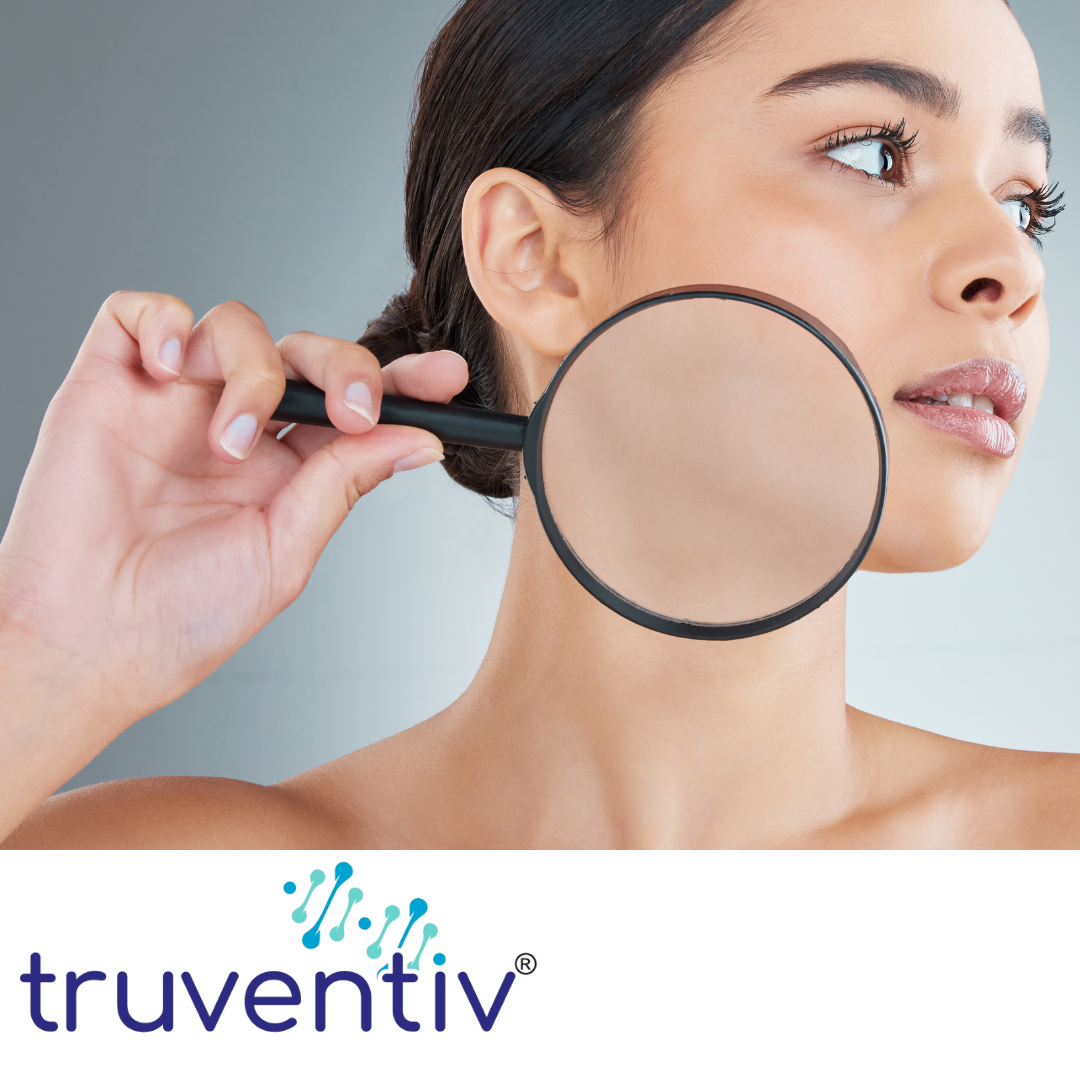
Glyceryl Stearate and PEG-100 Stearate are primarily known for their roles as emulsifiers and moisturizers in skincare formulations. While they don't directly possess strong anti-inflammatory, anti-bacterial, or anti-septic properties themselves, they can contribute to these benefits in several ways due to their supporting role in skincare products.
- Improved Skin Barrier and Reduced Inflammation
By enhancing the skin’s barrier function, both glyceryl stearate and PEG-100 stearate help reduce inflammation and irritation, which are common triggers for many skin conditions.
- Glyceryl Stearate: It helps form a protective barrier on the skin, which prevents external irritants (such as environmental pollutants and bacteria) from penetrating the skin and causing inflammation. A strong, intact skin barrier reduces the risk of irritation and inflammation, which is beneficial for conditions like eczema, rosacea, or sensitive skin.
- PEG-100 Stearate: Similarly, PEG-100 Stearate helps in creating a smooth, moisturized layer over the skin that protects it from external factors that can lead to inflammation. This ensures that the skin remains calm and balanced, which can reduce the occurrence of inflammatory responses.
- Soothing and Calming Effects
Both glyceryl stearate and PEG-100 stearate have moisturizing properties that can help soothe and calm the skin, which is beneficial for preventing or reducing inflammation.
- Glyceryl Stearate: By hydrating and softening the skin, glyceryl stearate helps to calm down irritation and redness, making it less prone to inflammation. Its ability to keep moisture locked into the skin allows it to remain flexible and less sensitive to external triggers, which can reduce irritation.
- PEG-100 Stearate: Its ability to provide deep moisturization helps maintain the skin’s natural balance, preventing dryness or tightness, which can exacerbate inflammation or skin irritation. Properly moisturized skin is less likely to become inflamed or irritated.
- Promoting the Efficacy of Active Ingredients
Both emulsifiers enhance the absorption of other anti-inflammatory, anti-bacterial, and anti-septic ingredients in skincare products.
- Glyceryl Stearate: As an emulsifier, glyceryl stearate helps combine and stabilize oil and water-based ingredients, making sure active compounds (such as anti-inflammatory agents, antibacterial compounds, or antiseptics) can penetrate the skin properly and work more effectively. This can help boost the overall anti-inflammatory or antibacterial effects of the product.
- PEG-100 Stearate: Similarly, it enhances the absorption of other active ingredients, ensuring that soothing, anti-inflammatory, or antibacterial agents (like tea tree oil, aloe vera, or salicylic acid) work deeper into the skin. This makes the entire formulation more effective in fighting inflammation, bacteria, and infections.
- Supporting Skin Healing and Repair
By maintaining a healthy skin barrier, both glyceryl stearate and PEG-100 stearate also aid in the skin’s natural healing process, helping to repair damaged tissue caused by inflammation or bacterial infections.
- Glyceryl Stearate: It helps lock in moisture and ensures the skin stays hydrated, which is vital for healing and reducing inflammation. By preventing water loss, glyceryl stearate allows the skin to recover more quickly from inflammatory conditions, and it helps maintain skin health after bacterial or fungal challenges.
- PEG-100 Stearate: By ensuring that the skin remains moisturized and balanced, PEG-100 stearate helps the skin to recover from environmental damage, irritation, and inflammation, providing the necessary conditions for healing and reducing inflammation.
- Supporting the Use of Antibacterial and Antiseptic Ingredients
These emulsifiers ensure that other antibacterial and antiseptic ingredients in the formulation are effectively blended and absorbed.
- Glyceryl Stearate: By helping to stabilize and emulsify products, glyceryl stearate allows antibacterial and antiseptic ingredients (such as benzoyl peroxide or salicylic acid) to work more effectively on the skin, combating harmful bacteria and preventing the development of infections that could trigger inflammation.
- PEG-100 Stearate: Similar to glyceryl stearate, it improves the stability of formulations containing antibacterial or antiseptic ingredients, ensuring these active components are more efficiently delivered to the skin for better results.
- Anti-Bacterial Properties (Indirect Effects)
While neither glyceryl stearate nor PEG-100 stearate has direct antibacterial effects, the ability to support a healthy skin barrier and ensure effective moisture retention can reduce the proliferation of harmful bacteria on the skin.
- Glyceryl Stearate: By maintaining skin hydration and strengthening the skin’s barrier, it helps prevent the entry of harmful bacteria, which can cause infections and lead to inflammation. Well-hydrated skin has better resilience against bacterial colonization and irritation.
- PEG-100 Stearate: Similarly, PEG-100 stearate contributes to the maintenance of a hydrated skin environment, making it more resilient to bacterial buildup. When the skin is well-hydrated and its barrier is intact, harmful bacteria are less likely to penetrate and cause issues.
HOW GLYCERYL STEARATE & PEG-100 STEARATE HELPS IN REDUCES REDNESS & BLEMISHES
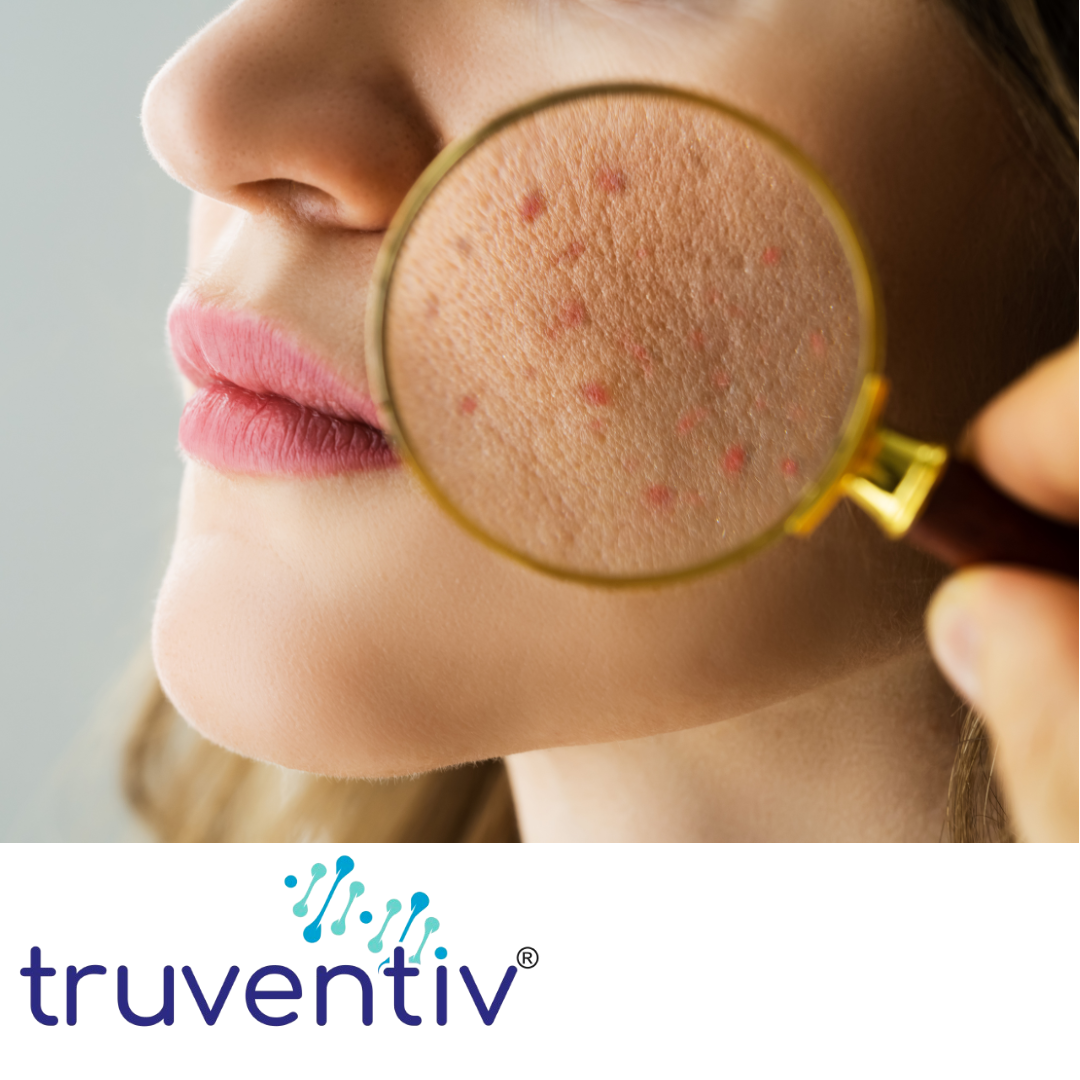
Glyceryl Stearate and PEG-100 Stearate are emulsifiers commonly used in skincare products. While they are not directly anti-inflammatory or antibacterial agents, they can contribute to reducing redness and blemishes through their hydrating, barrier-supporting, and product-enhancing properties.
- Hydrating and Soothing Effects
Both glyceryl stearate and PEG-100 stearate are effective at improving the hydration of the skin, which can help reduce redness and blemishes caused by dryness, irritation, or inflammation.
- Glyceryl Stearate: By acting as an emulsifier, glyceryl stearate helps to bind water and oil, ensuring that the skin maintains its hydration balance. Proper hydration prevents the skin from becoming dry and irritated, which can lead to redness and exacerbate blemishes. Well-moisturized skin also appears healthier and more even, reducing the appearance of redness.
- PEG-100 Stearate: Like glyceryl stearate, PEG-100 stearate helps deliver moisture to the skin and locks it in, ensuring that the skin stays soft and hydrated. This moisturization helps prevent redness caused by dehydration and supports smoother skin, which can reduce the appearance of blemishes and skin irritation.
- Strengthening the Skin's Natural Barrier
Both ingredients are effective at reinforcing the skin's protective barrier function, which can help reduce irritation and redness that may result from external factors like pollution, weather conditions, or allergens.
- Glyceryl Stearate: It helps to strengthen the skin’s lipid barrier, making it more resilient to environmental stressors. A strong skin barrier can protect the skin from irritants that often lead to inflammation and redness. This reduces the risk of flare-ups and makes the skin less prone to irritation.
- PEG-100 Stearate: By forming a moisturizing layer, PEG-100 stearate also contributes to strengthening the skin's natural defense mechanisms. With a more intact and functional barrier, the skin is less likely to react to environmental stress, which can cause redness and blemishes.
- Reducing Inflammation
Both glyceryl stearate and PEG-100 stearate can indirectly reduce inflammation, which is often a cause of redness and blemishes.
- Glyceryl Stearate: It supports the skin’s ability to maintain moisture and reduces water loss. When the skin is hydrated and its barrier is intact, it becomes less reactive to inflammatory triggers like allergens, harsh weather, or product irritation. This can help reduce the appearance of redness and irritation.
- PEG-100 Stearate: Similarly, by moisturizing and soothing the skin, PEG-100 stearate helps reduce the irritation that can lead to inflammation, thereby helping to calm down redness and prevent the formation of blemishes due to inflammation.
- Promoting Even Skin Texture
Both glyceryl stearate and PEG-100 stearate improve the skin’s texture by ensuring that moisturizers and active ingredients are properly absorbed.
- Glyceryl Stearate: Its moisturizing and emulsifying properties help smooth the skin's surface, reducing rough patches and promoting a more even skin texture. When the skin feels smoother and more hydrated, it can reduce the appearance of redness and blemishes, making the skin appear calmer.
- PEG-100 Stearate: By allowing other ingredients in the product to be absorbed efficiently, PEG-100 stearate enhances the efficacy of ingredients that support clearer skin. This can help reduce the appearance of uneven skin tone, blemishes, and redness, promoting smoother and healthier-looking skin.
- Support for Other Active Ingredients
Glyceryl stearate and PEG-100 stearate act as stabilizing agents, ensuring that other active ingredients (such as anti-inflammatory, antioxidant, or soothing compounds) in the formula are evenly distributed and effectively absorbed into the skin. Many of these actives are known for reducing redness, calming irritation, and preventing or treating blemishes.
- Glyceryl Stearate: By helping to emulsify products, glyceryl stearate ensures that anti-inflammatory or skin-healing ingredients (like chamomile, aloe vera, or niacinamide) are well-mixed and properly absorbed, amplifying their soothing and redness-reducing effects.
- PEG-100 Stearate: Similar to glyceryl stearate, PEG-100 stearate helps the skin absorb active ingredients more effectively, enhancing their ability to calm redness and treat blemishes. This can lead to clearer, more even-toned skin over time.
- Soothing Sensitive Skin
Both glyceryl stearate and PEG-100 stearate are relatively gentle on the skin, making them suitable for sensitive skin prone to redness and irritation.
- Glyceryl Stearate: Its mild and non-irritating properties help soothe sensitive skin, preventing over-drying or irritation that can trigger redness and lead to blemishes. When used regularly, it helps maintain a calm and balanced complexion.
- PEG-100 Stearate: Known for being a gentle ingredient, PEG-100 stearate supports delicate or irritated skin by creating a barrier that helps prevent further irritation or inflammation, thus reducing redness and promoting a smoother, clearer complexion.
HOW GLYCERYL STEARATE & PEG-100 STEARATE HELPS IN CALMS SKIN CONDITIONS LIKE ECZEMA, ROSACEA AND PSORIASIS
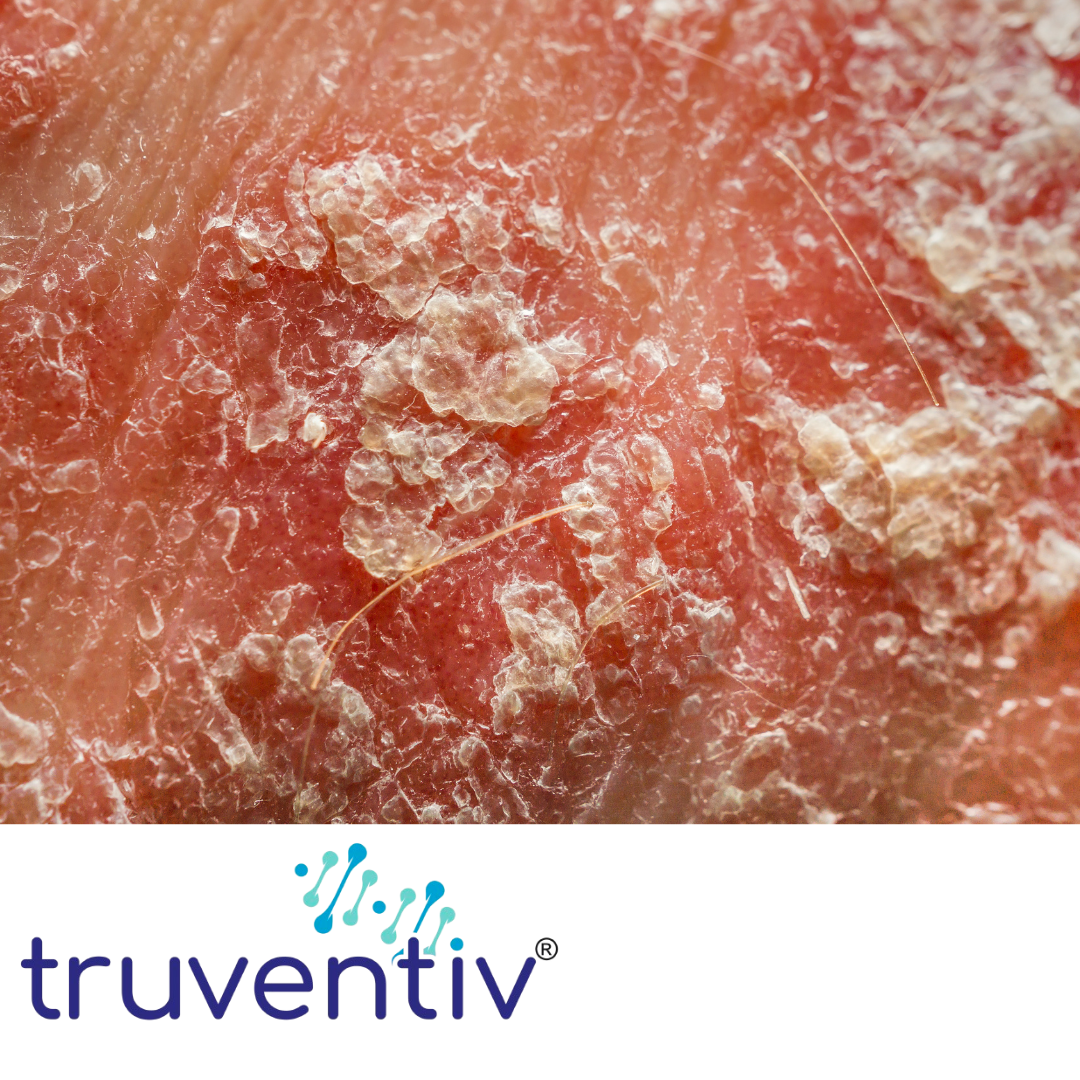
Glyceryl Stearate and PEG-100 Stearate are both commonly used as emulsifiers and moisturizers in skincare formulations. While these ingredients do not have direct medicinal properties, they play a supporting role in calming skin conditions like eczema, rosacea, and psoriasis.
- Enhancing Skin Barrier Function
One of the primary roles of glyceryl stearate and PEG-100 stearate is to improve and maintain the skin’s natural barrier. A weakened or compromised skin barrier can exacerbate conditions like eczema, rosacea, and psoriasis, leading to more dryness, irritation, and inflammation.
- Glyceryl Stearate: It helps create a smooth, protective barrier on the skin, which is essential for locking in moisture and preventing irritants or allergens from penetrating the skin. This protective barrier helps reduce transepidermal water loss (TEWL), keeping the skin hydrated and preventing flare-ups of conditions like eczema or psoriasis.
- PEG-100 Stearate: Similarly, PEG-100 stearate helps maintain the skin’s hydration by forming a moisturizing layer over the skin, preventing it from becoming overly dry. Since dehydration is a common trigger for eczema and psoriasis flare-ups, maintaining moisture balance is crucial for calming these conditions.
- Moisturization and Skin Hydration
Both glyceryl stearate and PEG-100 stearate have excellent moisturizing properties, which are key in managing chronic skin conditions like eczema, rosacea, and psoriasis, where the skin tends to be dry, inflamed, or cracked.
- Glyceryl Stearate: It helps in binding water and oils together in a formulation, ensuring that the skin stays hydrated and soft. This is especially beneficial for eczema and psoriasis, where the skin often becomes very dry and flaky. By improving hydration, glyceryl stearate helps prevent cracking and scaling, and reduces the discomfort associated with these conditions.
- PEG-100 Stearate: It helps lock in moisture and supports the skin's hydration, which is essential in soothing and relieving dry, irritated skin. Well-moisturized skin is less prone to becoming inflamed or irritated, which can help reduce the intensity and frequency of flare-ups in conditions like rosacea or eczema.
- Reducing Irritation and Inflammation
While glyceryl stearate and PEG-100 stearate do not have direct anti-inflammatory properties, their ability to improve moisture retention and skin barrier function helps prevent irritation, which can trigger or worsen conditions like rosacea, eczema, and psoriasis.
- Glyceryl Stearate: By creating a barrier that protects the skin from external irritants and by maintaining hydration, glyceryl stearate helps reduce the likelihood of skin flare-ups and irritation. For those with eczema or psoriasis, reducing irritation is crucial for controlling inflammation and preventing worsening of the condition.
- PEG-100 Stearate: It supports the skin in retaining moisture and maintaining a hydrated environment. This helps reduce the discomfort and redness that often accompanies rosacea and eczema. A hydrated, well-moisturized skin is less likely to become inflamed or itchy, which is important in managing flare-ups.
- Supporting the Healing Process
For individuals with psoriasis, eczema, or rosacea, healing is an important part of managing flare-ups. Glyceryl stearate and PEG-100 stearate can support the skin’s natural healing process by providing optimal conditions for repair.
- Glyceryl Stearate: By ensuring that the skin remains hydrated, glyceryl stearate helps to facilitate the healing of cracked or inflamed skin. This is particularly beneficial for psoriasis, where the skin is prone to thickening and forming plaques. Hydration helps to soften and smooth the skin, promoting healing.
- PEG-100 Stearate: Its moisturizing properties also promote skin regeneration and repair. By preventing excessive dryness and reducing the risk of skin cracking, PEG-100 stearate supports the healing of damaged skin and prevents new lesions from forming, which is beneficial for those with eczema or psoriasis.
- Promoting Even Skin Texture
Both glyceryl stearate and PEG-100 stearate help improve the texture and appearance of the skin by ensuring smooth and even moisture distribution.
- Glyceryl Stearate: It creates a smoother texture by enhancing the uniform distribution of moisture, which can help reduce the rough, patchy skin texture associated with eczema and psoriasis. Smoother skin is less prone to irritation and inflammation, thus helping to manage flare-ups more effectively.
- PEG-100 Stearate: By ensuring that the skin is consistently moisturized, PEG-100 stearate helps create a more even, calm surface. This can help reduce the appearance of redness, rough patches, and flakiness, which are common with conditions like rosacea and eczema.
- Improving Skin Tolerance to Other Actives
Both glyceryl stearate and PEG-100 stearate serve as emulsifiers, helping active ingredients in skincare formulations to be more effectively absorbed and distributed across the skin. This is particularly helpful in products designed for skin conditions like eczema, rosacea, or psoriasis, where active ingredients such as anti-inflammatory agents, hydrating compounds, or soothing ingredients (like aloe vera or niacinamide) need to be evenly applied and absorbed.
- Glyceryl Stearate: It helps stabilize products and ensure that active ingredients reach the deeper layers of the skin. When combined with ingredients that reduce inflammation or irritation, glyceryl stearate ensures that they are absorbed more efficiently to provide maximum benefits for sensitive skin.
- PEG-100 Stearate: Similarly, PEG-100 stearate improves the stability and absorption of other active ingredients. This is especially helpful for skin conditions like eczema or psoriasis, where the skin may be more sensitive to new products. By ensuring the active ingredients are evenly distributed, PEG-100 stearate enhances their effectiveness in calming inflammation and promoting healing.
HOW GLYCERYL STEARATE & PEG-100 STEARATE HELPS IN ANTI-ACNE & PIMPLE
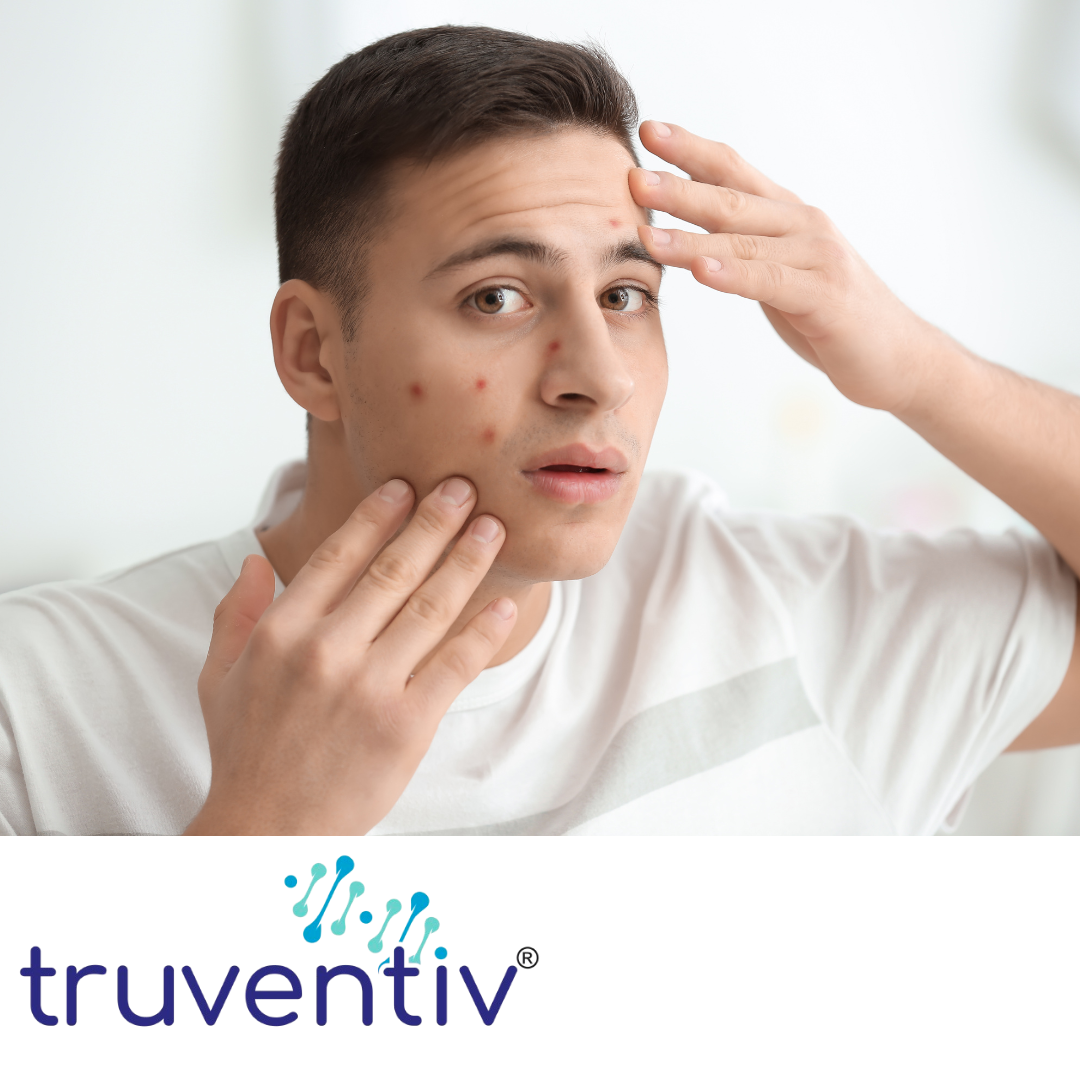
Glyceryl Stearate and PEG-100 Stearate are common emulsifiers used in skincare formulations, and while they are not directly anti-acne or anti-pimple agents, they can still support acne-prone skin through their hydrating, barrier-enhancing, and product-stabilizing properties.
- Hydration without Clogging Pores
One of the primary factors that contribute to acne is dryness or dehydration, which can trigger the skin to produce more oil, potentially clogging pores and leading to pimples. Glyceryl Stearate and PEG-100 Stearate both have excellent moisturizing properties that help hydrate the skin without causing pore blockage.
- Glyceryl Stearate: It acts as an emulsifier and a moisturizer that helps the skin retain water, keeping it soft and hydrated. Proper hydration prevents the skin from becoming excessively dry and triggering an overproduction of sebum (skin oil), which can lead to clogged pores and breakouts. As it helps to maintain moisture, glyceryl stearate ensures that acne-prone skin doesn't become overly oily or excessively dry.
- PEG-100 Stearate: Like glyceryl stearate, PEG-100 stearate helps the skin stay moisturized by locking in water. It doesn't clog pores or exacerbate acne, as it is a non-comedogenic ingredient. This is especially important for acne-prone skin, as keeping the skin hydrated without contributing to pore congestion is key in preventing breakouts.
- Strengthening the Skin Barrier
A compromised skin barrier can lead to increased inflammation, irritation, and breakouts. By improving the skin’s barrier function, both glyceryl stearate and PEG-100 stearate help keep the skin protected from external irritants and bacteria that can worsen acne and pimples.
- Glyceryl Stearate: It supports the skin’s lipid barrier by reducing water loss and preventing external pollutants, irritants, or bacteria from entering the skin. This is important for acne-prone skin, as external stressors can trigger inflammation and increase the risk of breakouts. A strong skin barrier can prevent acne flare-ups and reduce the severity of pimples.
- PEG-100 Stearate: It helps to reinforce the skin’s barrier by keeping moisture locked in, which helps the skin stay balanced. A well-functioning barrier prevents acne-causing bacteria from penetrating the skin and reduces the likelihood of irritation or inflammation that could lead to pimples or cystic acne.
- Non-Irritating and Gentle on Sensitive Skin
Acne treatments often involve potent active ingredients that can be drying or irritating. Glyceryl Stearate and PEG-100 Stearate can help counteract irritation by providing soothing hydration and ensuring that other active ingredients are delivered effectively without causing excess irritation.
- Glyceryl Stearate: It has a mild, non-irritating nature that helps prevent dryness or irritation often associated with acne treatments. This is important, as irritation can lead to more breakouts or worsen existing acne. It keeps the skin calm, making it easier for acne treatments (like salicylic acid or benzoyl peroxide) to work without causing further irritation.
- PEG-100 Stearate: Known for being gentle on the skin, PEG-100 stearate helps stabilize formulations and makes the skin feel smooth and hydrated. By preventing excessive dryness and irritation, it can help support the skin’s natural balance, which is crucial in preventing acne flare-ups.
- Improving the Texture of the Skin
By keeping the skin hydrated and smooth, both glyceryl stearate and PEG-100 stearate can help improve the overall texture of the skin, which is often affected by acne scarring and pimples.
- Glyceryl Stearate: It contributes to softer, more even skin texture by improving moisture distribution. This helps to reduce the appearance of rough patches or skin flakiness that can be a result of acne. By keeping the skin hydrated, glyceryl stearate helps reduce the chances of acne scars or rough textures forming after breakouts.
- PEG-100 Stearate: It also supports skin texture by preventing dehydration, ensuring a smoother, more uniform surface. This can be particularly helpful for acne-prone skin, as it helps minimize post-acne scarring and the appearance of uneven skin.
- Supporting the Absorption of Active Ingredients
As emulsifiers, glyceryl stearate and PEG-100 stearate help to stabilize formulations, ensuring that active ingredients are evenly distributed and absorbed effectively by the skin. Many acne treatments contain actives that target acne-causing bacteria or regulate oil production, such as retinoids, salicylic acid, or niacinamide.
- Glyceryl Stearate: It helps active ingredients penetrate the skin more effectively, ensuring that anti-acne actives are absorbed without causing irritation. This is important because acne treatments often need to be efficiently delivered to the skin's deeper layers in order to be effective.
- PEG-100 Stearate: Similarly, PEG-100 stearate ensures that active ingredients are evenly dispersed and absorbed, which enhances their ability to treat acne. It helps in the smooth application of acne treatments and reduces the likelihood of uneven absorption, making these treatments more effective.
- Calming Irritation and Redness
Acne can often cause irritation, redness, and inflammation. Glyceryl stearate and PEG-100 stearate help soothe and calm the skin, which can reduce the redness and swelling associated with active acne.
- Glyceryl Stearate: Its ability to hydrate and form a protective barrier reduces irritation and prevents further inflammation. It can also help relieve the discomfort associated with acne flare-ups, providing a soothing effect.
- PEG-100 Stearate: It works similarly by locking in moisture and preventing excessive dryness, which can aggravate acne-related redness and inflammation. The result is a calmer, more balanced complexion that is less prone to visible irritation.
HOW CETEARYL ALCOHOL HELPS IN FOR NATURAL GLOWING SKIN

Cetearyl Alcohol is a fatty alcohol commonly used in skincare products as an emulsifier and thickening agent. While it doesn’t directly act as a skin brightener or glow enhancer, it helps support glowing skin in a few indirect but significant ways.
- Hydration and Moisture Retention
One of the key components of glowing skin is hydration. Cetearyl alcohol helps to retain moisture in the skin by forming a barrier that prevents water loss. Well-hydrated skin looks plump, smooth, and naturally radiant.
- How it helps: Cetearyl alcohol acts as an emollient, which means it softens and smooths the skin. It helps products spread more evenly and reduces water loss, ensuring the skin remains moisturized. Proper hydration makes the skin appear more supple and glowing.
- Improved Skin Texture
For the skin to look naturally glowing, it needs to have an even, smooth texture. Cetearyl alcohol, by improving the consistency of products, helps in giving the skin a smoother feel and appearance.
- How it helps: Cetearyl alcohol forms a film on the skin’s surface, which helps to smooth out rough patches and gives the skin a soft, velvety texture. By preventing the skin from feeling dry or rough, it enhances the overall appearance, contributing to a glowing complexion.
- Enhances Absorption of Active Ingredients
Cetearyl alcohol helps in emulsifying and stabilizing skincare products. This means it enables better absorption of the active ingredients, like vitamin C, niacinamide, or hyaluronic acid, which can brighten the skin, promote an even tone, and enhance radiance.
- How it helps: By improving the effectiveness of these active ingredients, cetearyl alcohol indirectly helps with promoting a more glowing, even complexion. Active ingredients are better absorbed into the skin, which can help brighten and enhance the skin’s natural glow.
- Non-Irritating for Sensitive Skin
Irritation can lead to redness, flakiness, or uneven skin tone, all of which can dull the skin’s natural glow. Cetearyl alcohol is generally considered to be gentle on the skin, making it suitable for those with sensitive or reactive skin. It helps soothe the skin while maintaining moisture, reducing the chances of irritation that could lead to a lackluster appearance.
- How it helps: By keeping the skin calm and hydrated, cetearyl alcohol prevents the conditions that might contribute to a dull or irritated complexion. Healthy, non-irritated skin is more likely to reflect light naturally, enhancing its glow.
- Acts as a Skin Barrier Enhancer
A strong, healthy skin barrier is crucial for maintaining natural skin glow. When the skin barrier is damaged, it can lead to moisture loss and irritation, which can make the skin appear dull and tired.
- How it helps: Cetearyl alcohol helps to repair and strengthen the skin’s natural barrier. By forming a protective layer on the skin, it helps protect against environmental aggressors like pollutants, which can damage the skin and lead to a dull complexion. This barrier protection helps keep the skin glowing and healthy.
- Prevents Dryness and Flakiness
Dry, flaky skin can prevent the skin from reflecting light well, which diminishes its natural glow. Cetearyl alcohol’s emollient properties help prevent dryness by trapping moisture and preventing water loss from the skin.
- How it helps: By preventing dehydration and dryness, cetearyl alcohol ensures that the skin remains soft, hydrated, and less likely to develop rough patches. Healthy, well-hydrated skin is key to maintaining that natural radiance.
HOW CETEARYL ALCOHOL HELPS IN IMPROVES OVERALL DERMAL HEALTH

Cetearyl Alcohol is a widely used ingredient in skincare due to its emulsifying and moisturizing properties. Though it may not directly treat skin conditions, it plays an essential role in improving overall dermal health through several mechanisms.
- Moisture Retention
One of the primary ways cetearyl alcohol benefits skin health is by helping to lock in moisture. Hydration is essential for maintaining healthy skin as it helps the skin's natural functions, such as cell renewal and barrier function.
- How it helps: Cetearyl alcohol acts as an emollient, which creates a protective layer on the skin’s surface, reducing water loss. This helps maintain skin hydration, keeping it plump and healthy. Well-hydrated skin is less prone to dryness, flaking, or irritation, contributing to overall skin health.
- Supports Skin Barrier Function
The skin barrier is the outermost layer of skin, which plays a crucial role in protecting the body from environmental pollutants, bacteria, and water loss. A compromised skin barrier can lead to irritation, sensitivity, and various skin conditions such as eczema, psoriasis, and acne.
- How it helps: Cetearyl alcohol helps reinforce and strengthen the skin barrier. It forms a protective barrier that prevents moisture loss and shields the skin from external irritants, such as pollutants or harsh weather. A strong skin barrier is essential for overall skin health, as it keeps the skin hydrated and protected.
- Prevents Dryness and Flakiness
Dry skin is more prone to irritation and conditions like eczema, itchiness, and flaking. Maintaining hydration is key to preventing these issues and promoting healthier skin.
- How it helps: As a humectant, cetearyl alcohol draws moisture to the skin and locks it in, preventing the skin from becoming dry or flaky. This promotes a smoother, more resilient skin texture, which is crucial for overall dermal health.
- Soothes and Calms Skin
Skin irritation, redness, and inflammation can compromise skin health. Cetearyl alcohol is gentle and soothing, making it suitable for sensitive skin.
- How it helps: By moisturizing and forming a protective layer, cetearyl alcohol helps to calm irritated skin, reducing the chances of inflammation or discomfort. It is particularly beneficial for people with sensitive or reactive skin, as it hydrates without causing further irritation.
- Improves Skin Texture and Softness
Healthy skin has a smooth, soft texture, and cetearyl alcohol contributes to this by softening the skin.
- How it helps: It works as an emollient that smooths rough or bumpy skin, making the skin feel softer and more supple. Regular use of products with cetearyl alcohol can help maintain a smooth texture, preventing rough patches or bumps caused by dehydration or dryness.
- Enhances the Effectiveness of Other Ingredients
Cetearyl alcohol helps to stabilize formulations and ensure that active ingredients are properly absorbed into the skin. This enhances the overall effectiveness of other beneficial ingredients in skincare products.
- How it helps: As an emulsifier, it ensures that ingredients such as vitamins, antioxidants, and hydrators are evenly distributed and absorbed by the skin. This allows other active ingredients to work more effectively and support overall skin health.
- Gentle on Skin
Many active ingredients used in skincare can cause irritation or sensitivity, especially for those with conditions like acne or eczema. Cetearyl alcohol, being a fatty alcohol, is gentle and non-irritating, making it suitable for sensitive skin types.
- How it helps: Its mildness helps prevent the skin from becoming overly irritated or inflamed, allowing the skin to heal and remain balanced. It’s especially useful for calming sensitive skin while still providing hydration and barrier support.
- Promotes Skin Healing
In skincare products, wound healing and skin regeneration are critical to maintaining healthy skin. Cetearyl alcohol’s moisturizing and protective properties contribute to a conducive environment for skin to heal after damage or irritation.
- How it helps: The moisturizing properties of cetearyl alcohol support the skin's healing process by preventing dehydration and maintaining a balanced environment for skin regeneration. This can be especially useful for skin that has been compromised by over-exfoliation, irritation, or dryness.
- Non-Comedogenic (Won’t Clog Pores)
For people with oily or acne-prone skin, avoiding pore-clogging ingredients is crucial for skin health. Cetearyl alcohol is generally considered non-comedogenic, meaning it doesn’t clog pores or contribute to the formation of acne.
- How it helps: By not clogging pores, cetearyl alcohol helps maintain clear skin while still providing the hydration and barrier support necessary for overall skin health. It can be included in skincare products for oily or acne-prone skin without the risk of breakouts.
HOW CETEARYL ALCOHOL HELPS IN ANTI-INFLAMMATION, ANTI-BACTERIAL, ANTI SEPTIC
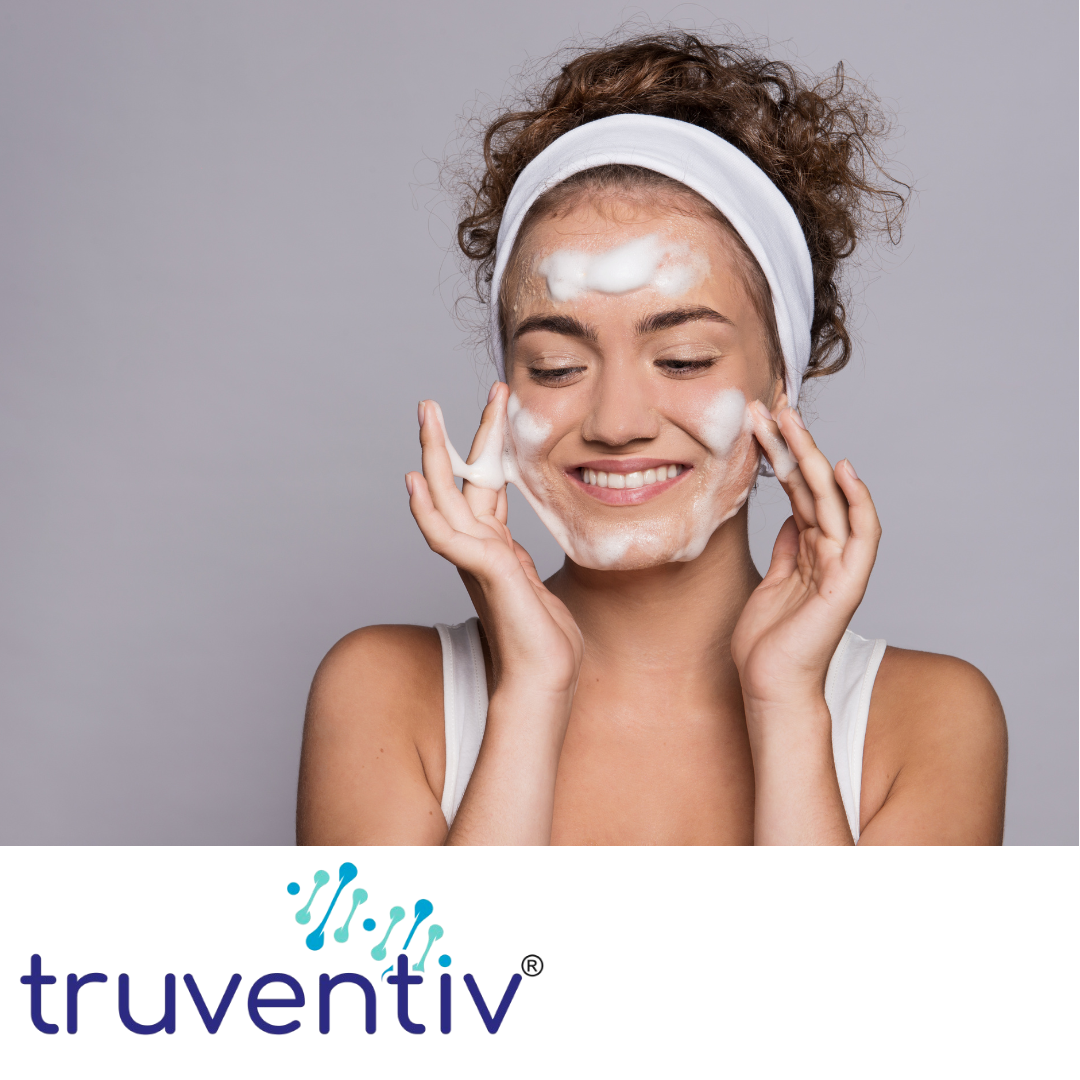
Cetearyl Alcohol is primarily used in skincare formulations for its emulsifying, moisturizing, and texturizing properties. While it is not a potent anti-inflammatory, anti-bacterial, or anti-septic agent on its own, it can indirectly help manage skin inflammation, bacterial growth, and support the skin’s natural defense systems through several mechanisms.
- Anti-Inflammatory Effects
Cetearyl alcohol can help reduce inflammation in the skin through its moisturizing and barrier-repairing properties, which indirectly prevent inflammation caused by dryness, irritation, or skin barrier dysfunction.
- How it helps:
- Cetearyl alcohol is a fatty alcohol, which is gentle and non-irritating to the skin. It has soothing properties that help to calm the skin by forming a barrier that locks moisture in and prevents further water loss. When the skin is well-moisturized and protected, it is less likely to become inflamed or irritated, which is often a trigger for inflammation.
- It prevents skin dryness, a common cause of inflammation, and helps maintain the skin’s natural pH balance. This minimizes the chances of conditions like eczema, rosacea, or general irritation that often result in inflammatory responses.
- Anti-Bacterial Benefits
Cetearyl alcohol has a mild bacteriostatic effect, meaning it may help reduce the growth of certain bacteria on the skin, preventing potential infection or irritation.
- How it helps:
- In some formulations, fatty alcohols like cetearyl alcohol can help reduce the presence of harmful bacteria by creating a moisturizing environment that prevents the skin from drying out. When the skin is well-moisturized, it’s better able to function as a barrier against harmful microorganisms, preventing bacterial overgrowth.
- Cetearyl alcohol also enhances the stability and effectiveness of other anti-bacterial ingredients in a formulation by ensuring even distribution and improved penetration into the skin, contributing to more effective anti-bacterial action.
- Anti-Septic Properties
While cetearyl alcohol isn't a direct antiseptic, it supports skin health in a way that aids in the prevention of infection by maintaining a healthy skin barrier. By preventing moisture loss and improving the skin’s barrier function, it makes the skin more resistant to external stressors, including harmful microorganisms that can lead to infections.
- How it helps:
- Cetearyl alcohol’s role in maintaining the integrity of the skin barrier helps ensure that the skin can resist pathogens and irritants from the environment. A healthy, intact skin barrier is crucial for preventing skin infections and sepsis, especially in people with compromised skin conditions or when the skin is damaged (e.g., after exfoliation, acne breakouts, or minor wounds).
- By keeping the skin hydrated, cetearyl alcohol can help promote faster healing, reducing the risk of infection from external bacteria that may otherwise enter damaged or weakened skin.
- Calming Irritation
Cetearyl alcohol’s gentle properties help soothe irritated skin, making it effective in calming conditions that may lead to redness, swelling, or infection.
- How it helps:
- When applied to inflamed or irritated skin, cetearyl alcohol can help to reduce sensitivity and discomfort. It works as an emollient to soften the skin and improve its overall texture, which helps minimize the irritation that can occur when inflammation causes rough, flaky, or cracked skin.
- By maintaining skin hydration and supporting the healing process, it helps prevent secondary infections that could result from excessive scratching, picking, or contact with bacteria during an inflammatory episode.
- Enhances Skin’s Natural Defenses
Cetearyl alcohol helps improve the skin’s barrier function, which is essential for defending against external threats like bacteria, irritants, and pathogens.
- How it helps:
- A well-functioning skin barrier is the first line of defense against harmful bacteria and pathogens. By forming a protective shield on the skin’s surface, cetearyl alcohol helps to lock in moisture and keep out harmful agents, preventing the skin from becoming vulnerable to bacterial colonization or infection.
- Its role as a moisturizer helps create an environment where the skin's immune system can function optimally, thus supporting the body’s natural defense mechanisms against infection and inflammation.
HOW CETEARYL ALCOHOL HELPS IN REDUCES REDNESS & BLEMISHES
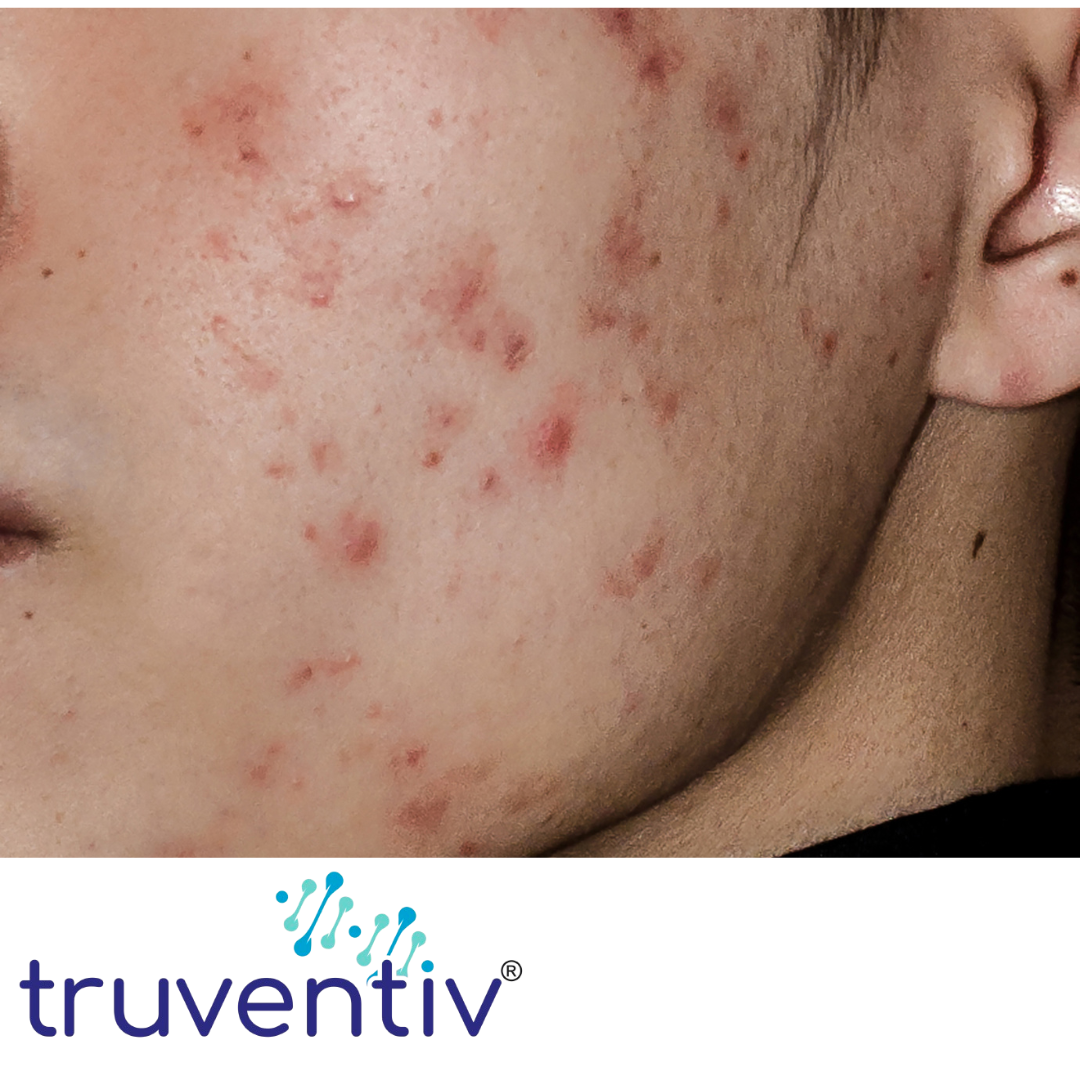
Cetearyl Alcohol is a fatty alcohol commonly used in skincare for its emollient, emulsifying, and moisturizing properties. While it doesn't directly target redness or blemishes, it plays an important role in reducing these skin concerns indirectly through its ability to hydrate, protect, and soothe the skin.
- Soothes Skin Irritation and Reduces Redness
Redness often occurs as a result of skin irritation, inflammation, or dryness. Cetearyl alcohol's ability to hydrate and create a protective barrier helps to reduce these triggers.
- How it helps:
- Moisturizing Action: Cetearyl alcohol works as an emollient, which hydrates and softens the skin. Well-hydrated skin is less likely to become irritated or inflamed, which can contribute to redness.
- Barrier Function: It helps improve the skin’s natural barrier function, preventing moisture loss and external irritants from entering the skin. This creates a calmer, less reactive surface that is less prone to redness or irritation caused by environmental factors, skin sensitivities, or harsh treatments.
- Calms Inflammation
Inflammation is a common cause of both redness and blemishes. Cetearyl alcohol's gentle, moisturizing properties help soothe and reduce skin inflammation.
- How it helps:
- Anti-Inflammatory Action: While it isn't a strong anti-inflammatory agent, cetearyl alcohol can help reduce inflammation by maintaining hydration and supporting the skin barrier. When skin is well-hydrated and protected from moisture loss, it is less likely to become inflamed, which in turn reduces redness associated with conditions like acne, rosacea, or general irritation.
- Prevents Dryness-Induced Redness: Dry, flaky skin can exacerbate inflammation and lead to visible redness. By maintaining moisture, cetearyl alcohol helps to calm irritated skin, promoting a more even tone.
- Reduces the Appearance of Blemishes
While cetearyl alcohol doesn't directly treat acne or blemishes, its ability to support overall skin health helps reduce the likelihood of blemishes and supports the healing process.
- How it helps:
- Hydration: Blemishes often form when the skin becomes too dry or irritated, leading to overproduction of oil or clogged pores. Cetearyl alcohol's hydrating properties help balance the skin, reducing the risk of breakouts or the worsening of existing blemishes.
- Supports Skin Healing: If blemishes or acne have already formed, cetearyl alcohol helps create a moisturizing barrier, which supports the skin’s healing process and prevents scarring or further irritation.
- Gentle on Acne-Prone Skin: For acne-prone skin, it is important to use ingredients that don't clog pores or exacerbate breakouts. Cetearyl alcohol is non-comedogenic, meaning it won’t clog pores, which helps prevent new blemishes from forming while maintaining skin moisture.
- Improves Skin Texture
The ability of cetearyl alcohol to smooth and soften the skin can help improve the appearance of the skin’s surface, leading to a more even tone and fewer visible blemishes.
- How it helps:
- Emollient Action: By softening the skin, cetearyl alcohol helps to smooth out rough patches, which can sometimes contribute to the appearance of redness or uneven skin texture. As a result, it promotes a more even, glowing complexion.
- Skin Soothing: By calming and hydrating the skin, cetearyl alcohol helps to minimize the appearance of red, inflamed spots, making the skin look clearer and more even.
- Enhances Other Ingredients' Effectiveness
Cetearyl alcohol also plays an important role in ensuring that other active ingredients in a skincare formula are evenly distributed and absorbed by the skin. This can contribute to the overall reduction of redness or blemishes, especially if the product contains active ingredients targeting these issues.
- How it helps:
- As an emulsifier, cetearyl alcohol ensures that skincare products like serums or moisturizers are well mixed and properly absorbed, allowing other ingredients (like anti-inflammatory agents, exfoliants, or brighteners) to work more effectively on reducing redness and blemishes.
- Non-Irritating and Non-Comedogenic
Cetearyl alcohol is non-irritating and non-comedogenic, which makes it a safe and effective ingredient for sensitive or acne-prone skin.
- How it helps:
- Because it doesn’t clog pores or irritate the skin, cetearyl alcohol is ideal for people with sensitive skin, acne, or redness issues. It helps maintain hydration without exacerbating acne or causing additional irritation, leading to a calmer, clearer complexion.
HOW CETEARYL ALCOHOL HELPS IN CALMS SKIN CONDITIONS LIKE ECZEMA, ROSACEA & PSORIASIS
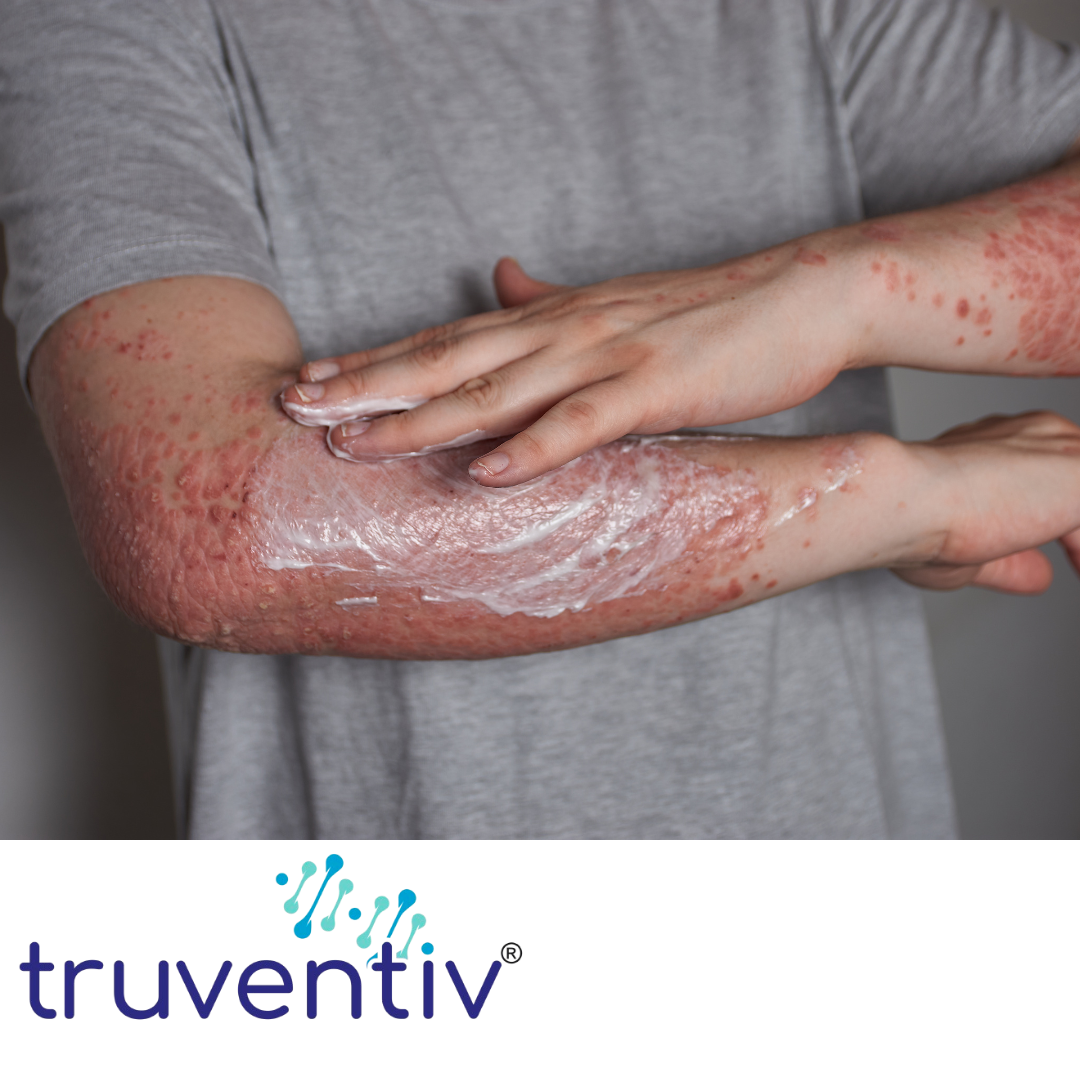
Cetearyl Alcohol is a fatty alcohol commonly used in skincare products for its emulsifying, moisturizing, and skin-softening properties. While not a direct treatment for conditions like eczema, rosacea, or psoriasis, cetearyl alcohol can help calm and manage these conditions through its supportive role in hydrating, protecting, and soothing the skin.
- Moisturizes and Hydrates Dry Skin
Both eczema, rosacea, and psoriasis are characterized by skin dryness, irritation, and a compromised skin barrier. Cetearyl alcohol helps by providing essential moisture to the skin, preventing further dryness, and supporting the skin’s natural barrier function.
- How it helps:
- Hydration: Cetearyl alcohol acts as an emollient, helping to lock in moisture and keep the skin hydrated. When the skin is properly moisturized, it’s less likely to crack, peel, or become irritated, which is common in eczema and psoriasis flare-ups.
- Restores Barrier Function: For conditions like eczema and rosacea, the skin barrier is often weakened. Cetearyl alcohol helps repair and strengthen the barrier, reducing moisture loss and protecting the skin from environmental irritants that could worsen inflammation or cause flare-ups.
- Soothes Skin Inflammation
Eczema, rosacea, and psoriasis all involve some degree of inflammation, which causes redness, irritation, and discomfort. While cetearyl alcohol itself isn't a strong anti-inflammatory ingredient, its ability to moisturize and protect helps calm irritated skin, reducing the severity of inflammation.
- How it helps:
- Calming Effect: Cetearyl alcohol has a soothing effect on the skin by forming a protective layer that helps prevent further irritation from external aggressors, such as allergens, pollution, or harsh weather.
- Prevents Skin Cracking: The added moisture prevents the skin from becoming too dry and cracked, which can aggravate inflammation and make eczema, rosacea, or psoriasis worse. A well-moisturized skin barrier is less likely to inflame further, providing relief from symptoms like redness and discomfort.
- Reduces Skin Sensitivity
Conditions like rosacea are marked by skin sensitivity, and using harsh ingredients can worsen flare-ups. Cetearyl alcohol is a gentle, non-irritating ingredient that can help balance the skin’s moisture levels without causing additional sensitivity.
- How it helps:
- Non-Irritating: Cetearyl alcohol is considered non-irritating and non-sensitizing, making it suitable for individuals with sensitive skin. For people with rosacea or eczema, using products with cetearyl alcohol can help prevent skin irritation and reduce sensitivity, leading to a calmer skin appearance.
- Improves Tolerance: By adding moisture and improving the skin's natural barrier, cetearyl alcohol can help the skin tolerate other active ingredients in skincare products, reducing the likelihood of irritation that could trigger a flare-up.
- Supports Healing of Damaged Skin
Both eczema and psoriasis can cause skin to become cracked, flaky, and damaged. The skin often becomes more vulnerable to infections or further irritation due to these cracks. Cetearyl alcohol helps in healing and regenerating the skin by keeping it hydrated and protected, preventing further damage.
- How it helps:
- Repairs Skin Barrier: Cetearyl alcohol helps to improve the skin's barrier function, allowing it to retain moisture and protect the deeper layers of skin from external pollutants and bacteria. This is especially important for eczema or psoriasis sufferers whose skin may have a compromised barrier.
- Reduces Dryness-Induced Flare-Ups: Dryness is a major trigger for flare-ups in conditions like eczema and psoriasis. Cetearyl alcohol can help keep the skin moisturized, preventing the excessive dryness that leads to cracking and further irritation.
- Protects Against External Irritants
Cetearyl alcohol also acts as a protective barrier on the skin, which helps protect it from external irritants like allergens, dust, and pollutants that can aggravate conditions like eczema, rosacea, or psoriasis.
- How it helps:
- By acting as an occlusive agent, cetearyl alcohol helps to form a barrier that locks moisture in and keeps irritants out. This is beneficial for conditions like rosacea, where external triggers like extreme temperatures, pollution, or certain skincare products can cause flare-ups.
- Prevents External Damage: For individuals with eczema or psoriasis, cetearyl alcohol helps reduce skin sensitivity to external environmental factors, which can trigger or worsen inflammation and redness.
- Improves Skin Texture and Appearance
In conditions like psoriasis and eczema, skin texture can become rough, scaly, or uneven. Cetearyl alcohol helps to smooth the skin’s surface by softening and hydrating it, leading to a more even texture and appearance.
- How it helps:
- Softens and Smooths: As a fatty alcohol, cetearyl alcohol works to soften the skin, which can help smooth the appearance of scales, flakes, or dry patches often seen in psoriasis or eczema. This leads to a healthier-looking skin surface.
- Balances Oil and Moisture: Cetearyl alcohol also helps maintain the optimal balance of moisture and oil in the skin, which helps prevent excess dryness or oiliness, a common issue for those with rosacea and psoriasis.
HOW CETEARYL ALCOHOL HELPS IN ANTI-ACNE & PIMPLE
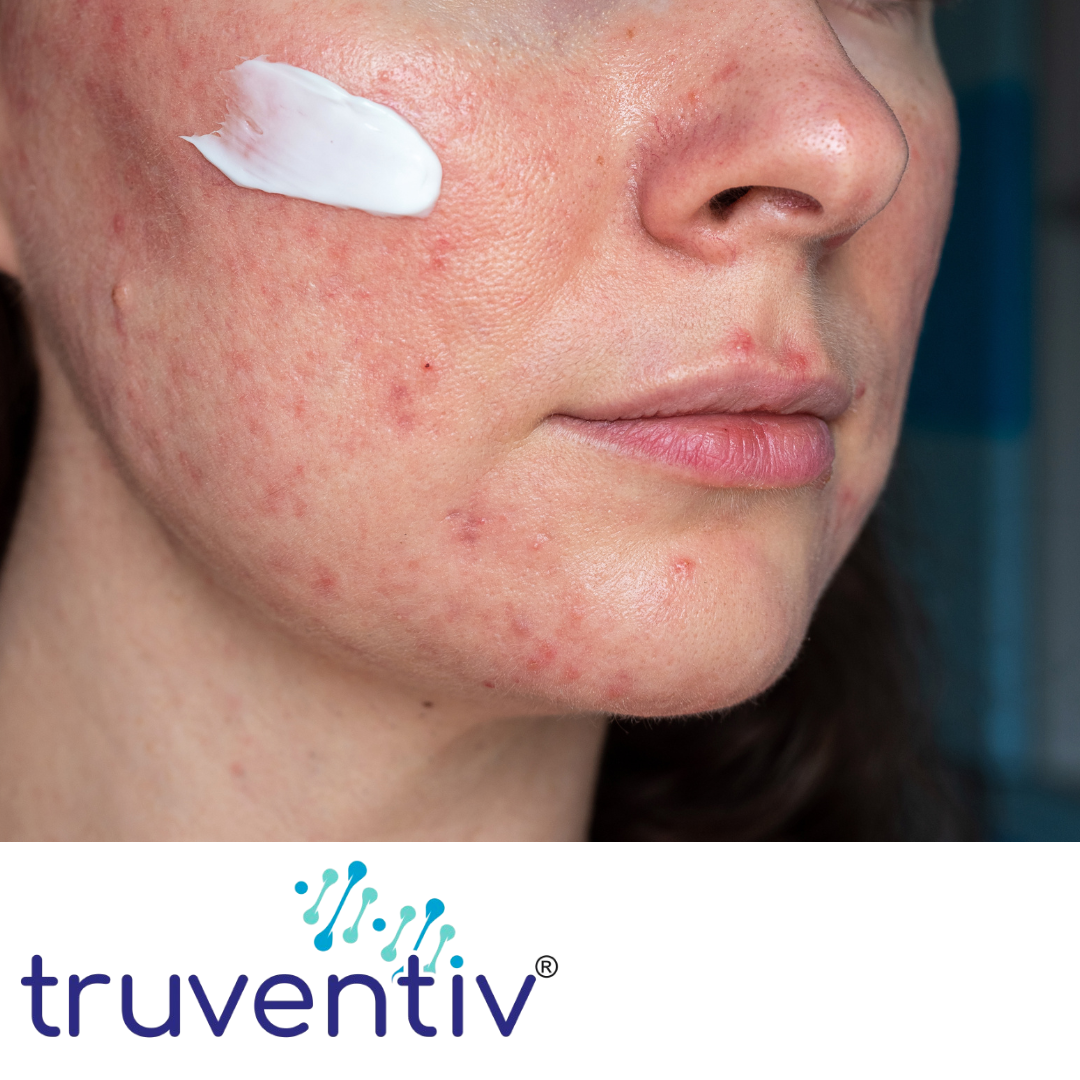
Cetearyl Alcohol, a fatty alcohol used in skincare products, is known for its moisturizing, emulsifying, and skin-soothing properties. While it doesn't directly treat acne or pimples, it plays an important role in supporting anti-acne treatments by contributing to overall skin health.
- Moisturizes and Prevents Dryness
Acne treatments, especially those containing strong active ingredients like salicylic acid or benzoyl peroxide, can sometimes cause excessive dryness and irritation. When skin becomes too dry, it can overproduce oil, leading to clogged pores and more breakouts.
- How it helps:
- Hydration: Cetearyl alcohol works as an emollient to hydrate and soften the skin. It helps to lock in moisture, preventing dryness and flakiness, which can sometimes aggravate acne.
- Prevents Overproduction of Oil: When the skin is adequately moisturized, it reduces the likelihood of the sebaceous glands overcompensating by producing excess oil, which can contribute to acne.
- Supports Skin Barrier Function
A weakened skin barrier can exacerbate acne and pimples by allowing bacteria, pollutants, and irritants to penetrate more easily. Cetearyl alcohol helps reinforce the skin’s natural protective barrier, which is essential for keeping the skin healthy and preventing acne flare-ups.
- How it helps:
- Improves Barrier Integrity: Cetearyl alcohol helps improve the lipid barrier of the skin, making it more resilient to external irritants and bacteria that can trigger acne. A stronger skin barrier helps reduce inflammation and the risk of breakouts.
- Protects from Irritants: By forming a thin, protective layer on the skin, cetearyl alcohol helps keep environmental irritants and allergens from penetrating, which can prevent acne flare-ups.
- Non-Comedogenic Properties
Some ingredients can clog pores and exacerbate acne. Cetearyl alcohol is non-comedogenic, meaning it does not clog pores or contribute to the formation of acne.
- How it helps:
- Non-Clogging: Cetearyl alcohol doesn’t contribute to pore blockages, which can result in pimples. It’s designed to be easily absorbed into the skin without causing buildup that could lead to acne, making it safe for those with acne-prone skin.
- Soothes and Calms Irritation
Acne-prone skin can often become inflamed and irritated, especially when active acne treatments are used. Cetearyl alcohol has a soothing effect, which can help calm skin irritation and reduce redness, both of which are common with acne.
- How it helps:
- Reduces Redness: By keeping the skin moisturized and less irritated, cetearyl alcohol helps minimize the redness that is often associated with acne lesions or inflammation.
- Calms Inflammation: Acne flare-ups are frequently accompanied by inflamed, sensitive skin. Cetearyl alcohol helps soothe the skin by maintaining hydration and preventing additional irritation, which can reduce swelling and discomfort.
- Improves Overall Skin Texture
For individuals with acne, skin texture can become uneven due to scarring or active pimples. Cetearyl alcohol’s hydrating and smoothing properties help improve the overall texture and appearance of the skin.
- How it helps:
- Softens Skin: Cetearyl alcohol helps soften and smooth the skin’s surface. This can improve the appearance of rough patches or areas where acne scars or pimples have formed, creating a more even skin texture.
- Reduces Flakiness: By moisturizing the skin and preventing dryness, cetearyl alcohol helps reduce the flakiness or peeling often seen after acne treatment, making the skin feel smoother and healthier.
- Supports Acne Treatments
Many acne treatments are potent and can be drying or irritating. Cetearyl alcohol helps by creating a stable base for other active ingredients in acne treatment products. It helps ensure that other ingredients are properly absorbed into the skin without causing excessive dryness or irritation.
- How it helps:
- Enhances Effectiveness of Acne Actives: Cetearyl alcohol can help other active acne ingredients (such as salicylic acid, retinol, or benzoyl peroxide) penetrate more effectively, while also minimizing the potential for irritation and discomfort.
- Anti-Inflammatory Properties
While cetearyl alcohol is not a strong anti-inflammatory agent, its ability to maintain moisture and protect the skin can indirectly reduce skin inflammation and redness associated with acne and pimples.
- How it helps:
- Prevents Irritation: Cetearyl alcohol helps to prevent irritation that could exacerbate acne inflammation. When skin is well-moisturized and protected, it is less prone to react to environmental triggers or treatments, reducing the intensity of breakouts and pimple inflammation.
HOW CETEARETH-20 HELPS IN FOR NATURAL GLOWING SKIN

Ceteareth-20 is a type of emulsifier and surfactant commonly found in skincare products. It is derived from cetearyl alcohol and ethylene oxide and helps in mixing water and oils together to form stable emulsions. While it doesn’t have direct active properties that target specific skin concerns like acne or pigmentation, it plays an important role in creating smoother, more hydrated skin that can contribute to a natural glowing appearance.
- Improves Product Absorption
Ceteareth-20 is a surfactant that helps facilitate the absorption of active ingredients in skincare products. It aids in the effective application of moisturizers, serums, and oils, allowing them to penetrate deeper into the skin.
- How it helps:
- Better penetration: When products containing actives such as vitamin C, hyaluronic acid, or retinol are combined with Ceteareth-20, they can penetrate the skin more effectively, providing more benefits. This helps keep the skin hydrated, bright, and smooth, contributing to a radiant glow.
- Enhances effectiveness: By enabling active ingredients to work better, it supports overall skin health, resulting in a more vibrant and naturally glowing complexion.
- Moisturizes and Hydrates
Healthy, moisturized skin is one of the key factors in achieving a natural glow. Ceteareth-20 helps in the hydration of the skin by enabling better emulsion of moisturizing ingredients. It helps lock moisture into the skin and keeps it soft and smooth.
- How it helps:
- Moisture retention: Ceteareth-20 works as an emulsifier that blends water with oils, creating a stable formula that retains moisture. Well-moisturized skin looks plumper, smoother, and more radiant.
- Hydrated, dewy skin: By preventing moisture loss, Ceteareth-20 helps maintain hydration throughout the day, giving your skin a soft, dewy glow that reflects light, enhancing its natural radiance.
- Improves Skin Texture
Smoother skin reflects light more evenly, which can help in achieving a glowing complexion. Ceteareth-20 helps create a smooth, even texture by blending oil and water, resulting in a silky-smooth feel.
- How it helps:
- Softens skin: By improving the formulation of creams, lotions, and serums, Ceteareth-20 helps in creating a more silky texture on the skin. This makes the skin feel and look smoother, reducing the appearance of rough patches and allowing for a more radiant surface.
- Even skin surface: The enhanced texture helps to create an even, luminous glow by allowing products to spread evenly across the skin.
- Balances Skin’s Oil and Water Levels
Ceteareth-20 helps balance the oil-water ratio in skincare products, which ensures that the skin stays adequately moisturized without feeling greasy. Proper balance between moisture and oil helps to promote a healthy glow.
- How it helps:
- Non-greasy hydration: While it helps moisturize, Ceteareth-20 doesn’t leave a heavy or oily residue, ensuring your skin remains hydrated without clogging pores. This keeps the skin glowing without the greasy shine that can sometimes occur with heavy moisturizers.
- Healthy glow: The balanced hydration supports a clear, balanced complexion that enhances the skin’s natural luminosity.
- Enhances the Efficacy of Other Ingredients
Ceteareth-20 can be found in many skincare formulations that contain other beneficial ingredients like antioxidants, vitamins, and botanicals. It enhances the delivery and stability of these ingredients, contributing to brighter, more radiant skin.
- How it helps:
- Supports active ingredients: When combined with ingredients like vitamin C, niacinamide, or hyaluronic acid, Ceteareth-20 helps these actives penetrate deeper into the skin and work more effectively, leading to improved skin tone, brighter complexion, and radiance.
- Stabilizes formulas: The emulsifying properties of Ceteareth-20 help maintain the stability of the formulation, ensuring consistent results over time.
- Prevents Skin Irritation
Because Ceteareth-20 helps create smooth, stable emulsions, it can also play a role in reducing the irritation that may occur when using more active or harsh ingredients.
- How it helps:
- Gentle on the skin: It helps in creating gentle formulations that are less likely to irritate or cause inflammation. Calmer, less irritated skin is naturally more radiant and glowing.
- Improves comfort: By ensuring a smooth, non-irritating application, Ceteareth-20 helps keep the skin comfortable, which is essential for achieving a natural, glowing appearance.
HOW CETEARETH-20 HELPS IN IMPROVES OVERALL DERMAL HEALTH
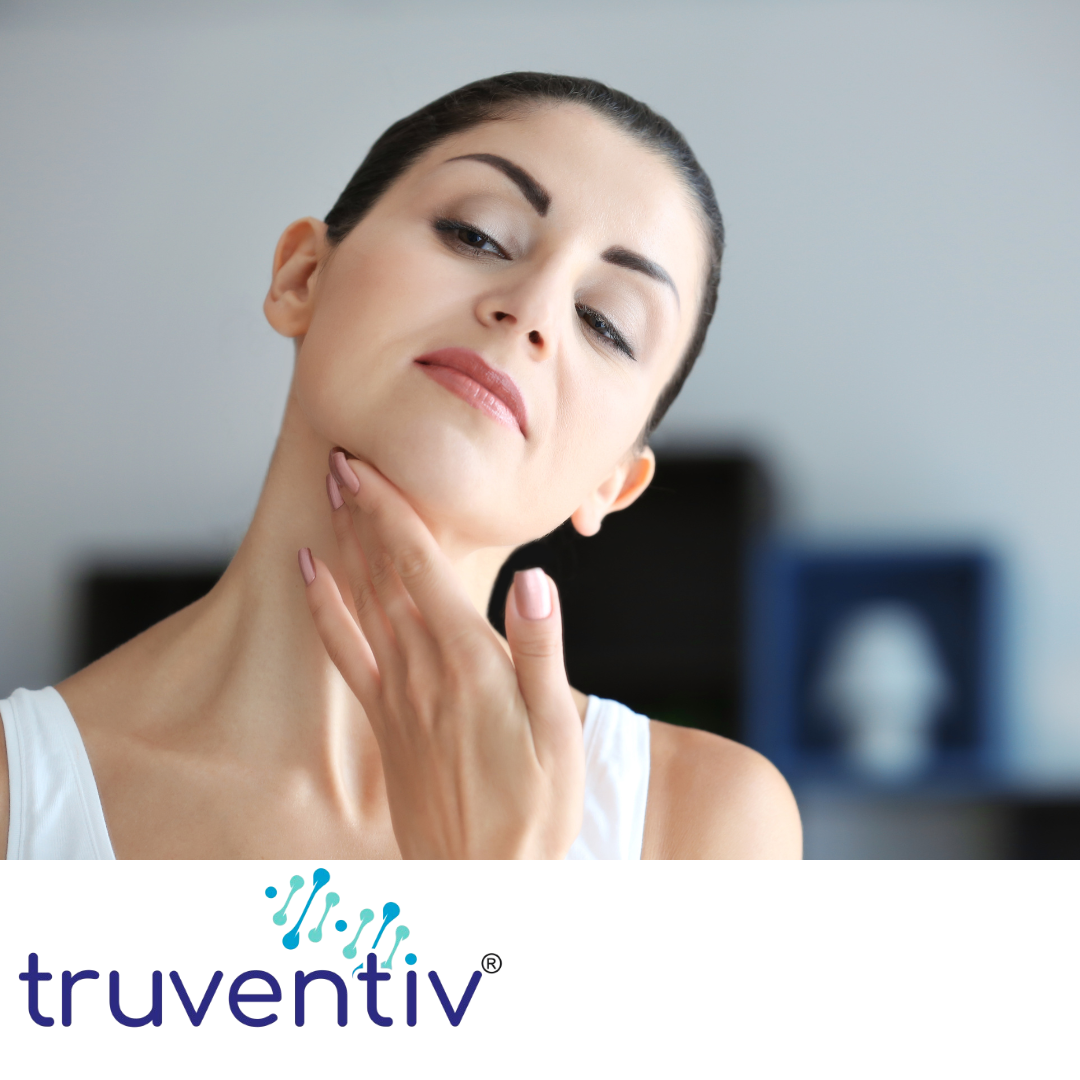
Ceteareth-20 is a surfactant and emulsifier used in skincare products to blend water and oils. While its primary role is to create stable emulsions, it can indirectly benefit dermal health by improving product effectiveness, enhancing skin hydration, and helping maintain overall skin function.
- Improves Hydration and Moisture Retention
Ceteareth-20 helps blend water and oils, forming stable emulsions that retain moisture in the skin. Proper hydration is essential for maintaining healthy skin and supporting its natural barrier function.
- How it helps:
- Locks in moisture: It helps ensure that skincare products, especially moisturizers, provide long-lasting hydration, preventing the skin from drying out and becoming irritated.
- Supports skin barrier: By keeping the skin hydrated, Ceteareth-20 aids in maintaining the integrity of the skin's moisture barrier, preventing water loss and protecting it from environmental stressors.
- Supports Skin’s Protective Barrier
The skin’s barrier function is crucial for protecting against harmful pathogens, irritants, and pollutants. Ceteareth-20 helps reinforce the skin's natural barrier by ensuring a stable and smooth emulsion that enhances the absorption of other beneficial ingredients.
- How it helps:
- Enhances absorption of actives: Ceteareth-20 allows active ingredients like vitamins, antioxidants, and moisturizers to penetrate more effectively into the skin, improving their efficiency in strengthening the skin barrier and protecting against external aggressors.
- Improves skin resilience: A well-functioning skin barrier promotes overall dermal health by keeping harmful substances out and maintaining skin hydration.
- Reduces Irritation and Sensitivity
Skin that is irritated or sensitive often becomes more vulnerable to infections, environmental damage, and premature aging. Ceteareth-20 helps create smooth, stable emulsions that are gentle on the skin, reducing irritation and promoting comfort.
- How it helps:
- Non-irritating: It helps to formulate gentler skincare products by preventing harsh ingredients from causing discomfort, inflammation, or redness.
- Soothing effect: Its ability to improve the texture of products ensures a soothing application, which can reduce irritation, making it beneficial for sensitive or compromised skin.
- Maintains Skin’s pH Balance
Maintaining the skin's natural pH is crucial for preserving its health. Ceteareth-20, by stabilizing emulsions, helps maintain the correct balance between oil and water, indirectly supporting skin's pH regulation.
- How it helps:
- Stabilizes formulations: Ceteareth-20 ensures that formulations stay stable, preventing the pH from fluctuating too much. This ensures that the skin is exposed to products that are safe and beneficial for its pH balance.
- Supports skin function: When the skin's pH is balanced, it functions optimally, helping to ward off infection, irritation, and dehydration, all of which contribute to overall dermal health
- Improves Product Performance
Ceteareth-20 is used to help deliver active ingredients deeper into the skin, enhancing the overall performance of skincare products. By ensuring that other beneficial ingredients (like hyaluronic acid, vitamin E, and peptides) are properly absorbed, it supports skin regeneration and repair.
- How it helps:
- Increases efficacy: It improves the absorption of nourishing ingredients that promote collagen production, repair, and overall skin regeneration, contributing to healthy and rejuvenated skin.
- Enhances skin elasticity: As it supports deeper absorption of moisturizing and anti-aging ingredients, Ceteareth-20 helps improve skin elasticity and firmness, contributing to healthier, more resilient skin.
- Maintains Skin Texture
Ceteareth-20 helps improve the texture of the skin by making formulations smoother, which leads to easier application and better results. It promotes even hydration and reduces roughness, which is important for overall skin health.
- How it helps:
- Smoother application: It improves the spreadability of products, ensuring that they are evenly distributed across the skin and absorbed more effectively.
- Softer skin: With consistent hydration, Ceteareth-20 helps the skin feel softer, smoother, and healthier.
- Prevents Skin Dehydration
One of the primary causes of skin damage and compromised dermal health is dehydration. Ceteareth-20 acts as an emulsifier that helps prevent water loss and maintain hydration levels within the skin.
- How it helps:
- Prevents moisture loss: By creating stable emulsions, it helps keep the skin hydrated throughout the day, ensuring that it does not lose moisture to the environment.
- Maintains healthy moisture balance: It ensures that products stay intact and continue to hydrate the skin, which is crucial for maintaining the skin’s soft, smooth, and youthful appearance.
- Boosts Overall Skin Health
Ceteareth-20 is often used to combine ingredients that work synergistically to support skin health. Its emulsifying properties ensure that products are properly formulated and stable, which is key to delivering consistent results for the skin.
- How it helps:
- Ensures stable formulations: It plays a role in making products effective by keeping the right proportions of ingredients well-mixed and stable, so the skin consistently receives the benefits.
- Supports skin rejuvenation: By improving the overall effectiveness of skincare products, Ceteareth-20 helps the skin maintain its youthful look and improve its overall health.
HOW CETEARETH-20 HELPS IN ANTI-INFLAMMATION, ANTI-BACTERIAL, ANTI SEPTIC

Ceteareth-20 is primarily known for its role as an emulsifier and surfactant in skincare products. While it isn't directly anti-inflammatory, anti-bacterial, or anti-septic in its own right, it can indirectly contribute to these effects through its role in stabilizing formulations and enhancing the delivery of other active ingredients that possess these properties.
- Facilitates the Absorption of Active Ingredients
Ceteareth-20 helps improve the penetration of active ingredients like anti-inflammatory compounds, antioxidants, and antiseptic agents into the skin.
- How it helps:
- Better absorption: By forming stable emulsions, Ceteareth-20 aids in delivering beneficial anti-inflammatory and anti-bacterial ingredients like chamomile, tea tree oil, or salicylic acid deeper into the skin. This makes these ingredients more effective in reducing redness, swelling, and bacterial growth.
- Maximized efficacy: When combined with active anti-inflammatory or anti-bacterial ingredients, Ceteareth-20 enhances their overall effectiveness, ensuring that they work efficiently at the site of application.
- Reduces Skin Irritation and Sensitivity
Ceteareth-20 has a soothing effect on the skin, which can help reduce irritation, inflammation, and sensitivity—key symptoms of inflammation-related conditions like acne or eczema.
- How it helps:
- Emulsifying properties: It helps to create a smoother, less irritating formulation, which is crucial when dealing with sensitive skin prone to inflammation.
- Gentle application: The smooth texture of products containing Ceteareth-20 helps to reduce friction during application, preventing further irritation and supporting the skin's healing process.
- Improves the Stability of Anti-Bacterial Ingredients
Ceteareth-20 acts as a stabilizer, ensuring that products containing anti-bacterial ingredients, such as benzoyl peroxide or tea tree oil, remain effective and evenly distributed over time.
- How it helps:
- Stable formulations: Ceteareth-20 ensures that anti-bacterial agents are well-integrated into the product, maintaining their full potency and ability to fight bacterial infections, which are often a cause of skin issues like acne.
- Enhanced efficacy: By ensuring proper formulation, it helps ensure that the anti-bacterial agents work effectively to target harmful bacteria and reduce infections.
- Prevents Infection by Supporting Anti-Septic Ingredients
While Ceteareth-20 itself isn't inherently antiseptic, it plays a vital role in enhancing the delivery and stability of anti-septic ingredients such as aloe vera, honey, or alcohol.
- How it helps:
- Optimizes ingredient performance: Ceteareth-20 helps stabilize the anti-septic properties of ingredients by improving the texture and ensuring that these ingredients are evenly distributed on the skin. This helps in fighting off harmful bacteria and fungi that could lead to infection.
- Longer-lasting protection: By preventing the active ingredients from separating in the formulation, Ceteareth-20 ensures that anti-septic agents continue to work throughout the day to maintain a cleaner skin environment.
- Helps Maintain pH Balance
The skin's natural pH is slightly acidic, and maintaining this balance is essential for reducing inflammation and preventing the growth of harmful bacteria. Ceteareth-20 helps ensure that products maintain a stable pH, which is crucial for skin health.
- How it helps:
- Prevents irritation: By maintaining the proper pH balance, Ceteareth-20 helps prevent skin from becoming too alkaline, which can compromise its natural defenses and lead to irritation, inflammation, or infections.
- Supports skin’s protective barrier: Proper pH balance aids in maintaining the skin’s natural acid mantle, which acts as a defense mechanism against bacteria and other pathogens.
- Soothing and Calming Effects on Inflammation
Ceteareth-20 can be part of soothing formulations that contain anti-inflammatory ingredients such as aloe vera, cucumber extract, or green tea extract. It enhances the delivery of these ingredients, which are effective in calming inflamed skin.
- How it helps:
- Skin-soothing properties: While Ceteareth-20 doesn’t directly reduce inflammation, its ability to support soothing ingredients enables the skin to experience a calming effect, which can be helpful for inflammatory skin conditions like eczema, rosacea, or acne.
- Reduces redness: By supporting the integration of anti-inflammatory ingredients, Ceteareth-20 can contribute to reducing redness and irritation caused by inflammation.
- Increases Effectiveness of Bacterial Defense
Ceteareth-20, as an emulsifier, allows products with anti-bacterial ingredients to stay on the skin longer, providing continuous protection against harmful microorganisms.
- How it helps:
- Even distribution: It ensures that active anti-bacterial agents are evenly distributed and not diluted or separated, which maximizes their effectiveness in preventing bacterial infections on the skin.
- Longer-lasting protection: By stabilizing these agents in emulsions, it enhances their protective properties, giving the skin more prolonged protection from bacterial and microbial invasion.
HOW CETEARETH-20 HELPS IN REDUCES REDNESS & BLEMISHES
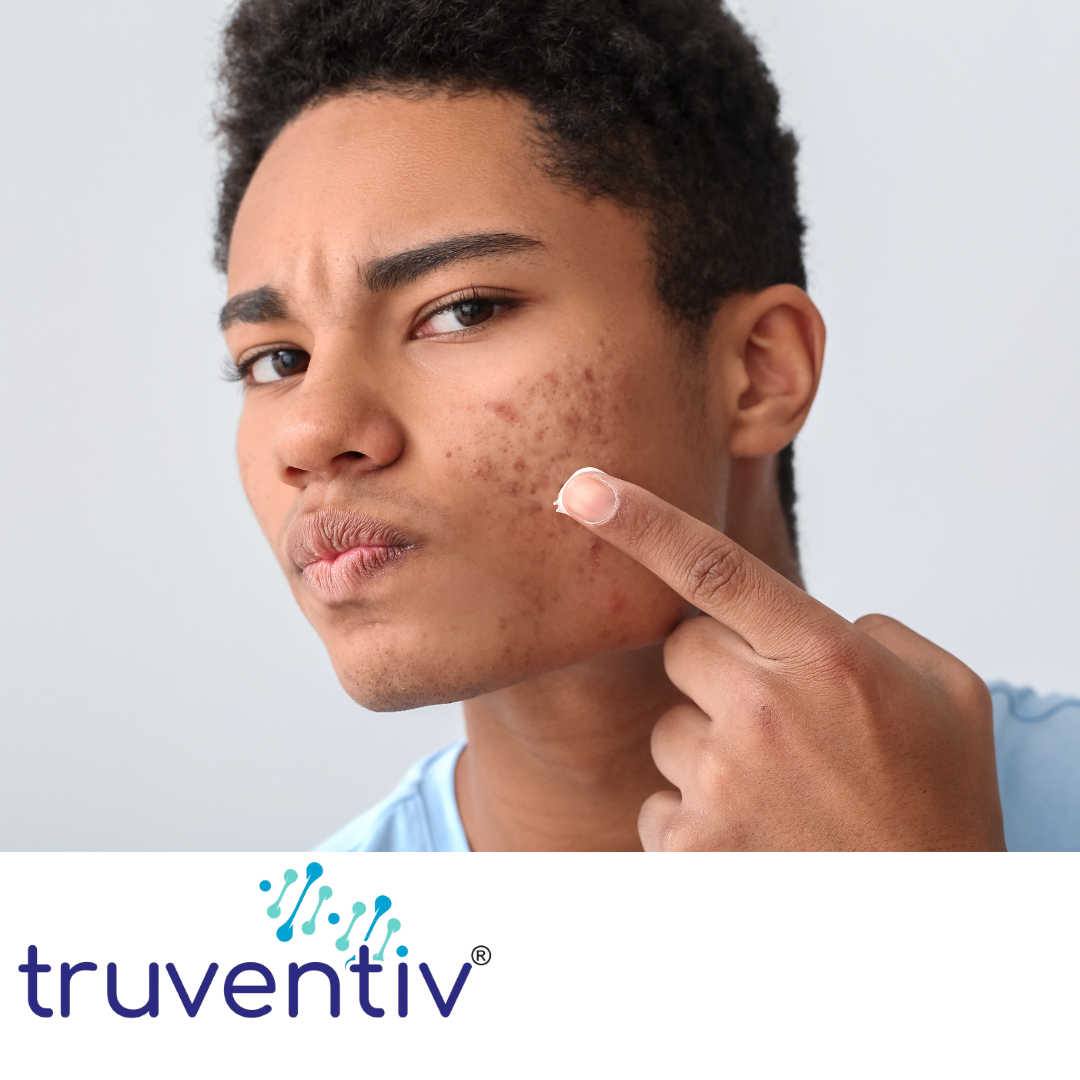
Ceteareth-20 primarily functions as an emulsifier and surfactant, helping to blend water and oil-based ingredients in skincare products. While it is not an active ingredient directly targeting redness or blemishes, it plays a crucial role in improving the effectiveness of other ingredients that address these concerns.
- Enhances the Delivery of Anti-Inflammatory Ingredients
Redness and blemishes are often caused by inflammation. Ceteareth-20 helps deliver anti-inflammatory ingredients deeper into the skin, which can help reduce the swelling, redness, and irritation associated with blemishes.
- How it helps:
- Boosts penetration: By ensuring that active ingredients like aloe vera, chamomile, or green tea extract penetrate the skin more effectively, Ceteareth-20 supports the calming and redness-reducing properties of these ingredients.
- Maximizes effectiveness: As a stabilizing agent, it ensures that anti-inflammatory actives remain potent, providing continuous soothing benefits to the skin and helping to alleviate redness caused by irritation.
- Improves Moisture Retention
Dry, dehydrated skin is more prone to irritation, leading to redness and potential breakouts. Ceteareth-20 helps improve the skin's ability to retain moisture, ensuring it stays hydrated, which can prevent dryness-related redness.
- How it helps:
- Moisturizing properties: By ensuring that water-based ingredients remain emulsified and well-integrated with oils, Ceteareth-20 enhances the moisturizing properties of skincare products. Hydrated skin is less likely to become inflamed or irritated, which can contribute to the reduction of redness.
- Supports barrier function: Hydrated skin has a stronger skin barrier, which helps protect against environmental stressors that could trigger redness and inflammation.
- Improves the Stability of Anti-Blemish Formulations
Blemishes, such as acne or pimples, are often a result of bacterial activity, excess oil, or clogged pores. Ceteareth-20 helps create stable formulations containing anti-bacterial and anti-septic ingredients, which are key to treating blemishes.
- How it helps:
- Stabilizes active ingredients: Ceteareth-20 helps keep active ingredients, such as salicylic acid or benzoyl peroxide, evenly distributed throughout the product, ensuring consistent application and enhanced effectiveness in preventing and treating blemishes.
- Prevents separation: By preventing the separation of ingredients, it ensures that the active ingredients maintain their potency and efficacy in treating blemishes.
- Reduces Irritation and Inflammation
As a gentle emulsifier, Ceteareth-20 can reduce skin irritation, which is often a contributing factor to redness and the formation of blemishes. By helping the skin tolerate stronger actives in a product, it makes treatments for acne or irritation less likely to cause side effects like redness.
- How it helps:
- Reduces friction: Ceteareth-20 improves the texture and spreadability of products, which can reduce irritation caused by the application of skincare products, helping to keep redness and inflammation under control.
- Smooth formulation: A smoother texture in products reduces the risk of mechanical irritation, which can sometimes exacerbate redness or blemishes when the product is applied too roughly or unevenly.
- Supports Calming Ingredients
Many skincare formulations aimed at reducing redness or blemishes also contain ingredients that calm the skin, such as niacinamide or calendula. Ceteareth-20 helps these calming ingredients stay evenly mixed in the product, ensuring consistent application and optimal soothing effects.
- How it helps:
- Improves texture: Ceteareth-20 enhances the application of soothing ingredients, ensuring that they are evenly distributed across the skin and can work more effectively in reducing redness and calming blemishes.
- Sustained relief: By supporting the integration and stability of these soothing ingredients, it ensures that the skin benefits from their anti-inflammatory properties over time.
- Balances Oil and Water Content
An imbalance in oil and moisture levels can contribute to blemishes and redness, particularly in individuals with oily or combination skin. Ceteareth-20 helps to balance oil and water in emulsions, which can prevent clogged pores, reducing the likelihood of breakouts and redness.
- How it helps:
- Oil-water emulsion: By stabilizing the emulsion, Ceteareth-20 ensures that the skin gets just the right amount of moisture without feeling greasy. This can be helpful for preventing clogged pores and reducing the inflammation associated with breakouts.
- Prevents excessive dryness: Well-hydrated skin is less likely to produce excess oil, which can lead to acne flare-ups and redness.
- Prevents Sensitivity and Reduces Redness Triggered by Harsh Ingredients
Certain active ingredients, like salicylic acid or retinoids, can cause skin sensitivity, resulting in redness or peeling. Ceteareth-20 helps stabilize these formulations, making them more suitable for sensitive skin by reducing the risk of irritation.
- How it helps:
- Gentle formulation: Ceteareth-20 helps prevent harsh ingredients from causing over-drying or irritation, reducing the likelihood of redness and blemishes caused by the skin's reaction to aggressive treatments.
- Balances the impact of actives: It makes it easier for formulations containing active ingredients to be gentler on the skin while still providing the desired treatment, like acne-fighting or exfoliating benefits.
HOW CETEARETH-20 HELPS IN CALMS SKIN CONDITIONS LIKE ECZEMA, ROSACEA & PSORIASIS
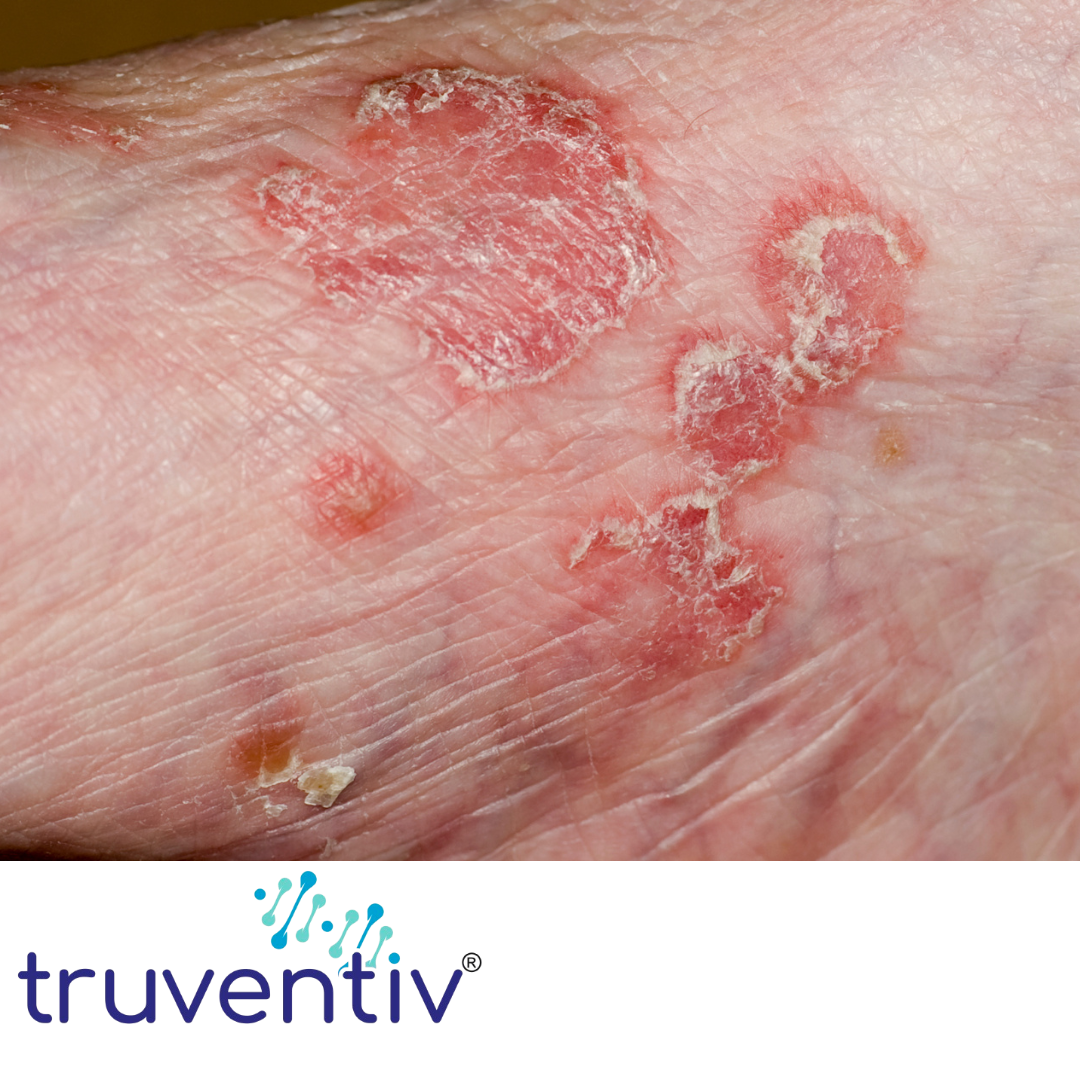
Ceteareth-20 is an emulsifier and surfactant commonly used in skincare products. While it doesn't directly treat skin conditions like eczema, rosacea, or psoriasis, it plays a supportive role in calming these conditions by improving the overall effectiveness of other active ingredients in the product.
- Enhances Delivery of Soothing Ingredients
Eczema, rosacea, and psoriasis are often characterized by inflammation, dryness, and irritation. Ceteareth-20 helps deliver calming, anti-inflammatory, and moisturizing ingredients more effectively into the skin. These ingredients may include colloidal oatmeal, aloe vera, chamomile extract, or niacinamide, which are known for their soothing properties.
- How it helps:
- Improved absorption: By helping these active ingredients penetrate deeper into the skin, Ceteareth-20 ensures that the skin gets the full benefit of their soothing and anti-inflammatory effects.
- Maximizing effectiveness: Ceteareth-20 stabilizes the formulation, ensuring that these calming ingredients maintain their potency, giving the skin the best possible treatment for irritation and inflammation.
- Moisturizes and Restores the Skin Barrier
Skin conditions like eczema, rosacea, and psoriasis often involve a compromised skin barrier, leading to excessive dryness and irritation. Ceteareth-20 helps improve the moisture-retention capacity of skincare products by emulsifying water and oil-based ingredients, creating a more hydrating formula that supports the skin's protective barrier.
- How it helps:
- Hydration: Proper hydration is essential for calming inflamed skin. Ceteareth-20 helps lock in moisture, preventing the skin from becoming too dry and reducing the chances of flare-ups in conditions like eczema and psoriasis.
- Supports barrier function: By stabilizing the emulsions, Ceteareth-20 helps protect the skin's outer layer, which is especially important for people with conditions like rosacea, where the skin's protective barrier is often weakened.
- Reduces Irritation from Active Ingredients
Treating conditions like eczema, rosacea, and psoriasis often involves using active ingredients such as retinoids, salicylic acid, or hydrocortisone. These can be irritating for sensitive skin. Ceteareth-20 helps reduce irritation by ensuring that these active ingredients are delivered in a smooth, non-abrasive form, minimizing the chances of further irritating already sensitive skin.
- How it helps:
- Gentle formulation: Ceteareth-20 helps create a smoother texture in creams and lotions, which makes them easier to apply without friction that could irritate inflamed skin.
- Prevents separation: By preventing separation of active ingredients, it helps maintain the consistency of the formulation, ensuring that it can be applied more evenly, which reduces the risk of localized irritation.
- Improves Product Stability and Effectiveness
When treating skin conditions like eczema, rosacea, and psoriasis, the stability of the product is key. Ceteareth-20 helps prevent the separation of ingredients in the formulation, ensuring that the active ingredients maintain their full potency and are properly mixed throughout the product. This helps ensure the product is effective in treating and calming flare-ups associated with these conditions.
- How it helps:
- Uniform distribution: Ensures that each application contains a consistent dose of active ingredients, improving the product’s overall effectiveness in treating inflammation and irritation.
- Longer-lasting benefits: A stable formula ensures that the soothing and anti-inflammatory effects of the product are sustained for longer periods, giving continued relief for irritated skin.
- Reduces Skin Sensitivity
Ceteareth-20 is a non-ionic surfactant, which means it is generally milder and less likely to cause irritation. This is important for individuals with sensitive skin, such as those dealing with rosacea or eczema, where skin sensitivity is a common symptom. By reducing skin sensitivity and minimizing irritation from other ingredients, Ceteareth-20 helps make the formulation more tolerable.
- How it helps:
- Gentle on sensitive skin: It reduces the risk of irritation during application, which can be important when using products for eczema, rosacea, or psoriasis, as the skin is already more reactive.
- Supports comfort: A product with Ceteareth-20 will feel more comfortable on sensitive skin, offering a smoother, more soothing experience during application.
- Prevents Dryness-Related Flare-Ups
Conditions like eczema, rosacea, and psoriasis often cause the skin to become excessively dry. Ceteareth-20 helps emulsify moisturizing ingredients into the formulation, ensuring that the skin is properly hydrated and protected against environmental factors that might trigger flare-ups.
- How it helps:
- Hydration and nourishment: It helps deliver key moisturizing ingredients like glycerin or hyaluronic acid to the skin, which prevents dryness and tightness associated with flare-ups of eczema or psoriasis.
- Supports the natural lipid barrier: By helping create a stable emulsion, Ceteareth-20 contributes to reinforcing the skin's lipid barrier, making the skin more resilient against irritants and preventing further moisture loss.
- Improves Overall Skin Texture
By helping to evenly distribute active ingredients and improving the product’s texture, Ceteareth-20 enhances the overall feel of skincare formulations. For people with eczema, rosacea, or psoriasis, smoother textures are important to avoid aggravating already inflamed and sensitive skin.
- How it helps:
- Smoother application: It reduces the likelihood of irritation caused by rough-textured formulations, which can cause further redness and irritation.
- Even skin relief: By improving the texture of the product, Ceteareth-20 ensures that the soothing ingredients spread evenly, offering more consistent relief across the affected area.
HOW CETEARETH-20 HELPS IN ANTI-ACNE & PIMPLE

Ceteareth-20 is primarily used as an emulsifier and surfactant in skincare products, helping to mix oil and water-based ingredients together. While it does not directly treat acne or pimples, it can contribute to anti-acne and anti-pimple treatments in several indirect ways.
- Improves the Absorption of Active Ingredients
Acne treatments often involve active ingredients like salicylic acid, benzoyl peroxide, niacinamide, or retinoids. Ceteareth-20 helps improve the penetration of these active ingredients into the skin, ensuring they work more effectively to combat acne and pimples.
- How it helps:
- Enhanced efficacy: By helping active ingredients penetrate deeper into the skin, Ceteareth-20 ensures that these ingredients can target the source of acne, like clogged pores or inflammation, more effectively.
- Consistent delivery: It ensures the consistent release and distribution of acne-fighting ingredients, which helps reduce the chances of new breakouts.
- Prevents Dryness and Irritation
Acne treatments often dry out the skin, especially ingredients like benzoyl peroxide or salicylic acid. This can lead to irritation, flakiness, or redness. Ceteareth-20 helps stabilize the formula and prevents excessive dryness by ensuring moisturizing agents, like glycerin or hyaluronic acid, are incorporated into the product.
- How it helps:
- Balanced hydration: Ceteareth-20 ensures the skin stays hydrated even while using drying acne-fighting products, which helps prevent the over-drying and irritation that can lead to more breakouts.
- Reduces sensitivity: Hydration helps soothe the skin and minimize sensitivity, reducing the chance of flare-ups caused by dry, irritated skin.
- Improves Skin Texture and Smoothness
For acne-prone skin, maintaining a smooth texture is important to prevent clogged pores and the development of pimples. Ceteareth-20 helps create a smooth, even texture in the product, allowing for easy application and ensuring it doesn’t leave the skin feeling greasy or heavy, which can contribute to clogged pores and breakouts.
- How it helps:
- Smoother application: By creating a more uniform product, Ceteareth-20 ensures that acne treatments are applied evenly, without streaks or patches that could irritate the skin or clog pores.
- Reduces pore blockages: It helps reduce the risk of clogged pores by making the product feel lighter and preventing the accumulation of excessive oils on the skin.
- Prevents Separation of Oil and Water-Based Ingredients
Acne treatments often contain a mix of water and oil-based ingredients. Ceteareth-20 helps keep these ingredients evenly mixed, preventing them from separating. This ensures that the formulation remains effective and that the ingredients maintain their potency over time.
- How it helps:
- Ensures consistency: With a stable formula, the active ingredients remain in the right proportions, ensuring maximum efficiency in treating acne and preventing future breakouts.
- Improves overall product stability: By maintaining the product's stability, Ceteareth-20 ensures that acne treatments work consistently, which is especially important for treating recurring pimples and acne.
- Supports Non-Irritating Formulation
Ceteareth-20 is considered to be a gentle emulsifier, making it suitable for sensitive and acne-prone skin. It helps prevent irritation from other active ingredients, such as retinoids, which are commonly used for acne treatment but can cause irritation in some people.
- How it helps:
- Reduces harshness: By improving the texture and usability of acne products, Ceteareth-20 helps reduce potential irritation that might otherwise lead to more breakouts.
- Supports gentle delivery: It enables a smoother, more comfortable application, which is especially important for people with sensitive acne-prone skin.
- Supports the Skin’s Moisture Barrier
Ceteareth-20 helps retain moisture and supports the skin’s natural moisture barrier. For acne-prone skin, maintaining a healthy moisture barrier is crucial, as a compromised barrier can exacerbate inflammation, lead to excess oil production, and make the skin more vulnerable to bacteria.
- How it helps:
- Prevents excessive oil production: By maintaining moisture levels, Ceteareth-20 can help balance the skin, reducing the overproduction of oil, which is often a trigger for acne.
- Promotes skin resilience: A healthy moisture barrier means the skin can better resist external irritants and bacteria, which helps reduce the chances of developing pimples and acne.
- Aids in Gentle Cleansing
In cleansers or wash-off products, Ceteareth-20 helps cleanse the skin without stripping it of essential oils. This is important for acne-prone skin, as harsh cleansing can disrupt the skin’s natural balance and lead to breakouts or irritation.
- How it helps:
- Mild and effective cleansing: It helps cleanse acne-prone skin gently, removing dirt and excess oil without causing dryness or inflammation that might trigger new acne.
- Preserves natural oils: It ensures that the skin's natural oils are preserved, helping to maintain hydration levels while preventing the overproduction of sebum, which can clog pores.
HOW CETYL ALCOHOL HELPS IN FOR NATURAL GLOWING SKIN
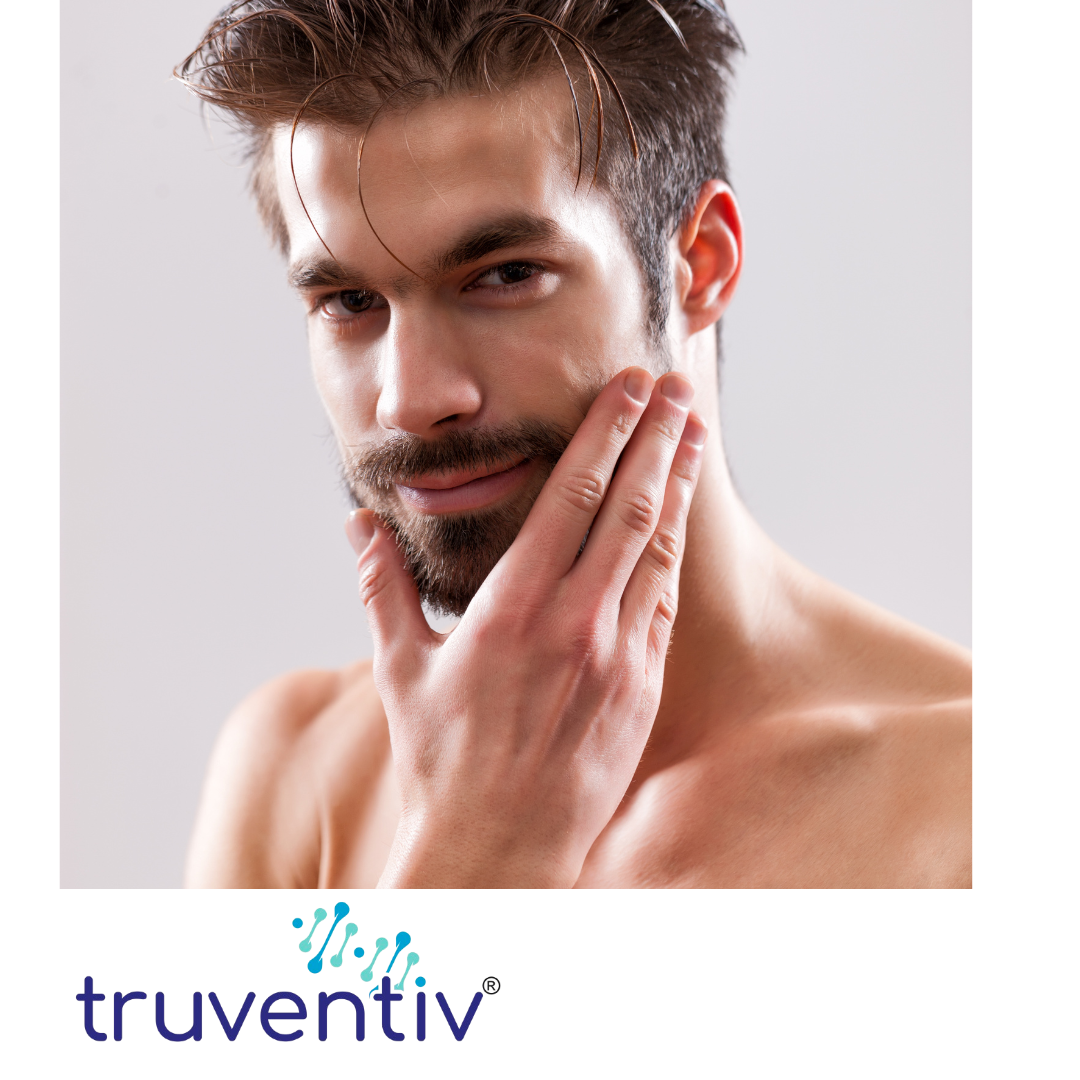
Cetyl Alcohol is a fatty alcohol commonly used in skincare products for its emollient, emulsifying, and thickening properties. While it does not directly provide a natural glow on its own, it can contribute to glowing skin in several indirect ways.
- Moisturizes and Softens the Skin
Cetyl alcohol acts as an emollient, which means it helps to soften and smooth the skin by forming a protective barrier that locks in moisture. This hydration is essential for maintaining a healthy, glowing complexion.
- How it helps:
- By moisturizing the skin, Cetyl Alcohol helps keep it plump and supple, reducing dryness and flakiness, which can make the skin appear dull.
- Soft, hydrated skin reflects light better, contributing to a more radiant appearance.
- Improves Skin Texture
Cetyl Alcohol helps create a smooth, even texture on the skin by providing a thick and creamy consistency in products like lotions, creams, and serums. This helps create a velvety feel on the skin’s surface.
- How it helps:
- Smooth, well-hydrated skin looks healthier and more luminous, as it has an even surface and a natural glow.
- Regular use can enhance the texture, preventing rough patches or bumps that might dull the complexion.
- Enhances the Efficacy of Other Active Ingredients
Cetyl Alcohol is often used in products that contain other active ingredients designed to promote glowing skin, such as vitamin C, hyaluronic acid, or niacinamide. As an emulsifier, it helps ensure that these active ingredients are evenly distributed and absorbed by the skin.
- How it helps:
- By enhancing the delivery of glow-promoting ingredients, Cetyl Alcohol helps these actives perform at their best, contributing to brighter and more radiant skin over time.
- Protects the Skin’s Natural Barrier
Cetyl Alcohol helps to stabilize the skin’s moisture barrier, preventing water loss from the skin. When the skin’s moisture barrier is intact, it retains hydration more effectively and stays well-nourished.
- How it helps:
- Well-hydrated skin appears naturally glowing because it reflects light better and has a healthier, more vibrant appearance.
- A healthy moisture barrier also reduces the chances of developing dryness or irritation, which can cause the skin to look dull or lackluster.
- Prevents Dryness and Flakiness
Dry, flaky skin can cause the skin to look uneven and dull. Cetyl Alcohol helps to condition the skin and prevent these dry, flaky patches by ensuring the skin stays hydrated and protected from environmental damage.
- How it helps:
- The protection against dryness helps the skin maintain a soft and smooth surface, contributing to a more radiant complexion.
- When the skin is properly moisturized and smooth, it has a better chance of reflecting light, enhancing its natural glow.
- Improves Product Application
Cetyl Alcohol enhances the texture of products like lotions, creams, and serums, making them easier to apply evenly to the skin. This ensures the product is well-distributed, allowing for more effective results and a more uniform glow.
- How it helps:
- Products that are easier to apply without streaking or uneven coverage allow the active ingredients to work more effectively.
- A well-applied product will contribute to a smoother, more luminous finish.
HOW CETYL ALCOHOL HELPS IN IMPROVES OVERALL DERMAL HEALTH
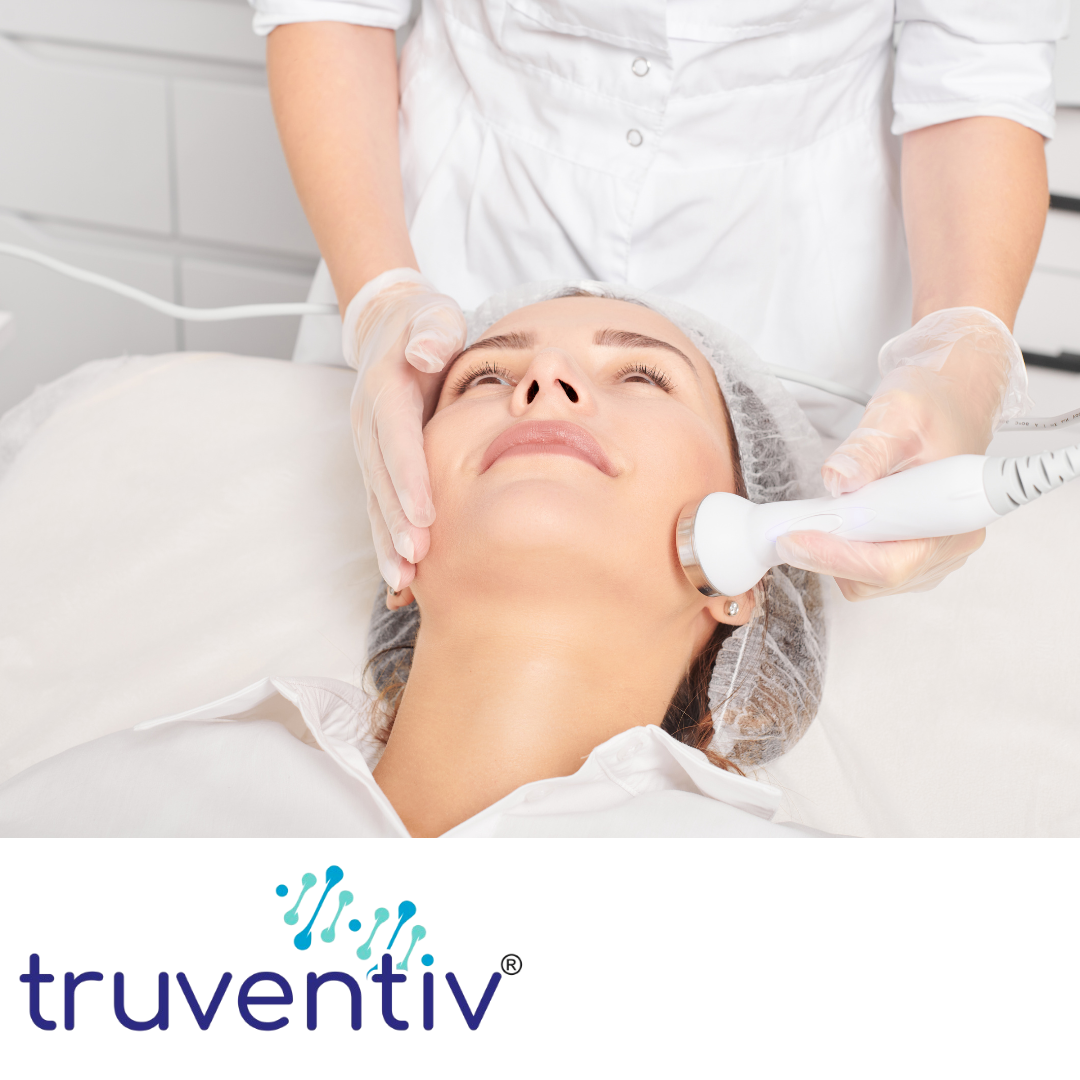
Cetyl Alcohol is a fatty alcohol widely used in skincare products for its emollient, emulsifying, and thickening properties. While it is not an active ingredient that directly heals or repairs the skin, it plays a key role in maintaining and improving overall dermal health in several ways:
- Moisturizes and Hydrates the Skin
Cetyl Alcohol is an emollient, which means it helps soften and smooth the skin by creating a barrier that locks in moisture. Proper hydration is crucial for maintaining healthy skin, as it supports the skin’s natural functions and prevents dryness, which can lead to irritation, redness, and compromised skin health.
- How it helps:
- Hydration: By forming a protective layer, it helps retain moisture in the skin, preventing dryness and keeping the skin plump and healthy.
- Improved elasticity: Properly moisturized skin is more elastic and less prone to wrinkles, fine lines, and other signs of skin damage.
- Supports the Skin's Natural Barrier
Cetyl Alcohol helps to strengthen and maintain the skin’s moisture barrier, which acts as the first line of defense against environmental stressors like pollutants, harsh weather, and bacteria. A strong skin barrier is essential for overall dermal health because it helps retain moisture, protects from irritants, and supports skin regeneration.
- How it helps:
- Prevents water loss: The moisture barrier prevents trans-epidermal water loss (TEWL), ensuring the skin stays hydrated.
- Protects from irritants: It helps the skin resist external factors that can lead to inflammation, dryness, and sensitivities.
- Soothes and Calms Irritated Skin
Cetyl Alcohol’s ability to provide a smooth texture and help retain moisture makes it a soothing ingredient, especially for sensitive or irritated skin. It helps reduce discomfort by maintaining hydration and preventing further irritation from environmental or topical factors.
- How it helps:
- Reduces inflammation: By supporting the skin's moisture retention, it reduces the chances of inflammation, redness, or irritation.
- Gentle for sensitive skin: It is often used in formulations for dry, sensitive, or irritated skin, as it provides a barrier that calms and nourishes.
- Improves Skin Texture
Cetyl Alcohol creates a creamy, smooth texture in products, allowing for better spreadability and easier application on the skin. This helps in evening out the texture of the skin, reducing rough patches, and improving the overall look and feel of the skin surface.
- How it helps:
- Smoother skin: Helps improve the texture by making the skin feel softer and more refined, which is beneficial for maintaining healthy-looking skin.
- Reduces roughness: Regular use of products containing Cetyl Alcohol can help in minimizing dry or flaky patches, improving the skin's texture over time.
- Non-Irritating, Gentle Ingredient
Cetyl Alcohol is considered mild and non-irritating, making it suitable for sensitive skin types. Unlike many other alcohols, which can be drying and irritating, Cetyl Alcohol helps to prevent moisture loss while providing a comfortable feel. This makes it an important ingredient in products designed for compromised or sensitive skin.
- How it helps:
- Suitable for sensitive skin: It does not dry out the skin or cause irritation, making it perfect for those with conditions like eczema, rosacea, or psoriasis.
- Supports healthy skin function: By being gentle, it helps maintain the skin’s natural balance without triggering negative reactions.
- Enhances Product Stability
Cetyl Alcohol acts as an emulsifier, helping to stabilize formulations that contain both oil and water-based ingredients. This helps keep the product uniform and effective over time, ensuring that beneficial ingredients can work consistently to improve skin health.
- How it helps:
- Increases effectiveness: When combined with other active ingredients like hyaluronic acid or vitamin E, Cetyl Alcohol helps deliver them effectively to the skin for better overall dermal health.
- Improved shelf life: The stability provided by Cetyl Alcohol means that skincare products last longer without separating or losing potency, allowing you to maintain consistent skin care routines.
- Supports the Healing of Dry and Damaged Skin
Because of its emollient properties, Cetyl Alcohol can be useful in supporting the healing process for dry or damaged skin. It helps replenish and repair the skin’s lipid barrier, which can be compromised due to external factors like cold weather, sun exposure, or harsh skincare ingredients.
- How it helps:
- Repairs the skin barrier: By enhancing the lipid layer, Cetyl Alcohol helps repair the skin's barrier, preventing moisture loss and improving the skin’s ability to self-repair.
- Restores balance: It helps restore the skin’s natural balance by replenishing lipids and improving hydration levels, which is essential for skin repair and maintenance.
- Prevents Dryness and Flakiness
Cetyl Alcohol helps to prevent excessive dryness, which can cause the skin to become flaky, rough, or tight. Maintaining moisture balance through hydration helps ensure the skin’s appearance remains healthy, smooth, and glowing.
- How it helps:
- Prevents dehydration: It helps prevent the skin from becoming overly dry or flaky by retaining moisture and supporting the skin’s hydration levels.
- Promotes a healthy complexion: Well-hydrated skin maintains a soft, radiant appearance, which is essential for overall dermal health.
HOW CETYL ALCOHOL HELPS IN ANTI-INFLAMMATION, ANTI-BACTERIAL, ANTI SEPTIC
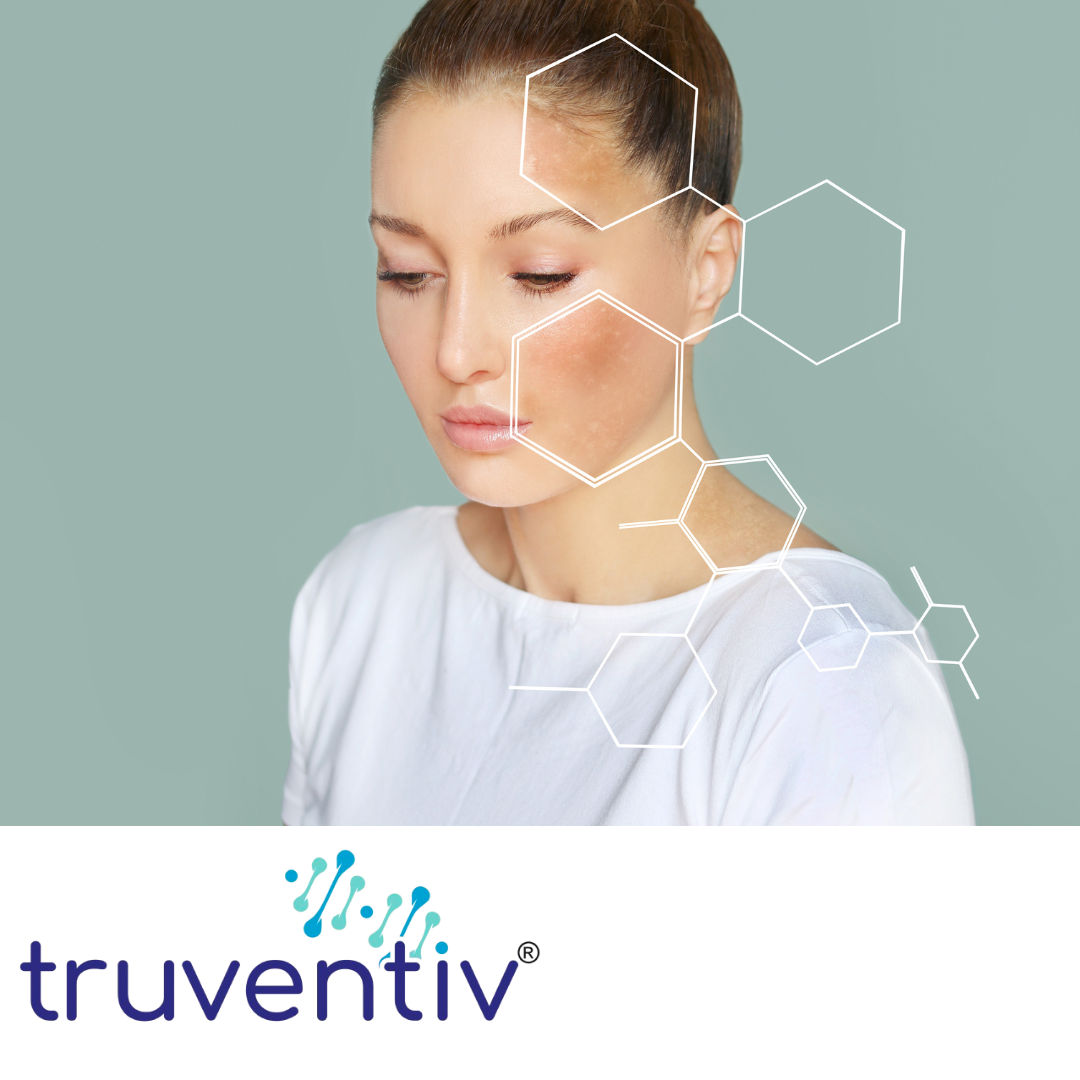
Cetyl Alcohol, as a fatty alcohol and emollient, is primarily known for its moisturizing, emulsifying, and stabilizing properties in skincare formulations. While it is not typically considered a potent anti-inflammatory, anti-bacterial, or anti-septic ingredient, it does contribute to skin health in ways that support these actions indirectly.
- Anti-Inflammatory Properties
Cetyl Alcohol can play a role in reducing inflammation by helping to soothe and hydrate the skin. While it is not a direct anti-inflammatory agent, its emollient properties contribute to maintaining a healthy, balanced skin barrier, which reduces the likelihood of irritation and inflammation.
- How it helps:
- Hydration: By forming a protective barrier that locks moisture in, Cetyl Alcohol helps prevent dry, cracked skin, which can trigger inflammation. Well-hydrated skin is less prone to irritation and redness.
- Barrier protection: A healthy, intact moisture barrier reduces sensitivity, making the skin less reactive to environmental stressors like allergens, pollutants, or harsh weather conditions that can cause inflammation.
- Anti-Bacterial and Anti-Septic Properties (Indirect Support)
Although Cetyl Alcohol itself is not known for having direct anti-bacterial or anti-septic properties, it can support the skin's natural defense mechanisms in several ways. When combined with other ingredients, Cetyl Alcohol can help stabilize formulations that include active anti-bacterial or anti-septic agents.
- How it helps:
- Prevents moisture loss: By keeping the skin hydrated and protected, Cetyl Alcohol ensures that the skin's natural barrier is intact. This makes it more difficult for harmful bacteria to penetrate the skin and cause infections.
- Creates a stable formulation: As an emulsifier, Cetyl Alcohol helps stabilize products containing active anti-bacterial or anti-septic agents, such as tea tree oil or benzoyl peroxide, allowing these ingredients to be delivered more effectively.
- Helps Maintain Skin Integrity
By promoting skin hydration and enhancing the barrier function, Cetyl Alcohol helps maintain the integrity of the skin, making it more resilient to inflammation or bacterial invasion.
- How it helps:
- Strengthens the skin barrier: The protective layer it creates helps prevent harmful microorganisms from infiltrating the skin, which can lead to infections or inflammation. This action indirectly supports the skin's anti-septic defense.
- Soothing effect: The skin barrier created by Cetyl Alcohol helps calm and reduce the skin's response to irritants, which is crucial for preventing inflammatory reactions, especially in sensitive or compromised skin.
- Reduces Skin Sensitivity
Cetyl Alcohol’s role as a mild, non-irritating ingredient helps reduce the chances of skin reactions that could lead to inflammatory responses or bacterial irritation.
- How it helps:
- Gentle on the skin: It’s less likely to trigger allergic reactions or sensitivities, which can contribute to redness, swelling, or infections. This is particularly beneficial for individuals with eczema, rosacea, or other sensitive skin conditions.
- Minimizes irritation: Because it doesn’t strip the skin of moisture or create a harsh environment, Cetyl Alcohol helps reduce the overall sensitivity of the skin, which in turn lowers the potential for inflammation.
- Helps Prevent Dry, Cracked Skin (A Key to Infection Control)
Dry, cracked skin is more susceptible to bacterial invasion and infections. By acting as an emollient and stabilizing the moisture barrier, Cetyl Alcohol helps prevent the skin from becoming overly dry and cracked, which is a gateway for bacteria to enter.
- How it helps:
- Keeps skin hydrated: Prevents the skin from drying out and cracking, which can act as a breeding ground for bacteria. A healthy, hydrated skin surface is more resilient against infections and irritation.
- Supports healing: Well-moisturized skin is better able to heal and repair itself, minimizing the risk of bacterial or fungal infections in compromised areas.
HOW CETYL ALCOHOL HELPS IN REDUCES REDNESS & BLEMISHES
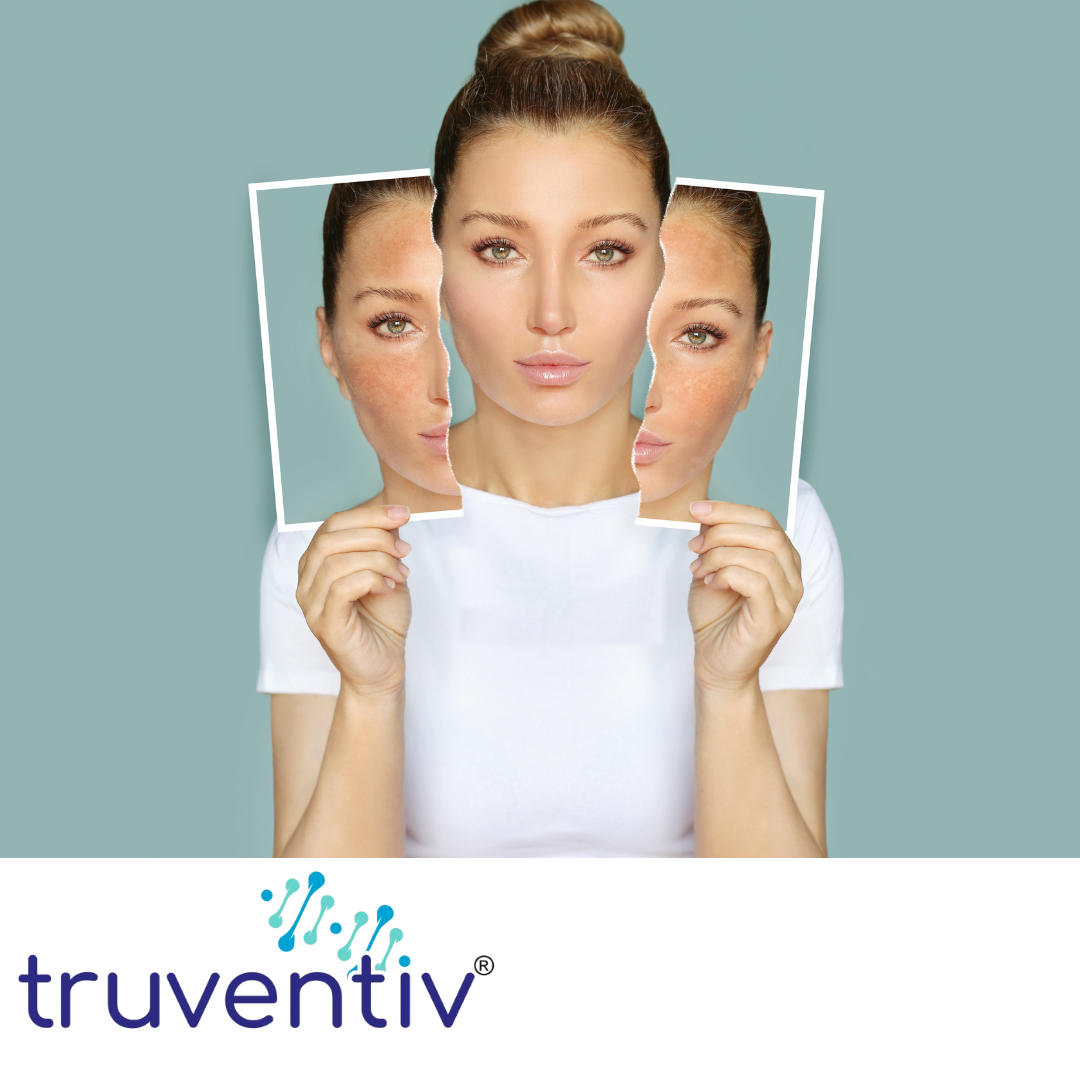
Cetyl Alcohol, although not directly an active ingredient targeting redness or blemishes, helps reduce redness and blemishes through its hydrating and soothing properties.
- Hydrates and Moisturizes the Skin
Cetyl Alcohol is an emollient, which means it helps to retain moisture in the skin. Keeping the skin properly hydrated is key to reducing irritation, which can often result in redness or inflammation. Dry or dehydrated skin can trigger redness, discomfort, and make blemishes more noticeable.
- How it helps:
- Prevents dryness and flakiness: Dry skin tends to become more irritated and inflamed, leading to redness and the appearance of blemishes. Cetyl Alcohol helps prevent dryness by locking in moisture, keeping the skin soft, smooth, and nourished.
- Maintains moisture balance: Well-hydrated skin is less likely to react to external irritants or stressors that may cause redness or breakouts.
- Supports the Skin’s Natural Barrier
Cetyl Alcohol helps strengthen the skin's natural barrier, which is vital for protecting the skin from irritants, bacteria, and allergens. A compromised skin barrier can lead to increased sensitivity, resulting in redness and blemishes.
- How it helps:
- Reduces skin irritation: By maintaining a healthy skin barrier, Cetyl Alcohol helps reduce the skin’s sensitivity to external factors that can cause redness or blemishes, such as pollution, environmental stress, and skin care product reactions.
- Prevents further irritation: The barrier it creates protects the skin from losing moisture, which helps to reduce the inflammation that can lead to redness or blemishes.
- Soothes and Calms the Skin
Cetyl Alcohol has a gentle and non-irritating nature, making it a great choice for people with sensitive skin that is prone to redness and irritation. It helps to calm the skin, reducing the likelihood of inflamed patches or blemishes that appear as a result of skin sensitivity.
- How it helps:
- Anti-irritating properties: By preventing the skin from becoming irritated or inflamed, Cetyl Alcohol can help calm redness that arises from conditions like rosacea or eczema, and can even reduce the appearance of redness caused by acne flare-ups.
- Prevents excessive dryness: Redness can often be exacerbated by overly dry skin, which is more likely to experience sensitivity or irritation. Cetyl Alcohol helps to keep the skin balanced and prevents dryness that might contribute to redness.
- Promotes Healing and Reduces Inflammation
Though Cetyl Alcohol is not a direct anti-inflammatory, its ability to lock in moisture and create a protective barrier helps reduce the risk of inflammatory reactions in the skin. Proper hydration promotes skin repair and reduces irritation, which is key in calming redness and healing blemishes.
- How it helps:
- Improves skin recovery: When the skin is properly hydrated and protected, it can heal from minor irritations, acne, and blemishes more effectively, leading to less visible redness and scarring.
- Reduces flare-ups: By preventing moisture loss and maintaining a healthy skin barrier, Cetyl Alcohol can help reduce the risk of skin flare-ups that lead to redness or blemishes.
- Softens and Smoothens the Skin
Cetyl Alcohol improves the overall texture of the skin by softening rough patches and evening out skin tone. This can help reduce the appearance of blemishes and discoloration, as it creates a smoother surface and improves skin's overall appearance.
- How it helps:
- Smoother skin texture: By helping to smooth out dry or rough patches, Cetyl Alcohol can make blemishes and redness less noticeable. This helps give the skin a more even and radiant appearance.
- Supports skin's regeneration: Cetyl Alcohol assists in keeping the skin’s surface soft and moisturized, allowing it to renew more effectively, which can reduce post-acne redness or marks.
HOW CETYL ALCOHOL HELPS IN CALMS SKIN CONDITIONS LIKE ECZEMA, ROSACEA & PSORIASIS
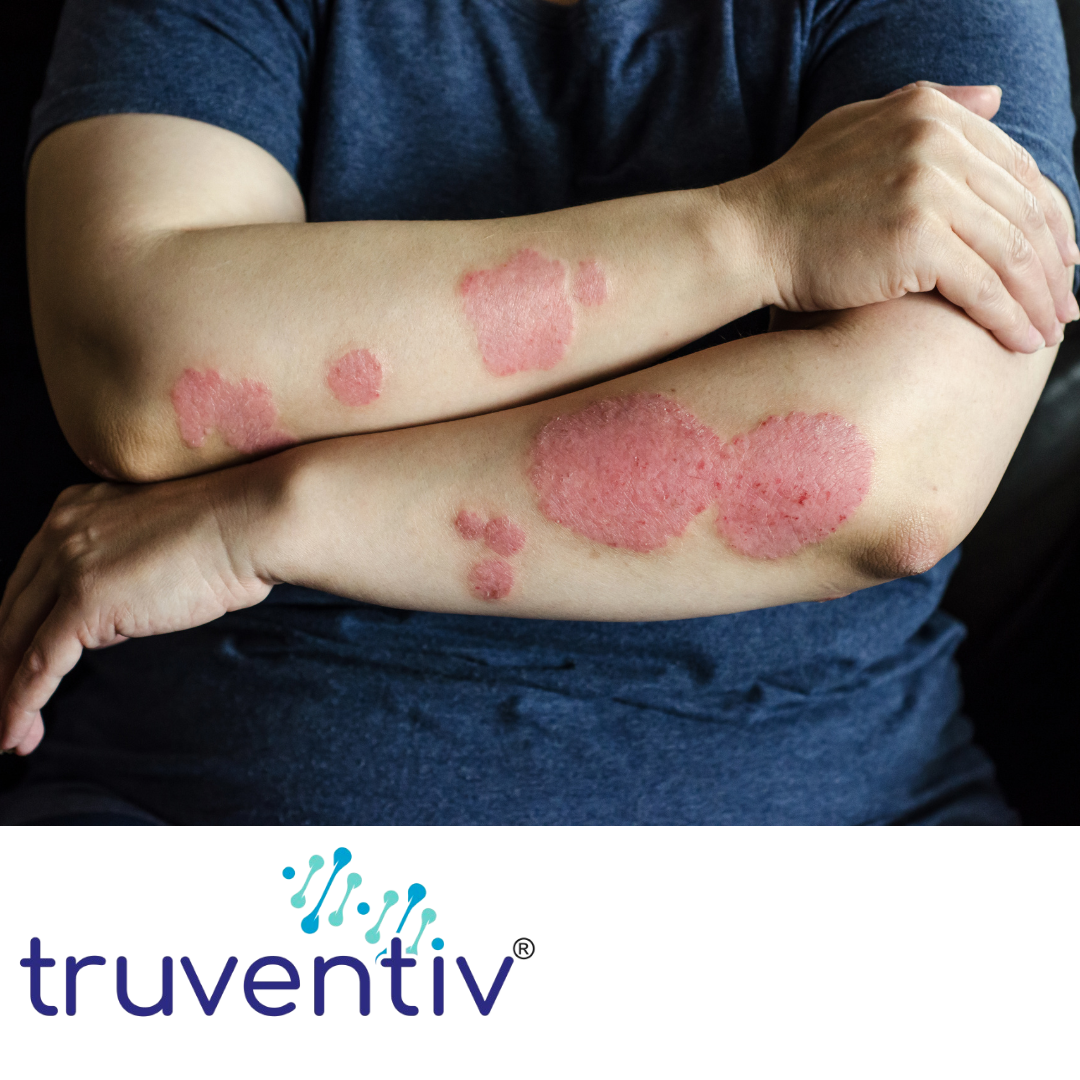
Cetyl Alcohol can be beneficial for calming skin conditions such as eczema, rosacea, and psoriasis due to its hydrating, barrier-strengthening, and soothing properties.
- Moisturizes and Prevents Dryness
Dry skin is a common trigger for eczema, rosacea, and psoriasis flare-ups. When the skin becomes dry, it can lead to irritation, itching, and inflammation. Cetyl Alcohol is an emollient that helps lock moisture into the skin, preventing it from becoming dehydrated.
- How it helps:
- Prevents moisture loss: Cetyl Alcohol forms a barrier that helps retain water in the skin, keeping it moisturized and preventing further dehydration. This is essential in managing skin conditions where dryness can lead to irritation.
- Relieves itching and tightness: By keeping the skin hydrated, Cetyl Alcohol helps to reduce itching and the tight feeling that often accompanies eczema, rosacea, and psoriasis, offering relief from the discomfort associated with these conditions.
- Strengthens the Skin’s Barrier
A healthy skin barrier is crucial for managing conditions like eczema and psoriasis, as a compromised barrier allows irritants, allergens, and bacteria to enter the skin, worsening flare-ups. Cetyl Alcohol helps strengthen and maintain the skin’s natural protective barrier.
- How it helps:
- Protects against irritants: By fortifying the skin’s barrier, Cetyl Alcohol helps to protect the skin from environmental factors and external irritants that can exacerbate eczema, rosacea, and psoriasis symptoms.
- Reduces sensitivity: Strengthening the skin's barrier helps minimize skin sensitivity and protects the skin from triggers that could cause inflammation or irritation in conditions like rosacea.
- Soothes and Calms the Skin
Cetyl Alcohol has mild, non-irritating properties that make it an excellent ingredient for soothing and calming sensitive or inflamed skin. This is especially important for conditions like rosacea and eczema, where redness and irritation are common symptoms.
- How it helps:
- Reduces inflammation: Cetyl Alcohol can help calm skin irritation and reduce redness by maintaining hydration and keeping the skin barrier intact. It also prevents further inflammation caused by excessive dryness.
- Gentle and non-irritating: Cetyl Alcohol is less likely to trigger allergic reactions or further irritation, making it a safe choice for people with sensitive or reactive skin, including those with eczema, rosacea, or psoriasis.
- Improves Skin Texture and Appearance
Conditions like eczema, psoriasis, and rosacea can cause the skin to become rough, flaky, and uneven. Cetyl Alcohol’s emollient properties help soften the skin, improving its texture and reducing the appearance of rough patches or flakes associated with these conditions.
- How it helps:
- Smoothing effect: By softening the skin and improving its moisture retention, Cetyl Alcohol helps to create a smoother, more even skin surface. This is especially beneficial for eczema and psoriasis, which often cause dry, flaky, and cracked skin.
- Enhances healing: Well-hydrated and nourished skin is better able to heal from the cracks, dryness, and irritation that often accompany eczema and psoriasis flare-ups.
- Reduces the Risk of Infection
Conditions like eczema and psoriasis can make the skin more prone to infection due to open cracks or breaks in the skin barrier. Cetyl Alcohol helps reduce this risk by ensuring that the skin stays moisturized and the barrier remains intact.
- How it helps:
- Barrier protection: The protective layer formed by Cetyl Alcohol helps to shield the skin from bacteria and other harmful microorganisms that could cause infections, which is especially important in eczema and psoriasis-affected areas.
- Promotes healing: By keeping the skin hydrated and preventing cracking, Cetyl Alcohol helps reduce the chances of secondary infections that can occur when the skin becomes compromised.
HOW CETYL ALCOHOL HELPS IN ANTI-ACNE & PIMPLE
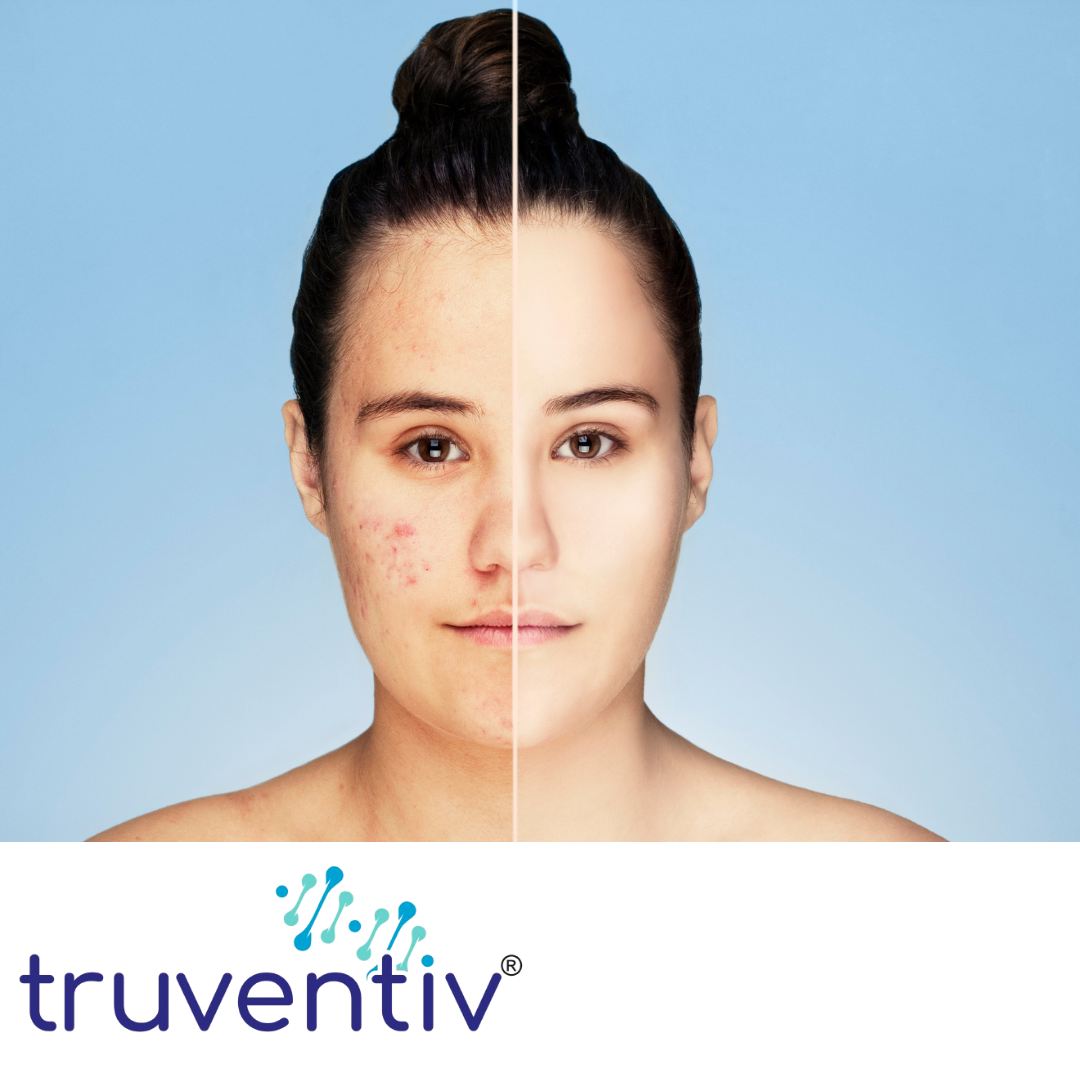
Cetyl Alcohol can help with anti-acne and pimple treatment indirectly by supporting skin health and preventing factors that can lead to breakouts. While Cetyl Alcohol isn't directly an acne-fighting ingredient, it offers several benefits that can help reduce the likelihood of acne and improve the overall appearance of the skin.
- Prevents Skin Dryness and Irritation
Dry, irritated skin can trigger the production of excess oil (sebum) to compensate for the lack of moisture, which can lead to clogged pores and acne. Cetyl Alcohol is an emollient that helps lock in moisture, preventing the skin from becoming too dry or irritated, which can be a common acne trigger.
- How it helps:
- Maintains skin hydration: By helping to retain moisture, Cetyl Alcohol keeps the skin hydrated and reduces the likelihood of excessive oil production.
- Soothes irritation: It also prevents skin irritation, which is especially important for acne-prone skin that can become inflamed or sensitive from harsh treatments.
- Non-Comedogenic
Cetyl Alcohol is generally considered non-comedogenic, meaning it is unlikely to clog pores. Clogged pores are a major factor in the development of acne and pimples, as they can trap oil, dead skin cells, and bacteria, leading to breakouts.
- How it helps:
- Doesn’t clog pores: Since Cetyl Alcohol does not block pores, it helps reduce the chances of developing acne by ensuring that the skin remains free of the build-up that leads to pimples.
- Helps keep pores clear: By maintaining hydration and promoting a balanced skin barrier, Cetyl Alcohol helps ensure that pores remain open and clear of debris, which can prevent the formation of pimples.
- Supports Skin’s Natural Barrier
A compromised skin barrier can lead to irritation and inflammation, which may exacerbate acne. Cetyl Alcohol helps strengthen and maintain the skin's natural barrier, preventing external irritants from triggering acne breakouts.
- How it helps:
- Reduces inflammation: A strong skin barrier is less susceptible to the inflammation that can lead to acne flare-ups. Cetyl Alcohol helps support and protect this barrier, ensuring the skin remains calm and balanced.
- Protects from environmental factors: By maintaining a healthy barrier, Cetyl Alcohol protects the skin from environmental stressors (pollution, bacteria, etc.) that can lead to acne or worsen existing breakouts.
- Soothes and Calms Acne-Prone Skin
Cetyl Alcohol has soothing properties that can calm irritated or inflamed skin. This is especially useful for acne-prone skin that is often red, sensitive, or reactive.
- How it helps:
- Reduces redness and irritation: Cetyl Alcohol can help reduce the redness and irritation associated with acne, especially after using acne treatments that may be drying or harsh on the skin.
- Non-irritating: Because Cetyl Alcohol is gentle and non-irritating, it can be a safer option for sensitive or acne-prone skin that reacts negatively to stronger ingredients.
- Improves Skin Texture
Acne-prone skin often suffers from uneven texture or post-acne scars, such as bumps or rough patches. Cetyl Alcohol's moisturizing properties help smooth and soften the skin, which can improve the overall texture.
- How it helps:
- Smooths skin surface: By keeping the skin moisturized and soft, Cetyl Alcohol helps improve skin texture, making acne scars or rough spots less noticeable.
- Promotes skin healing: Well-moisturized skin is more capable of healing itself, so Cetyl Alcohol may also help reduce the appearance of acne scars over time by supporting the skin’s natural repair process.
- Reduces Skin Sensitivity
Acne treatments can often leave the skin sensitive and vulnerable to further irritation. Cetyl Alcohol helps reduce sensitivity by maintaining skin hydration and supporting the barrier, which is essential for protecting the skin from external factors that can trigger acne.
- How it helps:
- Prevents over-drying: Many acne treatments are drying and can cause the skin to become irritated. Cetyl Alcohol helps to counteract this by keeping the skin moisturized and preventing over-drying.
- Minimizes irritation: By soothing the skin and maintaining moisture levels, Cetyl Alcohol helps reduce the irritation that can worsen acne or lead to new breakouts.
HOW SHEA BUTTER (BUTYROSPERMUM PARKII) HELPS IN FOR NATURAL GLOWING SKIN
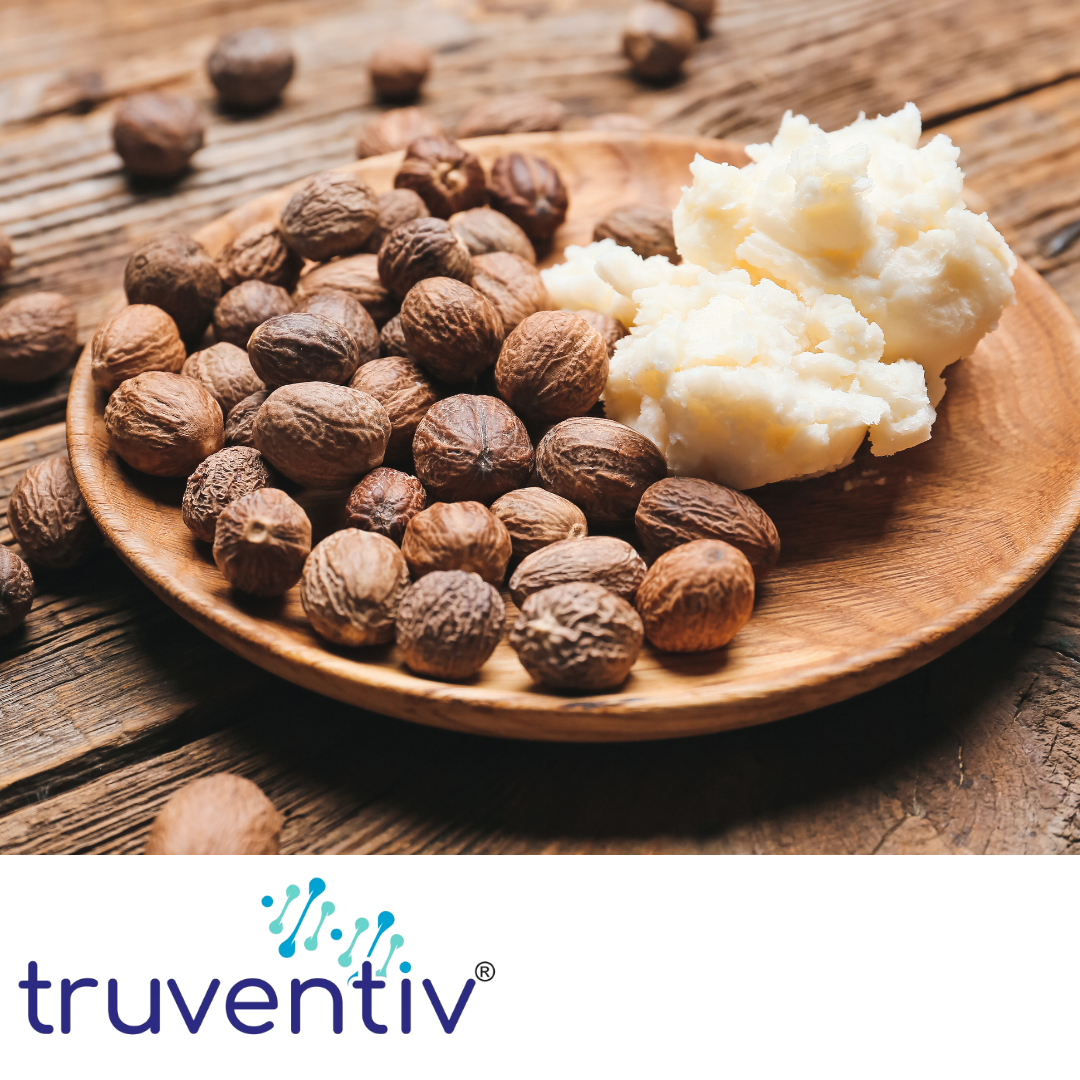
Shea Butter (from Butyrospermum parkii) is widely recognized for its ability to promote natural glowing skin due to its nourishing, hydrating, and restorative properties. Here's how Shea Butter helps to enhance your skin's radiance:
- Deep Hydration
Shea Butter is an excellent moisturizer due to its rich fatty acid content, including oleic acid, stearic acid, and linoleic acid, which help lock in moisture and prevent water loss from the skin.
- How it helps:
- Maintains moisture: By deeply moisturizing the skin, Shea Butter helps prevent dryness and flakiness, which can make the skin look dull and lackluster. Well-hydrated skin naturally appears more radiant and glowing.
- Softens the skin: Its emollient properties leave the skin feeling soft and smooth, contributing to a healthy and luminous appearance.
- Improves Skin Elasticity
Shea Butter is known for improving skin elasticity. It stimulates collagen production, which is key to maintaining firmness and resilience in the skin.
- How it helps:
- Prevents sagging: The boost in collagen production leads to firmer skin, which reflects light better and contributes to a youthful, glowing complexion.
- Tightens and tones: Regular use of Shea Butter can improve the overall texture and tightness of the skin, making it look healthier and more radiant.
- Rich in Vitamins
Shea Butter is packed with vitamins A, E, and F, which are known for their skin-boosting properties. These vitamins help protect the skin from damage and promote a glowing, clear complexion.
- How it helps:
- Vitamin A: Supports skin renewal and helps to brighten the skin, giving it a more youthful and even tone.
- Vitamin E: Acts as a potent antioxidant, protecting the skin from free radical damage and environmental stressors, which can dull the complexion.
- Vitamin F: Contains essential fatty acids that support healthy skin function and prevent irritation, resulting in a smoother, more radiant skin surface.
- Provides a Natural Glow
Shea Butter deeply nourishes the skin, resulting in a healthy, glowing complexion. The combination of hydration, elasticity improvement, and the high content of skin-loving nutrients contributes to a radiant appearance.
- How it helps:
- Glowing skin: As it hydrates and nourishes the skin, Shea Butter helps restore a natural glow by making the skin appear more luminous, smooth, and vibrant.
- Enhances skin tone: Its moisturizing properties ensure that the skin has a uniform, even appearance, which is crucial for achieving a glowing complexion.
- Reduces Skin Inflammation
Shea Butter contains anti-inflammatory compounds like triterpenes that can help reduce irritation and redness, making the skin appear more even-toned and less inflamed.
- How it helps:
- Soothe irritation: For sensitive or inflamed skin, Shea Butter helps calm the skin, reducing redness and blotchiness, which contributes to a more even, glowing appearance.
- Calms acne and blemishes: If you have acne-prone skin, Shea Butter can help soothe inflammation, minimizing the appearance of blemishes and promoting a clear, glowing complexion.
- Fights Free Radical Damage
The antioxidants in Shea Butter, such as vitamin E and phenols, help to fight free radical damage that can cause premature aging, dullness, and uneven skin tone.
- How it helps:
- Protects skin cells: The antioxidants in Shea Butter help protect skin cells from environmental pollutants and UV damage, which can lead to skin discoloration and a lackluster appearance.
- Promotes a youthful glow: By fighting oxidative stress, Shea Butter helps maintain a youthful, glowing complexion by preventing the visible effects of aging and environmental damage.
- Prevents Dryness and Flakiness
Dry and flaky skin can make the complexion appear dull and uneven. Shea Butter’s ability to provide deep hydration prevents dryness and flakiness, which can lead to a radiant and smooth skin surface.
- How it helps:
- Smoothens rough patches: Shea Butter softens rough, dry skin, helping to even out skin texture and give the skin a healthy, luminous look.
- Fights skin peeling: By providing long-lasting moisture, Shea Butter reduces the occurrence of peeling or flaking skin, which can make the skin appear dull.
- Repairs Damaged Skin
Shea Butter has regenerative properties that can help repair damaged skin by promoting cell turnover. It’s particularly useful for skin that’s been exposed to environmental stressors, acne scars, or dryness.
- How it helps:
- Speeds up healing: Shea Butter helps heal minor skin irritations and damage, improving the skin’s appearance and contributing to a smoother, glowing complexion.
- Brightens scars: By enhancing the regeneration of skin cells, it can help lighten dark spots and scars, contributing to an overall more even and glowing skin tone.
HOW SHEA BUTTER (BUTYROSPERMUM PARKII) HELPS IN IMPROVES OVERALL DERMAL HEALTH
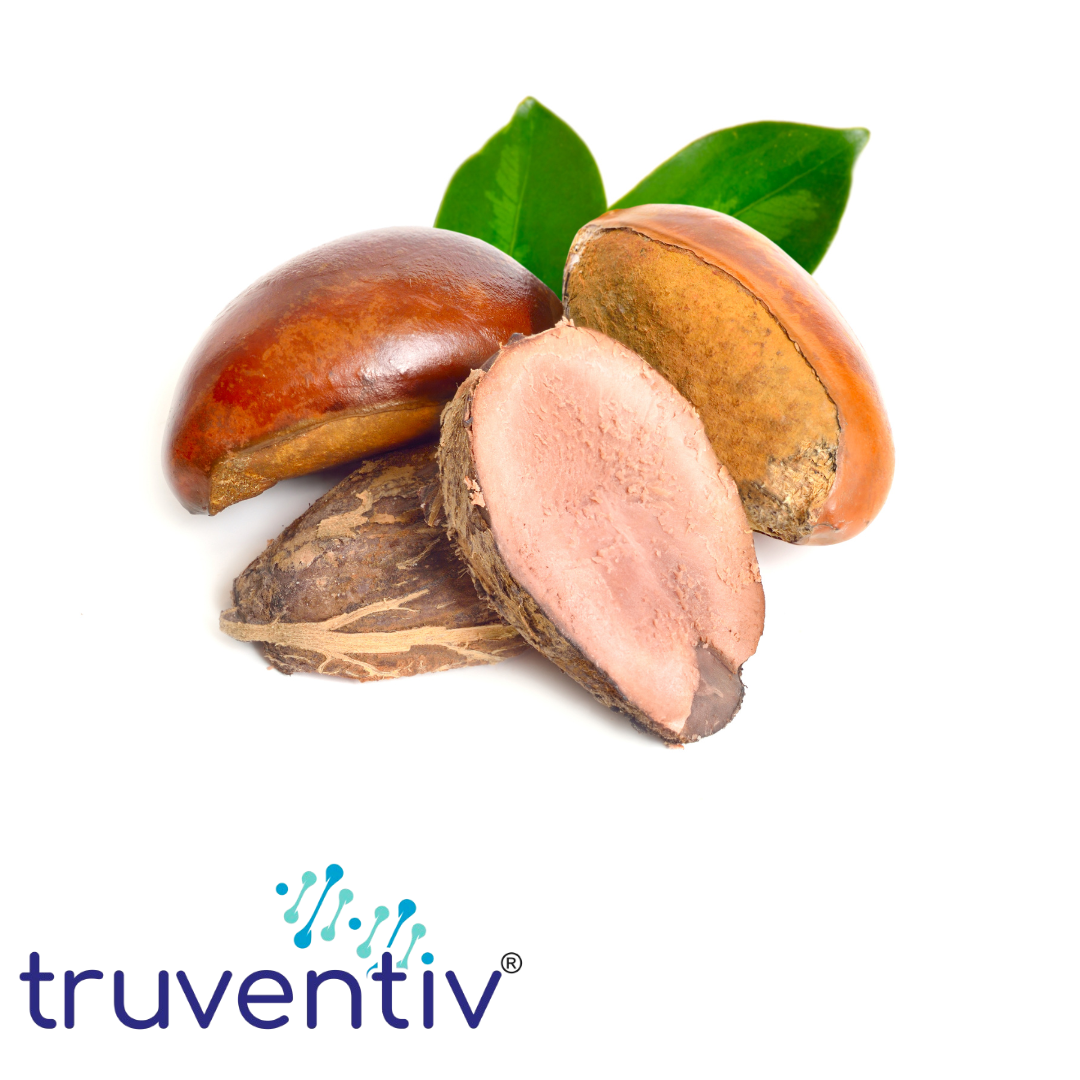
Shea Butter (Butyrospermum parkii) is highly beneficial for overall dermal health due to its rich composition of essential fatty acids, vitamins, antioxidants, and anti-inflammatory properties.
- Deep Hydration and Moisture Retention
One of Shea Butter’s key benefits is its ability to provide deep hydration, which is essential for maintaining overall skin health.
- How it helps:
- Prevents moisture loss: The fatty acids in Shea Butter, including oleic, stearic, and linoleic acids, help form a barrier that locks in moisture. This prevents the skin from becoming dehydrated, keeping it plump and healthy.
- Improves skin barrier function: By providing long-lasting hydration, Shea Butter strengthens the skin’s natural barrier, which is crucial for protecting against environmental damage and maintaining skin health.
- Rich in Essential Nutrients
Shea Butter is loaded with vitamins A, E, and F, which play vital roles in maintaining the skin's health and overall appearance.
- How it helps:
- Vitamin A: Stimulates collagen production and promotes skin regeneration, helping to keep the skin firm and youthful.
- Vitamin E: Acts as a powerful antioxidant that protects skin cells from damage caused by free radicals, helping to prevent premature aging and inflammation.
- Vitamin F: Contains essential fatty acids that support healthy skin function, providing essential nutrients that help maintain smooth, supple, and healthy skin.
- Anti-Inflammatory Properties
Shea Butter contains anti-inflammatory compounds, such as triterpenes, that help soothe and calm the skin, reducing redness and irritation. These properties are particularly beneficial for individuals with inflammatory skin conditions.
- How it helps:
- Reduces irritation: Shea Butter helps calm inflamed or irritated skin, making it beneficial for conditions like eczema, dermatitis, or psoriasis.
- Alleviates sensitivity: Regular use of Shea Butter can reduce skin sensitivity and help maintain a balanced, calm complexion, improving the overall health of the skin.
- Supports Skin Repair and Healing
Shea Butter has regenerative properties that support skin repair and recovery, which is crucial for maintaining healthy, resilient skin.
- How it helps:
- Promotes wound healing: Shea Butter is known for its ability to aid in the healing of minor cuts, scrapes, and burns due to its soothing and moisturizing effects.
- Supports skin regeneration: It accelerates cell turnover, which helps to repair damaged skin and improve its overall appearance.
- Antioxidant Protection
Shea Butter is rich in antioxidants, particularly vitamin E, which protect the skin from oxidative stress caused by free radicals, preventing premature aging and other skin issues.
- How it helps:
- Fights oxidative damage: By neutralizing free radicals, Shea Butter helps protect the skin from environmental damage, including UV rays and pollution, which can negatively impact skin health over time.
- Prevents premature aging: Antioxidants in Shea Butter help preserve the skin’s elasticity, preventing the formation of fine lines, wrinkles, and sagging.
- Balances Oil Production
Shea Butter helps balance oil production on the skin, which is crucial for maintaining overall skin health, especially for those with oily or acne-prone skin.
- How it helps:
- Non-comedogenic: Despite being rich in fatty acids, Shea Butter is non-comedogenic, meaning it won’t clog pores or lead to breakouts. It hydrates the skin without causing an oily or greasy build-up.
- Regulates sebum production: By providing deep moisture, Shea Butter helps to regulate the skin’s natural oil production, preventing over-drying and the resulting excess oil production that can lead to acne.
- Promotes Skin Elasticity and Firmness
Shea Butter helps to improve the skin’s elasticity and firmness by promoting collagen production, which is essential for maintaining skin structure and preventing sagging.
- How it helps:
- Improves skin elasticity: The fatty acids in Shea Butter improve skin flexibility, allowing it to stretch and contract without causing damage or sagging.
- Firms the skin: Over time, regular use of Shea Butter can help firm the skin and maintain its youthful appearance, which is essential for overall dermal health.
- Protects from Environmental Damage
The natural fatty acids and antioxidants in Shea Butter provide a protective shield for the skin against environmental factors such as harsh weather conditions, pollution, and UV radiation.
- How it helps:
- Provides a barrier: Shea Butter helps to lock in moisture while also protecting the skin from harmful environmental elements that can lead to dryness, irritation, and premature aging.
- Protects against UV damage: While Shea Butter doesn't replace sunscreen, its natural ability to protect the skin from minor sun exposure helps prevent long-term damage.
- Improves Skin Tone and Texture
By promoting cell turnover and reducing inflammation, Shea Butter helps improve skin tone and texture, leading to smoother, healthier-looking skin.
- How it helps:
- Even skin tone: Shea Butter can help fade dark spots, hyperpigmentation, and discoloration, leading to a more even and radiant complexion.
- Smoother texture: The regular use of Shea Butter softens rough patches and helps the skin feel smoother and more refined.
- Fights Skin Infections
Shea Butter has some antibacterial and antifungal properties, which can help reduce the risk of infections and other dermal issues.
- How it helps:
- Reduces bacterial growth: Its antimicrobial properties help fight off bacteria on the skin, reducing the risk of infections or irritation.
- Helps with acne: For acne-prone skin, Shea Butter’s antimicrobial properties can prevent bacteria from clogging pores and causing pimples or breakouts.
HOW SHEA BUTTER (BUTYROSPERMUM PARKII) HELPS IN ANTI-INFLAMMATION, ANTI-BACTERIAL, ANTI SEPTIC

Shea Butter (Butyrospermum Parkii) is renowned for its soothing and healing properties, making it an excellent choice for combating inflammation, bacterial infections, and overall skin irritation.
- Anti-Inflammatory
Shea Butter contains compounds such as triterpenes, which are natural anti-inflammatory agents. These compounds help to reduce redness, irritation, and swelling in the skin, making Shea Butter an ideal treatment for inflammatory skin conditions such as eczema, psoriasis, and dermatitis.
How it helps:
- Reduces skin irritation and redness: By calming inflammation, Shea Butter helps in reducing discomfort and visible irritation.
- Soothes sensitive skin: Regular use can make the skin more resilient against inflammation, leaving it calm and balanced.
- Anti-Bacterial
Shea Butter has mild antibacterial properties, which help protect the skin from harmful bacteria that may cause acne, breakouts, or other skin infections. It creates a protective barrier that keeps harmful microorganisms at bay.
How it helps:
- Prevents bacterial growth: Shea Butter inhibits the growth of bacteria, helping to reduce the risk of skin infections.
- Aids in healing acne and blemishes: The antibacterial effect helps prevent the formation of new acne and assists in healing existing pimples or breakouts.
- Anti-Septic
Shea Butter’s anti-septic qualities help protect the skin from external environmental aggressors, including dirt, pollutants, and potential pathogens. This makes it a great ingredient for maintaining overall skin health and healing minor cuts, scrapes, or wounds.
How it helps:
- Promotes healing of minor cuts and abrasions: The anti-septic properties accelerate the healing process by preventing infections in damaged skin.
- Protects from environmental pollutants: Shea Butter acts as a natural shield against harmful external factors that could worsen skin inflammation or lead to infections.
HOW SHEA BUTTER (BUTYROSPERMUM PARKII) HELPS IN REDUCES REDNESS & BLEMISHES
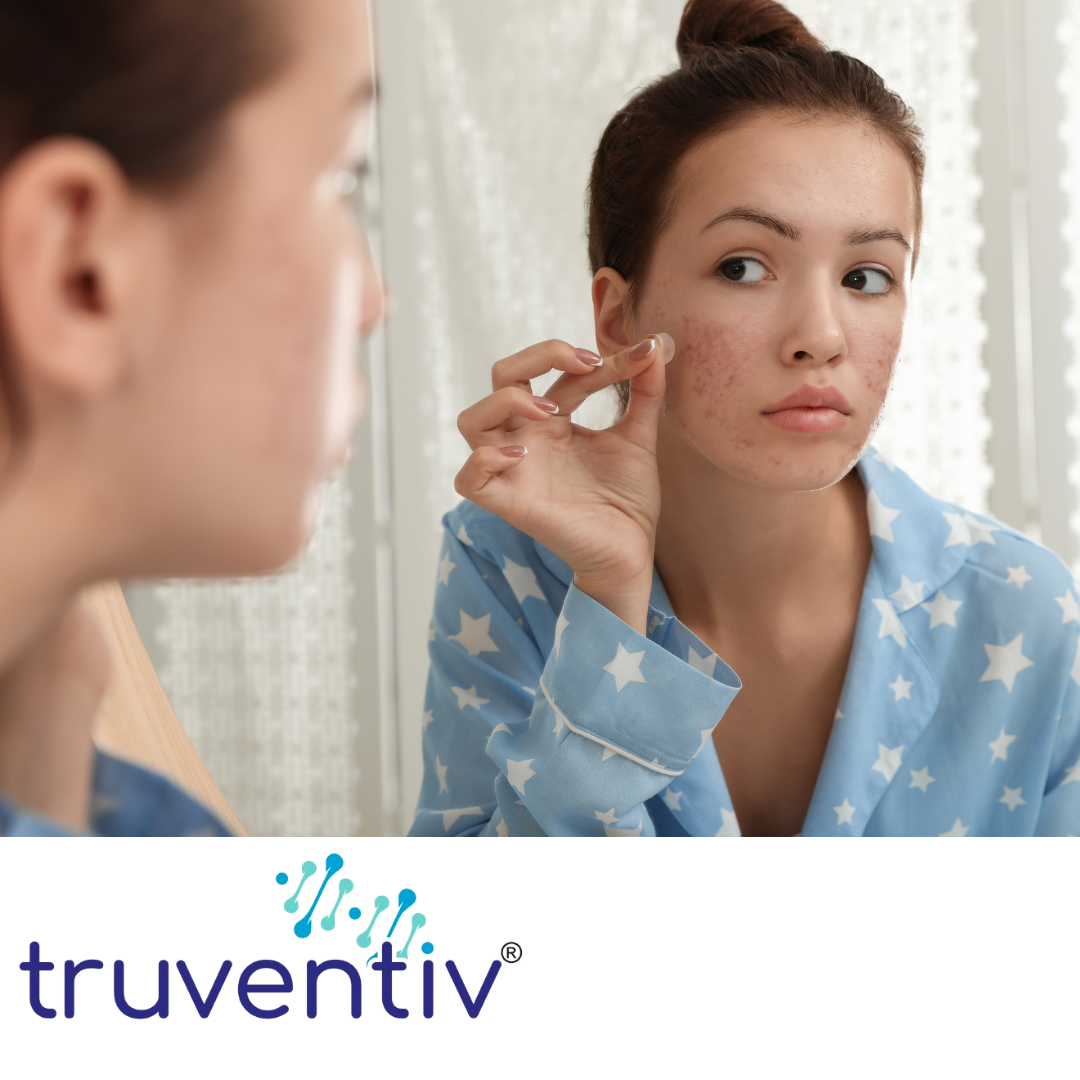
Shea Butter (Butyrospermum Parkii) is highly beneficial for reducing redness and blemishes on the skin due to its unique combination of moisturizing, anti-inflammatory, and healing properties.
- Reduces Redness
Shea Butter contains compounds like triterpenes, which possess anti-inflammatory properties that help soothe irritated skin and reduce redness. When applied to the skin, Shea Butter calms inflammation and helps restore the skin’s natural balance.
How it helps:
- Soothes inflammation: Shea Butter calms irritated skin, helping to reduce the redness that often accompanies conditions like acne, rosacea, or sunburn.
- Improves circulation: Its ability to improve blood flow to the skin supports healing, reducing redness from inflammation or skin irritation.
- Fights Blemishes
Shea Butter is rich in vitamins A and E, which are known for their skin-healing and regenerating properties. These vitamins help in the formation of new skin cells and improve skin texture, making it effective for reducing the appearance of blemishes, dark spots, and scars.
How it helps:
- Promotes skin regeneration: Vitamin A stimulates collagen production and enhances cell turnover, helping to fade dark spots and blemishes over time.
- Hydrates and softens: The deep moisturizing effect of Shea Butter helps maintain skin hydration, which supports the healing of blemishes and prevents new ones from forming.
- Lightens scars and hyperpigmentation: Shea Butter helps fade blemishes and dark spots by promoting an even skin tone and improving the overall texture of the skin.
- Heals and Prevents Future Blemishes
Shea Butter’s anti-inflammatory and antimicrobial properties help to heal existing blemishes while preventing new ones from forming. Its ability to moisturize without clogging pores ensures that it doesn't exacerbate acne or breakouts.
How it helps:
- Speeds up skin healing: Shea Butter helps in the healing of acne, cuts, or other blemishes, ensuring the skin recovers without leaving long-lasting marks.
- Prevents clogging pores: Despite being rich in fatty acids, Shea Butter is non-comedogenic, meaning it won't clog pores or lead to additional breakouts.
HOW SHEA BUTTER (BUTYROSPERMUM PARKII) HELPS IN CALMS SKIN CONDITIONS LIKE ECZEMA, ROSACEA & PSORIASIS
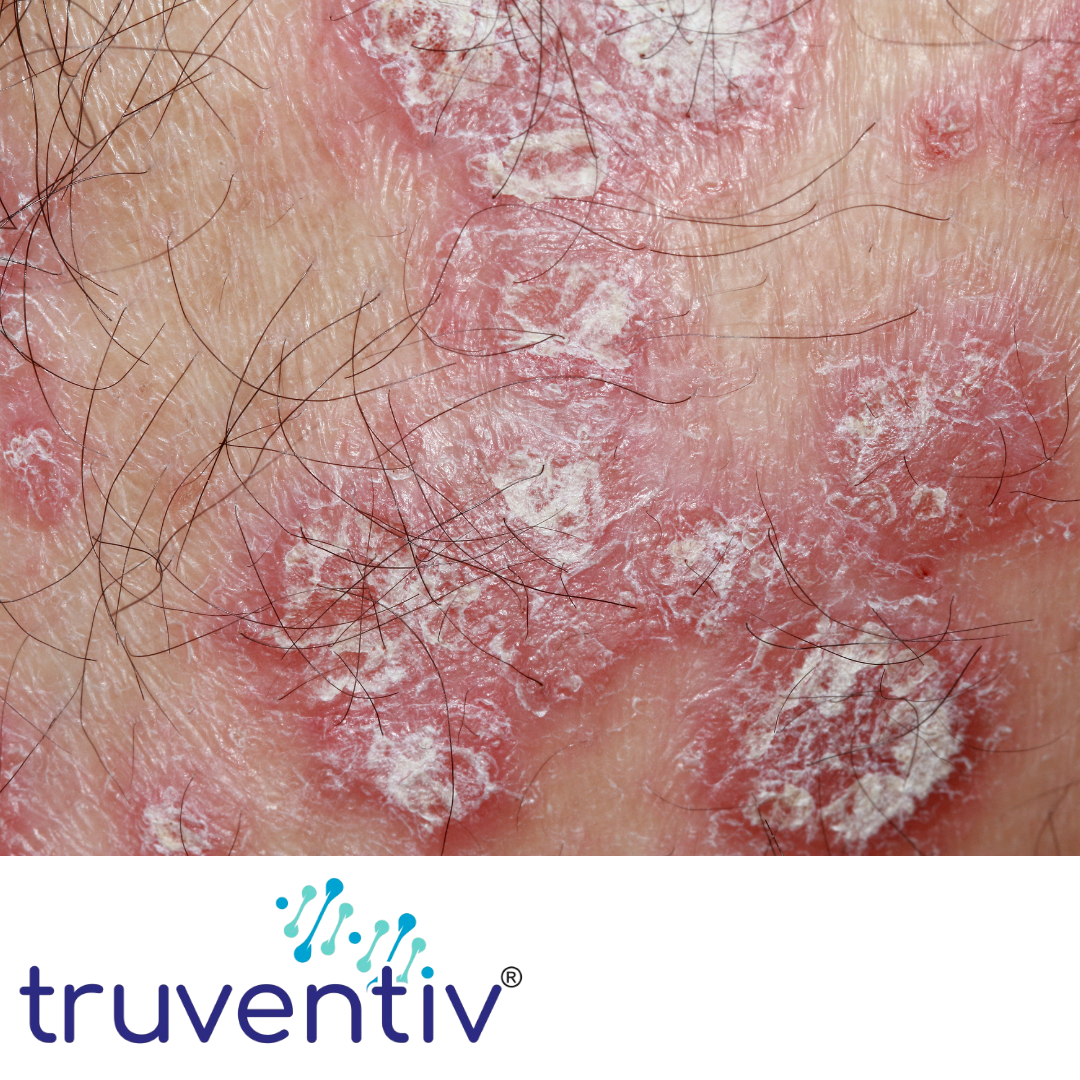
Shea Butter (Butyrospermum Parkii) is highly beneficial in calming skin conditions like eczema, rosacea, and psoriasis due to its deep moisturizing, anti-inflammatory, and healing properties.
- Anti-inflammatory Properties
Shea Butter contains natural triterpenes and fatty acids that provide powerful anti-inflammatory effects. These compounds help reduce redness, swelling, and irritation, which are common symptoms of eczema, rosacea, and psoriasis.
How it helps:
- Soothes inflammation: The anti-inflammatory properties help calm inflamed skin, reducing the discomfort and irritation associated with conditions like eczema and rosacea.
- Reduces skin sensitivity: Regular use can help decrease skin sensitivity, making it more resilient against environmental triggers that can worsen these conditions.
- Deep Hydration
Shea Butter is a rich moisturizer due to its high content of oleic acid, stearic acid, and linoleic acid, which help lock moisture into the skin. Keeping the skin hydrated is essential for soothing conditions like eczema, rosacea, and psoriasis, as dry skin can aggravate these conditions.
How it helps:
- Restores moisture balance: Shea Butter prevents moisture loss from the skin and creates a barrier to lock in hydration, which is especially important for conditions like eczema and psoriasis that lead to dry, flaky skin.
- Reduces skin tightness and discomfort: By restoring hydration, Shea Butter helps alleviate the tight, dry, and itchy feeling that is often associated with these skin conditions.
- Promotes Skin Regeneration
Shea Butter is rich in vitamin A, which supports skin regeneration by boosting collagen production and stimulating cell turnover. This can be especially helpful for individuals with psoriasis, where skin cells build up quickly, or for those with eczema, where the skin is prone to damage.
How it helps:
- Accelerates healing: Shea Butter helps heal damaged skin by supporting the regeneration of new skin cells, promoting faster recovery from flare-ups.
- Improves skin texture: By promoting healthy skin cell turnover, Shea Butter helps improve the texture of the skin and smooth out rough, patchy areas common in psoriasis and eczema.
- Antibacterial and Antifungal Properties
Shea Butter has natural antibacterial and antifungal properties that help protect the skin from infections. This is important for conditions like eczema and psoriasis, which can sometimes lead to secondary infections due to broken skin or scratching.
How it helps:
- Prevents infections: The antimicrobial properties of Shea Butter help reduce the risk of bacterial or fungal infections, which can exacerbate conditions like eczema or rosacea.
- Protects compromised skin: It helps maintain the integrity of the skin’s barrier, reducing the chances of skin infections or further irritation.
- Calms Rosacea Symptoms
For rosacea, which causes redness and irritation, Shea Butter’s ability to reduce inflammation and provide hydration can significantly calm the symptoms.
How it helps:
- Reduces redness: The anti-inflammatory compounds in Shea Butter help reduce the redness and swelling associated with rosacea flare-ups.
- Improves skin tolerance: Regular use of Shea Butter can help rosacea-prone skin become more resilient to environmental triggers that cause flare-ups, like sun exposure or harsh weather.
HOW SHEA BUTTER (BUTYROSPERMUM PARKII) HELPS IN ANTI ACNE & PIMPLE
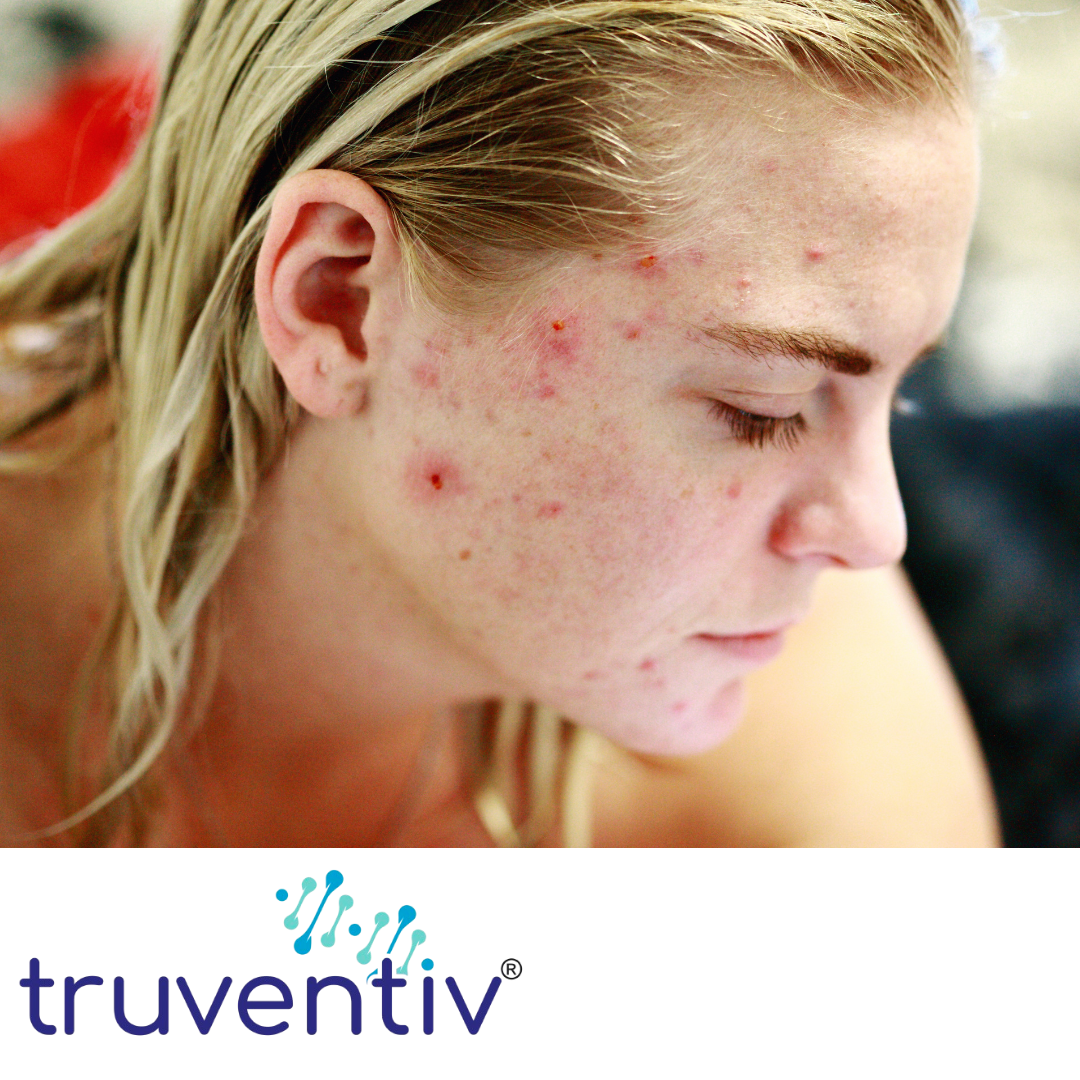
Shea Butter (Butyrospermum Parkii) can be beneficial for individuals with acne and pimples due to its unique combination of moisturizing, anti-inflammatory, and healing properties. While it is rich in fatty acids, which some may think could clog pores, Shea Butter is actually non-comedogenic, meaning it does not clog pores and can help manage acne when used appropriately.
- Non-Comedogenic and Hydrating
Despite being a rich moisturizer, Shea Butter is non-comedogenic, meaning it doesn't clog pores, which is crucial for preventing acne breakouts. It helps maintain the skin's moisture balance without creating the excess oil that can contribute to acne.
How it helps:
- Prevents dryness without clogging pores: It hydrates the skin deeply, preventing dehydration and irritation without contributing to oil buildup or pore blockages.
- Balances sebum production: Shea Butter helps regulate the skin's natural oil production, preventing both excessive dryness (which can lead to overcompensation and excess oil) and oiliness, which can contribute to acne.
- Anti-inflammatory Properties
One of the primary causes of acne is inflammation. Shea Butter contains triterpenes and other compounds that provide strong anti-inflammatory benefits, helping to reduce redness, swelling, and irritation associated with acne and pimples.
How it helps:
- Reduces acne-related inflammation: Its anti-inflammatory properties help soothe inflamed skin, reducing the appearance of acne and preventing new breakouts.
- Soothes irritated skin: This makes it particularly helpful for acne-prone skin that is sensitive or irritated due to acne treatments or external environmental factors.
- Fights Bacteria and Infections
Shea Butter has antibacterial properties, which help to fight the bacteria that can cause acne. Staphylococcus aureus and Propionibacterium acnes (the bacteria associated with acne) can be reduced with regular use of Shea Butter.
How it helps:
- Prevents bacterial growth: The antimicrobial properties help prevent bacterial overgrowth, which can reduce the chances of new pimples or cysts forming.
- Supports acne healing: For active pimples or acne scars, Shea Butter can help protect the skin from further infection while promoting healing.
- Promotes Skin Healing and Scar Prevention
Shea Butter is known for its healing and skin-regenerating properties due to its high content of vitamin A. Vitamin A encourages skin cell turnover, which is essential for healing acne scars and preventing clogged pores.
How it helps:
- Supports faster healing: It speeds up the healing process for pimples, reducing their duration and preventing them from becoming severe or leaving scars.
- Improves skin texture: Regular use of Shea Butter can improve skin texture and prevent the formation of post-acne hyperpigmentation and scarring by encouraging cell regeneration.
- Rich in Antioxidants
Shea Butter is loaded with vitamin E, a potent antioxidant that helps protect the skin from oxidative stress and environmental damage, both of which can exacerbate acne.
How it helps:
- Fights free radicals: Vitamin E neutralizes free radicals that can lead to skin damage and aging, helping to prevent acne flare-ups.
- Prevents premature aging: The antioxidant action also helps prevent the formation of fine lines and wrinkles, which can occur if acne scars are left untreated for too long.
- Helps with Excess Oil Control
Though Shea Butter is an oil-based moisturizer, it helps to balance oil production, which is important for preventing clogged pores, a common cause of acne.
How it helps:
- Regulates oil production: By hydrating and nourishing the skin without clogging pores, Shea Butter can help regulate the skin’s natural oil levels, reducing the likelihood of breakouts.
- Prevents over-drying: When using acne treatments, the skin can become overly dry, which leads to more oil production as the skin tries to compensate. Shea Butter helps prevent this cycle by maintaining hydration.
- Reduces Hyperpigmentation and Dark Spots
Acne often leaves behind dark spots and hyperpigmentation, but Shea Butter helps reduce these spots due to its ability to promote skin regeneration and its vitamin A content.
How it helps:
- Fades dark spots: The regeneration-promoting effects of Shea Butter help fade the dark spots left by acne, resulting in a more even skin tone.
- Reduces hyperpigmentation: Regular use helps prevent the formation of dark patches and speeds up the healing process of post-acne marks.
Conclusion
Shea Butter (Butyrospermum Parkii) is an excellent natural option for treating acne and pimples due to its combination of:
- Non-comedogenic properties: It hydrates without clogging pores.
- Anti-inflammatory benefits: It helps reduce redness and swelling associated with acne.
- Antibacterial effects: It fights the bacteria that contribute to acne breakouts.
- Healing properties: It speeds up healing and helps with scar prevention.
- Antioxidant protection: It fights free radicals and environmental damage that can worsen acne.
HOW SANDAL EXTRACT (XYMENYNIC) HELPS IN FOR NATURAL GLOWING SKIN
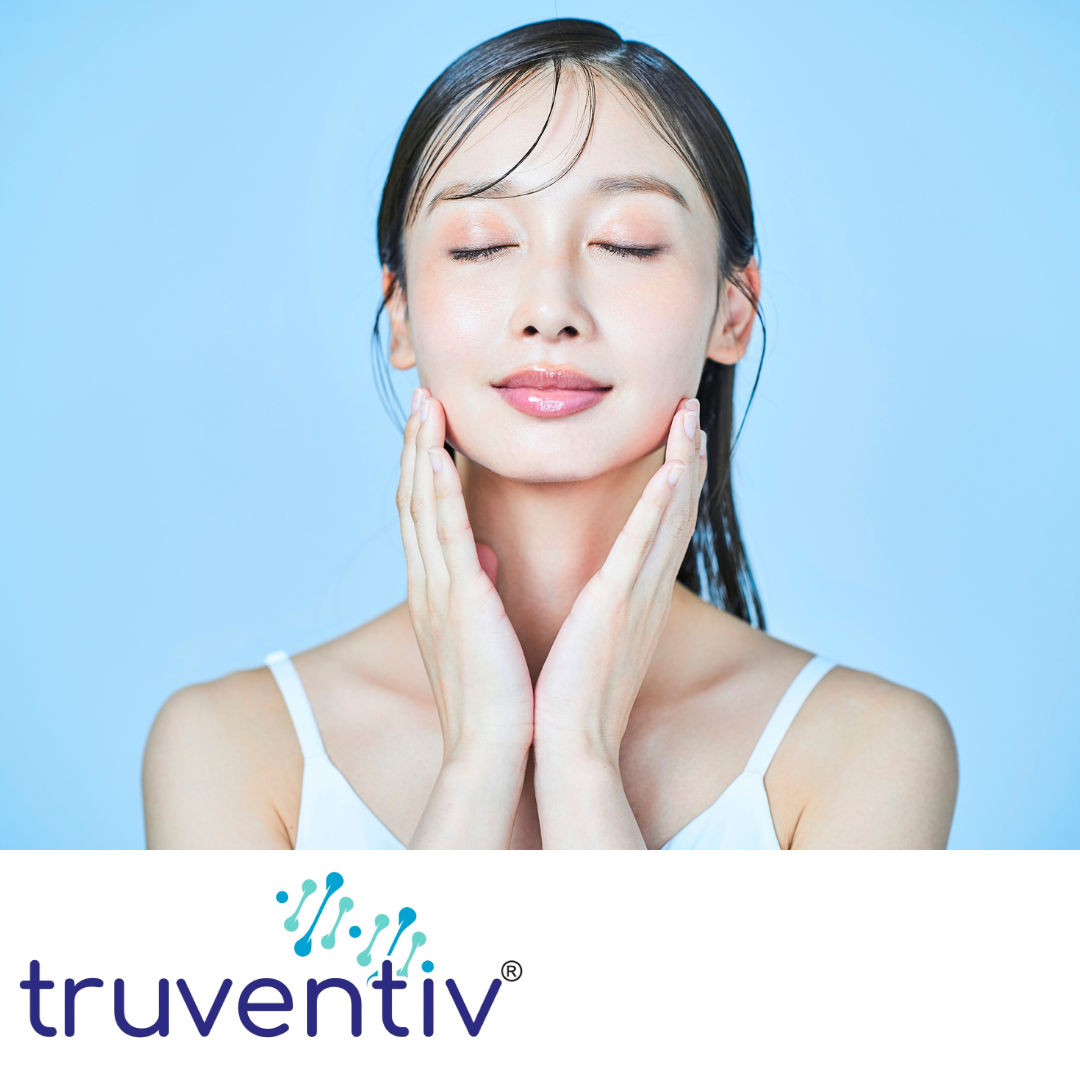
Sandalwood extract, specifically the compound xylenenic acid (often referred to as xylenenic or xylenic acid), has several benefits for the skin, particularly when it comes to promoting a natural, glowing complexion.
1. Anti-inflammatory Properties:
Sandalwood has natural anti-inflammatory properties, which help to reduce redness, irritation, and puffiness in the skin. By calming the skin, it creates a more even and smooth appearance, contributing to a glowing, healthy look.
2. Antioxidant Action:
Xylenenic acid, found in sandalwood, has antioxidant properties, which help combat free radical damage. Free radicals are unstable molecules that contribute to skin aging and dullness. Antioxidants neutralize these harmful molecules, protecting the skin from oxidative stress and promoting a youthful, radiant glow.
3. Brightening Effect:
Sandalwood is known to help lighten skin and fade dark spots, blemishes, or pigmentation over time. It can even out the skin tone and enhance natural radiance, making the skin appear brighter and more luminous.
4. Moisturizing:
Sandalwood has hydrating qualities that prevent dryness and improve the skin’s texture. Well-moisturized skin looks more vibrant and smooth, which enhances the overall natural glow.
5. Antiseptic and Skin Healing:
Sandalwood has mild antiseptic and antimicrobial properties that help with acne or other skin blemishes. By preventing infection and promoting skin healing, it allows for clearer skin, further contributing to a glowing complexion.
6. Skin Soothing:
Sandalwood is cooling and soothing, making it effective in calming sensitive or irritated skin. This soothing effect can help reduce the appearance of redness and make the skin look more refreshed and healthy.
Incorporating sandalwood extract into your skincare routine can bring these benefits, making your skin appear healthier, glowing, and more even-toned.
If you're looking for skincare products, make sure to check for products with sandalwood oil or extracts to harness these benefits
HOW SANDAL EXTRACT (XYMENYNIC) HELPS IN IMPROVES OVERALL DERMAL HEALTH

Sandalwood extract, particularly the compound xylenenic acid (often referred to as xylenic acid), plays a significant role in improving overall dermal health.
1. Anti-inflammatory Benefits:
Xylenenic acid has strong anti-inflammatory properties that help reduce inflammation in the skin. Inflammation is often linked to various skin conditions like acne, rosacea, or eczema. By reducing inflammation, sandalwood helps soothe the skin, preventing irritation and discomfort while promoting a calmer, healthier skin appearance.
2. Antioxidant Protection:
The antioxidant effects of sandalwood are crucial for fighting free radicals, which are unstable molecules that contribute to skin aging and damage. Free radicals are often caused by environmental stressors like pollution, UV rays, and toxins. By neutralizing free radicals, sandalwood helps to protect the skin from oxidative stress, thus slowing down the aging process, reducing the formation of wrinkles, and maintaining healthy skin cells.
3. Skin Regeneration and Healing:
Sandalwood has mild antimicrobial and antiseptic properties that make it beneficial for treating minor wounds, cuts, or skin irritations. It helps speed up the healing process and prevents infections. Additionally, the soothing properties of xylenenic acid help in calming the skin after any irritation or injury, which supports faster regeneration of healthy skin cells.
4. Hydration and Moisture Retention:
Sandalwood extract is known to have moisturizing properties. It helps to lock in moisture, preventing skin dryness and promoting optimal hydration. Well-hydrated skin is less prone to cracking, flakiness, and premature aging. Hydrated skin also looks plumper and more radiant, contributing to overall dermal health.
5. Balancing Skin Tone and Texture:
Regular use of sandalwood helps even out the skin tone by reducing pigmentation, dark spots, and blemishes. Xylenenic acid assists in skin brightening, which can lead to a more uniform complexion. Additionally, sandalwood works on improving skin texture, making it feel softer and smoother.
6. Anti-acne and Blemish Control:
Sandalwood's antimicrobial properties help control the growth of acne-causing bacteria and prevent new breakouts. By keeping the skin clean and preventing clogged pores, it helps maintain clear skin. Reducing acne breakouts not only improves skin appearance but also prevents scarring, contributing to healthier dermal conditions.
7. Protection from Environmental Damage:
The compounds in sandalwood extract, including xylenenic acid, act as a barrier against environmental pollutants and harmful UV rays. Sandalwood’s natural composition helps protect the skin from external aggressors, which can damage the skin's barrier and lead to conditions like premature aging, dark spots, or sensitivity.
8. Balancing Oil Production:
For those with oily or combination skin, sandalwood can help regulate the production of sebum (skin's natural oil). This balance prevents the skin from becoming excessively oily, which can lead to clogged pores and acne, or overly dry, which can lead to irritation. By maintaining this balance, sandalwood supports overall dermal health.
HOW SANDAL EXTRACT (XYMENYNIC) HELPS IN ANTI-INFLAMMATION, ANTI-BACTERIAL, ANTI-SEPTIC
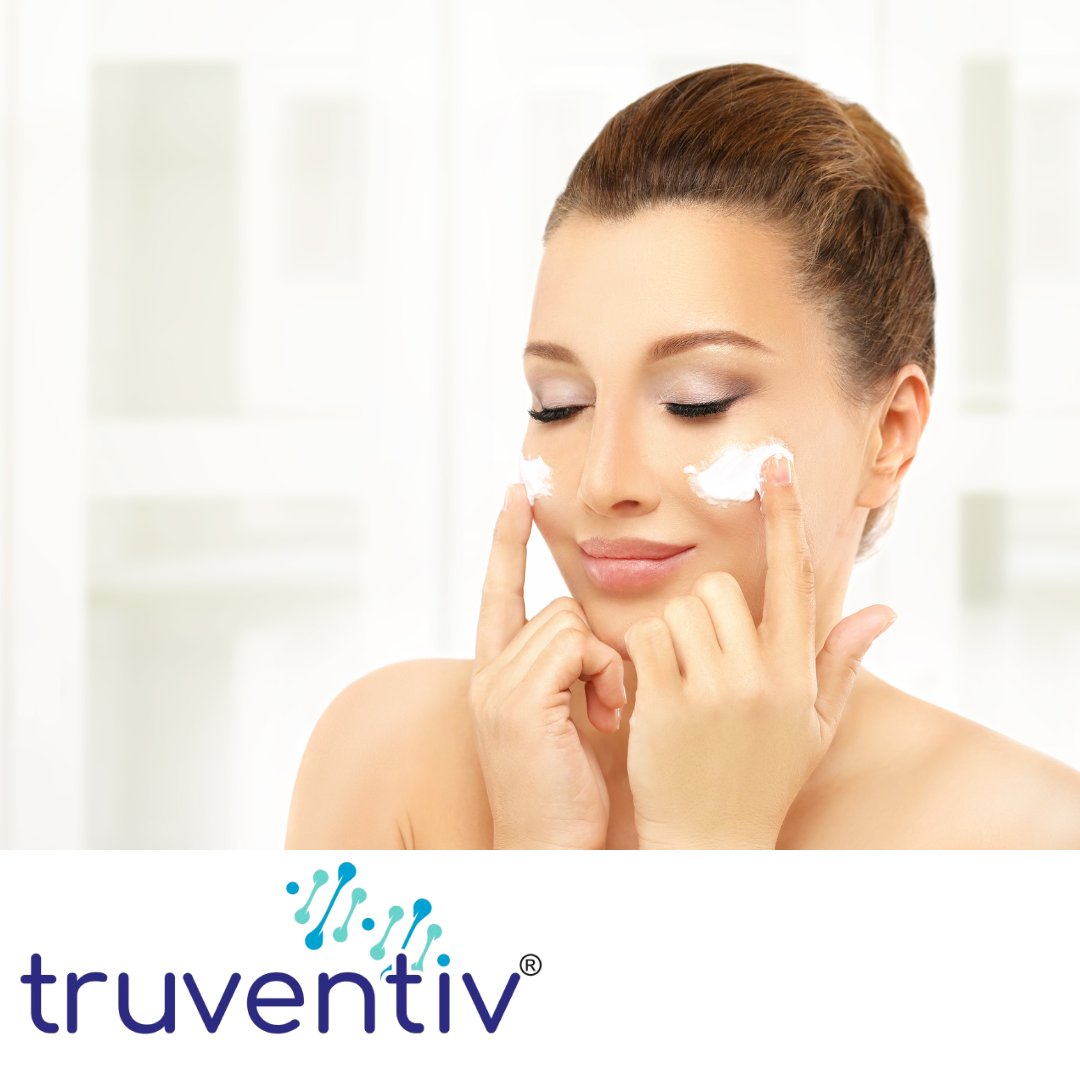
Sandalwood extract, specifically xylenenic acid (also referred to as xylenic acid), offers a range of skin benefits due to its anti-inflammatory, antibacterial, and antiseptic properties.
- Anti-Inflammatory Properties:
Sandalwood extract contains compounds that help reduce inflammation in the skin. This is important because inflammation is a key factor in many skin conditions, such as acne, eczema, rosacea, and psoriasis. Xylenenic acid in sandalwood has natural anti-inflammatory effects that can help:
- Calm Redness & Swelling: By reducing inflammation, sandalwood helps soothe irritated skin, reducing redness and swelling associated with conditions like acne, eczema, or general irritation.
- Promote Healing: By reducing inflammatory responses, sandalwood supports the skin’s healing process, helping it to recover from wounds or irritation more effectively.
This soothing effect helps balance the skin's response to internal and external stressors, making it calmer and more resilient.
- Anti-Bacterial Properties:
Sandalwood has natural antibacterial qualities, which make it effective for addressing acne, pimples, and other skin conditions caused by bacterial infections. Xylenenic acid, along with other components in sandalwood, can:
- Inhibit Bacterial Growth: Sandalwood extract helps to control the growth of bacteria on the skin’s surface, reducing the risk of infection and breakouts.
- Prevent Acne Breakouts: By killing acne-causing bacteria (like Propionibacterium acnes), sandalwood can help prevent new pimples from forming, leading to clearer skin.
- Control Odor: The antibacterial action also helps control body odor by neutralizing the bacteria responsible for producing unpleasant smells.
For those with acne-prone or sensitive skin, the antibacterial properties of sandalwood can reduce the frequency and severity of flare-ups.
- Antiseptic Properties:
Sandalwood extract acts as a mild antiseptic, which helps protect the skin from external pathogens and reduces the risk of infection. Here's how this works:
- Prevent Infection in Wounds: Sandalwood's antiseptic qualities make it effective in treating minor cuts, scratches, and burns. It helps prevent bacterial infection in these areas by creating a protective barrier that discourages the growth of harmful microorganisms.
- Calm Skin Post-Treatment: After procedures like extractions, dermal treatments, or minor skin irritation, sandalwood helps to disinfect the area and calm the skin, preventing any secondary infections.
- Maintain Skin Integrity: By acting as an antiseptic, sandalwood promotes the integrity of the skin’s protective barrier, reducing the likelihood of breakouts, rashes, or other skin infections.
Combined Effects:
The combination of anti-inflammatory, anti-bacterial, and antiseptic properties in sandalwood extract makes it a powerful ally in maintaining clear, healthy skin. For example, it can:
- Help prevent and treat acne by soothing inflammation and eliminating bacteria.
- Calm sensitive or reactive skin, reducing the risk of conditions like dermatitis or rosacea from flaring up.
- Promote healing and skin regeneration in cases of minor wounds, cuts, or post-inflammatory marks.
HOW SANDAL EXTRACT (XYMENYNIC) HELPS IN REDUCES REDNESS & BLEMISHES
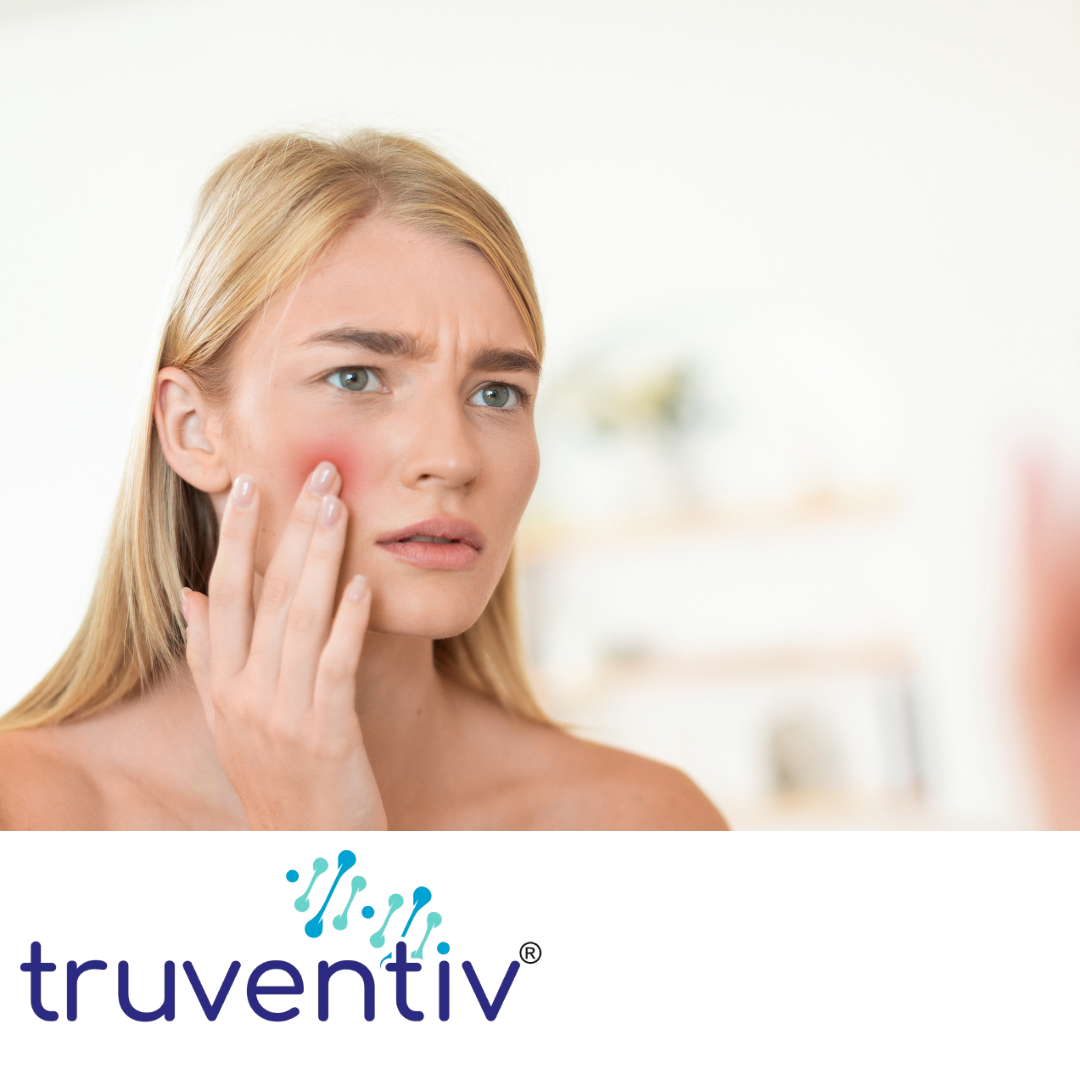
Sandalwood extract, particularly the compound xylenenic acid (often referred to as xylenic acid), helps reduce redness and blemishes in the skin through its unique combination of properties.
- Anti-Inflammatory Effects:
One of the primary ways sandalwood extract helps reduce redness is through its anti-inflammatory properties. Redness in the skin is often a result of inflammation, whether due to acne, irritation, sunburn, or other conditions. Xylenenic acid in sandalwood helps to:
- Calm Inflammation: By reducing the inflammatory response, sandalwood helps to soothe the skin, decreasing redness caused by conditions like acne, rosacea, or sensitivity.
- Prevent Swelling: The anti-inflammatory action also reduces puffiness, which can further contribute to a smoother, more even complexion.
With less inflammation, the skin appears calmer and more balanced, reducing visible redness.
- Antioxidant Protection:
Antioxidant properties in sandalwood, including xylenenic acid, help protect the skin from free radical damage, which can cause skin to appear dull and aggravated. Free radicals often contribute to skin issues like blemishes, dark spots, and uneven skin tone. The antioxidants in sandalwood:
- Fight Oxidative Stress: By neutralizing harmful free radicals, sandalwood helps prevent oxidative damage that can contribute to redness and pigmentation, leading to a more even, glowing complexion.
- Promote Skin Health: The protective action of antioxidants keeps the skin looking healthy, minimizing the chances of future blemishes or skin irritation.
- Skin Brightening and Even Tone:
Sandalwood has skin-brightening properties that help to reduce the appearance of blemishes and dark spots. This is particularly effective for:
- Hyperpigmentation: If the redness or blemishes leave dark spots or pigmentation behind, sandalwood can help fade these marks over time, giving the skin a more uniform tone.
- Even Out Skin Tone: Sandalwood's natural compounds work to lighten dark spots and even out the skin tone, resulting in a clearer, more radiant complexion.
Regular use of sandalwood extract can significantly diminish the appearance of old blemishes and scars.
- Antiseptic and Healing Properties:
Sandalwood extract has natural antiseptic properties, which help treat minor cuts, blemishes, or pimples. When the skin is inflamed due to an acne breakout or irritation, sandalwood’s antiseptic action helps:
- Prevent Infection: By preventing bacteria from settling into open pores or wounds, sandalwood can prevent new blemishes from forming and reduce the risk of scarring.
- Promote Healing: Sandalwood helps speed up the healing process by soothing the skin, allowing blemishes to heal faster and reducing the appearance of redness or marks left behind by acne or other skin conditions.
- Hydration and Moisture Balance:
Redness and blemishes can sometimes be exacerbated by dryness or dehydration in the skin. Sandalwood has excellent moisturizing properties, helping to balance skin hydration. Well-hydrated skin:
- Minimizes Irritation: Hydrated skin is less likely to become irritated, which can reduce the chances of redness or inflammation from worsening.
- Promotes a Healthy Skin Barrier: By moisturizing and maintaining skin hydration, sandalwood helps support a healthy skin barrier, which is crucial for minimizing sensitivity and preventing further breakouts or redness.
HOW SANDAL EXTRACT (XYMENYNIC) HELPS IN CALMS SKIN CONDITIONS LIKE ECZEMA, ROSACEA & PSORIASIS
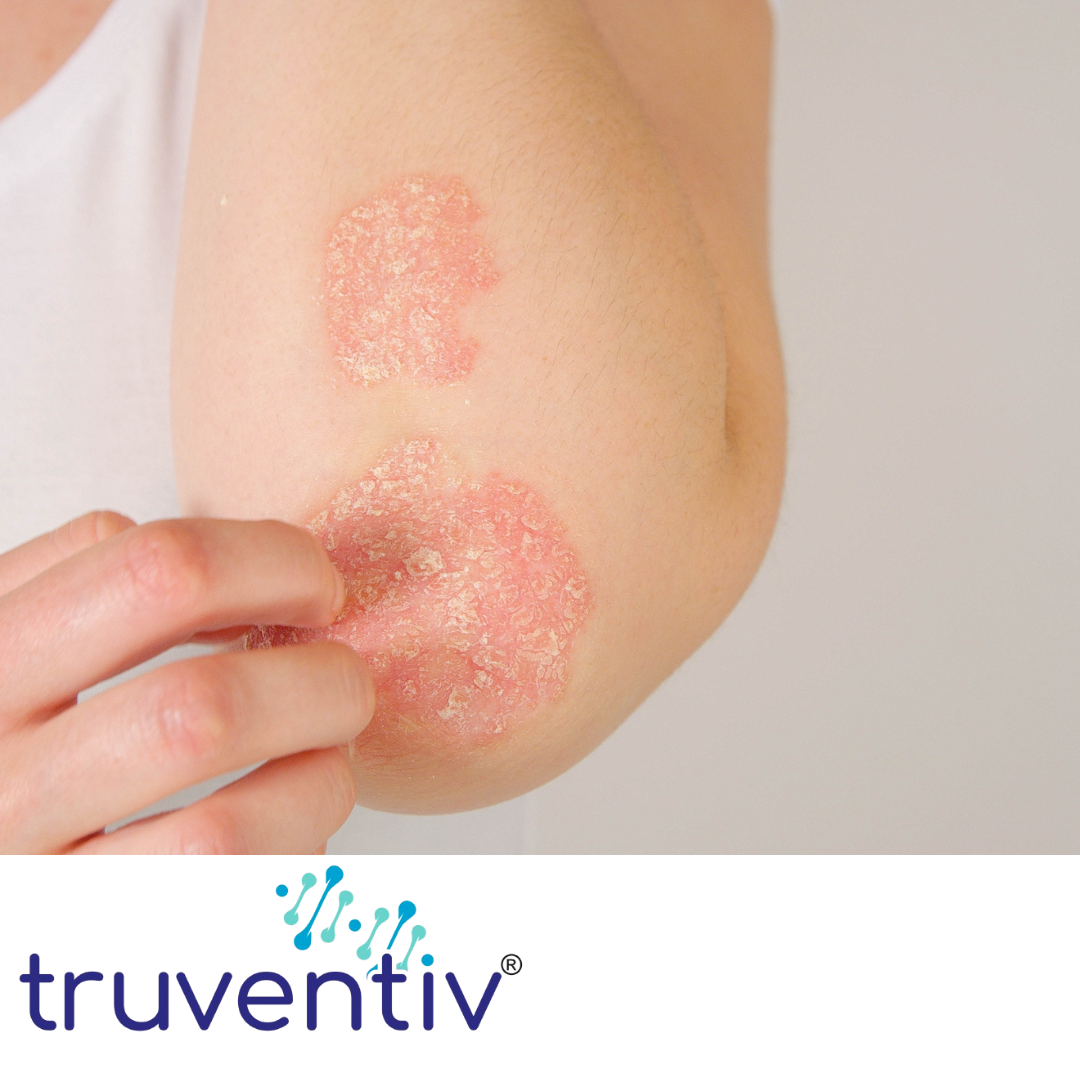
Sandalwood extract, particularly the compound xylenenic acid, can be highly beneficial for calming skin conditions like eczema, rosacea, and psoriasis.
- Anti-Inflammatory Effects:
One of the key properties of sandalwood extract, especially due to its xylenenic acid content, is its anti-inflammatory action. Conditions like eczema, rosacea, and psoriasis are often marked by chronic inflammation, leading to redness, irritation, and discomfort.
- Reduces Inflammation: By calming the inflammatory response, sandalwood helps reduce the swelling, redness, and irritation that are common in these conditions.
- Soothes Skin: Sandalwood's anti-inflammatory effects directly soothe the skin, making it less reactive to external triggers, which is crucial for conditions like rosacea and eczema that often flare up with certain irritants.
- Antioxidant Protection:
Sandalwood is rich in antioxidants, which help combat the oxidative stress that can exacerbate inflammatory skin conditions. Free radicals contribute to the breakdown of skin cells and inflammation, leading to flare-ups in conditions like eczema, psoriasis, and rosacea.
- Neutralizes Free Radicals: The antioxidants in sandalwood help protect the skin from environmental damage, reducing the stress on the skin’s barrier and supporting its overall health.
- Prevents Premature Aging: By reducing oxidative damage, sandalwood also helps to prevent the skin from aging prematurely, which is important in managing conditions that often cause visible changes in skin texture and tone over time.
- Skin Healing and Repair:
Sandalwood has antiseptic and healing properties that can help promote faster recovery from skin flare-ups and injuries related to eczema, psoriasis, and rosacea. These conditions often cause breaks in the skin’s surface, which can be vulnerable to infection or further irritation.
- Speeds Up Healing: Sandalwood’s antimicrobial and soothing properties help to speed up the skin's healing process, allowing skin to recover more quickly from cracks, flaking, or irritation.
- Prevents Infection: Sandalwood’s antiseptic properties help protect the skin from bacterial or fungal infections, which are common in conditions like eczema or psoriasis, where the skin may be broken or compromised.
- Hydration and Moisture Retention:
Eczema, psoriasis, and rosacea can cause skin dryness, flakiness, and irritation, leading to uncomfortable symptoms. Sandalwood has moisturizing properties that help hydrate and lock in moisture.
- Improves Skin Barrier Function: Well-hydrated skin is better able to defend itself against external irritants, reducing the frequency and severity of flare-ups.
- Prevents Dryness and Cracking: Sandalwood helps maintain skin moisture, preventing the dryness and cracking that often occur with conditions like eczema and psoriasis.
- Calming Irritation and Redness:
Sandalwood’s cooling and calming effect on the skin is especially beneficial for conditions like rosacea, which often results in persistent redness and sensitivity.
- Reduces Redness: Sandalwood helps to calm the skin, alleviating the constant redness or flushing seen in rosacea. It works by decreasing the skin’s reactivity and soothing irritation.
- Relieves Itching: In eczema and psoriasis, intense itching is a common symptom. Sandalwood helps to alleviate itching by calming the inflamed areas of the skin, allowing for greater comfort.
- Balancing Skin Sensitivity:
People with skin conditions like eczema, rosacea, and psoriasis often experience heightened skin sensitivity. Sandalwood is gentle and non-irritating, which makes it suitable for sensitive skin. It helps:
- Stabilize the Skin’s Response: By soothing sensitive skin, sandalwood reduces over-reaction to triggers, preventing flare-ups caused by allergens or environmental factors.
- Create a Protective Barrier: Sandalwood helps restore the skin’s protective barrier, which is often weakened in conditions like eczema and psoriasis, making it more prone to irritation.
- Improves Overall Skin Health:
Consistent use of sandalwood can contribute to overall skin health, helping to reduce the frequency and severity of flare-ups over time. By providing both protective and restorative effects, it supports the skin in maintaining a balanced, calm state.
HOW SANDAL EXTRACT (XYMENYNIC) HELPS In ANTI ACNE & PIMPLE
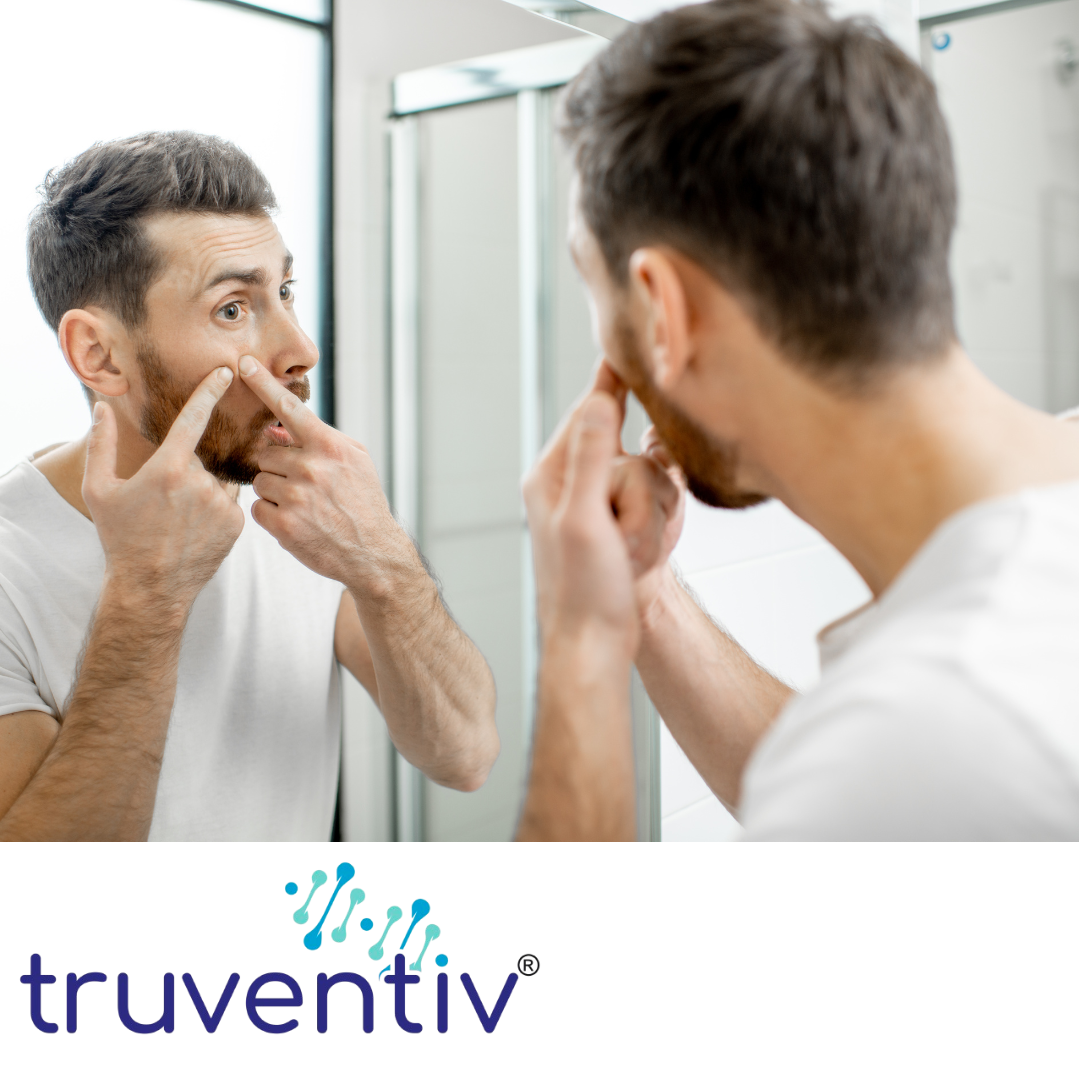
Sandalwood extract, specifically Santalum album (commonly known as sandalwood), is known for its soothing and anti-inflammatory properties, making it beneficial in treating acne and pimples. Xymenynic acid, a compound found in sandalwood, is believed to play a role in its therapeutic effects.
- Anti-inflammatory Effects:
- Xymenynic acid in sandalwood has anti-inflammatory properties that can help reduce the swelling, redness, and irritation associated with acne and pimples.
- By calming inflamed skin, it helps prevent the further development of breakouts and promotes faster healing.
- Antibacterial Properties:
- Sandalwood extract has natural antibacterial properties, which can help prevent acne caused by the overgrowth of acne-causing bacteria like Propionibacterium acnes.
- This antimicrobial action helps to kill bacteria on the skin, reducing the risk of infection in pimples and acne lesions.
- Skin Soothing and Healing:
- The soothing properties of sandalwood extract can help reduce the discomfort associated with pimples and acne. It calms irritation and aids in the skin’s natural healing process.
- This promotes faster recovery, preventing scarring that often follows acne flare-ups.
- Oil Regulation:
- Sandalwood extract can help balance sebum production on the skin. Excessive oil production is one of the main causes of acne, and by regulating oil, sandalwood may help keep pores unclogged and reduce the occurrence of pimples.
- Exfoliating Properties:
- Some sandalwood products may help in gently exfoliating the skin. This helps remove dead skin cells that can clog pores, contributing to acne formation.
HOW CARBOMER HELPS IN FOR NATURAL GLOWING SKIN
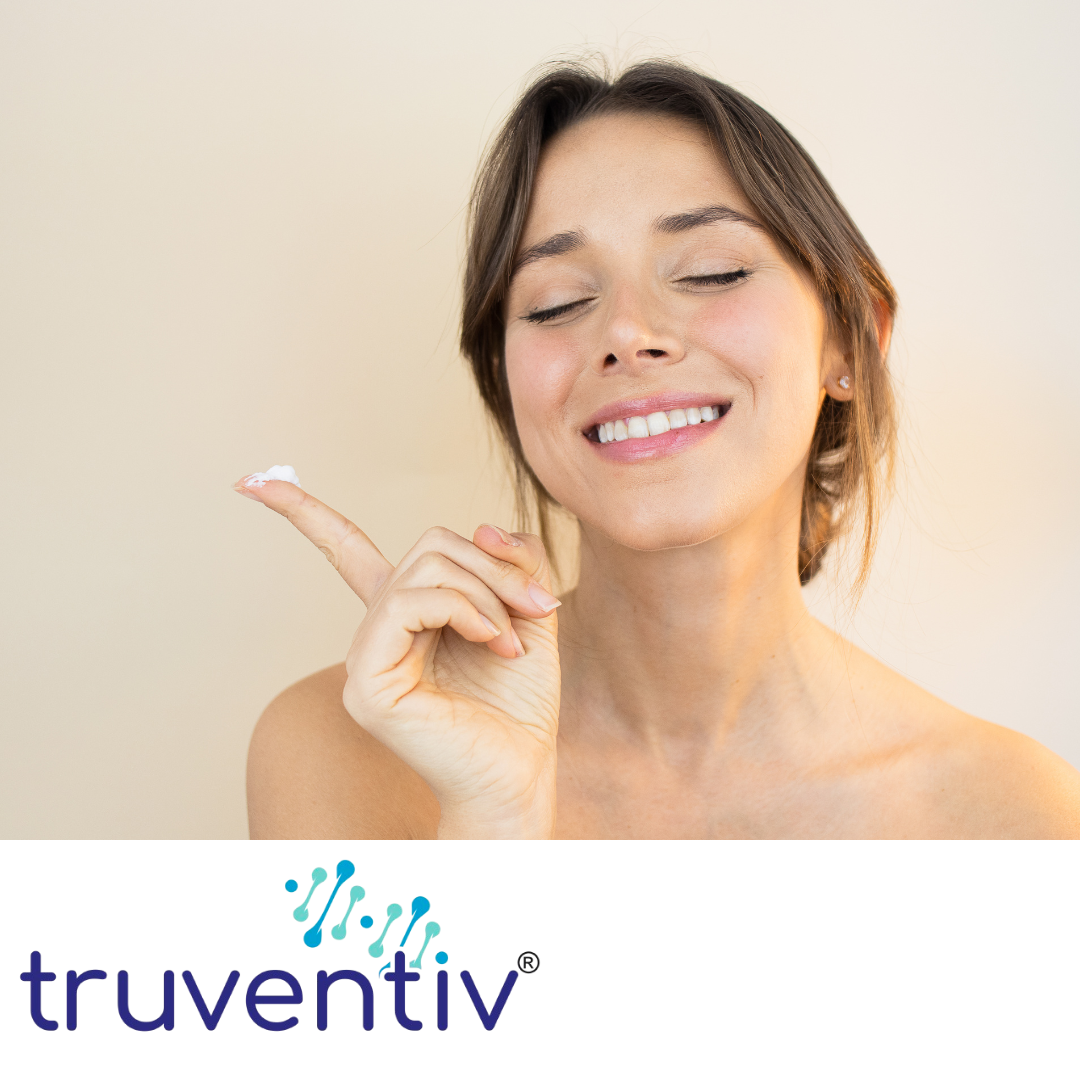
Carbomer is a synthetic polymer often used in skincare products as a thickening agent, stabilizer, and emulsifier. While it doesn't directly provide a "glow" to the skin like active ingredients (such as Vitamin C or hyaluronic acid), it plays an important role in improving the texture, application, and overall effectiveness of many products that contribute to glowing skin.
- Improved Texture and Consistency:
- Carbomer helps to create smooth, gel-like formulations that allow for better application and even distribution of skincare products.
- By improving the consistency of products, carbomer ensures that other active ingredients (like moisturizers, brighteners, or serums) are evenly spread across the skin. This can help them work more effectively in improving skin tone and texture, which contributes to a natural glow.
- Hydration:
- Many skincare products that contain carbomer are formulated to retain moisture in the skin. While carbomer itself doesn't hydrate the skin directly, it helps hold moisture in place by creating a gel-like base. This can lead to plumper, more hydrated skin, which reflects light better and appears naturally glowing.
- Enhanced Stability of Formulations:
- Carbomer ensures that skincare formulations remain stable and consistent over time. This means that products with ingredients that promote glowing skin (like antioxidants or skin brighteners) can remain effective for a longer period without separating or degrading. This ensures you get maximum benefit from those ingredients, leading to better overall skin radiance.
- Controlled Delivery of Active Ingredients:
- By improving the viscosity and texture of a product, carbomer helps in the controlled delivery of active ingredients. For example, products containing exfoliating agents, anti-aging compounds, or skin-brightening ingredients (like Vitamin C, niacinamide, or alpha hydroxy acids) can work more effectively, providing a clearer, more even skin tone that leads to a glowing complexion.
- Non-Greasy Finish:
- Carbomer can create a non-greasy, matte finish in skincare products, making them ideal for oily skin types that still want to maintain hydration and glow without excess shine. This helps give the skin a smooth, soft, and radiant appearance without feeling heavy or oily.
- Light Reflection:
- Because of its ability to form smooth, gel-like layers on the skin, carbomer can help products to reflect light more evenly across the surface of the skin. This can make the skin look more luminous and even in tone, contributing to that desirable "glow."
HOW CARBOMER HELPS IN IMPROVES OVERALL DERMAL HEALTH

Carbomer, while primarily used as a thickening agent, emulsifier, and stabilizer in skincare products, indirectly contributes to overall dermal health by enhancing the delivery and effectiveness of other active ingredients.
- Improves Skin Hydration:
- Water Retention: Carbomer helps to create a gel-like consistency in skincare products that retains water on the skin's surface. This helps lock in moisture, preventing dehydration and maintaining a balanced moisture barrier, which is crucial for healthy skin.
- Prevents Dryness and Flakiness: By retaining moisture in the skin, carbomer helps combat dryness and flakiness, which can disrupt the skin’s natural barrier and lead to irritation or inflammation.
- Supports Skin Barrier Function:
- Carbomer-based formulations often create a protective layer on the skin. This layer can shield the skin from environmental stressors (like pollution or harsh weather), which can otherwise weaken the skin’s natural defenses and contribute to premature aging or irritation.
- By stabilizing other ingredients in the product (like ceramides, fatty acids, or lipids), carbomer helps reinforce the skin barrier, allowing it to better retain moisture and prevent harmful substances from penetrating.
- Improves Product Texture and Application:
- One of carbomer’s key functions is improving the consistency and texture of skincare products. This allows active ingredients to spread evenly across the skin, ensuring better absorption and more effective treatment.
- For example, products designed to deliver hydration, exfoliation, or anti-aging benefits will work better when they have the correct viscosity and texture, which carbomer helps facilitate.
- Enhances Absorption of Active Ingredients:
- By providing a gel base that stays on the skin longer, carbomer helps active ingredients (like antioxidants, retinoids, peptides, and vitamins) to be absorbed more effectively. This means that products that target skin concerns such as aging, acne, or pigmentation can penetrate deeper, leading to improved skin health.
- Soothes and Calms Irritated Skin:
- Carbomer formulations often have a soothing effect, reducing skin irritation or inflammation. This is particularly beneficial for sensitive skin, as it helps balance and calm the skin, contributing to an overall healthier appearance and reducing the risk of flare-ups or exacerbating conditions like eczema or rosacea.
- Protects Against External Aggressors:
- The gel-like consistency of carbomer in skincare products can form a thin barrier on the skin, protecting it from harmful external aggressors such as pollution, UV rays, or harsh weather. While carbomer itself doesn’t have active protection against UV rays, it can help other ingredients in sunscreen or protective moisturizers work more effectively by stabilizing them.
- Long-lasting Effects:
- Carbomer enhances the stability and longevity of products. This ensures that the active ingredients maintain their effectiveness over time, providing consistent benefits to the skin. Regular use of well-formulated products can lead to sustained improvements in skin health, such as reduced signs of aging or better skin texture.
- Non-Irritating and Safe for Sensitive Skin:
- Carbomer is generally considered safe for sensitive skin types. It is a mild ingredient that doesn’t typically cause irritation, making it suitable for individuals with conditions like acne, rosacea, or eczema. This makes it an excellent choice for improving overall dermal health without exacerbating existing skin issues.
HOW CARBOMER HELPS IN ANTI-INFLAMMATION, ANTI-BACTERIAL, ANTI SEPTIC
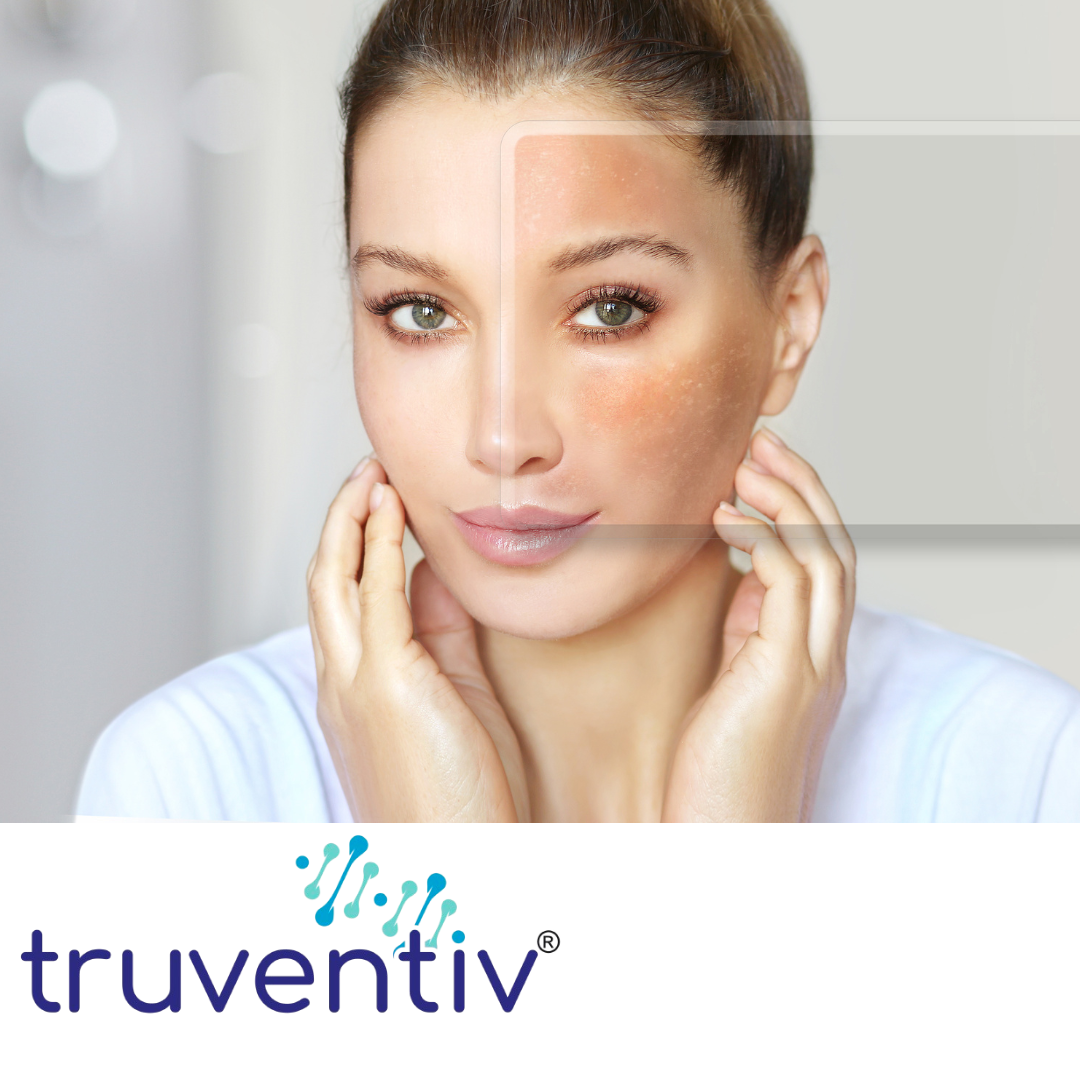
Carbomer itself is not inherently anti-inflammatory, anti-bacterial, or anti-septic. However, it plays an important supporting role in formulations that contain active ingredients with these properties.
- Anti-Inflammatory Support:
- Improved Ingredient Delivery: Carbomer is commonly used as a thickening agent and stabilizer in gels and creams. It helps to evenly distribute and retain ingredients with anti-inflammatory properties, such as aloe vera, chamomile extract, or turmeric, allowing these ingredients to stay in contact with the skin longer. This enhances the soothing and calming effects of such active ingredients, reducing skin redness, irritation, or swelling.
- Hydration and Barrier Protection: Inflammation is often exacerbated by dryness or dehydration in the skin. By improving hydration and creating a protective barrier, carbomer helps reduce the irritation that leads to inflammation. This is especially helpful in inflammatory skin conditions like acne, eczema, or psoriasis.
- Anti-Bacterial Benefits:
- Supporting Active Ingredients: Many skincare formulations that target acne or other skin conditions that involve bacteria rely on ingredients like tea tree oil, salicylic acid, or benzoyl peroxide. Carbomer helps these ingredients remain stable and evenly distributed in the product, ensuring their effectiveness when applied to the skin. These active ingredients work by killing or inhibiting the growth of bacteria, such as Propionibacterium acnes (the bacteria associated with acne).
- Gel and Cream Base: The gel-like consistency of carbomer-based products also helps prevent the quick evaporation of active antibacterial ingredients, allowing them to remain on the skin longer for better antibacterial action. This can be particularly beneficial for products intended to treat acne or prevent infection in minor cuts or abrasions.
- Anti-Septic Effects:
- Stabilizing Antiseptic Agents: Carbomer is often used in formulations that include antiseptic agents like hydrogen peroxide, iodine, or alcohol. These ingredients help cleanse the skin and prevent infections. Carbomer ensures that these active ingredients stay stable and evenly distributed, allowing them to effectively target bacteria and germs that may cause infections or irritation.
- Enhanced Skin Protection: By creating a barrier on the skin, carbomer also helps protect the skin from further contamination or exposure to harmful microbes after the antiseptic agent is applied. It can act as a “sealant,” preventing bacteria or other pathogens from re-entering the treated area while the antiseptic agent does its job.
- Stabilizing and Enhancing the Effectiveness of Formulations:
- Carbomer helps to stabilize the formulation of products that contain anti-inflammatory, anti-bacterial, or antiseptic agents. By keeping these ingredients well-mixed and at their optimal concentration, carbomer ensures that the product works efficiently. This is especially important for formulations that target specific skin conditions like acne, cuts, or burns, where both bacterial control and inflammation reduction are crucial.
- Controlled Release of Ingredients: Carbomer can also contribute to the controlled release of active ingredients. This allows the active ingredients with anti-inflammatory, anti-bacterial, or antiseptic properties to work over a longer period, ensuring that the skin gets continuous treatment and reducing the risk of further irritation or infection.
HOW CARBOMER HELPS IN REDUCES REDNESS & BLEMISHES
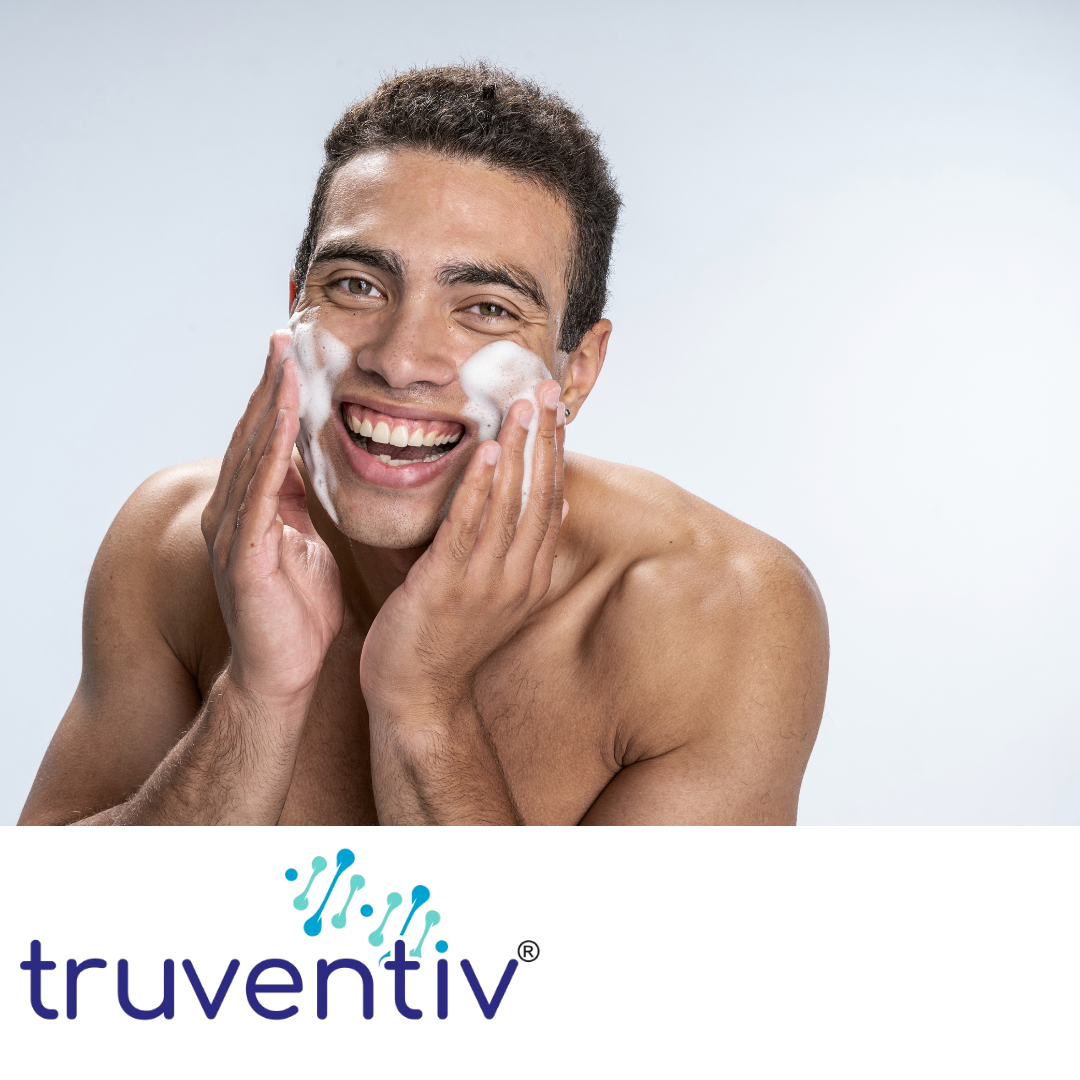
Carbomer itself does not directly reduce redness or blemishes; however, it plays a significant role in enhancing the effectiveness of other ingredients that target these skin concerns.
- Improves Product Texture and Application:
- Smoothing and Even Distribution: Carbomer is a thickening agent that helps give skincare products a smooth, gel-like consistency. This allows products to be easily applied and evenly spread across the skin. When combined with active ingredients that target redness and blemishes, such as anti-inflammatory agents (like chamomile, aloe vera, or niacinamide), carbomer ensures these ingredients cover the skin evenly and stay in place for longer, allowing them to work more effectively.
- Supports Anti-Inflammatory Ingredients:
- Enhanced Absorption: Many of the active ingredients that reduce redness and irritation (such as aloe vera, licorice extract, or green tea) need to be delivered to the skin effectively to have a calming and anti-inflammatory effect. Carbomer helps to stabilize these ingredients and allows them to be evenly distributed and absorbed into the skin. This enhanced absorption helps to calm redness and soothe inflamed areas, leading to less visible irritation and fewer blemishes.
- Calming Effect: By helping to keep anti-inflammatory ingredients on the skin longer, carbomer contributes to reducing inflammation, which is a common cause of redness. For instance, it works well in soothing formulations that include ingredients like calendula or centella asiatica, which help reduce irritation, puffiness, and redness associated with conditions like acne or rosacea.
- Hydration and Skin Barrier Protection:
- Moisture Retention: Carbomer is a humectant that helps products retain moisture, which is vital in keeping the skin's barrier healthy. A compromised skin barrier can lead to increased redness, irritation, and the formation of blemishes. By maintaining hydration, carbomer helps keep the skin smooth and plump, which can minimize the appearance of redness and prevent new blemishes from forming.
- Protective Barrier: Carbomer also helps form a lightweight, protective barrier on the skin. This barrier can shield the skin from external irritants or environmental stressors that may exacerbate redness or cause new blemishes to develop.
- Helps Stabilize Active Ingredients:
- Even Distribution of Blemish-Fighting Ingredients: Ingredients like salicylic acid, benzoyl peroxide, or niacinamide are commonly used to treat blemishes, but they need to be delivered in a stable and effective manner. Carbomer helps stabilize these active ingredients in gel or cream formulations, ensuring they are evenly distributed across the skin and able to work more efficiently to target blemishes and redness.
- Slow Release: Carbomer’s gel-like consistency helps control the release of these active ingredients. By keeping them in contact with the skin for a longer period, it allows for a more gradual and sustained effect, which can lead to a reduction in blemishes and redness over time.
- Prevents Further Irritation:
- Non-Irritating Nature: Carbomer is a gentle, non-irritating ingredient that is suitable for sensitive skin. It doesn’t cause redness or irritation itself, making it a good choice for products intended to calm the skin. By helping stabilize and enhance soothing formulas, carbomer helps to reduce the chances of new redness or irritation developing as a result of using the product.
- Calms Existing Redness: Many products with carbomer help reduce existing redness by promoting the healing of irritated skin and keeping it moisturized and protected. This is especially useful for individuals dealing with redness due to acne, rosacea, or post-inflammatory hyperpigmentation.
- Enhanced Effectiveness of Brightening Agents:
- Even Skin Tone: Carbomer can be part of products containing brightening ingredients like Vitamin C, niacinamide, or licorice extract. These ingredients help to even out skin tone and reduce the appearance of dark spots and blemishes. Carbomer’s stabilizing effect ensures that these active ingredients remain effective and are evenly applied, leading to a reduction in blemishes and an overall brighter, more even complexion.
HOW CARBOMER HELPS IN CALMS SKIN CONDITIONS LIKE ECZEMA, ROSACEA & PSORIASIS
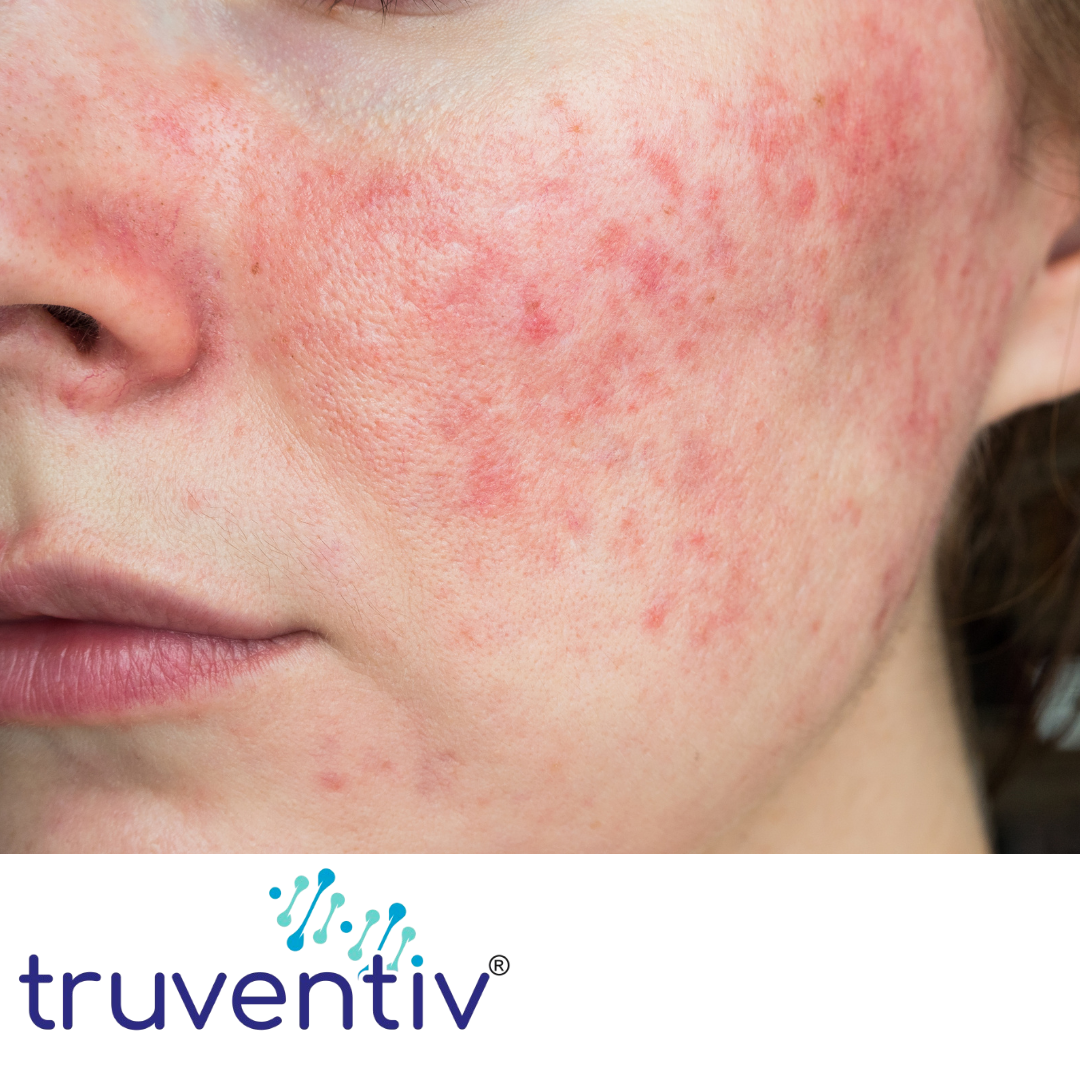
Carbomer, although not an active treatment for conditions like eczema, rosacea, or psoriasis, plays a supportive role in calming and managing these skin conditions by enhancing the effectiveness of the active ingredients in skincare formulations.
- Hydration and Moisture Retention:
- Prevents Dryness: Carbomer helps retain moisture in the skin by forming a gel-like consistency in creams and lotions. Dry, cracked skin is a common symptom of conditions like eczema, psoriasis, and rosacea, and maintaining skin hydration is key to managing these conditions. By locking in moisture, carbomer helps soothe dry patches, reduce flakiness, and support the healing process.
- Supports Skin Barrier: A strong skin barrier is crucial for protecting against irritants and maintaining hydration. Carbomer contributes to creating a protective layer that helps keep moisture in while preventing environmental stressors from aggravating the skin. For conditions like eczema and psoriasis, which involve a compromised skin barrier, carbomer’s ability to help maintain hydration and reinforce the barrier can improve skin health and reduce flare-ups.
- Soothing and Calming Effect:
- Enhances Anti-Inflammatory Ingredients: Carbomer is often used in formulations that contain anti-inflammatory ingredients like aloe vera, chamomile, or calendula. These ingredients help calm irritated, inflamed skin. Carbomer ensures that these soothing agents are evenly distributed and remain in contact with the skin for longer, allowing them to be more effective in reducing redness, swelling, and discomfort associated with eczema, rosacea, and psoriasis.
- Reduces Irritation: Inflammatory skin conditions often result in redness, itching, and irritation. Carbomer-based formulations help minimize irritation by allowing anti-inflammatory ingredients to penetrate the skin and provide relief. The gel or cream consistency helps prevent further rubbing or friction, which can exacerbate irritation.
- Supports Healing and Skin Regeneration:
- Barrier Protection: For conditions like eczema or psoriasis, skin healing is a priority. Carbomer creates a protective barrier on the skin’s surface, shielding it from potential irritants while keeping active ingredients like corticosteroids, retinoids, or hydrocortisone in contact with the skin longer. This allows the ingredients to work effectively and promotes faster healing of inflamed or damaged skin.
- Prevents Infection: Carbomer is often used in formulations that include antiseptic or antibacterial agents. By stabilizing and enhancing the effectiveness of these ingredients, carbomer helps prevent secondary bacterial infections, which are common in conditions like eczema or psoriasis due to open, broken skin.
- Non-Irritating and Gentle:
- Suitable for Sensitive Skin: Carbomer itself is non-irritating and gentle, making it suitable for sensitive skin prone to flare-ups, such as in rosacea or eczema. It does not cause further irritation or sensitivity, which is important when dealing with already inflamed or reactive skin.
- Safe for Long-Term Use: Carbomer is commonly used in formulations designed for daily use, especially for conditions that require long-term management like eczema, rosacea, or psoriasis. Its gentle nature ensures that these products can be used regularly without causing further irritation.
- Enhanced Effectiveness of Other Active Ingredients:
- Improves Delivery: Carbomer helps deliver key active ingredients (such as corticosteroids, ceramides, or moisturizing agents like glycerin or hyaluronic acid) more effectively by ensuring they are evenly distributed and remain stable in the formula. This allows for better absorption of these beneficial ingredients, improving their effectiveness in treating eczema, rosacea, or psoriasis.
- Controlled Release: Carbomer can create a gel or cream base that releases active ingredients slowly and steadily over time. This controlled release helps maintain the therapeutic effects of the product for longer periods, providing ongoing relief for symptoms like itching, inflammation, and redness.
- Improves Skin Texture and Appearance:
- Smoother Application: Carbomer improves the texture and consistency of skincare products, making them easier to apply without tugging or irritating the skin. For people with sensitive skin conditions like rosacea or psoriasis, a smoother application reduces the risk of further irritation.
- Even Skin Coverage: Carbomer helps ensure that the product spreads evenly across the skin, preventing uneven coverage that could leave certain areas untreated. This is important for managing flare-ups, especially with conditions like eczema, where the skin can become very patchy and uneven in texture.
HOW CARBOMER HELPS IN ANTI-ACNE & PIMPLE
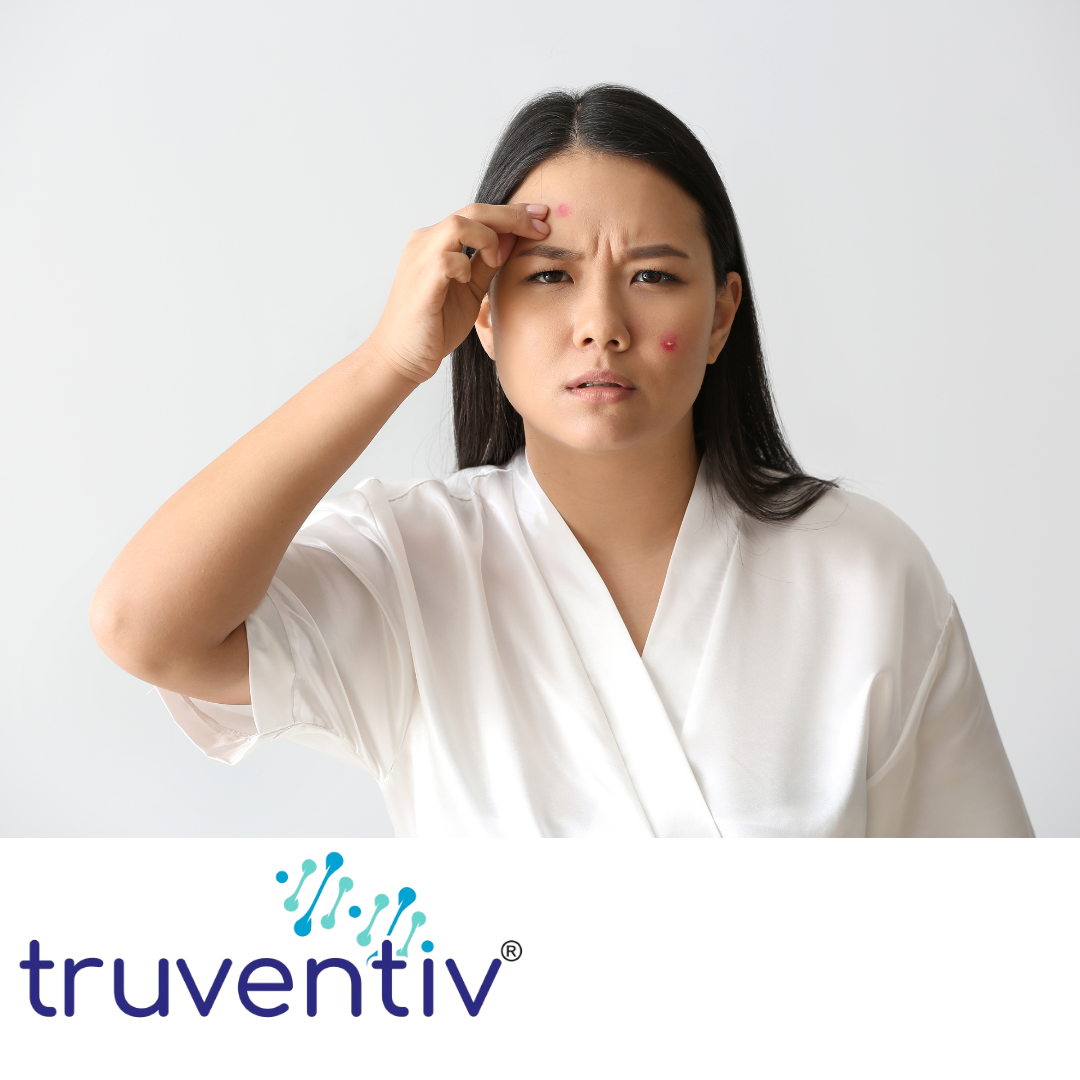
Carbomer is not an active acne-fighting ingredient, but it plays an important supporting role in acne treatment by enhancing the stability, texture, and effectiveness of acne-targeting skincare products.
- Improves Product Texture and Application:
- Smooth and Even Application: Carbomer is a thickening agent that gives products a gel-like texture. This makes it easier to apply acne treatments evenly across the skin, ensuring that active ingredients (like salicylic acid, benzoyl peroxide, or tea tree oil) are spread evenly on the affected areas. Even distribution helps these ingredients work more effectively in targeting acne and pimples.
- Non-Greasy Finish: Many acne treatments need to have a non-greasy or matte finish, especially for people with oily or acne-prone skin. Carbomer helps achieve this by creating a gel-like texture that doesn’t leave a heavy or oily residue on the skin, which can potentially worsen acne or clog pores.
- Enhances Delivery of Active Ingredients:
- Stabilizing Active Ingredients: Carbomer helps stabilize acne-fighting ingredients like salicylic acid, benzoyl peroxide, or retinoids, ensuring that these ingredients remain effective and don't degrade over time. By maintaining the integrity of these active ingredients, carbomer ensures that acne treatments work consistently and provide the intended benefits.
- Controlled Release: Carbomer can help control the release of active ingredients. In acne treatments, this means that acne-fighting compounds are gradually and evenly applied to the skin, allowing for sustained action on the acne-causing bacteria, inflammation, and clogged pores.
- Soothes and Calms Skin:
- Reducing Irritation: Acne treatments, especially those with active ingredients like benzoyl peroxide or salicylic acid, can sometimes cause dryness, irritation, or peeling. Carbomer helps to mitigate this by ensuring a smooth, easy application that prevents excessive rubbing or tugging on sensitive skin. Additionally, carbomer-based products often incorporate soothing ingredients, which can help calm inflamed acne-prone skin.
- Moisturizing: While carbomer itself is not a moisturizer, it helps create a gel-based texture that can help trap moisture in the skin. This is important for acne-prone skin, as proper hydration helps prevent the skin from becoming overly dry and irritated, which can sometimes exacerbate acne.
- Creates a Protective Barrier:
- Barrier Against Irritants: Carbomer helps create a thin, protective layer on the skin's surface. This can help shield the skin from environmental pollutants, dirt, and other irritants that might worsen acne. This barrier also keeps acne treatments on the skin longer, giving active ingredients more time to penetrate and work effectively.
- Helps Prevent Further Breakouts: By forming a barrier and allowing other acne treatment ingredients to be more effective, carbomer helps prevent new acne from forming. The barrier can also reduce the chances of other irritants aggravating the skin, which might lead to more pimples or acne.
- Improves Absorption of Acne Ingredients:
- Maximizing Effectiveness: Carbomer ensures that acne treatment ingredients are evenly distributed across the skin and are not prematurely absorbed into the product. This ensures that the active ingredients like salicylic acid or retinoids stay on the surface of the skin for longer periods, allowing them to penetrate pores and address the root causes of acne—such as clogged pores, bacteria, and excess oil.
- Non-Irritating Nature:
- Gentle for Sensitive Skin: Carbomer is generally non-irritating, which makes it suitable for sensitive skin that is prone to acne. Unlike some other thickening agents, carbomer is mild and helps prevent additional irritation or breakouts. It works well in formulations meant for acne-prone skin, ensuring that the product doesn’t exacerbate redness, dryness, or sensitivity.
- Prevents Excessive Oiliness:
- Matte Effect: Carbomer-based products help control oil production and reduce shine, which is beneficial for those with oily or combination skin prone to acne. By preventing excess oil from sitting on the surface of the skin, carbomer helps reduce the likelihood of clogged pores, which are a key factor in the development of acne.
HOW ALLANTOIN HELPS IN FOR NATURAL GLOWING SKIN
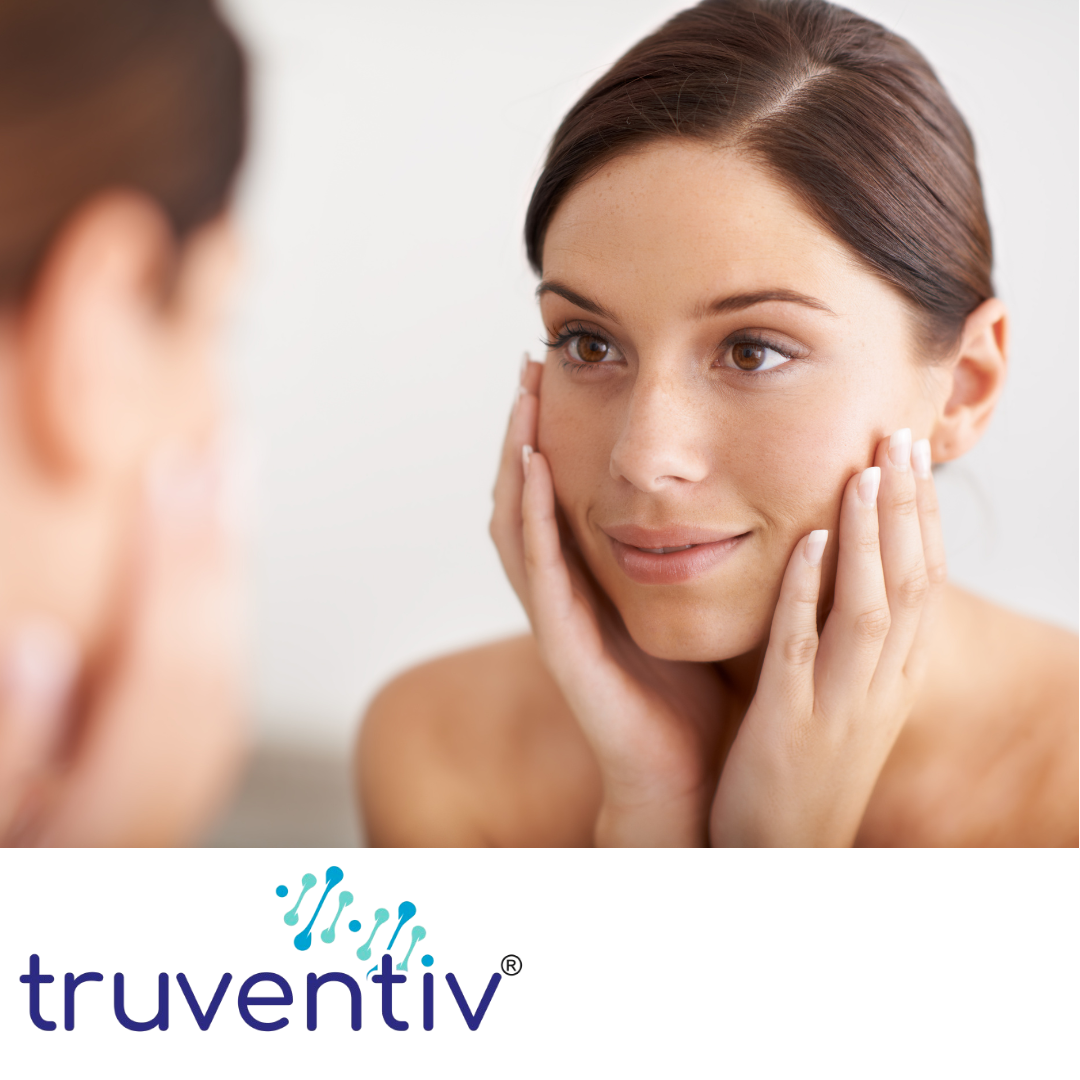
Allantoin is a naturally occurring compound that is widely used in skincare products for its soothing, healing, and moisturizing properties. It helps in achieving a natural, glowing complexion by supporting various aspects of skin health.
- Promotes Skin Hydration:
- Moisture Retention: Allantoin has humectant properties, meaning it draws moisture from the environment into the skin and helps retain it. Well-hydrated skin looks plump, smooth, and radiant, contributing to a natural glow. Allantoin helps to keep the skin moisturized without making it greasy, making it ideal for all skin types, including oily and acne-prone skin.
- Prevents Dryness and Flakiness: By preventing moisture loss, allantoin helps keep the skin soft and prevents the dry, flaky patches that can make the skin look dull and uneven. This is crucial for maintaining a smooth texture that reflects light more evenly, contributing to a healthy glow.
- Soothes and Calms the Skin:
- Reduces Redness and Irritation: Allantoin has anti-inflammatory properties that help calm irritated, inflamed, or sensitive skin. It is often included in formulations designed for sensitive or reactive skin, such as products for rosacea or eczema. By reducing redness and irritation, allantoin helps the skin look more even-toned and clear, which contributes to a more radiant complexion.
- Calms Sunburn or Over-Exposed Skin: If your skin is irritated from sun exposure or environmental stressors, allantoin helps soothe the skin and promote faster healing. Calmer, healthier skin naturally appears more glowing and less inflamed.
- Enhances Skin Regeneration and Healing:
- Supports Skin Repair: Allantoin accelerates the skin’s natural healing processes, helping to repair damaged or compromised skin. This is particularly beneficial for recovering from blemishes, acne scars, or minor cuts. As your skin heals and regenerates more efficiently, you can achieve a smoother, more even skin tone, which naturally contributes to a glowing appearance.
- Faster Skin Cell Turnover: Allantoin encourages the production of new skin cells and helps exfoliate the skin by removing dead skin cells. This promotes a fresh, vibrant complexion by allowing newer, healthier skin cells to surface more quickly. A regular turnover of skin cells helps to keep the skin looking youthful and glowing.
- Improves Skin Texture:
- Smooths the Skin: By promoting hydration and healing, allantoin helps smooth the skin’s surface. As the skin’s texture improves and rough patches are diminished, the skin becomes more reflective, giving it a natural radiance. A smoother surface also allows light to reflect off the skin more evenly, enhancing the overall glow.
- Reduces the Appearance of Blemishes: Because allantoin promotes cell regeneration and helps soothe irritation, it can also help reduce the appearance of blemishes, dark spots, and acne scars. This evenness in skin tone leads to a more luminous complexion.
- Gentle on the Skin:
- Ideal for Sensitive Skin: Allantoin is gentle and non-irritating, which makes it a great ingredient for sensitive skin or skin that may react to other active ingredients. It doesn’t strip the skin or cause sensitivity, making it suitable for those who have trouble with products that may cause redness or discomfort. A calm, balanced skin barrier is key to maintaining a healthy glow.
- Balances Oil Production:
- Controls Oil While Hydrating: Allantoin helps regulate oil production by maintaining the skin’s hydration levels without over-moisturizing. This is especially beneficial for those with combination or oily skin, as it can provide the necessary moisture while preventing excess shine. Well-balanced skin has a more radiant, natural glow.
- Enhances the Effectiveness of Other Ingredients:
- Works Well with Other Active Ingredients: Allantoin pairs well with other ingredients like vitamins (A, C, E), hyaluronic acid, and antioxidants. These ingredients are commonly used to brighten, hydrate, and improve the overall skin tone. Allantoin helps to calm the skin and improve the absorption of these beneficial ingredients, leading to more effective and enhanced results that contribute to glowing, youthful-looking skin.
HOW ALLANTOIN HELPS IN IMPROVES OVERALL DERMAL HEALTH
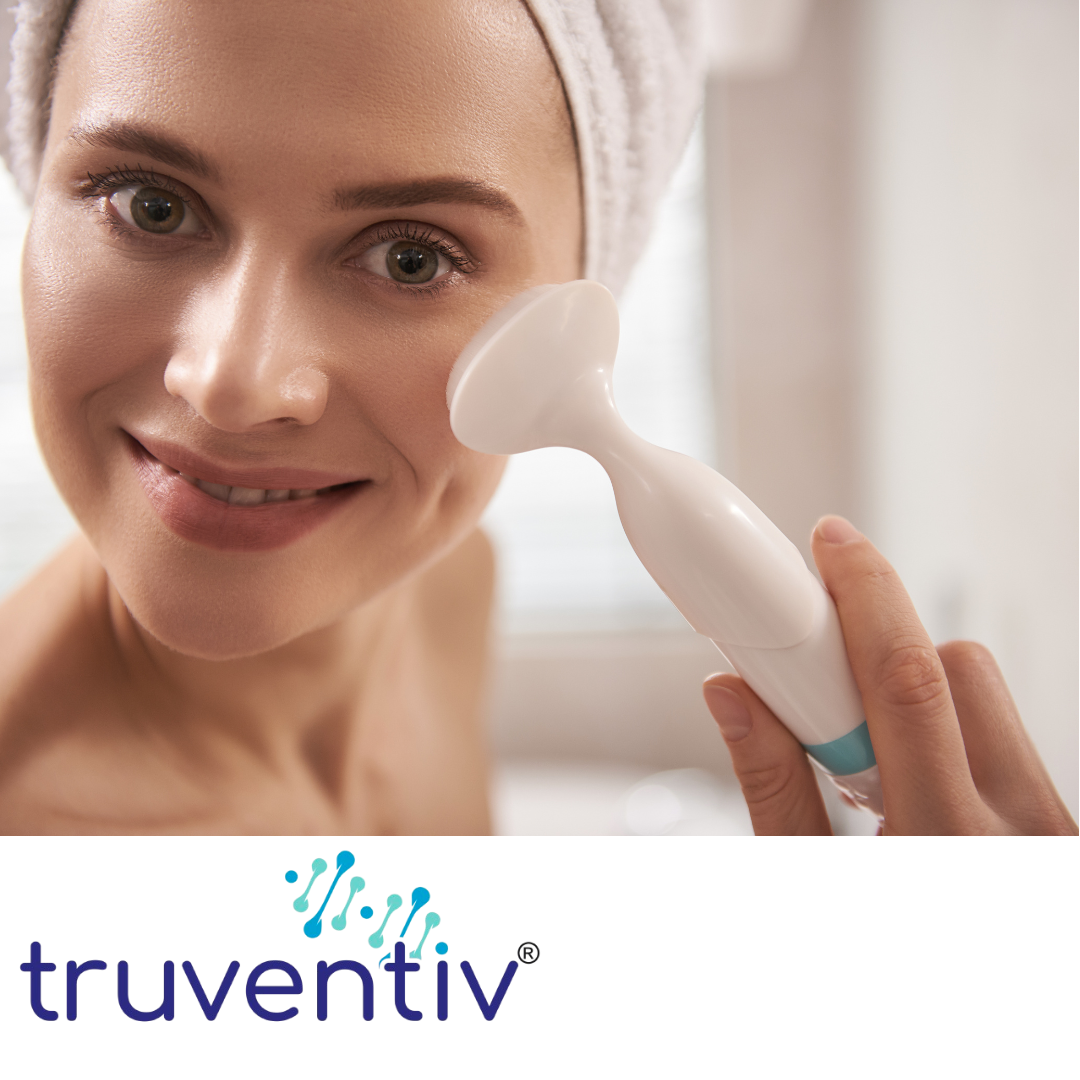
Allantoin is a highly effective ingredient that supports overall dermal (skin) health in multiple ways. Its soothing, healing, and moisturizing properties make it an ideal addition to skincare routines designed to improve the skin's structure, function, and appearance.
- Promotes Skin Hydration and Moisture Retention:
- Hydration Booster: Allantoin acts as a humectant, drawing moisture into the skin from the environment and helping it retain water. Proper hydration is crucial for healthy skin as it keeps the skin barrier intact, prevents dryness, and promotes a plump, smooth complexion.
- Prevents Dehydration: Dry skin can lead to issues like irritation, dullness, and premature aging. Allantoin helps prevent moisture loss, ensuring that skin remains hydrated and soft. This contributes to maintaining the skin’s natural elasticity and smooth texture.
- Soothes Irritated and Sensitive Skin:
- Reduces Redness and Inflammation: Allantoin has anti-inflammatory properties that help calm and soothe irritated skin. Whether the irritation is caused by acne, sunburn, or environmental stressors, allantoin helps reduce swelling and redness, promoting skin comfort and a balanced complexion.
- Ideal for Sensitive Skin: Because it’s gentle, allantoin is particularly beneficial for sensitive skin. It can be used in formulations for conditions like rosacea, eczema, or allergic reactions, helping to soothe flare-ups and reduce the risk of further irritation, which is essential for overall skin health.
- Supports Skin Repair and Regeneration:
- Stimulates Cell Turnover: Allantoin promotes cell regeneration, helping to speed up the process of replacing damaged skin cells with new, healthy ones. This process is vital for maintaining fresh, youthful skin and for healing wounds or blemishes.
- Accelerates Healing: When the skin is damaged, whether from acne, cuts, burns, or sun exposure, allantoin helps speed up the healing process. It supports tissue regeneration, reduces scarring, and helps restore the skin's integrity and appearance.
- Improves Skin Texture:
- Smoothens Skin Surface: By promoting exfoliation and cell turnover, allantoin helps to remove dead skin cells from the surface. This leads to a smoother skin texture, reducing roughness, flakiness, and uneven patches, which can all impact the overall appearance of the skin.
- Reduces the Appearance of Scars and Blemishes: Allantoin helps with the regeneration of skin cells and the healing of minor skin injuries or blemishes, such as acne scars. Its ability to promote healthier skin turnover contributes to reducing the visibility of scars and promoting a more even skin tone.
- Supports the Skin Barrier Function:
- Strengthens the Skin's Natural Defense: The skin’s barrier is crucial for protecting against environmental aggressors like pollution, UV radiation, and harmful bacteria. Allantoin helps maintain the integrity of the skin barrier by keeping the skin hydrated and reducing irritation. A strong skin barrier is essential for preventing moisture loss, sensitivity, and inflammation.
- Restores the Barrier in Compromised Skin: For skin suffering from conditions like eczema or psoriasis, allantoin supports the healing and restoration of the skin barrier, which is often damaged or weakened. By doing so, it helps prevent further irritation and maintains overall skin health.
- Non-Irritating and Gentle:
- Ideal for Long-Term Use: Allantoin is known for being non-irritating, which means it can be used daily without causing harm to the skin. This makes it suitable for people with sensitive or reactive skin, allowing it to be included in long-term skincare routines aimed at maintaining optimal skin health.
- Calms Skin After Harsh Treatments: For individuals using stronger treatments like exfoliating acids, retinoids, or acne medications, allantoin can help calm the skin and reduce potential side effects like redness, burning, or peeling. This makes it a great companion to more intense skincare products, promoting overall skin health without causing discomfort.
- Promotes Even Skin Tone:
- Reduces Hyperpigmentation: By encouraging cell regeneration, allantoin can help reduce dark spots or hyperpigmentation caused by acne scars, sun damage, or inflammation. As the skin renews itself, it helps lighten uneven pigmentation, contributing to a more uniform skin tone.
- Brighter Complexion: A healthy, well-hydrated skin barrier and faster cell turnover contribute to a brighter, more radiant complexion. Allantoin’s moisturizing and regenerative properties promote a healthier skin appearance, making the skin look naturally glowing and even-toned.
- Antioxidant Protection:
- Defends Against Free Radical Damage: Although allantoin is not a potent antioxidant itself, its presence in skincare formulations can help support other antioxidant ingredients, such as vitamins C and E, to work more effectively. By supporting the skin’s overall health, allantoin helps protect against oxidative stress and premature aging caused by free radicals.
- Helps Maintain Skin Elasticity:
- Promotes Firmness: Well-hydrated and smooth skin retains its elasticity, contributing to a firmer and more youthful appearance. Allantoin helps improve skin elasticity by maintaining hydration and supporting the skin’s regeneration process, which keeps the skin plump and firm over time.
HOW ALLANTOIN HELPS IN ANTI-INFLAMMATION, ANTI-BACTERIAL, ANTI SEPTIC
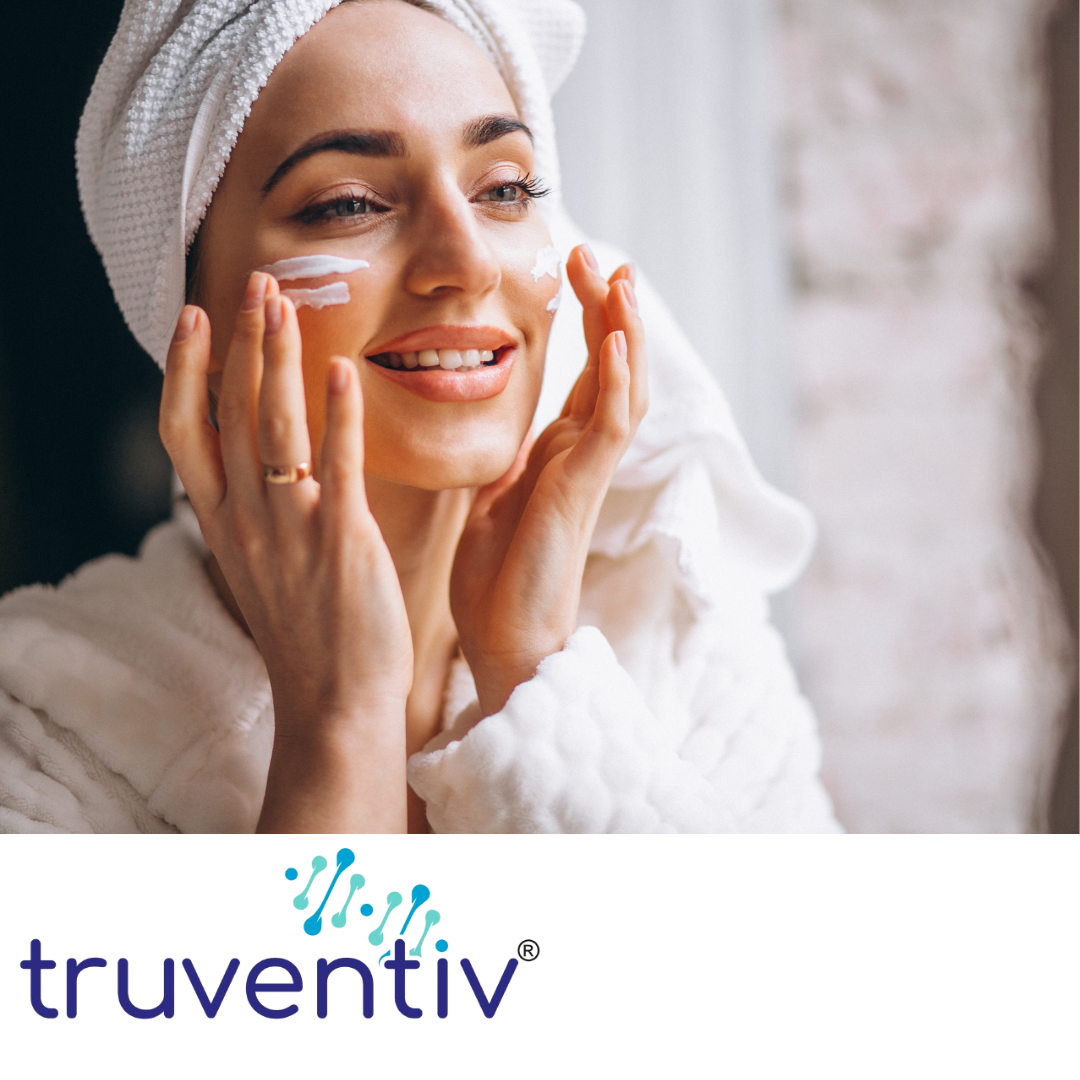
Allantoin is widely recognized for its skin-soothing and healing properties, and it also plays a role in reducing inflammation, fighting bacteria, and acting as a mild antiseptic. While it is not a strong antibacterial or antiseptic agent by itself, its support in inflammation and wound healing makes it beneficial in these contexts.
- Anti-Inflammatory Properties:
- Soothes Skin Irritation: Allantoin has a calming effect on the skin, which is particularly helpful for conditions that cause inflammation, such as acne, rosacea, eczema, or sunburn. It works by reducing the production of inflammatory mediators in the skin, which helps to calm redness, swelling, and irritation. This makes it effective in preventing or minimizing the discomfort and visible signs of inflammation.
- Prevents Skin Redness and Swelling: Inflammation in the skin often results in redness and puffiness, which can make the skin appear irritated or sensitive. Allantoin helps to reduce this redness and swelling by promoting a healthy inflammatory response, allowing the skin to recover and return to its normal appearance more quickly.
- Supports Healing: By soothing the skin and reducing inflammation, allantoin promotes faster healing. For example, after acne lesions or minor cuts, allantoin helps reduce swelling, which accelerates recovery and minimizes the risk of further irritation or scarring.
- Anti-Bacterial Support:
- Helps Protect Against Bacterial Infections: While allantoin itself is not a direct antibacterial agent, it has an indirect role in reducing the risk of bacterial infections. It does this by keeping the skin hydrated, promoting a healthy skin barrier, and reducing cracks or lesions that could otherwise be vulnerable to bacteria. Well-moisturized and intact skin is less likely to harbor harmful bacteria, reducing the risk of infection.
- Encourages Skin Healing: In cases of acne or minor wounds, bacteria can cause additional irritation or complications. Allantoin’s ability to heal and regenerate skin cells helps prevent the buildup of bacteria in open skin, allowing the skin to recover faster and reduce the chances of secondary bacterial infections.
- Works Well in Acne Treatments: Since acne is partly caused by bacterial growth in clogged pores, allantoin helps support the healing process of acne lesions, reducing inflammation and allowing the skin to recover. This helps prevent bacterial proliferation in acne-prone areas, speeding up the healing of existing pimples while minimizing future breakouts.
- Antiseptic Properties:
- Promotes Wound Healing: Allantoin has mild antiseptic properties that can assist in the healing of minor cuts, scrapes, and abrasions. By encouraging tissue regeneration and preventing further irritation or damage, allantoin helps keep the skin clean and protected during the healing process, preventing infection.
- Creates a Protective Barrier: When applied to the skin, allantoin forms a protective layer that helps shield the skin from external irritants and harmful bacteria. This barrier function helps keep the skin clean and prevents contaminants from entering any open wounds or sensitive areas.
- Minimizes Scarring: Allantoin’s regenerative properties help accelerate the skin’s natural repair processes, which is especially important in wound healing. By encouraging healthy skin regeneration and preventing infection, allantoin contributes to faster, cleaner healing and can reduce the appearance of scarring, particularly from acne or minor injuries.
- Supports the Skin’s Natural Defense Mechanisms:
- Boosts Skin Immunity: Allantoin helps support the skin’s overall health, including its natural defense mechanisms. It enhances the skin’s ability to resist external stressors, pollutants, and pathogens that can cause inflammation or infection. By maintaining a healthy skin barrier, allantoin indirectly helps the skin ward off bacteria and other harmful microorganisms.
- Reduces Irritation from Harsh Ingredients: Allantoin can counteract the irritation caused by other active ingredients, especially in formulations designed to fight acne or other skin conditions that involve inflammation. It can help soothe the skin and restore balance, preventing further irritation and bacterial imbalances.
- Helps with Skin Conditions Prone to Inflammation and Infection:
- Acne: Acne often involves both inflammation and bacterial infection. Allantoin’s soothing and healing properties help reduce the inflammation and redness associated with acne while encouraging the healing of breakouts, preventing the growth of bacteria in the affected areas.
- Eczema and Psoriasis: These conditions involve chronic inflammation of the skin and can result in cracked, broken skin, which is more prone to bacterial infections. Allantoin can help calm the inflammation, repair the skin barrier, and reduce the chances of infection, providing relief to individuals suffering from these conditions.
- Minor Cuts and Scrapes: When the skin is broken, it’s more susceptible to infection. Allantoin’s antiseptic properties help protect the skin during the healing process, preventing infection while encouraging faster recovery.
HOW ALLANTOIN HELPS IN REDUCES REDNESS & BLEMISHES
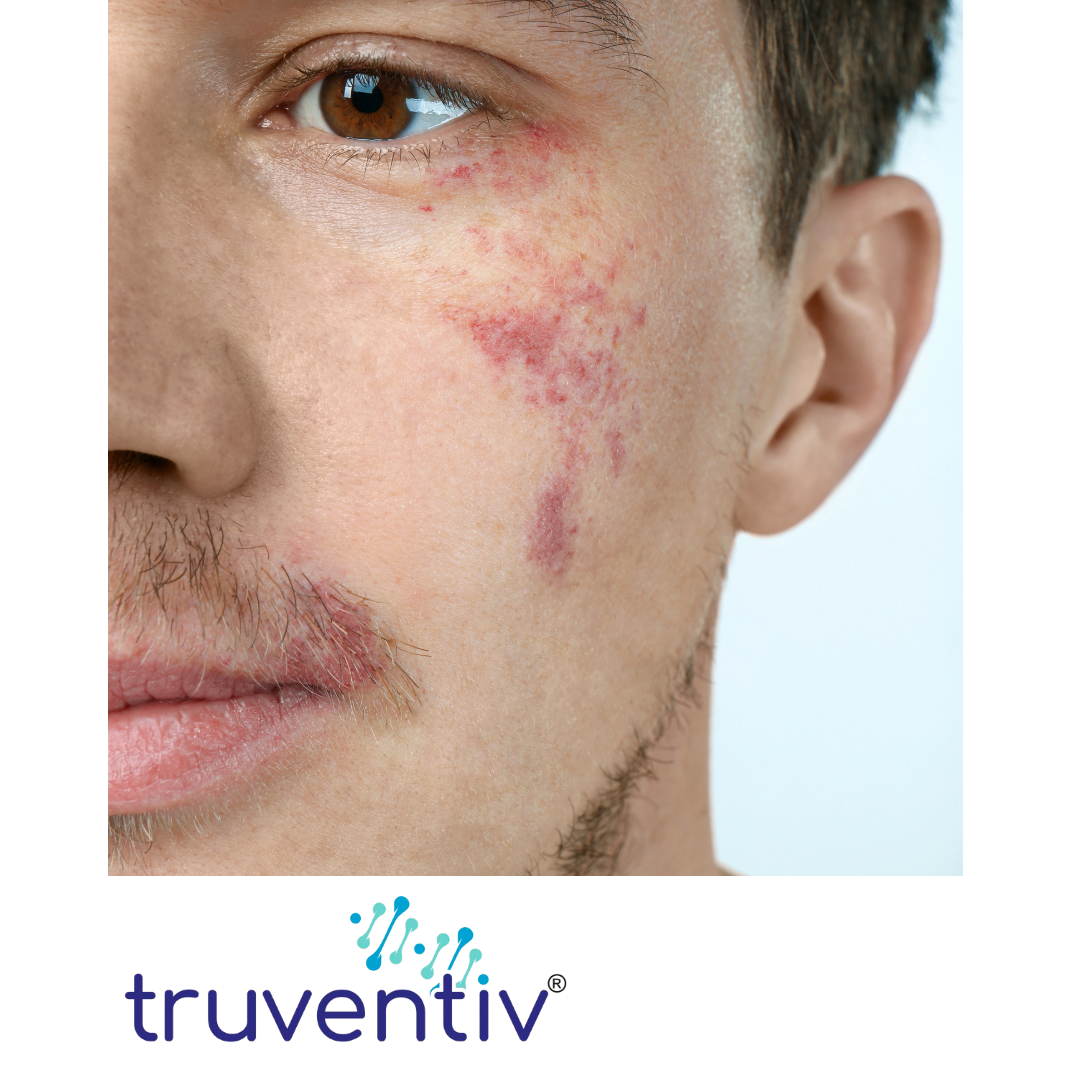
Allantoin is a versatile and effective skincare ingredient that helps reduce redness and blemishes, making it particularly beneficial for those with sensitive, irritated, or acne-prone skin.
- Soothes Inflammation and Reduces Redness:
- Anti-Inflammatory Action: One of allantoin’s primary benefits is its anti-inflammatory properties. It helps calm irritated skin by reducing the inflammation that often leads to redness. Whether the redness is caused by acne, sunburn, rosacea, or other skin conditions, allantoin soothes the skin and reduces visible redness, promoting a more even skin tone.
- Calms Irritated Skin: Redness often arises from irritation due to harsh skincare treatments, environmental stressors, or skin conditions. Allantoin helps to calm and soothe the skin, reducing irritation and preventing the redness from spreading. This makes it especially beneficial for sensitive skin or skin that reacts easily to external factors.
- Supports Skin Regeneration and Healing:
- Accelerates Healing of Blemishes: Allantoin promotes the regeneration of skin cells, which helps speed up the healing process of blemishes, acne spots, or other skin imperfections. As the skin heals faster, redness from inflammation or post-acne marks is reduced, leading to clearer, more even-toned skin.
- Helps Diminish Acne Scars: Blemishes caused by acne can leave behind dark spots or scars. Allantoin accelerates the healing process, allowing the skin to recover and regenerate more effectively. This helps to lighten the appearance of post-acne marks and reduce the overall appearance of blemishes.
- Promotes Healthy Skin Barrier:
- Strengthens the Skin’s Protective Barrier: A compromised skin barrier can lead to increased redness and irritation. Allantoin helps to strengthen and restore the skin’s protective barrier, reducing its vulnerability to external irritants like pollution, allergens, or harsh weather. A healthy barrier helps prevent redness caused by environmental exposure.
- Reduces Sensitivity: By improving the skin's barrier function, allantoin reduces the chances of sensitivity and redness, which can occur when the skin is exposed to irritating substances. It helps prevent further irritation or flare-ups, keeping the skin calm and balanced.
- Gentle Exfoliation:
- Smoothens Skin Texture: Allantoin promotes mild exfoliation by encouraging the turnover of skin cells. This helps remove dead skin cells that can contribute to the formation of blemishes and block pores. By promoting smoother, fresher skin, allantoin reduces rough patches and uneven skin tone, making the skin appear more radiant and less blemished.
- Prevents Clogged Pores: By facilitating gentle exfoliation, allantoin helps prevent the buildup of dead skin cells in the pores, which is a major cause of acne and blemishes. This prevents further breakouts, reducing both the occurrence of blemishes and the redness associated with them.
- Hydrates and Moisturizes the Skin:
- Hydration Reduces Redness: Dry or dehydrated skin is more prone to irritation, tightness, and redness. Allantoin is a humectant, meaning it attracts moisture to the skin and helps it retain hydration. Well-hydrated skin is less likely to become inflamed or irritated, leading to a reduction in redness and a healthier appearance overall.
- Restores Balance: Moisturizing with allantoin helps to balance the skin's moisture levels, preventing both dryness and excess oil. This balance is key for reducing redness caused by skin imbalances or irritation, giving the skin a calmer, clearer look.
- Reduces the Appearance of Hyperpigmentation:
- Lightens Dark Spots: Redness from blemishes or acne often leads to dark spots or post-inflammatory hyperpigmentation (PIH). Allantoin helps speed up the healing process, which can lighten these dark spots over time. It encourages the regeneration of skin cells, replacing damaged cells with fresh, healthy skin, leading to a more even complexion.
- Enhances Skin Tone: The combination of reduced redness, enhanced hydration, and faster healing helps promote a more even and balanced skin tone. As blemishes fade and redness decreases, the overall complexion appears brighter and more luminous.
- Improves Skin Texture and Smoothness:
- Smoothens Rough, Bumpy Skin: Blemishes and acne can often leave the skin feeling rough or textured. Allantoin helps to smooth the skin surface by promoting cell regeneration and preventing the buildup of dead skin cells. This smooth texture contributes to a more even appearance and helps to reduce the appearance of blemishes.
- Soothes and Softens Skin: Allantoin leaves the skin feeling soft and comfortable. By improving the texture and elasticity of the skin, it helps create a smoother, healthier look with fewer visible blemishes.
- Works Well with Other Active Ingredients:
- Enhances the Efficacy of Other Ingredients: Allantoin is often used in combination with other active ingredients, such as salicylic acid, benzoyl peroxide, or retinoids, which target acne and blemishes. While these ingredients work to fight acne and fade dark spots, allantoin helps to soothe the skin, reduce irritation, and support healing, making it a great addition to acne or anti-blemish skincare routines.
HOW ALLANTOIN HELPS IN CALMS SKIN CONDITIONS LIKE ECZEMA, ROSACEA & PSORIASIS
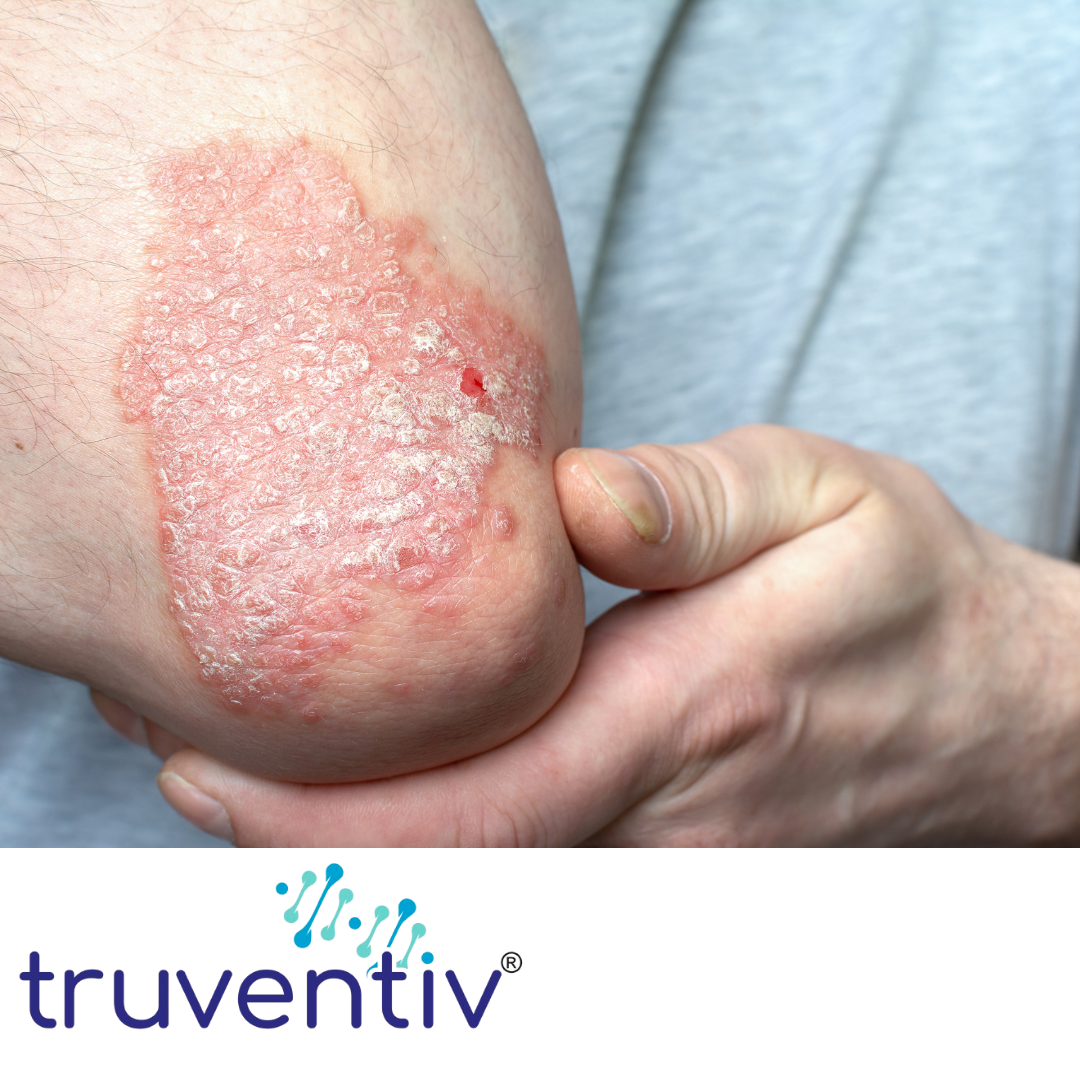
Allantoin is highly beneficial for calming skin conditions like eczema, rosacea, and psoriasis, thanks to its soothing, healing, and regenerative properties. These conditions involve inflammation, irritation, and discomfort, which allantoin can help alleviate in various ways.
- Soothes Inflammation:
- Reduces Swelling and Redness: Allantoin has well-documented anti-inflammatory properties that help reduce the swelling and redness commonly associated with conditions like eczema, rosacea, and psoriasis. It calms the skin, alleviating irritation and reducing the visibility of redness, which is a prominent symptom of these conditions.
- Promotes Skin Comfort: By soothing irritated skin, allantoin helps to improve overall skin comfort. This is especially important in conditions like eczema and rosacea, where skin discomfort can lead to scratching or excessive rubbing, exacerbating the condition.
- Supports Skin Regeneration:
- Encourages Healing and Skin Repair: Eczema, rosacea, and psoriasis often lead to broken or damaged skin barriers. Allantoin promotes the regeneration of skin cells, accelerating the healing process of damaged skin. For example, in eczema, where the skin is often cracked and irritated, allantoin helps to regenerate skin tissue and promote the repair of the skin barrier, reducing the risk of further irritation or infection.
- Helps Restore the Skin’s Protective Barrier: The skin barrier in conditions like eczema and psoriasis is often compromised, which leads to increased sensitivity and inflammation. Allantoin helps to strengthen and restore the skin's natural barrier, allowing it to better protect itself from external irritants like allergens, pollutants, and bacteria.
- Hydrates and Moisturizes Dry, Cracked Skin:
- Deep Hydration: One of the key symptoms of eczema, psoriasis, and rosacea is dry, flaky, and irritated skin. Allantoin is a humectant, meaning it draws moisture into the skin and helps retain it. This is crucial in maintaining skin hydration and preventing further dryness or cracking. Proper moisture levels help to reduce itching and irritation, two common complaints associated with these conditions.
- Prevents Dehydration: Dry, dehydrated skin exacerbates inflammation and discomfort. By keeping the skin hydrated, allantoin ensures that the skin remains soft and smooth, preventing further irritation and promoting healthier skin overall.
- Relieves Itching and Irritation:
- Calms Itchiness: Eczema, psoriasis, and rosacea can cause intense itching. Allantoin’s soothing properties help reduce itchiness by calming the inflammation and irritation that lead to scratching. This prevents a vicious cycle where itching worsens the condition. By addressing the root cause of the itching, allantoin provides relief and helps to minimize scratching.
- Reduces Burning Sensations: Rosacea, in particular, can cause a sensation of burning or stinging. Allantoin’s gentle, cooling effect helps relieve this discomfort, providing a sense of relief for those with rosacea flare-ups.
- Promotes Healing of Broken Skin:
- Accelerates Recovery: Skin affected by eczema or psoriasis may become cracked, broken, or even ulcerated due to constant inflammation or scratching. Allantoin supports the healing of these broken skin areas by stimulating cell regeneration and tissue repair. As the skin regenerates faster, it reduces the likelihood of further damage or infection, allowing the skin to recover more quickly.
- Prevents Scarring: Eczema and psoriasis lesions often heal with scarring or dark spots. Allantoin’s ability to speed up healing can also reduce the appearance of scars by allowing fresh, healthy skin to replace damaged tissue more quickly. This reduces the visibility of post-inflammatory hyperpigmentation (PIH), often seen in eczema or psoriasis patients.
- Improves Skin Elasticity and Smoothness:
- Enhances Skin Texture: Psoriasis and eczema often result in thick, scaly patches on the skin. Allantoin helps to improve the overall texture of the skin by promoting gentle exfoliation and cell turnover. This can help to reduce the buildup of dead skin cells, making the skin appear smoother and more even.
- Softens the Skin: By maintaining hydration and promoting regeneration, allantoin softens rough, thickened skin, which is common in psoriasis. This makes the skin more comfortable and helps to prevent the formation of further plaques or scaly patches.
- Protects Against External Irritants:
- Forms a Protective Barrier: Allantoin helps to form a protective layer over the skin, which acts as a barrier to environmental irritants. This is especially helpful in conditions like eczema or rosacea, where external triggers (such as pollution, extreme weather, or allergens) can worsen the skin’s condition. This protective barrier helps shield sensitive skin from irritants, preventing flare-ups and further irritation.
- Balances Skin Tone:
- Reduces Redness and Discoloration: Eczema, psoriasis, and rosacea can leave behind discoloration and redness even after the active symptoms subside. Allantoin helps to fade redness and hyperpigmentation by stimulating skin regeneration and promoting an even skin tone. It helps brighten the skin while reducing the appearance of red patches and spots.
- Improves Overall Skin Health: Allantoin contributes to healthier skin overall by supporting various aspects of skin health—hydration, elasticity, regeneration, and protection. Healthy skin is less prone to flare-ups, dryness, and irritation, helping to keep eczema, psoriasis, and rosacea under better control.
- Non-Irritating for Sensitive Skin:
- Gentle for Sensitive Skin: One of the biggest advantages of allantoin is that it is very gentle, even on highly sensitive skin. For people with eczema, rosacea, or psoriasis, using harsh skincare products can often aggravate their condition. Allantoin, however, is non-irritating, making it safe and effective for sensitive skin types and helping to calm and soothe without causing further issues.
HOW ALLANTOIN HELPS IN ANTI-ACNE & PIMPLE
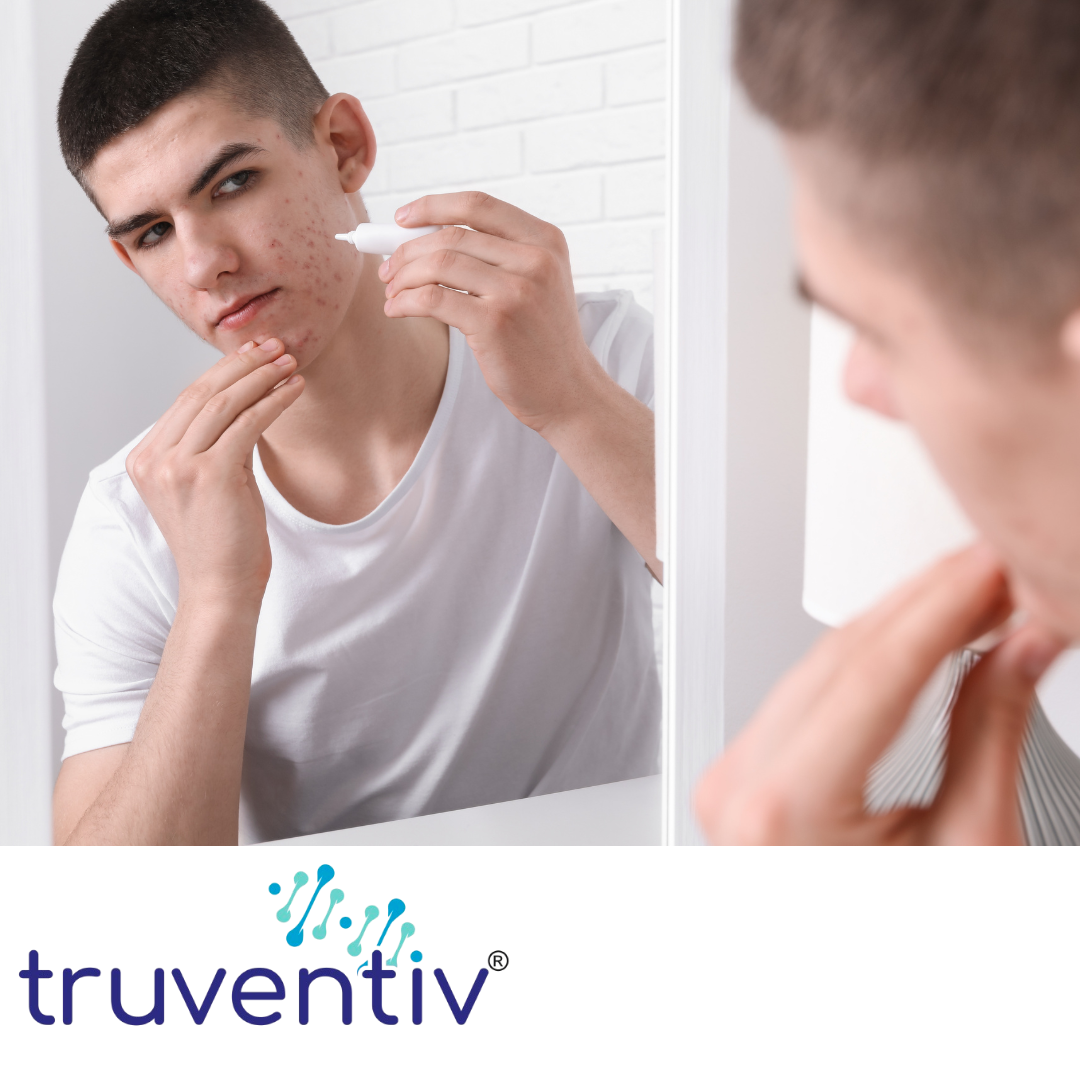
Allantoin is a versatile skincare ingredient that can significantly benefit those with acne and pimples, thanks to its soothing, healing, and regenerative properties. While it is not an active ingredient targeting acne-causing bacteria directly (like salicylic acid or benzoyl peroxide), it supports the skin's overall health and helps manage acne symptoms in the following ways:
- Soothes Inflammation and Reduces Redness:
- Anti-Inflammatory Effects: Acne is often accompanied by inflammation, which leads to redness, swelling, and the painful appearance of pimples. Allantoin has natural anti-inflammatory properties that help calm inflamed skin. By reducing the inflammation in acne-prone areas, allantoin minimizes redness and swelling, allowing pimples to appear less irritated and noticeable.
- Calms Irritated Skin: Pimples can sometimes become itchy, inflamed, or tender to the touch, especially when using strong acne treatments. Allantoin helps soothe and calm this irritation, reducing the likelihood of scratching or further aggravating the skin.
- Promotes Healing and Skin Regeneration:
- Speeds Up Skin Healing: Allantoin promotes the regeneration of skin cells by encouraging the turnover of fresh, healthy skin. This accelerates the healing process of acne lesions and pimples. As acne spots heal more quickly, the risk of scarring and hyperpigmentation is reduced, leading to clearer skin.
- Reduces Acne Scarring: Acne lesions, once healed, can sometimes leave behind dark spots or scars. Allantoin helps accelerate skin healing, reducing the appearance of these post-acne marks. It promotes the growth of new skin cells, which can replace damaged ones and gradually fade the appearance of scars.
- Moisturizes and Protects the Skin:
- Hydrates the Skin: Acne treatments, such as those containing benzoyl peroxide or salicylic acid, can often dry out the skin. This can lead to further irritation, peeling, and even more breakouts. Allantoin is a humectant, meaning it helps draw moisture into the skin and keep it hydrated. By preventing dryness, allantoin helps maintain a healthy skin barrier, which is crucial for overall skin health and acne management.
- Prevents Dryness and Flakiness: Dry, flaky skin can clog pores and exacerbate acne. Allantoin’s ability to keep the skin hydrated ensures that the skin remains smooth, soft, and free from the flakiness that can worsen acne conditions.
- Gentle Exfoliation and Skin Smoothing:
- Encourages Gentle Cell Turnover: Allantoin helps gently exfoliate the skin, promoting the turnover of dead skin cells. By doing so, it prevents the buildup of dead cells on the skin’s surface, which can clog pores and lead to acne breakouts. This action also helps keep the skin looking fresh and smooth by removing any excess layers of dead skin.
- Improves Skin Texture: As allantoin promotes skin regeneration and gentle exfoliation, it helps smooth rough, uneven skin textures that can result from acne. This is particularly helpful for individuals with post-acne scars or those suffering from skin that feels rough due to clogged pores or inflammation.
- Reduces the Appearance of Pimples:
- Softens and Soothes Existing Pimples: Allantoin helps to soften existing pimples and prevent them from becoming excessively inflamed or irritated. By reducing inflammation and promoting healing, it encourages pimples to shrink and heal faster, leading to less noticeable and painful acne.
- Prevents the Formation of New Pimples: While allantoin does not directly prevent new pimples from forming (like active acne treatments do), it helps maintain the overall health of the skin. By keeping the skin hydrated, reducing irritation, and supporting healing, it can indirectly prevent further acne breakouts by maintaining a balanced, healthy skin environment.
- Improves Skin Texture and Clarity:
- Reduces Blemishes and Hyperpigmentation: Post-inflammatory hyperpigmentation (PIH) is common after pimples heal, leaving behind dark spots. Allantoin’s ability to accelerate healing and promote fresh skin cell growth helps to fade these blemishes over time, leading to a more even skin tone and improved skin clarity.
- Improves Overall Skin Health: By keeping the skin moisturized and supporting cell regeneration, allantoin helps improve the skin's overall texture, reducing the appearance of blemishes and rough patches, which are often a result of acne.
- Supports the Skin’s Natural Barrier:
- Strengthens the Skin Barrier: Acne-prone skin is often fragile due to irritation from active acne treatments, environmental factors, or the acne itself. Allantoin helps strengthen the skin’s natural barrier by hydrating the skin and protecting it from external aggressors. A strong skin barrier is essential for reducing inflammation and preventing new breakouts.
- Prevents Further Irritation: When the skin's barrier is weakened, it becomes more prone to irritation and additional breakouts. By supporting the barrier, allantoin helps maintain the skin's resilience, preventing further irritation that could trigger acne flare-ups.
- Non-Irritating and Gentle for Sensitive Skin:
- Ideal for Sensitive or Reactive Skin: Many acne treatments can be harsh and cause irritation, especially for sensitive skin. Allantoin is known for being gentle and non-irritating, making it an ideal ingredient for calming sensitive, acne-prone skin. It can be used in combination with stronger acne treatments to help soothe and protect the skin while the acne treatment works on the breakout.
HOW ISOPROPYL MYRISTATE HELPS IN FOR NATURAL GLOWING SKIN

Isopropyl myristate is a versatile ingredient commonly used in skincare products for its ability to enhance the overall appearance and texture of the skin. While it is not a direct source of radiance like some other active ingredients (e.g., vitamin C or niacinamide), it plays a key role in promoting natural glowing skin through its unique properties.
- Enhances Skin Absorption:
- Improves Penetration of Other Active Ingredients: One of the primary benefits of isopropyl myristate is its ability to improve the absorption of other ingredients in a skincare product. It acts as a penetration enhancer, helping active ingredients (like antioxidants, vitamins, or moisturizing agents) to penetrate deeper into the skin. When combined with ingredients that brighten or hydrate the skin, isopropyl myristate helps them work more effectively, resulting in better skin health and a more radiant complexion.
- Boosts Efficacy of Hydrating Ingredients: By improving the absorption of moisturizing ingredients, isopropyl myristate helps to keep the skin properly hydrated. Well-hydrated skin naturally looks plump, smooth, and radiant, contributing to a healthy glow.
- Promotes Smooth, Soft Skin:
- Improves Skin Texture: Isopropyl myristate is often used to reduce the greasiness or stickiness of products, making them feel smoother and lighter on the skin. This creates a silky, soft texture on the skin's surface, which can enhance the appearance of a natural glow. The smoother the skin's texture, the more light it reflects, which contributes to a luminous appearance.
- Prevents Dryness: By improving the delivery of moisturizing ingredients, isopropyl myristate helps prevent skin from becoming dry or flaky. Dry, rough skin can appear dull, while well-moisturized skin reflects light better and gives off a healthy, glowing appearance.
- Improves Product Consistency and Application:
- Ensures Even Application: Isopropyl myristate can be used to improve the texture of a product, allowing it to spread more evenly on the skin. This helps to ensure that the active ingredients are distributed uniformly, resulting in a more even and glowing complexion.
- Reduces Clumping and Greasiness: Some skincare products, especially those with oils or thicker formulations, can be greasy or difficult to apply. Isopropyl myristate helps in making the formula lighter and more spreadable, allowing for easier and more comfortable application. This contributes to a smoother and healthier-looking skin surface, which naturally looks more radiant.
- Promotes Even Skin Tone:
- Supports Brightening Ingredients: When combined with ingredients like vitamin C, licorice extract, or niacinamide, isopropyl myristate helps these brightening agents to penetrate more deeply and work more efficiently. This enhances their ability to lighten dark spots, hyperpigmentation, and uneven skin tone. As the skin becomes more even and clear, it naturally appears brighter and more glowing.
- Helps with Pigmentation Issues: For those with acne scars, sunspots, or melasma, isopropyl myristate can enhance the effectiveness of products aimed at treating pigmentation. By improving the absorption of pigmentation-fading ingredients, it accelerates the process of achieving a more even skin tone and brighter complexion.
- Balances Oil Production:
- Non-Comedogenic and Skin-Friendly: Although isopropyl myristate is an ester of isopropyl alcohol, it is generally considered non-comedogenic (won’t clog pores) when used in moderate amounts. It helps to balance the skin’s oil production, making it suitable for both dry and oily skin types. For oily skin, it can help distribute oil more evenly, preventing a shiny or greasy appearance and instead supporting a healthy, balanced glow. For dry skin, it helps maintain moisture levels, leading to a soft, hydrated, and radiant look.
- Mattifying Effect: For those with oily skin, isopropyl myristate can provide a mattifying effect while still maintaining a healthy glow. By controlling excess oil, it helps the skin reflect light more evenly, preventing an overly shiny or greasy appearance and contributing to a balanced, glowing complexion.
- Acts as a Solvent for Other Ingredients:
- Solubilizes Other Active Ingredients: Isopropyl myristate is also used as a solvent, helping to dissolve and carry other active ingredients (like essential oils, vitamins, and antioxidants) into the skin. This makes it easier to incorporate potent ingredients into a product, enhancing their ability to deliver their benefits, such as increased radiance, skin clarity, and overall glow.
- Improves Texture of Active Formulas: By dissolving oils and other ingredients, isopropyl myristate improves the overall texture of a product, making it lighter, smoother, and easier to apply. When the product feels better on the skin, it enhances the feeling of comfort and leaves the skin looking naturally glowing.
- Improves Skin Radiance through Layering:
- Supports Layering in Skincare: Isopropyl myristate makes it easier to layer products, which is often a key aspect of a glowing skincare routine. When used in serums or moisturizers, it helps other layers to apply smoothly and evenly, ensuring that each product works synergistically. This layered effect, when combined with hydrating and brightening ingredients, can lead to a natural, radiant glow.
- Enhances Sunscreen Efficacy: Helps Sunscreen Ingredients Absorb: When used in sunscreens, isopropyl myristate can help the sunscreen ingredients penetrate the skin better, offering more effective protection against UV damage. Sunscreen is crucial for maintaining glowing skin because it prevents dark spots, pigmentation, and premature aging, all of which can detract from a youthful, radiant complexion.
HOW ISOPROPYL MYRISTATE HELPS IN IMPROVES OVERALL DERMAL HEALTH
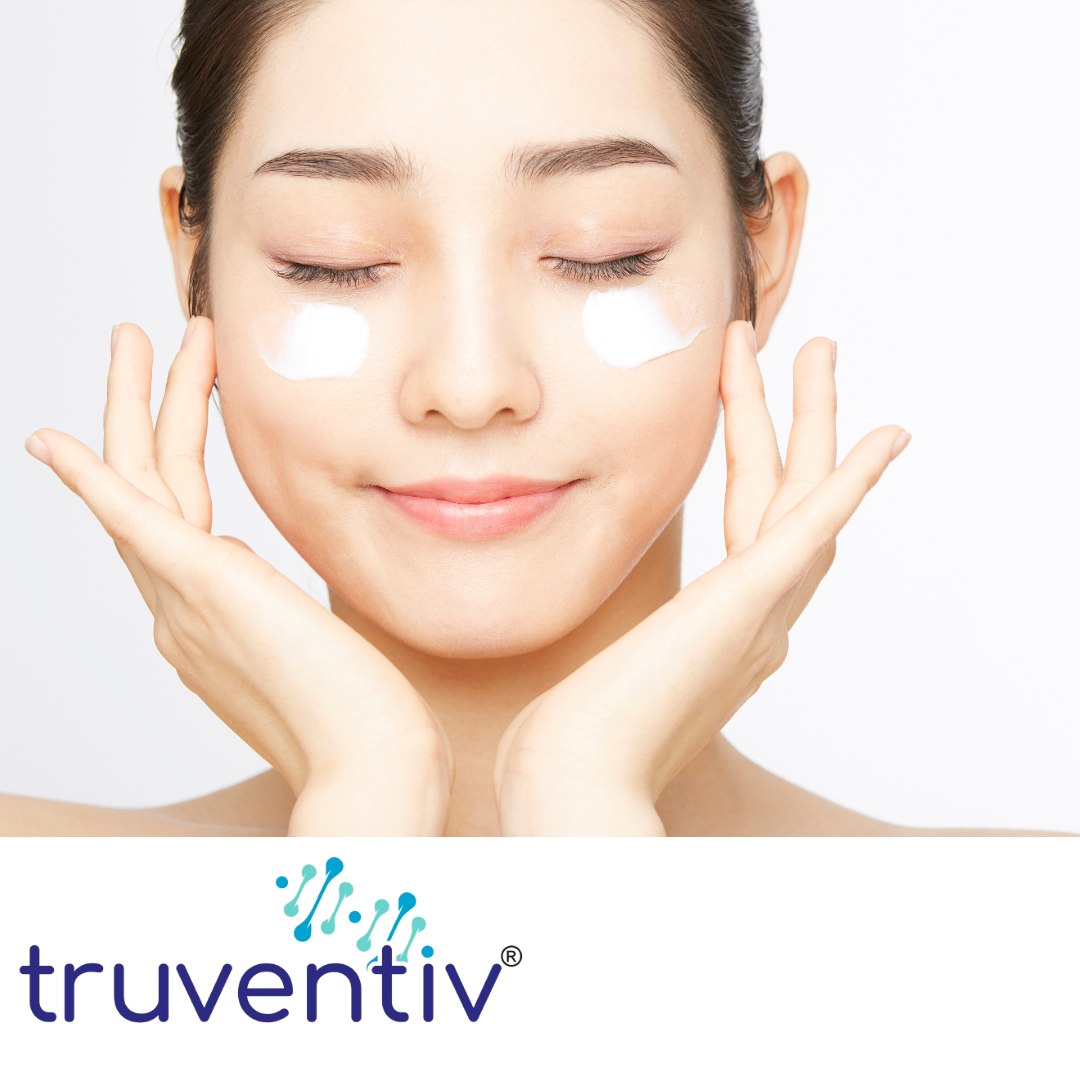
Isopropyl myristate is a versatile ingredient often included in skincare formulations due to its ability to improve the overall health of the skin. While it’s primarily known for enhancing the absorption of other ingredients, it plays several other roles that contribute to dermal health and overall skin well-being.
- Enhances Absorption of Active Ingredients:
- Increased Penetration of Nutrients: One of the primary benefits of isopropyl myristate is its ability to enhance the penetration of active ingredients in skincare products. By breaking down the skin's natural barrier to allow other ingredients (such as vitamins, antioxidants, or exfoliating acids) to penetrate more effectively, isopropyl myristate improves the performance of these ingredients. This ensures that nourishing components like vitamin C, niacinamide, or retinol work more efficiently, improving overall dermal health.
- Supports Deeper Skincare Benefits: Whether it’s moisturizing agents, anti-aging compounds, or healing agents, isopropyl myristate helps carry these deeper into the skin layers, maximizing their effectiveness. This contributes to healthier, more radiant skin.
- Improves Skin Hydration:
- Locks in Moisture: Isopropyl myristate can assist in retaining moisture in the skin by forming a barrier that prevents water loss. This helps the skin stay hydrated, preventing dryness and promoting a plump, smooth, and healthy texture. Proper hydration is essential for overall dermal health, as it keeps the skin supple and better equipped to regenerate.
- Prevents Dryness and Tightness: Dry skin is more prone to irritation, premature aging, and a weakened skin barrier. Isopropyl myristate helps maintain skin’s moisture balance by preventing dehydration, contributing to a more comfortable, smooth, and nourished skin surface.
- Improves Skin Texture and Smoothness:
- Silkier, Softer Skin: Isopropyl myristate has a smoothing effect on the skin’s surface. It helps create a silky, non-greasy feel, which improves the overall texture of the skin. This is particularly beneficial for individuals with rough, uneven, or textured skin. By softening the skin and allowing other ingredients to perform their function better, it makes the skin look and feel healthier.
- Promotes Even Skin Tone: By improving skin texture, isopropyl myristate helps create a more even complexion. It can be particularly helpful for individuals with skin that feels bumpy or uneven due to dryness, scarring, or clogged pores.
- Supports Skin’s Natural Barrier:
- Non-Irritating to Sensitive Skin: Despite being a solvent and penetration enhancer, isopropyl myristate is non-irritating for most people when used appropriately. It helps ensure the skin remains hydrated and comfortable without causing further irritation, especially when used in combination with other calming and moisturizing ingredients.
- Aids in Maintaining a Healthy Barrier: By enhancing the delivery of beneficial ingredients like ceramides or lipids (key components of the skin's natural barrier), isopropyl myristate helps support the skin’s barrier function. A strong skin barrier is essential for preventing water loss, protecting against environmental damage, and reducing irritation and sensitivity.
- Promotes Gentle Exfoliation:
- Facilitates Exfoliating Ingredients: Many skincare products contain exfoliating ingredients like alpha hydroxy acids (AHAs), beta hydroxy acids (BHAs), or enzymes. Isopropyl myristate aids these exfoliators in penetrating deeper into the skin, ensuring they perform their job of removing dead skin cells more effectively. Regular exfoliation helps keep the skin fresh, clear, and healthy by removing buildup that can clog pores or cause dullness.
- Supports Cell Turnover: With better absorption of exfoliating agents, isopropyl myristate promotes regular skin cell turnover, helping the skin maintain a healthy glow and preventing issues like clogged pores, uneven skin tone, and dullness.
- Reduces Excess Oil Build-up:
- Balances Oil Production: Isopropyl myristate has a light, non-greasy texture that can help balance the skin’s oil production. For oily or acne-prone skin, it aids in distributing oils evenly across the surface, which helps reduce the appearance of greasy, shiny spots and minimizes the risk of clogged pores.
- Helps Control Sebum: By ensuring that oil is spread more evenly on the skin’s surface, isopropyl myristate can help prevent the clogging of pores, reducing the likelihood of blackheads or breakouts. Proper oil balance supports healthier skin and prevents acne flare-ups or irritation caused by excessive sebum.
- Improves Skin Radiance:
- Adds a Natural Glow: Isopropyl myristate enhances the light-reflecting properties of skincare formulations. It can help products apply more smoothly, providing an even, luminous finish. By ensuring that active ingredients penetrate effectively, it helps maintain skin that appears more radiant and healthier over time.
- Supports Even Skin Tone: By promoting smooth texture and even oil distribution, isopropyl myristate helps the skin maintain a more balanced, radiant look. It aids in improving skin clarity and supports the use of brightening ingredients.
- Boosts the Effectiveness of Sunscreens:
- Enhances Sunscreen Performance: In sunscreen formulations, isopropyl myristate can improve the absorption of UV-protective agents, ensuring the product provides more effective sun protection. This is crucial for overall dermal health, as regular use of sunscreen is one of the most effective ways to prevent premature aging, hyperpigmentation, and sun damage.
- Supports Skin Health: By helping sunscreens apply evenly and penetrate better, isopropyl myristate contributes to maintaining optimal skin health, preventing damage from UV rays that can lead to wrinkles, dark spots, and loss of skin elasticity.
- Non-Comedogenic and Skin-Friendly:
- Does Not Clog Pores: While isopropyl myristate is an emollient and a penetration enhancer, it is typically non-comedogenic (it doesn’t clog pores). This makes it suitable for those with acne-prone skin, as it helps maintain the skin’s overall health without exacerbating breakouts. It’s a good option for providing the benefits of a smoother texture without causing skin congestion.
- Gentle for All Skin Types: Even individuals with sensitive skin can benefit from isopropyl myristate, as it is generally safe for most skin types when used in moderation. It helps skin products feel comfortable without causing irritation, contributing to overall dermal health.
HOW ISOPROPYL MYRISTATE HELPS IN ANTI-INFLAMMATION, ANTI-BACTERIAL, ANTI SEPTIC
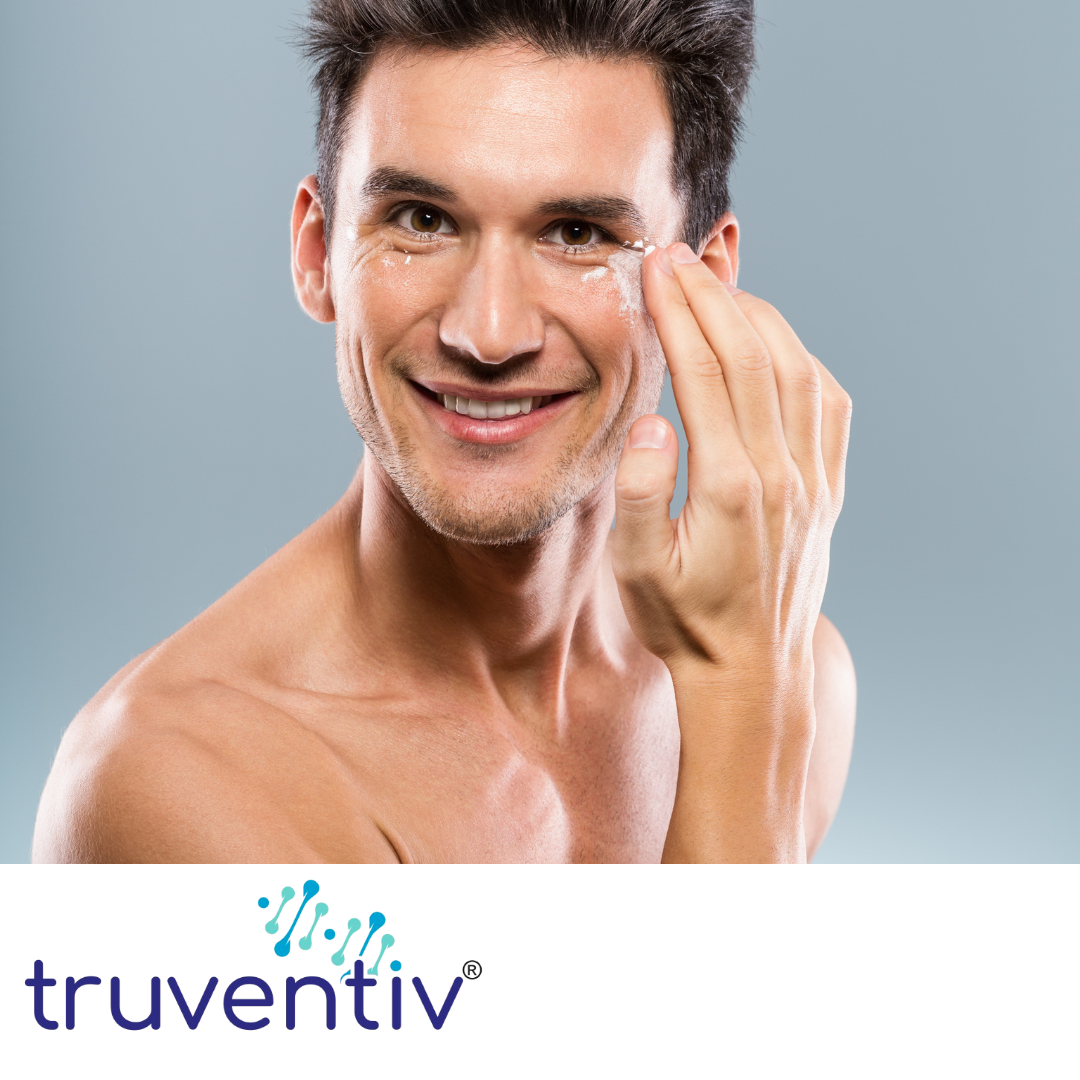
Isopropyl myristate, while not directly classified as an anti-inflammatory, anti-bacterial, or anti-septic agent, plays an indirect role in supporting these properties when combined with other ingredients in skincare formulations.
- Anti-Inflammation:
- Enhances Absorption of Anti-Inflammatory Ingredients: One of the key benefits of isopropyl myristate is its ability to enhance the absorption of other active ingredients. When used in formulations with anti-inflammatory ingredients (like aloe vera, chamomile, or corticosteroids), isopropyl myristate helps these ingredients penetrate deeper into the skin. This allows for more effective relief from inflammation, redness, or irritation, which is particularly useful for conditions like acne, eczema, or rosacea.
- Soothing Effect: While isopropyl myristate itself is not inherently anti-inflammatory, its ability to facilitate the delivery of soothing and calming agents into the skin can help reduce inflammation. It ensures that products with anti-inflammatory properties work more efficiently, which contributes to skin comfort and a reduction in puffiness or swelling.
- Anti-Bacterial:
- Supports Anti-Bacterial Agents: Although isopropyl myristate is not a direct anti-bacterial agent, it helps improve the efficacy of other active ingredients that have anti-bacterial properties. For example, when combined with ingredients like tea tree oil (known for its antimicrobial effects), isopropyl myristate aids in their absorption into the skin. This enhances the effectiveness of these ingredients in fighting bacteria, particularly in acne treatment or wound healing.
- Prevents Bacterial Growth in Clogged Pores: By helping to distribute oils and other active ingredients more evenly on the skin’s surface, isopropyl myristate can help maintain healthy skin and prevent the buildup of dead skin cells, oil, and bacteria that might otherwise lead to acne or other bacterial infections.
- Anti-Septic:
- Improves the Effectiveness of Anti-Septic Agents: Isopropyl myristate can help boost the performance of anti-septic ingredients like isopropyl alcohol (which is often used in disinfectants). It helps to deliver these ingredients to the skin more effectively, ensuring that they provide better coverage and antimicrobial protection, which is essential in wound care and for treating infections.
- Promotes Healing: When used in conjunction with anti-septic formulations, isopropyl myristate aids in the faster and more efficient absorption of ingredients that prevent infection in minor cuts, scrapes, or skin irritations. It ensures that the skin receives the full benefit of anti-septic agents, which can prevent bacteria from entering wounds and promote overall skin healing.
- Supports Healthy Skin Barrier Function:
- Prevents Further Irritation and Inflammation: By helping the skin retain moisture and stay hydrated, isopropyl myristate helps maintain a healthy skin barrier. This barrier is essential for protecting the skin from external irritants, bacteria, and environmental factors that could lead to inflammation or infection. A healthy barrier reduces the risk of skin issues such as eczema, dermatitis, or acne, which are often exacerbated by external aggressors.
- Reduces Excess Oil: In cases where bacteria thrive on excess oils (as with acne), isopropyl myristate helps distribute the skin’s natural oils more evenly, preventing the accumulation of oil in certain areas. This can help reduce the likelihood of clogged pores and bacterial growth, which is essential in preventing acne breakouts or skin infections.
- Gentle and Non-Irritating for Sensitive Skin:
- Non-Comedogenic and Non-Irritating: Isopropyl myristate is generally non-comedogenic (does not clog pores) and safe for use on most skin types. For individuals with sensitive or acne-prone skin, it helps ensure that formulations with anti-inflammatory, anti-bacterial, or anti-septic ingredients can be applied without causing additional irritation. This makes it ideal for sensitive skin that needs extra care in managing inflammation and preventing infections.
- Improves Comfort in Sensitive Skin: For individuals dealing with conditions like rosacea or eczema, isopropyl myristate ensures that the active ingredients used to calm inflammation and prevent infection are delivered to the skin effectively, without causing additional irritation.
- Supports Overall Skin Health:
- Enhances Healing and Protection: Isopropyl myristate plays a supporting role in promoting skin healing. When used in formulations with anti-septic or anti-inflammatory ingredients, it aids the skin’s repair process by enhancing ingredient absorption and ensuring even distribution. This leads to better skin health and a reduction in the risk of infections or further skin damage.
- Improves Product Effectiveness: By helping active ingredients penetrate deeply into the skin, isopropyl myristate ensures that the skin receives full benefits from both anti-inflammatory and anti-bacterial treatments, making the skin more resilient and balanced.
HOW ISOPROPYL MYRISTATE HELPS IN REDUCES REDNESS & BLEMISHES
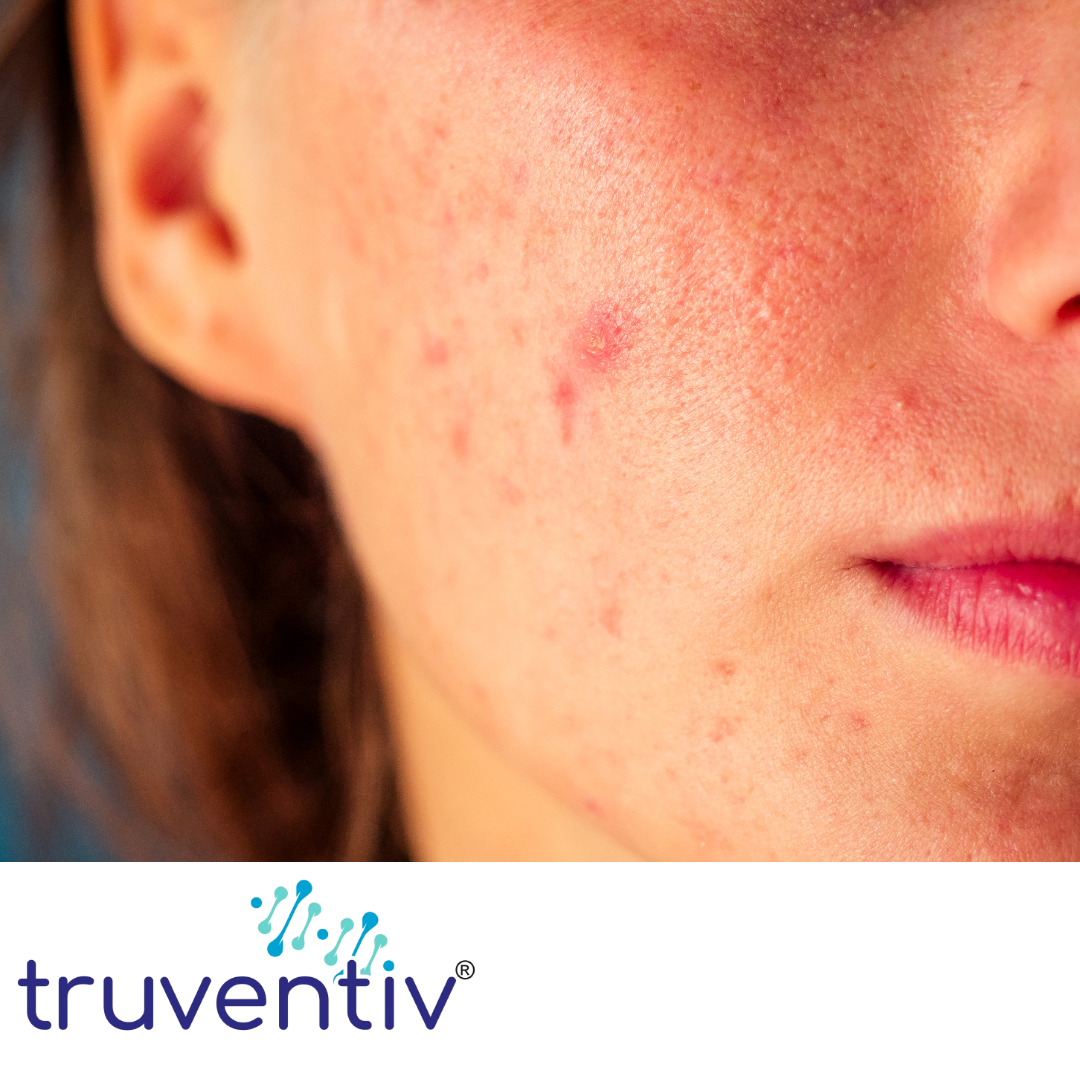
Isopropyl myristate can play an indirect but helpful role in reducing redness and blemishes on the skin, particularly when combined with other active ingredients designed to target these concerns.
- Enhances the Absorption of Active Ingredients:
- Improves Penetration of Soothing and Anti-Redness Ingredients: One of isopropyl myristate’s most important roles in skincare is its ability to enhance the absorption of other active ingredients. When combined with ingredients such as niacinamide, aloe vera, or chamomile, which are known to reduce redness and calm inflammation, isopropyl myristate helps them penetrate deeper into the skin, where they can work more effectively. By improving the effectiveness of these ingredients, it can help reduce the appearance of redness and inflammation.
- Targets Underlying Causes of Redness: Redness is often caused by inflammation, irritation, or conditions like rosacea. Isopropyl myristate ensures that ingredients with anti-inflammatory and calming properties reach the deeper layers of the skin, where they can directly impact these causes, helping to reduce redness over time.
- Supports the Healing of Blemishes:
- Aids in Absorption of Healing Agents: Blemishes, whether from acne or other skin issues, often require healing agents like salicylic acid, benzoyl peroxide, or vitamin C. Isopropyl myristate improves the penetration of these active ingredients, which can help speed up the healing process. By promoting faster healing, it may reduce the duration of blemishes, helping to minimize their appearance more quickly.
- Improves Skin Regeneration: By facilitating deeper penetration of ingredients that promote skin regeneration, such as retinol or vitamin E, isopropyl myristate can help the skin recover more efficiently from blemishes, leading to fewer visible marks or scars over time.
- Balances Oil Production:
- Prevents Clogged Pores: Clogged pores are a common cause of acne and blemishes. By helping to distribute oils more evenly across the skin and prevent excessive buildup, isopropyl myristate can help reduce the likelihood of clogged pores, which can lead to breakouts and blemishes. When oil is more evenly spread, the skin remains balanced, reducing the chances of developing acne-related redness or irritation.
- Reduces Oily Shine: For those with oily skin, isopropyl myristate can help to control the overproduction of sebum, which often contributes to clogged pores and breakouts. By helping the skin regulate oil production more effectively, isopropyl myristate can reduce the occurrence of blemishes and the redness associated with them.
- Improves Skin Texture and Tone:
- Smooths Skin Surface: Isopropyl myristate’s ability to improve the spreadability and texture of skincare products means that it helps ingredients to apply more evenly on the skin. When combined with ingredients that help lighten dark spots or even out skin tone (such as vitamin C, licorice extract, or alpha hydroxy acids (AHAs)), it helps deliver these ingredients more effectively to treat hyperpigmentation and discoloration from blemishes.
- Reduces Post-Acne Marks: Over time, blemishes can leave behind marks or hyperpigmentation. By enhancing the effectiveness of brightening or skin-healing ingredients, isopropyl myristate can help fade these post-acne marks or discolorations more quickly, leading to a clearer, more even complexion.
- Supports Calming of Inflammation:
- Reduces Redness from Irritation: For sensitive skin or conditions like rosacea or eczema, inflammation often leads to redness. Isopropyl myristate helps anti-inflammatory ingredients reach the deeper layers of the skin, where they can reduce irritation, swelling, and redness. By supporting the action of these anti-inflammatory ingredients, it helps to calm the skin and reduce visible redness caused by irritation or skin flare-ups.
- Improves Skin’s Resilience: By enhancing the delivery of calming agents, isopropyl myristate can help build the skin’s resilience against external irritants, preventing future redness and irritation. This is especially beneficial for those with sensitive or reactive skin, as it can minimize flare-ups and keep the complexion clear.
- Non-Irritating for Sensitive Skin:
- Prevents Additional Redness: Despite being an ester of isopropyl alcohol, isopropyl myristate is generally non-irritating and safe for use on most skin types, including sensitive or acne-prone skin. It’s a gentle ingredient that can be used in formulations designed for individuals with redness-prone or sensitive skin. It helps ensure that other ingredients in the product do not cause additional irritation or redness, which is essential when dealing with blemishes or skin conditions.
- Non-Comedogenic: Isopropyl myristate is typically considered non-comedogenic (it doesn’t clog pores), which is important for preventing new blemishes and redness from forming. This makes it suitable for acne-prone skin, as it won’t exacerbate skin congestion, which can lead to more blemishes or irritation.
- Promotes Even Skin Tone:
- Lightens Dark Spots: Isopropyl myristate can also help lighten dark spots or hyperpigmentation caused by blemishes. It enhances the effectiveness of ingredients like niacinamide or vitamin C, which are known for their ability to fade dark spots and even out skin tone. With consistent use, isopropyl myristate helps promote a clearer, more uniform complexion, which minimizes the appearance of redness and blemishes.
- Improves Skin Clarity: By helping to distribute skin-loving ingredients more evenly and effectively, isopropyl myristate can contribute to a clearer complexion. This results in fewer visible blemishes and a reduction in the redness associated with them.
HOW ISOPROPYL MYRISTATE HELPS IN CALMS SKIN CONDITIONS LIKE ECZEMA, ROSACEA & PSORIASIS
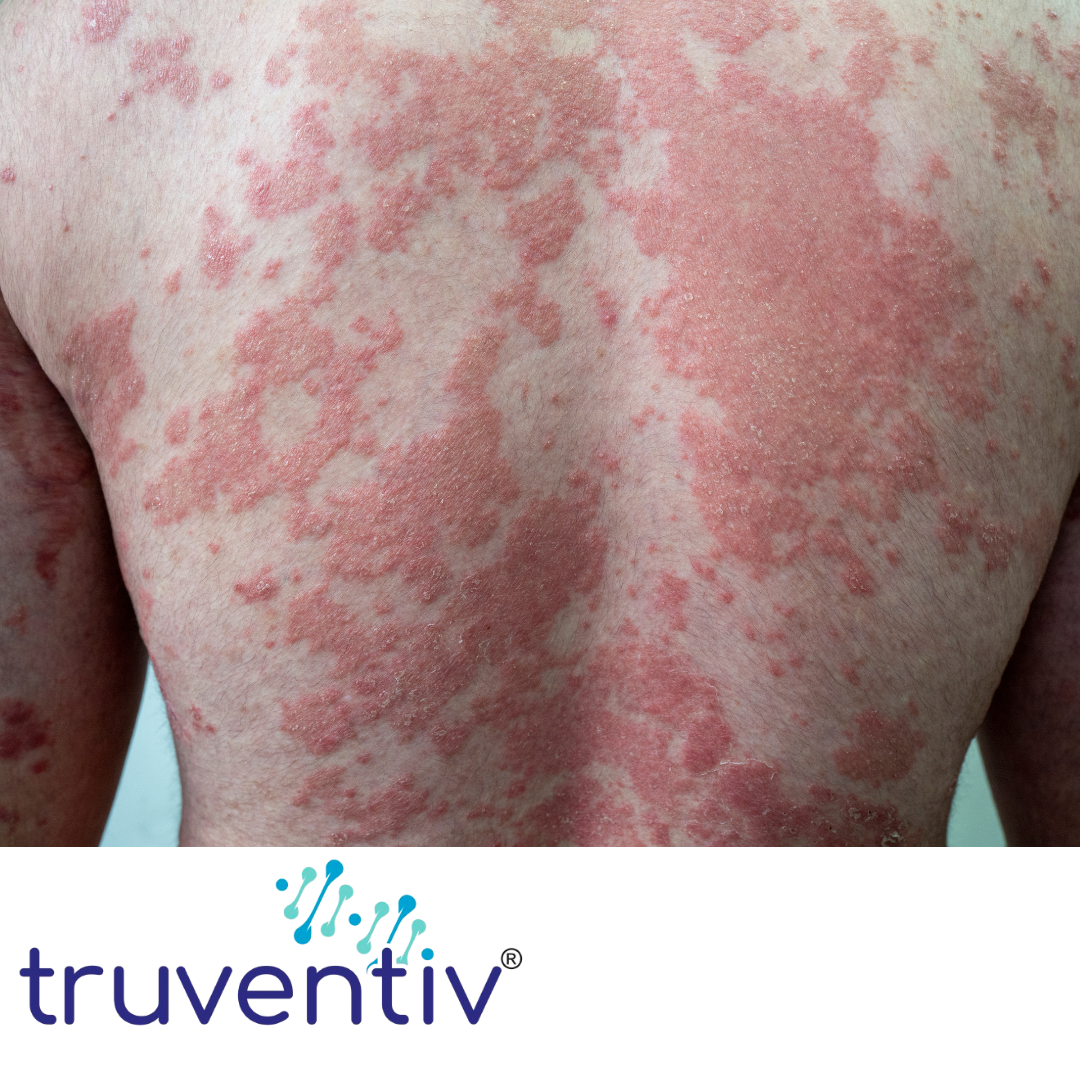
Isopropyl myristate can indirectly assist in calming skin conditions like eczema, rosacea, and psoriasis by improving the absorption and effectiveness of other active ingredients in skincare formulations.
- Enhances the Absorption of Active Ingredients:
- Improves Penetration of Soothing Ingredients: Isopropyl myristate is primarily known for its ability to enhance the absorption of other active ingredients. For conditions like eczema, rosacea, and psoriasis, it can help ingredients such as corticosteroids, anti-inflammatory agents, or calming botanicals (like chamomile, aloe vera, or calendula) penetrate deeper into the skin. These ingredients are key in soothing irritation, redness, and inflammation, and improving their absorption helps to target the root causes of flare-ups more effectively.
- Supports Healing and Repair: For conditions like eczema or psoriasis, which involve the skin barrier being compromised, isopropyl myristate helps support the healing of the skin by improving the delivery of repairing agents like ceramides, fatty acids, and lipids. This can help restore the skin’s natural barrier, reducing inflammation and discomfort.
- Anti-Inflammatory Effects:
- Supports Anti-Inflammatory Treatments: Skin conditions like eczema, rosacea, and psoriasis are marked by inflammation. While isopropyl myristate itself isn't inherently anti-inflammatory, it enhances the effectiveness of anti-inflammatory agents by helping them reach deeper layers of the skin. Ingredients such as niacinamide, hydrocortisone, and beta-glucan work more effectively with the help of isopropyl myristate, thus calming the redness and swelling associated with these conditions.
- Reduces Redness and Irritation: By improving the absorption of these calming ingredients, isopropyl myristate helps to soothe irritated skin, reduce redness, and prevent further inflammation, which are common symptoms of eczema and rosacea.
- Supports Skin Hydration and Moisture Retention:
- Improves Moisture Absorption: Many individuals with eczema, rosacea, or psoriasis suffer from dry, flaky, and cracked skin due to a compromised skin barrier. Isopropyl myristate helps enhance the effectiveness of moisturizing ingredients such as glycerin, shea butter, or hyaluronic acid by allowing them to penetrate more deeply into the skin. By boosting hydration levels, it helps maintain skin elasticity and prevent excessive dryness, which is a key factor in exacerbating these conditions.
- Restores Skin’s Barrier Function: Dryness and irritation are often triggered by a weakened skin barrier. Isopropyl myristate helps active ingredients that repair the skin barrier, like ceramides and cholesterol, penetrate more effectively, which in turn helps rebuild the skin’s protective barrier. A stronger barrier reduces the risk of flare-ups and helps calm the discomfort associated with eczema, rosacea, and psoriasis.
- Reduces Itching and Discomfort:
- Improves the Effectiveness of Soothing Agents: For skin conditions like eczema and psoriasis, itching is a common symptom. By helping active ingredients such as colloidal oatmeal, menthol, or calamine penetrate the skin more effectively, isopropyl myristate helps alleviate itching and discomfort. These ingredients have soothing properties that can provide relief from the irritation caused by these conditions.
- Boosts the Comfort of Topical Treatments: Isopropyl myristate can help reduce the greasiness of some treatments, ensuring that soothing creams or lotions are absorbed quickly without leaving behind a sticky residue. This improves overall skin comfort, making it easier for individuals with conditions like rosacea and eczema to stick to their treatment routines.
- Promotes Even Skin Tone and Reduces Redness:
- Supports the Delivery of Brightening Ingredients: For conditions like rosacea and psoriasis, which often cause persistent redness, isopropyl myristate can help active ingredients such as licorice extract or vitamin C reach the deeper layers of the skin. These ingredients help reduce redness and hyperpigmentation, making the skin tone appear more even over time.
- Minimizes Flare-Ups: By helping the skin absorb calming ingredients more efficiently, isopropyl myristate can help minimize the frequency and intensity of flare-ups. This is particularly beneficial for those with rosacea, as it can prevent persistent redness from worsening and help maintain clearer, less inflamed skin.
- Non-Irritating for Sensitive Skin:
- Gentle on Sensitive Skin: One of the challenges with conditions like eczema, rosacea, and psoriasis is that the skin becomes more sensitive and prone to irritation. Isopropyl myristate is generally well-tolerated by most skin types, including sensitive skin, as it is non-irritating when used in appropriate amounts. It helps ensure that other active ingredients can be applied without causing additional irritation, making it safer for use on conditions that are already prone to flare-ups.
- Non-Comedogenic: In some cases, psoriasis and rosacea can be aggravated by clogged pores. Isopropyl myristate is typically non-comedogenic, meaning it won’t clog pores or exacerbate acne. This is particularly helpful for individuals with both rosacea and acne or those who need treatments that will not further irritate or congest their skin.
- Improves Skin Texture:
- Smoother, Softer Skin: Psoriasis, eczema, and rosacea often lead to rough, uneven skin texture. By improving the absorption of moisturizers and healing ingredients, isopropyl myristate can help smooth out rough patches and restore a more even texture. This can help reduce the appearance of dry, flaky patches commonly seen in psoriasis or eczema.
- Prevents Scaling: For psoriasis, which often causes scaling on the skin’s surface, isopropyl myristate can enhance the penetration of exfoliating ingredients (like salicylic acid) that help remove dead skin cells. This contributes to smoother, less scaly skin, reducing the visibility of plaques associated with psoriasis.
- Non-Greasy Texture for Easy Application:
- Improves Product Feel: Many treatments for eczema, rosacea, and psoriasis can feel heavy or greasy on the skin. Isopropyl myristate helps improve the texture of these products, making them easier to apply and more comfortable to wear. This is especially helpful for people who need to use treatment creams or ointments daily, as it ensures that the products don’t leave behind an oily residue that can be uncomfortable or interfere with daily activities.
HOW ISOPROPYL MYRISTATE HELPS IN ANTI-ACNE & PIMPLE
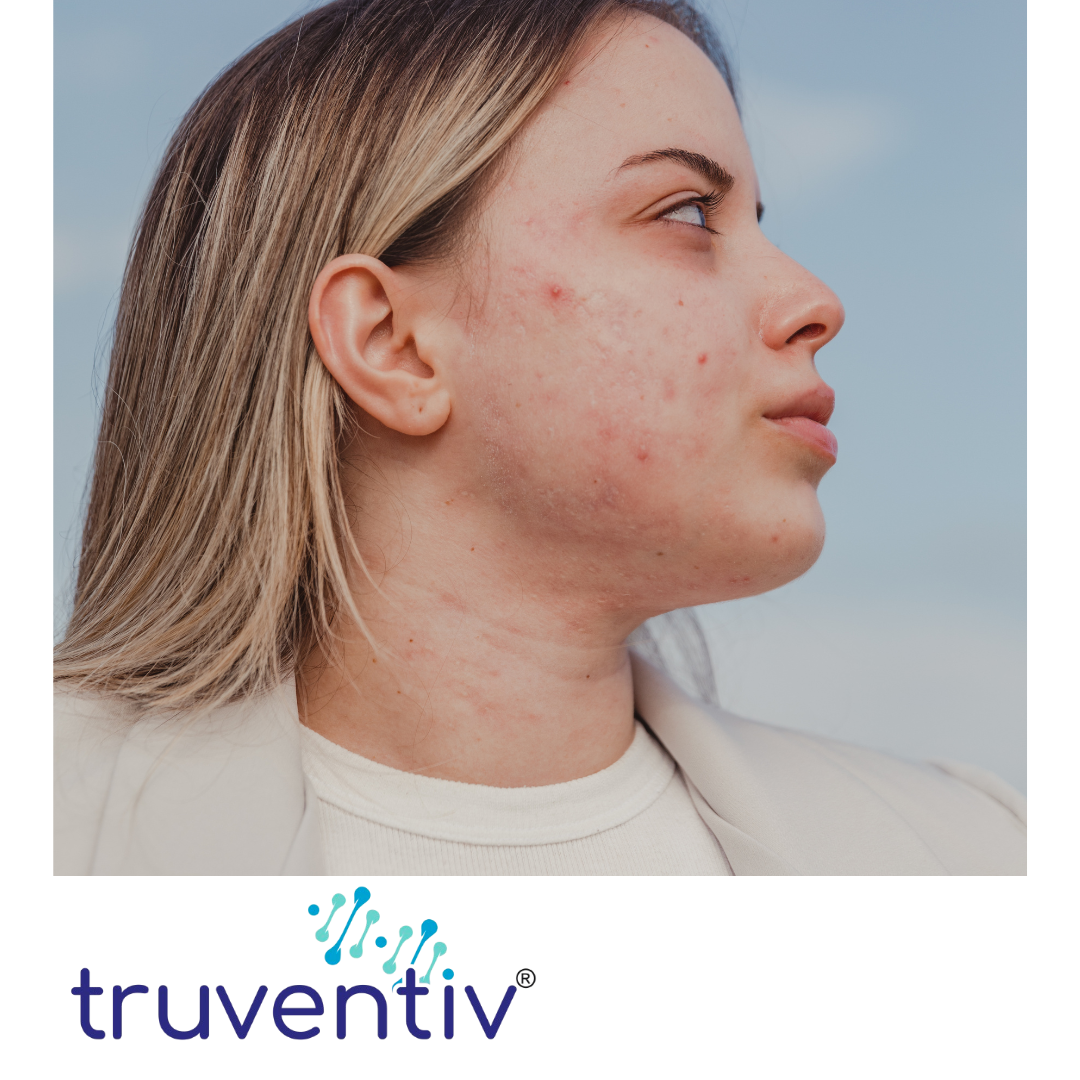
.
Isopropyl myristate can be beneficial in anti-acne and pimple treatments, not because it directly combats acne, but due to its ability to enhance the effectiveness of other active ingredients that target acne and pimple-causing factors.
- Improves Absorption of Acne-Fighting Ingredients:
- Enhances Penetration of Actives: One of the key benefits of isopropyl myristate is its ability to improve the penetration of other active ingredients. In acne treatments, ingredients like salicylic acid, benzoyl peroxide, and retinoids need to reach the deeper layers of the skin to work effectively. Isopropyl myristate helps deliver these ingredients more efficiently into the skin, ensuring they can target the root causes of acne (like clogged pores, inflammation, and bacteria).
- Boosts Efficacy of Active Ingredients: By helping acne-fighting actives penetrate more deeply, isopropyl myristate ensures that these ingredients reach their targets more effectively, speeding up the treatment process and providing better results in clearing acne and preventing new breakouts.
- Prevents Clogged Pores (Non-Comedogenic):
- Reduces the Risk of Clogged Pores: Acne is often caused by clogged pores, which trap oil, dead skin cells, and bacteria. Isopropyl myristate is non-comedogenic, meaning it does not clog pores, making it safe for acne-prone skin. It helps maintain the skin’s oil balance and ensures that products designed to treat acne are applied smoothly without contributing to further congestion.
- Balances Oil Distribution: By helping to spread oils and active ingredients more evenly across the skin’s surface, isopropyl myristate prevents oil buildup in specific areas, reducing the likelihood of clogged pores and the development of acne.
- Reduces Skin Irritation and Inflammation:
- Supports Anti-Inflammatory Agents: Inflammatory acne (such as cystic acne) often leads to redness, swelling, and discomfort. Isopropyl myristate aids in the absorption of anti-inflammatory ingredients like niacinamide, tea tree oil, and azelaic acid, which reduce inflammation and soothe irritated skin. This can help calm inflamed acne and pimples, making them less noticeable and speeding up healing.
- Soothing Effect: By enhancing the effectiveness of soothing ingredients, isopropyl myristate helps alleviate the redness and swelling associated with acne, making breakouts appear less angry and more manageable.
- Improves Skin Texture and Clarity:
- Smooths the Skin: Isopropyl myristate helps in smoothing the texture of acne-prone skin by facilitating the even spread of acne treatments. This can reduce the appearance of uneven skin texture and hyperpigmentation (dark spots) left behind by pimples. As a result, your skin looks clearer and more even-toned over time.
- Helps Reduce Post-Acne Scarring: By enhancing the effectiveness of ingredients like vitamin C or retinol, isopropyl myristate can help improve skin turnover and fade post-acne scars. This contributes to smoother skin and helps prevent the development of new scars as acne heals.
- Reduces Excess Oil Production:
- Regulates Sebum Production: Excessive sebum (oil) production is a major contributor to acne formation. While isopropyl myristate doesn’t directly regulate oil production, its ability to help balance and distribute oils on the skin helps to prevent the buildup of excess sebum. By preventing localized oil accumulation, it reduces the risk of pore blockages and the development of acne.
- Keeps Skin Balanced: By evenly distributing sebum across the skin, isopropyl myristate prevents greasy patches while maintaining skin hydration. This helps avoid the oily, shiny look that often accompanies acne-prone skin, while ensuring the skin remains moisturized without clogging pores.
- Facilitates the Action of Exfoliating Ingredients:
- Boosts Exfoliation: Exfoliating ingredients like salicylic acid, alpha-hydroxy acids (AHAs), and beta-hydroxy acids (BHAs) are commonly used in acne treatments to remove dead skin cells that can clog pores. Isopropyl myristate helps these exfoliating agents penetrate the skin more effectively, promoting cell turnover and helping to clear the skin of impurities that can lead to acne breakouts.
- Prevents Build-up of Dead Skin Cells: By promoting better exfoliation, isopropyl myristate helps prevent the accumulation of dead skin cells, which can contribute to clogged pores and the formation of pimples. Regular exfoliation helps keep the skin clear and fresh, reducing the likelihood of acne.
- Improves Product Application:
- Non-Greasy Texture for Easier Application: Many acne treatments, especially those with active ingredients like benzoyl peroxide or salicylic acid, can feel thick or greasy on the skin. Isopropyl myristate helps improve the texture of these products, making them easier to apply and ensuring they are evenly distributed across the skin. This improves overall comfort and encourages consistent use of the treatment, leading to better results over time.
- Lightens the Feel of Heavy Products: Since isopropyl myristate reduces the greasiness of products, it helps users feel more comfortable using acne treatments regularly without the worry of clogged pores or heavy residue. This also encourages more frequent use, which is essential for effectively managing and preventing acne.
- Calms Acne-Prone Skin:
- Non-Irritating: Acne-prone skin can be highly sensitive, especially when treated with harsh acne medications. Isopropyl myristate is relatively gentle on the skin and helps prevent irritation that might occur when applying active acne treatments. By ensuring that ingredients don’t cause additional irritation or inflammation, isopropyl myristate helps calm and soothe acne-prone skin while still allowing the treatment to work effectively.
- Reduces the Risk of New Pimples: Isopropyl myristate's ability to support the delivery of anti-inflammatory and soothing ingredients means that it can help reduce the overall irritation that may contribute to the formation of new pimples. It allows acne treatments to function more effectively, preventing further breakouts.
HOW DIMETHICONE HELPS IN FOR NATURAL GLOWING SKIN
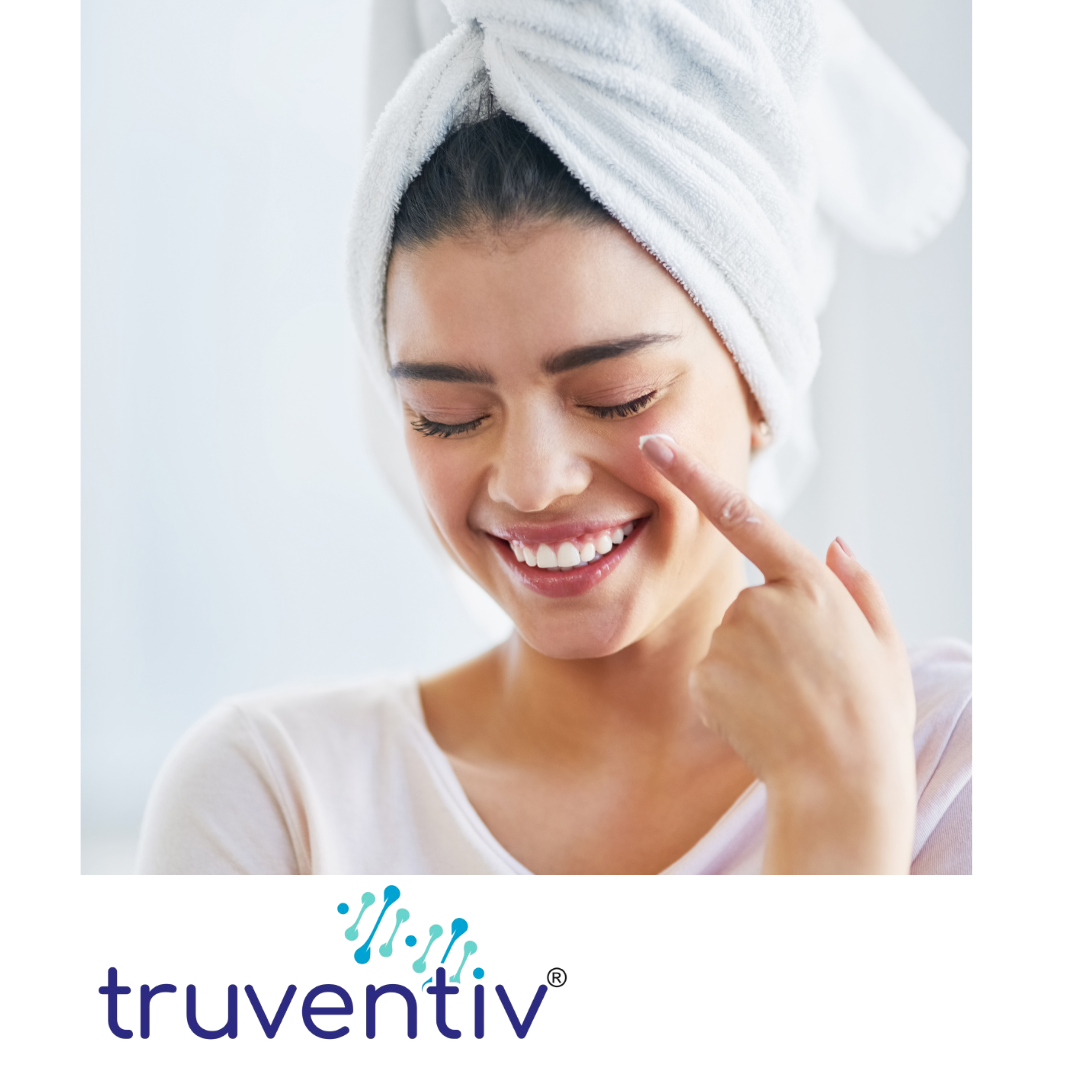
Dimethicone, a type of silicone, can be a valuable ingredient in skincare products aimed at achieving naturally glowing skin.
- Smooths and Softens the Skin’s Surface:
- Creates a Silky, Smooth Texture: Dimethicone forms a smooth, protective layer on the skin, filling in fine lines and imperfections, resulting in a soft, even surface. This effect helps create a radiant and glowing appearance, as the skin looks more polished and refined.
- Softens Skin: By creating a soft, silky texture on the skin, dimethicone helps to improve the overall feel and appearance, contributing to a healthy, glowing look. It enhances the natural shine of the skin, making it appear smoother and more luminous.
- Locks in Moisture:
- Hydration Barrier: Dimethicone acts as a barrier on the skin’s surface, preventing moisture from escaping. This helps to maintain hydration, which is essential for a glowing complexion. Well-hydrated skin tends to look plumper, more supple, and more luminous.
- Prevents Trans-Epidermal Water Loss (TEWL): By preventing water from evaporating, dimethicone ensures that the skin stays moisturized for a longer period, contributing to a healthy and glowing appearance. Properly hydrated skin naturally reflects light better, giving it a radiant glow.
- Improves Skin Texture and Appearance:
- Fills in Fine Lines and Wrinkles: Dimethicone helps to temporarily fill in fine lines, wrinkles, and rough patches, giving the skin a smoother and more even texture. Smoother skin reflects light more evenly, enhancing the natural glow of the skin.
- Blurs Imperfections: Dimethicone creates a soft focus effect, making the skin appear more flawless by blurring imperfections such as acne scars, blemishes, and uneven skin tone. This can help in achieving a brighter, more even complexion, contributing to a natural glow.
- Enhances the Effectiveness of Other Skincare Ingredients:
- Improves Absorption: Dimethicone helps other active ingredients in skincare products penetrate the skin more efficiently, allowing them to work effectively. If your skincare routine includes products for brightening, anti-aging, or skin radiance (like vitamin C, niacinamide, or hyaluronic acid), dimethicone can help these ingredients work better, leading to more noticeable results and a healthier glow.
- Seals in Beneficial Ingredients: Since dimethicone forms a protective barrier on the skin, it helps to lock in the active ingredients from serums or moisturizers, ensuring they continue working even after application. This can enhance the skin's radiance over time.
- Gives a Polished, Glossy Finish:
- Adds a Natural Shine: Dimethicone can impart a natural, glossy finish to the skin without feeling greasy. This provides the skin with a dewy, healthy appearance that mimics the look of naturally glowing skin.
- Non-Greasy and Lightweight: Unlike other silicones, dimethicone provides the smooth, reflective quality without the heavy, greasy feeling. This makes it perfect for achieving that luminous glow without clogging pores or causing breakouts.
- Prevents Dryness and Flaking:
- Keeps Skin Supple: Dimethicone’s ability to lock in moisture helps prevent dry patches and flaking. Dry skin can appear dull and lackluster, so maintaining moisture levels helps the skin stay glowing and healthy. It ensures that the skin feels soft and smooth, contributing to a radiant, hydrated look.
- Acts as a Primer for a Luminous Finish:
- Smooth Base for Makeup: When used in makeup primers or base products, dimethicone provides a smooth canvas for foundation or tinted moisturizer. It helps makeup glide on effortlessly and last longer, providing a luminous, glowing finish that looks natural.
- Enhances Radiance from Within: By creating a smooth, flawless base, dimethicone helps reflect light evenly across the skin, making it appear more radiant and healthy without looking overly shiny or oily.
- Reduces the Appearance of Dullness:
- Reflects Light: Dimethicone can help to reflect light on the skin's surface, giving it a more vibrant, luminous appearance. This effect can make dull skin appear brighter and more radiant, which is a key component of a natural glow.
- Boosts Overall Glow: By creating a smooth, even surface, dimethicone helps to boost the natural glow of the skin, making it look healthier and more radiant. It can reduce the appearance of tired or stressed skin, giving you a fresh, glowing look.
HOW DIMETHICONE HELPS IN IMPROVES OVERALL DERMAL HEALTH
Dimethicone, a silicone-based compound, contributes significantly to improving overall dermal health.
- Hydration and Moisture Retention:
- Locks in Moisture: Dimethicone forms a protective barrier on the skin, which helps to seal in moisture and prevent trans-epidermal water loss (TEWL). By maintaining optimal hydration levels, it helps to keep the skin plump and supple, reducing the risk of dryness and irritation. Hydrated skin is healthier and better equipped to perform its protective functions.
- Prevents Dehydration: By preventing moisture from evaporating, dimethicone ensures that the skin stays hydrated for a longer period. Consistent hydration helps support skin elasticity, minimizes the appearance of fine lines, and keeps the skin feeling smooth.
- Protects the Skin Barrier:
- Supports the Skin's Natural Barrier: The skin's natural barrier is essential for protecting it against environmental stressors, allergens, pollutants, and harmful bacteria. Dimethicone acts as a protective layer on the skin’s surface, shielding it from external irritants and preventing skin damage. This protective barrier helps maintain the overall integrity of the skin.
- Prevents External Aggressors: By forming a smooth layer, dimethicone helps protect the skin from harsh environmental factors like pollution, wind, and extreme weather. This is particularly beneficial for sensitive or compromised skin, as it helps reduce the risk of irritation and inflammation caused by these external factors.
- Improves Skin Texture:
- Smoothing Effect: Dimethicone helps to smooth out rough patches, fine lines, and uneven skin texture by filling in gaps and providing a more uniform surface. This smoothness not only improves the skin’s appearance but also allows it to function better in terms of barrier protection and moisture retention.
- Refines the Skin's Surface: As a result of its smoothing action, dimethicone contributes to a more refined skin texture, helping to reduce the appearance of imperfections, scars, or blemishes over time.
- Reduces Skin Inflammation and Irritation:
- Calms the Skin: Dimethicone has a soothing effect on the skin, which can help reduce redness, irritation, and inflammation caused by environmental stress or the use of potent active ingredients in skincare products. Its smooth texture helps to prevent friction and irritation that can lead to further inflammation, making it suitable for sensitive skin.
- Non-Irritating: Unlike some other ingredients that may irritate sensitive or compromised skin, dimethicone is non-comedogenic (does not clog pores) and generally well-tolerated, even for those with reactive skin conditions. This makes it a gentle option for improving overall skin health.
- Promotes a Balanced Skin Surface:
- Regulates Oil Production: Dimethicone can help regulate oil distribution on the skin’s surface, reducing the appearance of excess oil in certain areas while maintaining the right level of moisture. By balancing the oil levels, it helps prevent both oily skin and dehydration, contributing to healthier, more balanced skin.
- Prevents Dryness and Flakiness: By locking in moisture and preventing water loss, dimethicone helps prevent dryness and flakiness, both of which can compromise the skin's overall health. It ensures that the skin remains hydrated, which is essential for its barrier function and protection.
- Improves Absorption of Active Ingredients:
- Enhances Product Efficacy: Dimethicone helps other active ingredients in your skincare products penetrate more effectively into the skin. This is particularly beneficial in treatments for conditions like acne, hyperpigmentation, or fine lines, as it enhances the performance of ingredients like vitamin C, retinoids, and salicylic acid.
- Ensures Long-Lasting Benefits: By improving the absorption of active ingredients, dimethicone helps provide long-term benefits for dermal health, making treatments more effective and efficient over time.
- Provides a Protective Layer for Healing Skin:
- Supports Skin Repair: For skin that has been damaged by external factors, acne treatments, or environmental stress, dimethicone can aid in the healing process. Its barrier-like function helps protect newly healed or sensitive skin from further irritation, allowing the skin to recover without additional stress.
- Facilitates Healing: Dimethicone helps prevent the loss of moisture from damaged skin, which is essential for healing and tissue regeneration. By maintaining hydration, it supports the skin's ability to repair itself and recover from various skin conditions, such as burns, cuts, or other irritations.
- Improves Skin Elasticity and Smoothness:
- Promotes Skin Flexibility: Healthy skin is elastic, and dimethicone’s moisturizing properties help keep the skin soft, flexible, and smooth. The enhanced skin elasticity helps to prevent the formation of fine lines and wrinkles, improving overall skin health by maintaining a youthful appearance.
- Supports Long-Term Skin Health: By creating a barrier that locks in moisture and promotes smoother skin, dimethicone helps to maintain the skin's natural suppleness, which is essential for its long-term health and resilience.
- Non-Greasy, Lightweight Formula:
- Ideal for Daily Use: Unlike some heavier moisturizers, dimethicone is lightweight and non-greasy, making it suitable for everyday use. It doesn’t clog pores, making it an excellent choice for those with acne-prone or oily skin types. This ensures that the skin remains nourished and protected without the feeling of heaviness or oiliness.
- Suitable for All Skin Types: Dimethicone is generally well-tolerated by all skin types, including sensitive and oily skin. Its ability to be used without causing breakouts or irritation makes it a versatile ingredient in maintaining overall dermal health.
HOW DIMETHICONE HELPS IN ANTI-INFLAMMATION, ANTI-BACTERIAL, ANTI SEPTIC
Dimethicone, although primarily known for its smoothing, moisturizing, and barrier-forming properties, can also have a role in anti-inflammatory, anti-bacterial, and anti-septic effects.
- Anti-Inflammation:
- Soothing and Calming Effect: Dimethicone has a gentle, non-irritating nature, making it beneficial for calming inflamed or irritated skin. It helps to form a protective layer over the skin, reducing exposure to irritants or allergens that could trigger inflammation.
- Reduces Redness and Sensitivity: By acting as a barrier on the skin, dimethicone helps to reduce skin sensitivity and redness caused by inflammatory reactions, making it useful for sensitive or reactive skin. It also prevents further irritation, allowing the skin to heal from the effects of inflammation.
- Supports Skin Barrier Function: Inflammatory skin conditions like eczema, rosacea, or contact dermatitis can weaken the skin’s natural barrier. Dimethicone helps reinforce this barrier, reducing the potential for further irritation or inflammation, and promoting overall healing by locking in moisture and preventing the skin from becoming dry and cracked.
- Anti-Bacterial:
- Helps Protect Against Bacteria: While dimethicone itself is not inherently anti-bacterial, its barrier-forming properties help protect the skin from external bacterial invasions. By creating a physical shield on the skin’s surface, dimethicone helps prevent bacteria from entering the skin, especially when used in conjunction with other antibacterial ingredients.
- Prevents Skin Infections: In the case of cuts, scrapes, or abrasions, dimethicone helps seal the wound, reducing exposure to dirt and bacteria that could lead to an infection. It ensures that the skin remains clean and protected while healing, helping to prevent the development of bacterial issues on the surface.
- Improves the Effectiveness of Antibacterial Agents: In formulations that contain antibacterial agents like benzoyl peroxide, salicylic acid, or tea tree oil, dimethicone enhances the delivery and effectiveness of these ingredients, ensuring they reach deeper layers of the skin to combat acne-causing bacteria.
- Anti-Septic:
- Barrier to External Contaminants: Dimethicone forms a protective layer on the skin, which can act as an anti-septic shield by blocking out harmful contaminants from the environment. This is particularly useful for skin that is healing or prone to infection, as it prevents dirt and other pathogens from causing further harm.
- Prevents Secondary Infections: When the skin is injured or compromised (such as with acne, eczema flare-ups, or minor wounds), dimethicone helps protect the affected area from becoming infected by acting as a barrier. It shields the skin from bacteria, pollutants, and other potentially harmful substances, reducing the risk of secondary infections.
- Helps in Healing Skin Conditions:
- Promotes Healing: By protecting the skin’s surface and maintaining moisture levels, dimethicone supports the skin’s natural healing process. For individuals with inflammatory skin conditions or those recovering from wounds, its barrier properties allow for faster and more effective healing, while preventing infection.
- Reduces Irritation: Inflammatory conditions often lead to redness, irritation, and pain. Dimethicone’s gentle and soothing properties reduce these sensations, giving the skin a chance to recover without further irritation, and thereby indirectly supports the skin's self-healing capabilities.
- Prevents Skin Damage from External Stressors:
- Pollution and Environmental Protection: Dimethicone helps act as a shield against environmental stressors, including pollution, which can lead to inflammatory skin conditions and bacterial growth. Its ability to form a physical barrier reduces the chance of skin exposure to harmful pollutants, thus protecting the skin from inflammation and bacterial build-up.
- Blocks Harmful Elements: Since dimethicone prevents exposure to external irritants like dust, bacteria, and other contaminants, it indirectly helps prevent inflammation, irritation, and infection.
- Non-Irritating to Sensitive Skin:
- Non-Comedogenic: Dimethicone is non-comedogenic, meaning it won’t clog pores or exacerbate conditions like acne. This makes it ideal for skin that is prone to bacterial infections or inflammation. By keeping the skin clear of blockages, dimethicone helps prevent the formation of pimples, cysts, and other types of inflammatory acne that could result from trapped bacteria.
- Mild Formula for Sensitive Skin: For those with sensitive skin, dimethicone provides a mild, non-irritating alternative to harsher silicones or chemicals, reducing the risk of exacerbating inflammation or bacterial issues.
HOW DIMETHICONE HELPS IN REDUCES REDNESS & BLEMISHES
Dimethicone, a silicone-based ingredient commonly found in skincare products, can be effective in reducing redness and blemishes due to its unique properties.
- Forms a Protective Barrier:
- Soothes Skin and Reduces Redness: Dimethicone creates a smooth, protective barrier on the skin that helps to seal in moisture and protect the skin from external irritants. This barrier effect reduces redness caused by inflammation, dryness, or sensitivity. By shielding the skin from environmental aggressors (like pollutants, allergens, or harsh weather), it minimizes irritation that can lead to redness.
- Prevents Further Irritation: The barrier also prevents further irritation or friction, which is especially beneficial for conditions like rosacea, eczema, or contact dermatitis, which often cause redness. The barrier keeps the skin calm, allowing it to heal without additional stress.
- Smooths the Skin’s Surface:
- Fills in Fine Lines and Imperfections: Dimethicone has a smoothing effect on the skin. It fills in fine lines and small imperfections, providing a more even skin surface. When used in skincare products, it can temporarily blur blemishes and rough patches, making the skin look more even and reducing the visible appearance of redness.
- Improves Skin Texture: By smoothing out uneven textures and filling in areas with dryness or roughness, dimethicone helps reduce the appearance of blemishes, such as acne scars, while contributing to a more radiant and even complexion.
- Reduces Skin Sensitivity:
- Calms Irritated Skin: Dimethicone’s gentle properties make it suitable for sensitive skin that is prone to redness. It creates a soothing barrier that protects the skin from becoming further irritated by external factors like pollution, weather, or harsh skincare ingredients. This can be particularly helpful for individuals who experience redness as a result of sensitive or reactive skin.
- Hydration Without Irritation: When skin becomes irritated or inflamed, it can lead to redness and the formation of blemishes. Dimethicone helps to maintain optimal hydration levels without causing irritation, allowing the skin to recover while reducing redness and irritation over time.
- Improves Healing of Blemishes:
- Seals in Active Ingredients: Dimethicone can help other active ingredients—such as those in acne treatment products—penetrate more deeply and work more effectively. For example, when paired with ingredients like salicylic acid or benzoyl peroxide, dimethicone helps ensure these ingredients reach the skin's surface, improving the effectiveness of treatment. This can lead to faster healing of blemishes and fewer post-inflammatory marks.
- Promotes Faster Recovery: By locking in moisture and preventing the skin from becoming dry or cracked, dimethicone supports the skin's healing process. It helps blemishes heal without further irritation, preventing the formation of new blemishes or further exacerbating existing ones.
- Non-Comedogenic:
- Prevents Clogging of Pores: Dimethicone is non-comedogenic, meaning it won’t clog pores. This is particularly important for individuals with acne-prone skin. Clogged pores are often a major cause of blemishes like pimples and blackheads. By keeping the pores clear, dimethicone helps to prevent new breakouts and supports the healing of existing blemishes without causing further blockages.
- Keeps Skin Clear and Healthy: Dimethicone’s lightweight and smooth texture ensures that it won’t lead to additional breakouts or worsen blemishes, making it suitable for those with oily or acne-prone skin.
- Provides a Silky Finish to the Skin:
- Blurs Imperfections: Dimethicone provides a silky finish and blurs imperfections like redness, acne scars, and blemishes. This creates an immediate effect where the skin appears smoother, with reduced redness and fewer visible blemishes. This makes dimethicone a popular ingredient in makeup primers, as it creates a flawless base.
- Softens Skin: The softening and smoothing effects of dimethicone also help to minimize the appearance of dry patches or rough areas of the skin, which can contribute to the appearance of redness or blemishes.
- Helps Regulate Oil Production:
- Balances Oil on the Skin: Dimethicone helps regulate oil production by acting as a barrier to lock in moisture while preventing excessive oil production. In oily or acne-prone skin, this can help balance oil levels and prevent breakouts or blemishes caused by excess oil and sebum. A more balanced skin surface leads to clearer, less red skin over time.
- Prevents Dryness That Leads to Redness:
- Prevents Dry Flaky Skin: Dryness can often exacerbate redness and cause the skin to appear inflamed. Dimethicone helps prevent dryness, keeping the skin soft, smooth, and hydrated. By maintaining proper moisture levels, it ensures that the skin remains calm and less likely to become red, irritated, or flaky.
HOW DIMETHICONE HELPS IN CALMS SKIN CONDITIONS LIKE ECZEMA, ROSACEA & PSORIASIS
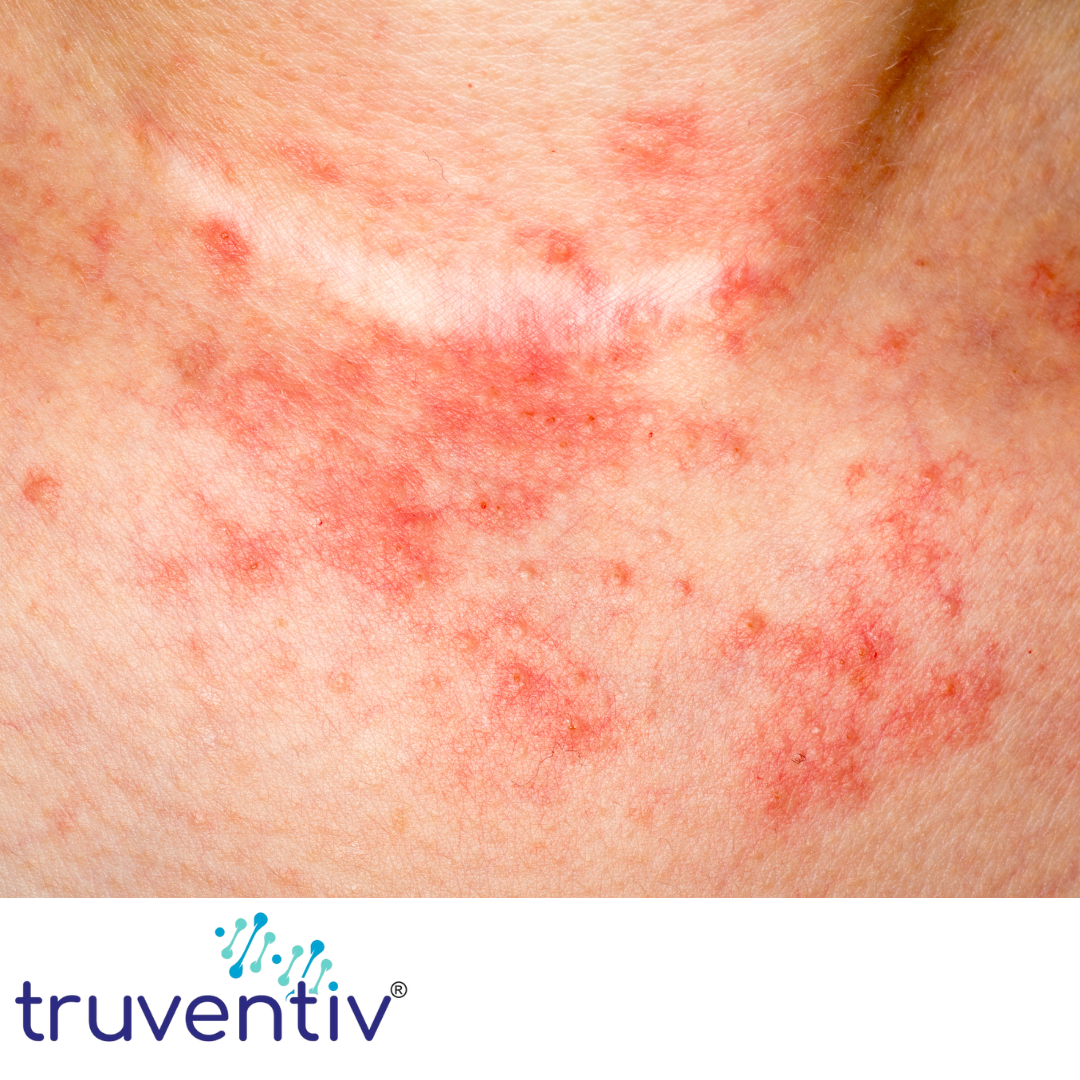
Dimethicone can be highly beneficial in calming skin conditions like eczema, rosacea, and psoriasis due to its unique properties.
- Creates a Protective Barrier:
- Seals in Moisture: Dimethicone forms a protective, moisture-retaining barrier on the skin, preventing water loss and helping the skin maintain hydration. This is especially important for conditions like eczema and psoriasis, where the skin's barrier function is compromised, leading to dry, cracked, and irritated skin.
- Prevents Further Irritation: By forming a physical shield, dimethicone also protects the skin from external irritants such as allergens, pollutants, and harsh weather. This helps to reduce flare-ups and irritation, which are common in eczema and rosacea.
- Soothes and Calms Inflammation:
- Anti-Inflammatory Effect: Dimethicone has a soothing effect on the skin. It helps reduce the redness, swelling, and irritation associated with inflammatory conditions like rosacea, eczema, and psoriasis. By forming a smooth, calming barrier, it prevents further irritation and allows the skin to recover from inflammation.
- Reduces Sensitivity: For people with rosacea, eczema, or psoriasis, the skin can often become highly sensitive. Dimethicone acts as a gentle agent that doesn't cause irritation or stinging, making it a safe option for individuals with sensitive skin.
- Promotes Skin Healing and Repair:
- Enhances Skin Recovery: Skin affected by conditions like eczema or psoriasis is often damaged and in need of repair. Dimethicone helps to retain moisture, which is essential for the healing process, and prevents the skin from drying out or cracking. This can reduce the severity of flare-ups and help the skin repair more efficiently.
- Supports Skin Regeneration: By locking in hydration and protecting the skin’s surface, dimethicone promotes a healthier skin environment for healing and regeneration, which is crucial for managing chronic conditions like eczema and psoriasis.
- Prevents Further Skin Damage:
- Protects Against Environmental Stressors: Conditions like eczema and rosacea can make the skin more vulnerable to environmental factors, such as pollution, cold weather, or exposure to harsh chemicals. Dimethicone's protective barrier helps to block out harmful environmental stressors, reducing the likelihood of skin damage and preventing further irritation.
- Blocks Bacterial and Viral Entry: Because it forms a thin layer over the skin, dimethicone also acts as a shield against bacteria, viruses, or fungi, which could exacerbate conditions like eczema or psoriasis by causing infections. It prevents the skin from becoming further compromised by these pathogens.
- Improves Skin Texture and Smoothness:
- Smooths Rough Patches: Eczema, rosacea, and psoriasis can often leave the skin feeling rough and uneven. Dimethicone works to smooth out these rough patches by filling in dry or irritated areas and offering a more even skin surface. This makes the skin feel softer, smoother, and more comfortable, which is particularly important when managing the discomfort caused by conditions like psoriasis and eczema.
- Softens Scaly Patches: Dimethicone helps to reduce the appearance of scaly skin, which is common in psoriasis. It softens and smooths the affected areas, providing immediate relief and helping to reduce visible scaling over time.
- Non-Irritating and Gentle:
- Hypoallergenic: Dimethicone is non-comedogenic and generally non-irritating, making it a good option for sensitive skin affected by conditions like eczema, rosacea, and psoriasis. Unlike other ingredients that might sting or burn on irritated skin, dimethicone is typically well-tolerated, offering soothing relief without aggravating the condition.
- Ideal for Sensitive Areas: For conditions like rosacea, which often affects sensitive facial skin, dimethicone can be safely applied without causing discomfort or further irritation. It helps calm the skin while offering gentle protection.
- Moisturizes Without Greasiness:
- Lightweight and Non-Greasy: Dimethicone provides a non-greasy, lightweight moisture barrier that helps to hydrate the skin without contributing to excess oil. This is particularly beneficial for individuals with eczema or rosacea, as these conditions can sometimes cause an imbalance in skin oil levels. Dimethicone offers hydration while keeping the skin feeling comfortable and balanced.
- Prevents Dryness and Cracking:
- Hydration Lock: Dry skin is a common symptom in eczema, rosacea, and psoriasis. Dimethicone helps prevent trans-epidermal water loss (TEWL), locking moisture into the skin and keeping it hydrated. By maintaining proper moisture levels, dimethicone helps to prevent the dry, cracked, and painful patches that are characteristic of these skin conditions.
- Maintains Skin Elasticity: In dry, irritated skin, elasticity can be compromised, leading to cracks and further irritation. Dimethicone supports skin elasticity by maintaining moisture, helping to keep the skin soft and flexible and reduce the likelihood of cracking.
- Helps Manage Outbreaks and Flare-Ups:
- Prevents Flare-Up Triggers: Dimethicone can help reduce the severity of flare-ups in skin conditions like eczema and psoriasis by keeping the skin's surface intact and protected. When the skin is less exposed to triggers like allergens, irritants, or pollutants, the frequency and intensity of flare-ups can be minimized.
- Calms Rosacea Flare-Ups: Rosacea often leads to redness and inflammation. Dimethicone, with its soothing and barrier-building properties, can help calm the skin during flare-ups and reduce the visibility of redness, providing immediate relief.
HOW DIMETHICONE HELPS IN ANTI-ACNE & PIMPLE
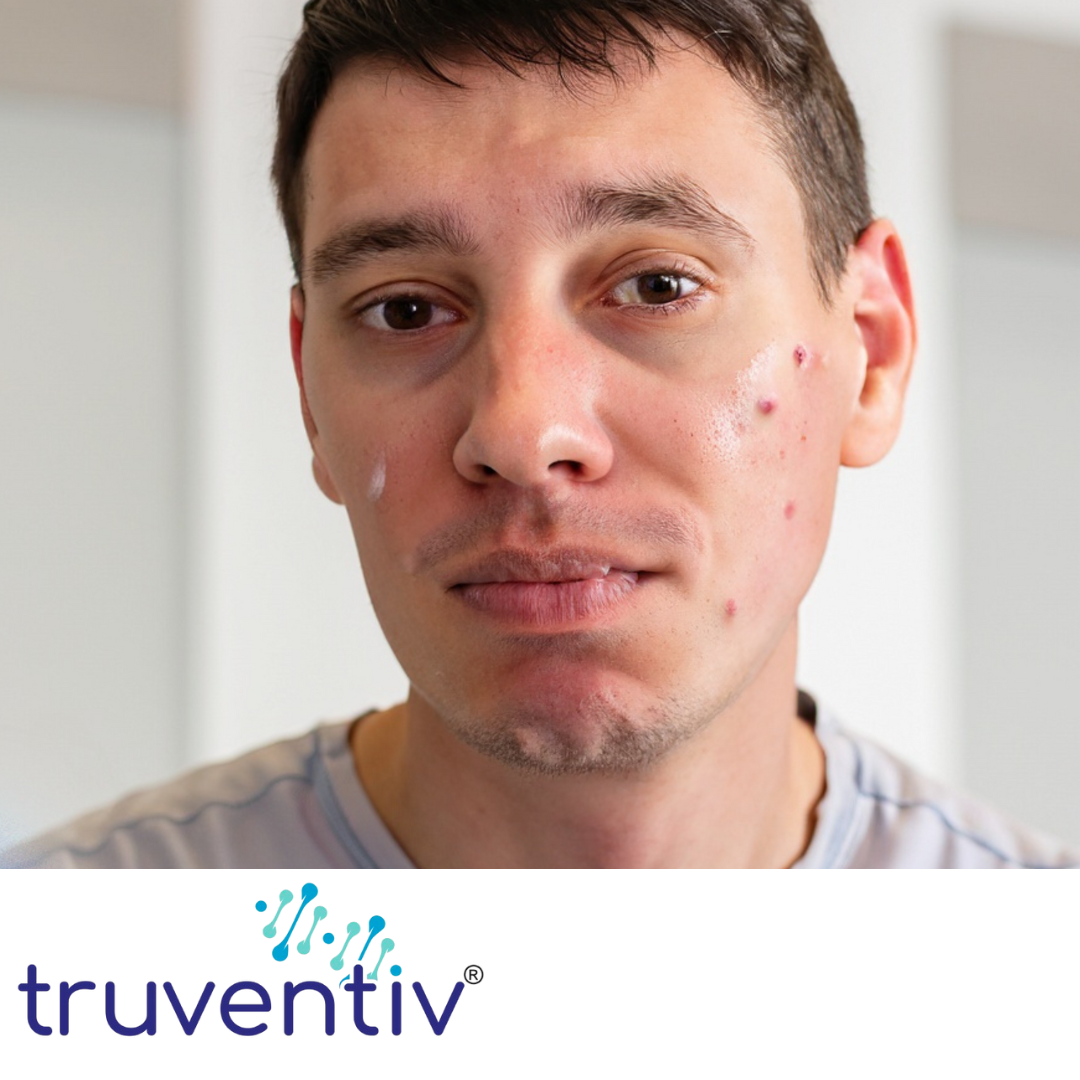
Dimethicone can play a role in anti-acne and pimple treatments, though it is not directly an active acne-fighting ingredient. However, its properties make it a helpful addition to acne treatment products, and it can indirectly support the reduction of pimples and acne.
- Non-Comedogenic:
- Does Not Clog Pores: Dimethicone is non-comedogenic, meaning it does not clog pores. Since clogged pores are a primary cause of acne and pimples, dimethicone helps prevent the formation of comedones (the building blocks of pimples). It ensures that skin remains clear of obstructions, allowing it to breathe and preventing the buildup of oil, dirt, and bacteria that could cause breakouts.
- Prevents Excess Oil Build-Up:
- Regulates Oil and Hydration: While dimethicone provides a moisturizing barrier, it doesn't contribute to excessive oil production. For oily or acne-prone skin, dimethicone can help balance the moisture levels, keeping skin hydrated without making it greasy. This balance reduces the likelihood of excess oil clogging pores, which can lead to acne and pimples.
- Creates a Barrier to Protect Against External Irritants:
- Protects the Skin: Dimethicone forms a protective layer on the skin, which helps shield it from external pollutants, bacteria, and irritants. This is particularly important for acne-prone skin, as exposure to pollutants or harmful substances can worsen breakouts or cause new pimples to form.
- Prevents Bacterial Invasion: Since acne can be triggered by bacterial growth in clogged pores, dimethicone’s barrier helps prevent bacteria from entering the skin. By maintaining this barrier, dimethicone can reduce the chances of bacterial infections that might aggravate acne.
- Soothes and Calms Inflammation:
- Reduces Redness and Swelling: Dimethicone has a soothing effect on the skin. It helps calm inflamed or irritated skin, which is common in acne and pimples. By reducing the redness and swelling, dimethicone can make breakouts appear less severe and more manageable.
- Supports Acne Healing: For those with active pimples, dimethicone can promote a smoother healing process by preventing additional irritation. It forms a protective barrier that locks in moisture and prevents further stress on the skin, giving acne-prone skin time to recover without triggering additional flare-ups.
- Smooths the Skin’s Surface:
- Temporarily Fills in Pimple Imperfections: Dimethicone is known for its ability to smooth the skin’s surface. In products like makeup primers or moisturizers, it can help blur imperfections, including pimples and acne scars. It temporarily fills in the rough spots, providing a more even surface and reducing the appearance of pimples.
- Improves Makeup Application: Since acne often results in uneven skin texture, dimethicone’s ability to smooth the skin can help makeup go on more evenly. This may not directly treat acne, but it provides a more polished look, reducing the visual impact of pimples during treatment.
- Supports the Effectiveness of Other Acne Ingredients:
- Enhances Penetration of Active Ingredients: When combined with other active acne-fighting ingredients like salicylic acid, benzoyl peroxide, or retinoids, dimethicone can help these ingredients penetrate the skin more effectively. By creating a smooth surface and enhancing absorption, dimethicone allows these active ingredients to work at deeper layers of the skin, improving their ability to combat acne.
- Boosts Acne Treatment Products: Dimethicone is often included in acne treatment products because it helps maintain the stability and effectiveness of acne treatment ingredients, while also making them easier to apply. It enhances the overall efficacy of the product.
- Reduces Skin Sensitivity:
- Ideal for Sensitive Skin: Acne treatments can sometimes lead to dryness, irritation, and sensitivity, which can worsen acne or make skin more prone to breakouts. Dimethicone helps reduce irritation by providing a gentle, non-irritating barrier, making it a suitable ingredient for sensitive acne-prone skin. This helps calm the skin while reducing redness and preventing over-drying.
- Supports Healing from Acne Treatments: Acne treatments, especially those involving drying ingredients, can leave the skin inflamed and sensitive. Dimethicone can help maintain skin hydration while reducing redness, which is particularly helpful when managing the skin’s healing process.
- Moisturizing Without Clogging Pores:
- Hydrates While Avoiding Acne Triggers: Many acne treatments and medications tend to dry out the skin, which can lead to excess oil production or further irritation. Dimethicone helps keep the skin moisturized without contributing to breakouts. It works as a lightweight hydrating agent that balances moisture levels, preventing skin from becoming excessively dry and ensuring it doesn't overproduce oil in response.
HOW PHENOXYETHANOL HELPS IN FOR NATURAL GLOWING SKIN
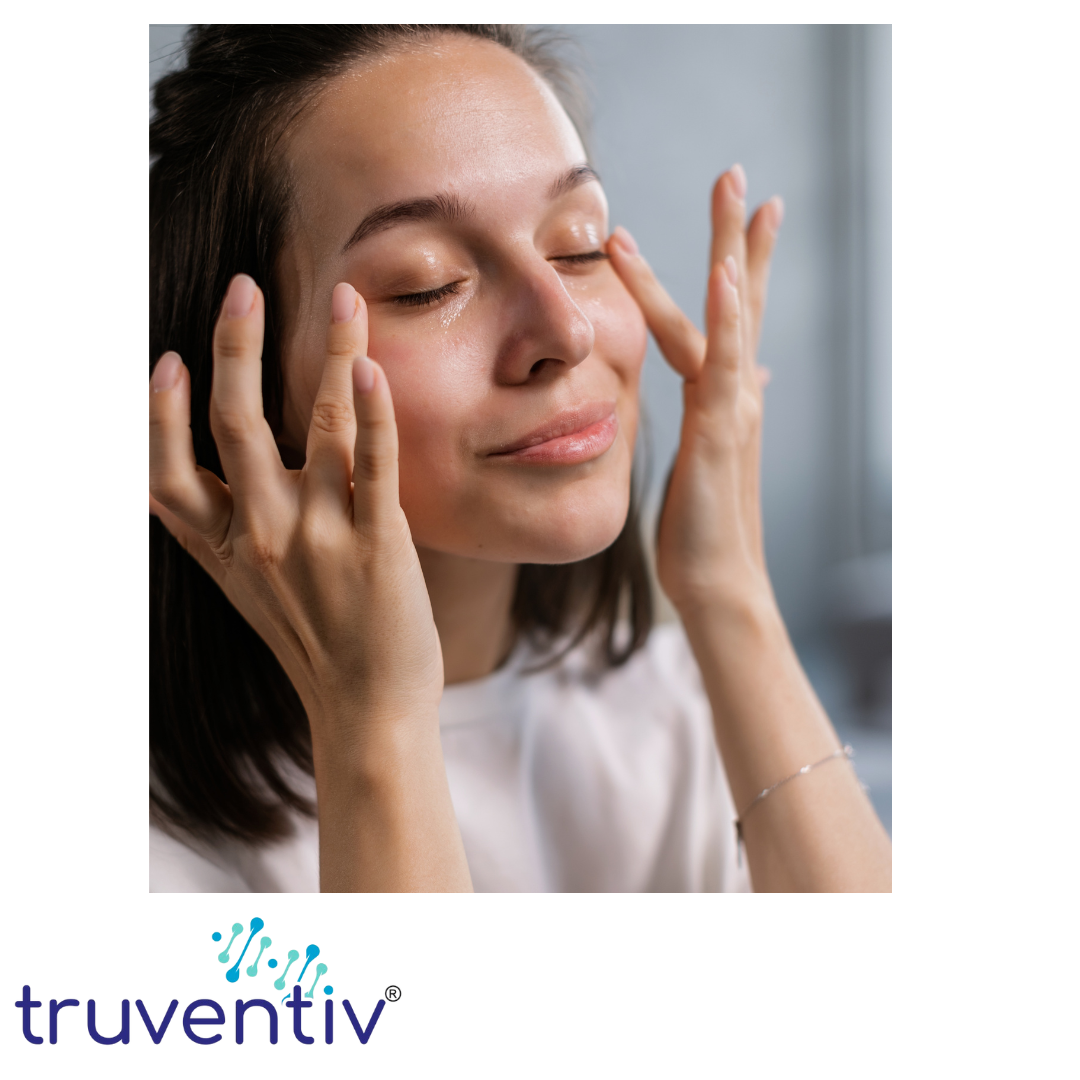
Phenoxyethanol is a common ingredient found in many skincare products, particularly as a preservative. Although its primary function is to help maintain the shelf life of products by preventing microbial growth, it also has several other properties that contribute to healthy, glowing skin.
- Preserves Product Integrity, Promoting Effective Skincare:
- Keeps Active Ingredients Effective: Phenoxyethanol helps preserve the integrity of skincare products, ensuring that the active ingredients (like vitamins, antioxidants, and hydrating agents) remain stable and effective over time. When the formula remains potent, it can deliver better results, leading to healthier, more radiant skin.
- Prevents Contamination: By preventing bacterial and fungal contamination, phenoxyethanol ensures that products stay free from harmful microorganisms. This helps prevent skin irritation or breakouts caused by contaminated products, which can affect the skin’s appearance, leaving it dull or prone to acne. This ensures that you’re consistently applying clean, safe products that maintain your skin’s natural glow.
- Supports Overall Skin Health:
- Non-Irritating and Gentle: Phenoxyethanol is generally considered gentle on the skin. It can be used in formulations without causing significant irritation or dryness. Maintaining hydrated, non-irritated skin is key to a glowing complexion, and by ensuring that products remain gentle, phenoxyethanol helps in keeping the skin healthy and smooth, which reflects a natural glow.
- Balancing Skin's pH: Since phenoxyethanol is often included in formulations with a balanced pH, it helps maintain the optimal pH of the skin. Proper pH balance is essential for skin health and a glowing complexion. It ensures that the skin’s protective barrier remains intact, protecting it from environmental stressors and helping to retain moisture.
- Improves Skin's Overall Appearance:
- Stabilizes Moisturizing Formulas: Many moisturizing products use phenoxyethanol as a preservative, allowing for better hydration. Well-hydrated skin appears plump, smooth, and radiant, which naturally contributes to a glowing complexion. Dry or dehydrated skin often looks dull or uneven, while skin that’s properly moisturized tends to look healthier and more luminous.
- Prevents Skin Damage from Contaminated Products: When products are free from contamination, they’re less likely to trigger inflammation, irritation, or breakouts. Inflammation and acne can lead to redness, dullness, and uneven skin tone, but using clean products helps to maintain a clearer, brighter complexion.
- Reduces Risk of Acne and Breakouts:
- Prevents Bacterial Growth: Phenoxyethanol’s antimicrobial properties help to prevent the growth of bacteria and fungi in skincare formulations. This means that the products are less likely to introduce harmful microorganisms to your skin, which could cause breakouts and dullness. A clean and healthy skin surface is essential for achieving a glowing complexion.
- Supports Healthy Skin Microflora:
- Gentle Preservation: Unlike harsher preservatives, phenoxyethanol is considered less likely to disrupt the natural skin microbiome. A healthy skin microbiome plays a role in maintaining a clear, balanced, and glowing complexion. By preserving the formula’s stability without harming the skin's natural barrier, phenoxyethanol contributes to an overall healthier appearance.
- Prevents Premature Aging:
- Reduces Irritation: Products with phenoxyethanol help prevent irritation or allergic reactions, which can trigger premature aging signs, such as wrinkles, fine lines, and dullness. Keeping irritation and inflammation at bay supports smooth, youthful skin, which enhances a glowing appearance.
- Balances the Formula for Better Absorption:
- Enhances Other Ingredients: By stabilizing the formula and preventing contamination, phenoxyethanol ensures that other glow-boosting ingredients (like vitamin C, retinol, and Hyaluronic acid) work more effectively. These active ingredients support the skin’s radiance and help to reduce hyperpigmentation, dark spots, and signs of aging, contributing to the overall glow of the skin.
- Improves Texture and Smoothness:
- Smoother Application: Phenoxyethanol can improve the texture of products, making them easier to apply. When applied to the skin, these smoother, non-irritating formulations allow other ingredients to absorb more efficiently, contributing to a smoother skin texture. Smooth, even skin naturally reflects light better, which creates the appearance of a healthy glow.


